Meine Familie ist hier.我的家庭在这里 。 Gia đình của tôi đang ở đây. ครอบครัวของผมอยู่ที่นี่♂ / ครอบครัวของดิฉันอยู่ที่นี่♀ Mi familia está aquí. Ma famille est ici. La mia famiglia è qui. My family is here. Mijn gezin is hier. 1 People 01D 0012 | |
Ich bin hier.我在这里。 Tôi ở đây. ผมอยู่ที่นี่♂ / ดิฉันอยู่ที่นี่♀ Yo estoy aquí. Je suis ici. Io sono qui. I am here. Ik ben hier. 1 People 01E 0013 | |
Du bist hier.你在这里。 Bạn ở đây. คุณอยู่ที่นี่ Tú estás aquí. Tu es ici. Tu sei qui. You are here. Jij bent hier. 1 People 01E 0014 | |
Er ist hier und sie ist hier.他在这里和她在这里。 Anh ấy ở đây và cô ấy ở đây. เขาอยู่ที่นี่ ♂ และ เธออยู่ที่นี่ ♀ Él está aquí y ella está aquí. Il est ici et elle est ici. Lui è qui e lei è qui. He is here and she is here. Hij is hier en zij is hier. 1 People 01E 0015 | |
Wir sind hier.我们在这里。 Chúng tôi ở đây. เราอยู่ที่นี่ Nosotros /-as estamos aquí. Nous sommes ici. Noi siamo qui. We are here. Wij zijn hier. 1 People 01F 0016 | |
Ihr seid hier.你们在这里。 Các bạn ở đây. คุณอยู่ที่นี่ Vosotros /-as estáis aquí. Vous êtes ici. Voi siete qui. You are here. Jullie zijn hier. 1 People 01F 0017 | |
Sie sind alle hier.他们都在这里。 Họ ở đây hết. พวกเขาทุกคนอยู่ที่นี่ Todos /-as ellos /-as están aquí. Ils sont tous ici. Tutti loro sono qui. They are all here. Zij zijn allemaal hier. 1 People 01F 0018 | |
In welchem Hotel wohnen Sie?您住在哪一个宾馆? Bạn ở khách sạn nào vậy? คุณพักอยู่โรงแรมอะไร ครับ♂ / คะ♀? ¿En qué / cuál (am.) hotel se encuentra hospedado / -da (usted)? Dans quel hôtel séjournez-vous ? In quale hotel alloggia? In which hotel are you staying? In welk hotel verblijft u? 3 Getting to know others 03C 0043 | |
Wie lange sind Sie schon hier?您在这里已经多久了? Bạn ở đây bao lâu rồi? คุณอยู่ที่นี่นานเท่าไหร่แล้ว ครับ♂ / คะ♀? ¿Por cuánto tiempo ha estado (usted) aquí? Depuis quand êtes-vous ici ? Da quanto tempo è qui? How long have you been here for? Hoe lang bent u er al? 3 Getting to know others 03C 0044 | |
Machen Sie hier Urlaub?您在这里度假吗? Bạn đi du lịch ở đây à? คุณมาพักผ่อนที่นี่ใช่ไหม ครับ♂ / คะ♀? ¿Está usted aquí de vacaciones? Êtes-vous en vacances ici ? È in vacanza? Are you here on vacation? Bent u hier met vakantie? 3 Getting to know others 03D 0047 | |
Wo sind wir?我们在哪里? Chúng ta ở đâu? เราอยู่ที่ไหน? ¿Dónde estamos? Où sommes-nous ? Dove siamo? Where are we? Waar zijn we? 4 At school 04A 0055 | |
Wir sind in der Schule.我们在学校里。 Chúng ta ở trường học. เราอยู่ที่โรงเรียน Nosotros / nosotras estamos en la escuela. Nous sommes à l’école. Siamo a scuola. We are at school. We zijn op school. 4 At school 04A 0056 | |
Wir haben Unterricht.我们在上课。 Chúng ta có giờ học. เรากำลังเรียนหนังสือ Nosotros / nosotras tenemos clase. Nous avons cours. Abbiamo lezione. We are having class / a lesson. We hebben les. 4 At school 04A 0057 | |
Wie viel Uhr ist es, bitte?请问, 现在几点了? Bây giờ là mấy giờ ạ? กี่โมงแล้วครับ♂ กี่โมงแล้วคะ♀? ¿Qué hora es, por favor? Quelle heure est-il, s’il vous plaît ? Che ora è (Che ore sono), per favore? What time is it, please? Weet u misschien hoe laat het is? 8 The time 08A 0128 | |
Es ist ein Uhr.现在一点。 Bây giờ là một giờ. มันเป็นเวลาหนึ่งนาฬิกา Es la una. Il est une heure. È l’una. It is one o’clock. Het is een uur. 8 The time 08B 0130 | |
Es ist zwei Uhr.现在二点。 Bây giờ là hai giờ. มันเป็นเวลาสองนาฬิกา Son las dos. Il est deux heures. Sono le due. It is two o’clock. Het is twee uur. 8 The time 08B 0131 | |
Es ist drei Uhr.现在三点。 Bây giờ là ba giờ. มันเป็นเวลาสามนาฬิกา Son las tres. Il est trois heures. Sono le tre. It is three o’clock. Het is drie uur. 8 The time 08B 0132 | |
Es ist vier Uhr.现在四点。 Bây giờ là bốn giờ. มันเป็นเวลาสี่นาฬิกา Son las cuatro. Il est quatre heures. Sono le quattro. It is four o’clock. Het is vier uur. 8 The time 08C 0133 | |
Es ist fünf Uhr.现在五点。 Bây giờ là năm giờ. มันเป็นเวลาห้านาฬิกา Son las cinco. Il est cinq heures. Sono le cinque. It is five o’clock. Het is vijf uur. 8 The time 08C 0134 | |
Es ist sechs Uhr.现在六点。 Bây giờ là sáu giờ. มันเป็นเวลาหกนาฬิกา Son las seis. Il est six heures. Sono le sei. It is six o’clock. Het is zes uur. 8 The time 08C 0135 | |
Es ist sieben Uhr.现在七点。 Bây giờ là bảy giờ. มันเป็นเวลาเจ็ดนาฬิกา Son las siete. Il est sept heures. Sono le sette. It is seven o’clock. Het is zeven uur. 8 The time 08D 0136 | |
Es ist acht Uhr.现在八点。 Bây giờ là tám giờ. มันเป็นเวลาแปดนาฬิกา Son las ocho. Il est huit heures. Sono le otto. It is eight o’clock. Het is acht uur. 8 The time 08D 0137 | |
Es ist neun Uhr.现在九点。 Bây giờ là chín giờ. มันเป็นเวลาเก้านาฬิกา Son las nueve. Il est neuf heures. Sono le nove. It is nine o’clock. Het is negen uur. 8 The time 08D 0138 | |
Es ist zehn Uhr.现在十点。 Bây giờ là mười giờ. มันเป็นเวลาสิบนาฬิกา Son las diez. Il est dix heures. Sono le dieci. It is ten o’clock. Het is tien uur. 8 The time 08E 0139 | |
Es ist elf Uhr.现在十一点。 Bây giờ là mười một giờ. มันเป็นเวลาสิบเอ็ดนาฬิกา Son las once. Il est onze heures. Sono le undici. It is eleven o’clock. Het is elf uur. 8 The time 08E 0140 | |
Es ist zwölf Uhr.现在十二点。 Bây giờ là mười hai giờ. มันเป็นเวลาสิบสองนาฬิกา Son las doce. Il est douze heures. Sono le dodici (è mezzogiorno, è mezzanotte). It is twelve o’clock. Het is twaalf uur. 8 The time 08E 0141 | |
Ich bleibe zu Hause.我呆在家里。 Tôi ở nhà. ผม♂ / ดิฉัน♀ อยู่บ้าน Me quedo en casa. Je reste à la maison. Resto a casa. I’m staying at home. Ik blijf thuis. 10 Yesterday – today – tomorrow 10B 0168 | |
Ich arbeite im Büro.我在办公室工作。 Tôi làm ở trong văn phòng. ผม♂ / ดิฉัน♀ ทำงานที่สำนักงาน Trabajo en una oficina. Je travaille au bureau. Lavoro in ufficio. I work at an office. Ik werk op kantoor. 10 Yesterday – today – tomorrow 10C 0171 | |
Sie arbeitet im Büro.她在办公室工作。 Cô ấy làm việc trong văn phòng. เธอทำงานในสำนักงาน Ella trabaja en una oficina. Elle travaille dans un bureau. Lavora in ufficio. She works at an office. Zij werkt op kantoor. 13 Activities 13A 0218 | |
Wo ist Martha?马耳塔在哪里? Martha đâu rồi? มาร์ธ่าอยู่ที่ไหน? ¿Dónde está Marta? Où est Marthe ? Dov’è Martha? Where is Martha? Waar is Martha? 13 Activities 13B 0220 | |
Im Kino.在电影院里。 Ờ trong rạp chiếu phim. ที่โรงหนัง En el cine. Au cinéma. Al cinema. At the cinema. In de bioscoop. 13 Activities 13B 0221 | |
Sie schaut sich einen Film an.她在看电影。 Cô ấy xem / coi phim. เธอกำลังดูหนัง Ella está viendo una película. Elle regarde un film. Guarda un film. She is watching a film. Zij kijkt naar een film. 13 Activities 13B 0222 | |
Er studiert Sprachen.他在大学学语言。 Anh ấy học về ngôn ngữ. เขากำลังเรียนภาษา Él estudia idiomas. Il étudie les langues. Studia lingue. He studies languages. Hij studeert talen. 13 Activities 13C 0225 | |
Wo ist Peter?彼得在哪里? Peter đâu rồi? ปีเตอร์อยู่ไหน? ¿Dónde está Pedro? Où est Pierre ? Dov’è Peter? Where is Peter? Waar is Peter? 13 Activities 13D 0226 | |
Im Café.在咖啡馆 Ở trong quán cà phê. ที่ร้านกาแฟ En la cafetería. Au café. Al bar. At the café. In het café. 13 Activities 13D 0227 | |
Er trinkt Kaffee.他在喝咖啡。 Anh ấy uống cà phê. เขากำลังดื่มกาแฟ Él está tomando café. Il boit du café. Beve un caffè. He is drinking coffee. Hij drinkt koffie. 13 Activities 13D 0228 | |
Im Winter bleiben wir gern zu Hause.冬天我们喜欢呆在家里。 Chúng tôi thích ở trong nhà vào mùa đông. ในฤดูหนาวเราชอบอยู่บ้าน En el invierno nos gusta quedarnos en casa. En hiver, nous aimons rester à la maison. D’inverno preferiamo restare in casa / rimaniamo volentieri a casa. We like to stay home in winter. In de winter blijven we graag thuis. 16 Seasons and Weather 16C 0279 | |
Es regnet.天在下雨 Trời mưa. ฝนกำลังตก Está lloviendo. Il pleut. Piove. It is raining. Het regent. 16 Seasons and Weather 16D 0281 | |
Dort steht mein Computer.我的电脑在那里。 Máy tính của tôi ở đó. คอมพิวเตอร์ ของผม / ของดิฉัน ตั้งอยู่ตรงนั้น Mi ordenador / computadora (am.) está allá. Mon ordinateur est là-bas. Lì c’è il mio computer. My computer is there. Daar staat mijn computer. 17 Around the house 17F 0304 | |
Dort steht meine Stereoanlage.我的立体声设备在那里。 Ở kia là máy âm thanh của tôi. สเตอริโอ ของผม / ของดิฉัน ตั้งอยู่ตรงนั้น Mi equipo de sonido está allí. Ma chaîne stéréo est là-bas. Lì c’è il mio (impianto) stereo. My stereo is there. Daar staat mijn stereo. 17 Around the house 17F 0305 | |
Wo sind die Gläser?玻璃杯在哪? Cốc chén đâu rồi? แก้วน้ำอยู่ที่ไหน? ¿Dónde están los vasos? Où sont les verres ? Dove sono i bicchieri? Where are the glasses? Waar zijn de glazen? 19 In the kitchen 19C 0331 | |
Wo ist das Geschirr?餐具(碗、碟、杯子)在哪? Bát đĩa ở đâu? จานชามอยู่ที่ไหน? ¿Dónde está la vajilla? Où est le service ? Dove sono le stoviglie? Where are the dishes? Waar is het servies? 19 In the kitchen 19C 0332 | |
Wo ist das Besteck?餐具(刀、叉、勺)在哪? Thìa dĩa ở đâu? ช้อนส้อมและมีดอยู่ที่ไหน? ¿Dónde están los cubiertos? Où sont les couverts ? Dove sono le posate? Where is the cutlery / silverware (am.)? Waar is het bestek? 19 In the kitchen 19C 0333 | |
Kochst du die Suppe in diesem Topf?你在这个锅里熬汤吗? Bạn nấu xúp ở trong nồi này à? คุณกำลังทำซุปในหม้อใบนี้ใช่ไหม ครับ / คะ? ¿Estas cocinando la sopa en esta olla? Prépares-tu la soupe dans cette casserole ? Fai bollire la zuppa in quella pentola? Are you cooking the soup in this pot? Kook je de soep in deze pot? 19 In the kitchen 19E 0337 | |
Grillst du das Gemüse auf diesem Grill?你在这个烤架上面烤蔬菜吗? Bạn nướng rau ở trên lò này à? คุณกำลังย่างผักบนเตาย่างนี้ใช่ไหม ครับ / คะ? ¿Estás asando los vegetales en esta parrilla? Fais-tu griller les légumes sur ce barbecue ? Cuoci la verdura su quella griglia? Are you grilling the vegetables on this grill? Gril je de groenten op deze grill? 19 In the kitchen 19E 0339 | |
Fühlen Sie sich wie zu Hause!您就当在自己家里! Bạn hãy coi như là ở nhà. ทำตัวเหมือนอยู่บ้านคุณเองนะครับ / ค่ะ! ¡Siéntase como en casa! Faites comme chez vous ! Faccia come a casa Sua! Please, feel right at home! Doe alsof u thuis bent! 20 Small Talk 1 20A 0344 | |
Ich lese gerade dieses Buch.我正在看这本书。 Tôi đang đọc quyển sách này. ผม / ดิฉัน กำลังอ่านหนังสือเล่มนี้ En este momento estoy leyendo este libro. En ce moment, je lis ce livre. Sto leggendo questo libro. I am currently reading this book. Ik lees nu dit boek. 20 Small Talk 1 20E 0356 | |
Sind Sie allein hier?您自己一个人在这里吗? Bạn ở đây một mình à? คุณมาที่นี่คนเดียวใช่ไหม ครับ / คะ? ¿Ha venido (usted) solo / sola? Êtes-vous seul ici ? È solo / sola qui? Are you alone here? Bent u hier alleen? 21 Small Talk 2 21F 0376 | |
Nein, meine Frau / mein Mann ist auch hier.不是的, 我的妻子 / 我的丈夫也在这儿。 Không, vợ / chồng tôi cũng ở đây. ไม่ใช่ ภรรยาของผม / สามีของดิฉัน ก็มาที่นี่ด้วย ครับ / ค่ะ No, mi esposa / mi marido ha venido conmigo. Non, ma femme / mon mari est aussi ici. No, c’è anche mia moglie / mio marito. No, my wife / my husband is also here. Nee, mijn vrouw / mijn man is ook hier. 21 Small Talk 2 21F 0377 | |
Und dort sind meine beiden Kinder.我的两个孩子在那里。 Và đó là hai đứa con tôi. และนั่นเป็นลูกทั้งสองคนของ ผม / ดิฉัน Y allí están mis dos hijos. Et voici mes deux enfants. E quelli sono i miei due figli. And those are my two children. En daar zijn mijn twee kinderen. 21 Small Talk 2 21F 0378 | |
Aber jetzt rauche ich nicht mehr.但是我现在不吸了。 Nhưng bây giờ tôi không hút thuốc nữa. แต่ตอนนี้ ผม / ดิฉันไม่สูบแล้ว Pero ahora ya no fumo. Mais maintenant, je ne fume plus. Ma adesso non fumo più. But I don’t smoke anymore. Maar nu rook ik niet meer. 22 Small Talk 3 22A 0381 | |
Aber jetzt machen wir hier Urlaub.不过现在我们在这里度假。 Nhưng bây giờ thì chúng tôi đi du lịch. แต่ตอนนี้เรามาพักร้อน Pero ahora estamos aquí de vacaciones. Mais maintenant, nous sommes en vacances. Ma adesso siamo qui in vacanza. But now we’re on holiday. Maar nu zijn we hier met vakantie. 22 Small Talk 3 22D 0390 | |
Wo haben Sie Spanisch gelernt?您在哪里学习的西班牙语呢? Bạn học tiếng Tây Ban Nha ở đâu vậy? คุณเรียนภาษาสเปนมาจากไหน ครับ / คะ? ¿En dónde aprendió (usted) español? Où avez-vous appris l’espagnol ? Dove ha imparato lo spagnolo? Where did you learn Spanish? Waar heeft u Spaans geleerd? 23 Learning foreign languages 23A 0397 | |
Machen Sie einen Sprachkurs?您在上语言培训班吗? Bạn có tham gia một khóa học ngoại ngữ không? คุณเรียนหลักสูตรภาษาหรือเปล่า ครับ / คะ? ¿Está (usted) tomando un curso de idiomas? Suivez-vous des cours de langue ? Frequenta un corso di lingue? Are you taking a language course? Bent u een taalcursus aan het volgen? 23 Learning foreign languages 23E 0410 | |
Ich weiß im Moment nicht, wie das heißt.我现在一时记不起来,(这教材)叫什么名字。 Bây giờ tôi không biết cái đó gọi là gì. ตอนนี้ ผม / ดิฉัน จำชื่อไม่ได้ ครับ / คะ? En este momento no sé cómo se llama. Pour le moment, je ne m’en souviens plus. In questo momento non ricordo come si chiama. I don’t remember the name right now. Ik weet zo direct niet hoe het heet. 23 Learning foreign languages 23F 0412 | |
Hast du kein Handy bei dir?你没有把手机带在身边吗? Bạn không mang theo điện thoại di động sao? คุณ มีมือถือติดตัวไม่ใช่หรือ ครับ / คะ? ¿No tienes móvil / celular (am.)? As-tu oublié d’amener ton portable avec toi ? Non hai con te un cellulare? Don’t you have a mobile / cell phone (am.) with you? Heb je geen mobiele telefoon bij je? 24 Appointment 24A 0417 | |
Wo ist der Schlafwagen?卧铺车厢在哪里? Toa nằm ở đâu? ตู้นอนอยู่ขบวนไหน ครับ / คะ? ¿Dónde está el coche-cama? Où est le wagon-lit ? Dov’è il vagone letto? Where is the sleeper? Waar is de slaapwagen? 34 On the train 34C 0601 | |
Der Schlafwagen ist am Ende des Zuges.卧铺车厢在这列火车的尾部。 Toa nằm ở cuối tàu. ตู้นอนอยู่ขบวนท้ายสุดของรถไฟ El coche-cama está al final del tren. Le wagon-lit est en queue de train. Il vagone letto è in coda al treno. The sleeper is at the end of the train. De slaapwagen is aan het eind van de trein. 34 On the train 34C 0602 | |
Und wo ist der Speisewagen? – Am Anfang.那么车厢餐厅在哪里? 在最前面。 Toa ăn ở đâu? – Ở đầu tầu. และรถเสบียงอยู่ขบวนไหน ครับ / คะ?- ขบวนหน้า ครับ / คะ ¿Y dónde está el vagón-restaurante? – Al principio. Et où est le wagon-restaurant ? – En tête. E dov’è il vagone ristorante? – In cima al treno. And where is the dining car? – At the front. En waar is de restauratiewagen? – Aan het begin. 34 On the train 34C 0603 | |
Kann ich unten schlafen?我能睡在下铺吗? Tôi ngủ ở tầng dưới đuợc không? ผม / ดิฉัน ขอนอนข้างล่างได้ไหม ครับ / คะ? ¿Puedo dormir abajo? Puis-je dormir en bas ? Posso dormire sotto? Can I sleep below? Mag ik beneden slapen? 34 On the train 34D 0604 | |
Kann ich in der Mitte schlafen?我能睡在中铺吗? Tôi ngủ ở tầng giữa được không? ผม / ดิฉัน ขอนอนตรงกลางได้ไหม ครับ / คะ? ¿Puedo dormir en medio? Puis-je dormir au milieu ? Posso dormire al centro? Can I sleep in the middle? Mag ik in het midden slapen? 34 On the train 34D 0605 | |
Kann ich oben schlafen?我能睡在上铺吗? Tôi ngủ ở tầng trên được không? ผม / ดิฉัน ขอนอนข้างบนได้ไหม ครับ / คะ? ¿Puedo dormir arriba? Puis-je dormir en haut ? Posso dormire sopra? Can I sleep at the top? Mag ik boven slapen? 34 On the train 34D 0606 | |
Würden Sie mich bitte um 7.00 Uhr wecken?您能在七点钟把我叫醒吗? Bạn sẽ đánh thức tôi vào lúc 7.00 giờ được không? คุณช่วยปลุก ผม / ดิฉัน ตอนเจ็ดโมงได้ไหม ครับ / คะ? ¿Podría (usted) despertarme a las 7:00 de la mañana, por favor? Pouvez-vous me réveiller à 7 heures ? Mi potrebbe svegliare alle sette? Could you please wake me up at 7 o’clock? Kunt u mij om 7.00 uur wekken? 34 On the train 34F 0612 | |
Wo ist die Bushaltestelle?公共汽车站在哪里? Bến / trạm xe buýt ở đâu? ป้ายรถโดยสารอยู่ที่ไหน ครับ / คะ? ¿Dónde está la parada del autobús? Où est l’arrêt du bus ? Dov’è la fermata dell’autobus? Where is the bus stop? Waar is de bushalte? 36 Public transportation 36A 0631 | |
Muss ich umsteigen?我得在中途换车吗? Tôi có phải đổi tuyến không? ผม / ดิฉัน ต้องต่อรถไหม ครับ / คะ? ¿Debo hacer trasbordo / cambiar de autobús? Est-ce que je dois changer ? Devo cambiare? Do I have to change? Moet ik overstappen? 36 Public transportation 36B 0634 | |
Wo muss ich umsteigen?我得在哪里换车? Tôi phải đổi xe ở đâu? ผม / ดิฉัน ต้องต่อรถที่ไหน ครับ / คะ? ¿Dónde debo hacer trasbordo / cambiar? Où dois-je changer ? Dove devo cambiare? Where do I have to change? Waar moet ik overstappen? 36 Public transportation 36B 0635 | |
Sie müssen hier aussteigen.您得在这里下车。 Bạn phải xuống ở đây. คุณต้องลงรถที่นี่ ครับ / ค่ะ Tiene (usted) que bajar aquí. Vous devez descendre ici. Deve scendere qui. You have to get off here. U moet hier uitstappen. 36 Public transportation 36C 0638 | |
Bitte hier nach rechts.请在这里右转。 Làm ơn rẽ phải ở đây. กรุณาช่วยเลี้ยวขวาตรงนี้ ครับ / ค่ะ Aquí a la derecha, por favor. A droite, s’il vous plaît. Qui giri a destra, per favore. Please turn right here. Hier naar rechts, alstublieft. 38 In the taxi 38B 0671 | |
Bitte dort an der Ecke nach links.请在那个拐弯处向左转。 Làm ơn góc kia rẽ trái. กรุณาช่วยเลี้ยวซ้ายตรงหัวมุม ครับ / ค่ะ Allí, en la esquina, a la izquierda, por favor. Prenez la première à gauche au coin, s’il vous plaît. All’angolo giri a sinistra, per favore. Please turn left at the corner. Daar op de hoek naar links, alstublieft. 38 In the taxi 38B 0672 | |
Halten Sie hier bitte.请您在这里停车。 Bạn làm ơn dừng lại ở đây. กรุณาจอดรถที่นี่ ครับ / คะ Pare (usted) aquí, por favor. Arrêtez-vous ici, s’il vous plaît. Si fermi qui, per favore. Please stop here. Stopt u hier, alstublieft. 38 In the taxi 38D 0676 | |
Wo ist die nächste Tankstelle?最近的加油站在哪里? Trạm xăng tiếp sau ở đâu? ปั๊มถัดไปอยู่ที่ไหน ครับ / คะ? ¿Dónde está la próxima gasolinera? Où est la station-service la plus proche ? Dov’è il prossimo distributore di benzina? Where is the next gas station? Waar is het volgende tankstation? 39 Car breakdown 39A 0685 | |
Wo kann ich telefonieren?我能在哪里打电话? Tôi gọi điện thoại ở đâu được? ผม / ดิฉัน จะโทรศัพท์ได้ที่ไหน ครับ / คะ? ¿Desde dónde puedo llamar (por teléfono)? Où puis-je téléphoner ? Dove posso telefonare? Where can I make a call? Waar kan ik telefoneren? 39 Car breakdown 39C 0691 | |
Wo ist das nächste Telefon?最近的公用电话在哪? Trạm điện thoại gần đây ở đâu? ตู้โทรศัพท์ใกล้ที่สุดอยู่ที่ไหน ครับ / คะ? ¿Dónde está el teléfono más cercano? Où est le téléphone le plus proche ? Dov’è il telefono più vicino? Where is the nearest telephone? Waar is de dichtbijzijnde telefoon? 39 Car breakdown 39D 0695 | |
Gehen Sie links um die Ecke.您在拐角往左拐。 Bạn rẽ trái góc đó. เลี้ยวซ้ายที่หัวมุม ครับ / คะ Gire (usted) a la izquierda en la esquina. Tournez à gauche au coin de la rue. Qui all’angolo giri a sinistra. Take a left at the corner. Ga links de hoek om. 40 Asking for directions 40B 0706 | |
Wo ist das Fremdenverkehrsamt?旅游管理处在哪里? Trạm hướng dẫn giao thông cho khách du lịch ở đâu? สำนักงานการท่องเที่ยวอยู่ที่ไหน ครับ / คะ? ¿Dónde está la Oficina de Turismo? Où est le syndicat d’initiative ? Dove si trova l’ente per il turismo? Where is the tourist information office? Waar is het VVV kantoor? 41 Where is ... ? 41A 0721 | |
Wo ist die Altstadt?老城区在哪里? Khu phố cổ ở đâu? เมืองเก่าอยู่ที่ไหน? ¿Dónde está el casco antiguo? Où est la vieille ville ? Dov’è il centro storico? Where is the old city? Waar is het oude stadscentrum? 41 Where is ... ? 41B 0724 | |
Wo ist der Dom?教堂在哪里? Nhà thờ lớn ở đâu? วิหารอยู่ที่ไหน? ¿Dónde está la catedral? Où est la cathédrale ? Dov’è il duomo? Where is the cathedral? Waar is de Dom? 41 Where is ... ? 41B 0725 | |
Wo ist das Museum?博物馆在哪里? Viện bảo tàng ở đâu? พิพิธภัณฑ์อยู่ที่ไหน? ¿Dónde está el museo? Où est le musée ? Dov’è il museo? Where is the museum? Waar is het museum? 41 Where is ... ? 41B 0726 | |
Wo gibt es Briefmarken zu kaufen?在哪里可以买到邮票? Ở đâu có thể mua tem thư? ซื้อแสตมป์ได้ที่ไหน? ¿Dónde se pueden comprar sellos? Où peut-on acheter des timbres ? Dove si possono comprare dei francobolli? Where can one buy stamps? Waar kan je postzegels kopen? 41 Where is ... ? 41C 0727 | |
Wo gibt es Blumen zu kaufen?在哪里可以买到鲜花? Ở đâu có thể mua hoa? ซื้อดอกไม้ได้ที่ไหน? ¿Dónde se pueden comprar flores? Où peut-on acheter des fleurs ? Dove si possono comprare dei fiori? Where can one buy flowers? Waar kan je bloemen kopen? 41 Where is ... ? 41C 0728 | |
Wo gibt es Fahrkarten zu kaufen?在哪里可以买到车票? Ở đâu có thể mua vé tàu xe? ซื้อตั๋วได้ที่ไหน? ¿Dónde se pueden comprar billetes? Où peut-on acheter des billets ? Dove si possono comprare dei biglietti? Where can one buy tickets? Waar kan je treinkaartjes kopen? 41 Where is ... ? 41C 0729 | |
Wo ist der Hafen?码头在哪里? Bến cảng ở đâu? ท่าเรืออยู่ที่ไหน? ¿Dónde está el puerto? Où est le port ? Dov’è il porto? Where is the harbour / harbor (am.)? Waar is de haven? 41 Where is ... ? 41D 0730 | |
Wo ist der Markt?集市在哪里? Chợ ở đâu? ตลาดอยู่ที่ไหน? ¿Dónde está el mercado? Où est le marché ? Dov’è il mercato? Where is the market? Waar is de markt? 41 Where is ... ? 41D 0731 | |
Wo ist das Schloss?城堡在哪里? Lâu đài ở đâu? ปราสาทอยู่ที่ไหน? ¿Dónde está el castillo? Où est le château ? Dov’è il castello? Where is the castle? Waar is het kasteel? 41 Where is ... ? 41D 0732 | |
Dort ist der Zoo.动物园在那边。 Sở thú ở kia. สวนสัตว์อยู่ที่นั่น Ahí está el zoológico. Le zoo est là-bas. Lì c’è lo zoo. The zoo is there. Daar is de dierentuin. 43 At the zoo 43A 0757 | |
Dort sind die Giraffen.长颈鹿在那边。 Con hươu cao cổ ở kia. ยีราฟอยู่ตรงนั้น Ahí están las jirafas. Les girafes sont là-bas. Lì ci sono le giraffe. The giraffes are there. Daar zijn de giraffen. 43 At the zoo 43A 0758 | |
Wo sind die Bären?熊都在哪里? Những con gấu ở đâu? หมีอยู่ที่ไหน? ¿Dónde están los osos? Où sont les ours ? Dove sono gli orsi? Where are the bears? Waar zijn de beren? 43 At the zoo 43A 0759 | |
Wo sind die Elefanten?大象都在哪里? Nhũng con voi ở đâu? ช้างอยู่ที่ไหน? ¿Dónde están los elefantes? Où sont les éléphants ? Dove sono gli elefanti? Where are the elephants? Waar zijn de olifanten? 43 At the zoo 43B 0760 | |
Wo sind die Schlangen?蛇都在哪里? Những con rắn ở đâu? งูอยู่ที่ไหน? ¿Dónde están las serpientes? Où sont les serpents ? Dove sono i serpenti? Where are the snakes? Waar zijn de slangen? 43 At the zoo 43B 0761 | |
Wo sind die Löwen?狮子都在哪里? Những con sư tử ở đâu? สิงโตอยู่ที่ไหน? ¿Dónde están los leones? Où sont les lions ? Dove sono i leoni? Where are the lions? Waar zijn de leeuwen? 43 At the zoo 43B 0762 | |
Wo ist eine Batterie?电池在哪里? Pin ở đâu? ผม / ดิฉัน จะหาแบตเตอรี่ได้ที่ไหน? ¿Dónde están las pilas / baterías? Où puis-je trouver des piles ? Dove trovo una batteria? Where can I find a battery? Waar zijn de batterijen? 43 At the zoo 43C 0765 | |
Wo sind die Pinguine?企鹅都在哪里? Ở đâu có chim cánh cụt? นกเพนกวินอยู่ที่ไหน? ¿Dónde están los pingüinos? Où sont les pingouins ? Dove sono i pinguini? Where are the penguins? Waar zijn de pinguïns? 43 At the zoo 43D 0766 | |
Wo sind die Kängurus?袋鼠都在哪里? Ở đâu có con chuột túi? จิงโจ้อยู่ที่ไหน? ¿Dónde están los canguros? Où sont les kangourous ? Dove sono i canguri? Where are the kangaroos? Waar zijn de kangoeroes? 43 At the zoo 43D 0767 | |
Wo sind die Nashörner?犀牛都在哪里? Ở đâu có con tê giác? แรดอยู่ที่ไหน? ¿Dónde están los rinocerontes? Où sont les rhinocéros ? Dove sono i rinoceronti? Where are the rhinos? Waar zijn de neushoorns? 43 At the zoo 43D 0768 | |
Wo ist eine Toilette?厕所在哪里? Nhà vệ sinh ở đâu vậy? ห้องน้ำอยู่ที่ไหน? ¿Dónde está el lavabo? Où sont les toilettes ? Dove sono i servizi? Where is the toilet / restroom (am.)? Waar is het toilet? 43 At the zoo 43E 0769 | |
Wo sind die Kamele?骆驼都在哪里? Nhũng con lạc đà ở đâu? อูฐอยู่ที่ไหน? ¿Dónde están los camellos? Où sont les chameaux ? Dove sono i cammelli? Where are the camels? Waar zijn de kamelen? 43 At the zoo 43F 0772 | |
Wo sind die Gorillas und die Zebras?大猩猩和斑马都在哪里? Nhũng con đười ươi và nhũng con ngựa vằn ở đâu? กอริลล่าและม้าลายอยู่ที่ไหน? ¿Dónde están los gorilas y las cebras? Où sont les gorilles et les zèbres ? Dove sono i gorilla e le zebre? Where are the gorillas and the zebras? Waar zijn de gorilla’s en de zebra’s? 43 At the zoo 43F 0773 | |
Wo sind die Tiger und die Krokodile?老虎和鳄鱼都在哪里? Nhũng con hổ và nhũng con cá sấu ở đâu? เสือและจระเข้อยู่ที่ไหน? ¿Dónde están los tigres y cocodrilos? Où sont les tigres et les crocodiles ? Dove sono le tigri ed i coccodrilli? Where are the tigers and the crocodiles? Waar zijn de tijgers en de krokodillen? 43 At the zoo 43F 0774 | |
Wo ist die Kasse?售票处在哪里? Quầy bán vé ở đâu? ช่องขายตั๋วอยู่ที่ไหนครับ / คะ ? ¿Dónde está la caja? Où est la caisse ? Dov’è la cassa? Where is the cash register? Waar is de kassa? 45 At the cinema 45B 0796 | |
Ich möchte hinten sitzen.我想坐在后面。 Tôi muốn ngồi ở đằng sau. ผม / ดิฉัน ต้องการนั่งข้างหลัง Querría sentarme detrás. Je voudrais une place à l’arrière. Io vorrei sedermi dietro. I want to sit at the back. Ik wil graag achterin zitten. 45 At the cinema 45D 0802 | |
Ich möchte vorn sitzen.我想坐在前面。 Tôi muốn ngồi ở đằng trước. ผม / ดิฉัน ต้องการนั่งข้างหน้า Querría sentarme delante. Je voudrais une place à l’avant. Io vorrei sedermi davanti. I want to sit at the front. Ik wil graag vooraan zitten. 45 At the cinema 45D 0803 | |
Ich möchte in der Mitte sitzen.我想坐在中间。 Tôi muốn ngồi ở giữa. ผม / ดิฉัน ต้องการนั่งตรงกลาง Querría sentarme en el medio. Je voudrais une place au milieu. Io vorrei sedermi al centro. I want to sit in the middle. Ik wil graag in het midden zitten. 45 At the cinema 45D 0804 | |
Darf ich mich zu Ihnen setzen?我可以坐在您旁边吗? Tôi có thể ngồi bên cạnh bạn không? ผม / ดิฉัน นั่งกับคุณได้ไหม ครับ / คะ? ¿Puedo sentarme en su mesa? Puis-je m’asseoir à côté de vous ? Posso sedermi accanto a voi? May I sit with you? Mag ik bij u komen zitten? 46 In the discotheque 46A 0812 | |
Warten Sie auf jemand?您在等什么人吗? Bạn đang đợi ai à? คุณรอใครอยู่หรือเปล่า ครับ / คะ ? ¿Espera (usted) a alguien? Est-ce que vous attendez quelqu’un ? Sta aspettando qualcuno? Are you waiting for someone? Wacht u op iemand? 46 In the discotheque 46F 0826 | |
Ja, auf meinen Freund.是啊,在等我的朋友。 Phải, bạn trai của tôi. ใช่ ครับ / ค่ะ รอแฟนอยู่ Sí, a mi novio. Oui, mon ami. Sì, il mio amico. Yes, for my boyfriend. Ja, op mijn vriend. 46 In the discotheque 46F 0827 | |
Ist es nicht gefährlich, dort zu baden?在那里游泳不危险吧? Tắm ở đó không nguy hiểm sao? เล่นน้ำที่นั่นอันตรายไม่ใช่หรือ? ¿No es peligroso bañarse (allí)? Est-ce que c’est dangereux de se baigner là ? Non è pericoloso fare il bagno li? Isn’t it dangerous to swim there? Is het niet gevaarlijk om daar te zwemmen? 48 Vacation activities 48A 0849 | |
Wo ist der Skilift?滑雪电缆车在哪里? Thang kéo trượt tuyết ở đâu? สกีลิฟท์อยู่ที่ไหน? ¿Dónde está el telesilla? Où est le téléski ? Dov’è la sciovia? Where is the ski lift? Waar is de skilift? 48 Vacation activities 48F 0862 | |
In unserer Stadt gibt es ein Fußballstadion.在我们这个城市里有一个足球场。 Ở trong thành phố của chúng tôi có sân vận động. มีสนามแข่งฟุตบอลในเมืองของเรา Hay un estadio de fútbol en nuestra ciudad. Dans notre ville, il y a un stade de football. Nella nostra città c’è uno stadio. There is a football / soccer (am.) stadium in our city. Er is een voetbalstadion in onze stad. 49 Sports 49C 0871 | |
Gerade gibt es ein Fußballspiel.正在转播足球赛。 Hiện giờ có một cuộc thi đấu bóng đá. กำลังมีการแข่งฟุตบอลในตอนนี้ En este momento hay un partido de fútbol. Il y a un match de foot. Stanno dando una partita di pallone. There is a football / soccer (am.) match on now. Er is momenteel een voetbalwedstrijd aan de gang. 49 Sports 49D 0875 | |
Im Moment steht es unentschieden.现在还没产生结果。 Hiện giờ hòa. ตอนนี้เสมอกันอยู่ En este momento están empatados. Pour le moment, c’est match nul. Al momento sono pari. It is currently a tie. Momenteel spelen ze gelijk. 49 Sports 49E 0879 | |
Jetzt gibt es einen Elfmeter.现在要点球了。 Bây giờ có một cú đá phạt đền. ตอนนี้กำลังยิงลูกโทษ Ahora hay un penalti. Maintenant, il y a un penalty. Adesso c’è un rigore. Now there is a penalty. Dit is een strafschop. 49 Sports 49F 0881 | |
Wo ist die Dusche?淋浴在哪? Vòi tắm hoa sen ở đâu? อาบน้ำได้ที่ไหน? ¿Dónde está la ducha? Où est la douche ? Dov’è la doccia? Where is the shower? Waar is de douche? 50 In the swimming pool 50D 0892 | |
Wo ist die Umkleidekabine?更衣室在哪? Phòng thay quần áo ở đâu? ห้องเปลี่ยนเสื้อผ้าอยู่ที่ไหน? ¿Dónde está el vestuario? Où est la cabine pour se changer ? Dov’è lo spogliatoio? Where is the changing room? Waar is het kleedhokje? 50 In the swimming pool 50D 0893 | |
Wo ist die Schwimmbrille?游泳眼镜在哪? Kính bơi ở đâu? แว่นตาว่ายน้ำอยู่ที่ไหน? ¿Dónde están las gafas / los lentes (am.) de natación? Où sont les lunettes de plongée ? Dove sono gli occhialini? Where are the swimming goggles? Waar is de zwembril? 50 In the swimming pool 50D 0894 | |
Ich gehe jetzt aus dem Wasser.我现在从水里出来。 Tôi lên bờ đây. ผม / ดิฉัน จะขึ้นจากน้ำแล้ว Salgo del agua ahora. Je sors maintenant de l’eau. Io ora esco dall’acqua. I am getting out of the water now. Ik ga nu uit het water. 50 In the swimming pool 50F 0900 | |
Wo sind die Büroartikel?办公用品在哪里? Đồ văn phòng phẩm ở đâu? แผนกเครื่องใช้สำนักงานอยู่ที่ไหนครับ / คะ? ¿Dónde están los materiales de oficina? Où sont les articles de bureau ? Dove sono gli articoli da ufficio? Where are the office supplies? Waar zijn de kantoorartikelen? 52 In the department store 52B 0922 | |
Wo sind die Möbel?家具在哪里? Đồ gỗ ở đâu? แผนกเฟอนิเจอร์อยู่ที่ไหน? ¿Dónde están los muebles? Où sont les meubles ? Dove sono i mobili? Where is the furniture? Waar zijn de meubels? 52 In the department store 52C 0925 | |
Wo sind die Spielsachen?玩具在哪? Đồ chơi ở đâu? แผนกของเล่นอยู่ที่ไหนครับ / คะ? ¿Dónde están los juguetes? Où sont les jouets ? Dove sono i giocattoli? Where are the toys? Waar is het speelgoed? 52 In the department store 52D 0928 | |
Wo ist das Werkzeug?工具在哪? Dụng cụ ở đâu? แผนกเครื่องมืออยู่ที่ไหนครับ / คะ? ¿Dónde están las herramientas? Où sont les outils ? Dov’è sono gli attrezzi? / Dove sono gli utensili? Where are the tools? Waar is het gereedschap? 52 In the department store 52E 0931 | |
Wo ist der Schmuck?首饰品在哪里? Đồ trang sức ở đâu? แผนกเครื่องประดับอยู่ที่ไหน? ¿En dónde está el departamento de joyas? Où sont les bijoux ? Dov’è la gioielleria? Where is the jewellery / jewelry (am.) department? Waar is de juweliersafdeling? 52 In the department store 52F 0934 | |
Ich mache ein Praktikum im Ausland.我在国外实习。 Tôi làm thực tập ở nước ngoài. ผม♂ / ดิฉัน♀ ฝึกงานอยู่ต่างประเทศ (Yo) estoy haciendo una pasantía / unas prácticas en el extranjero. Je fais un stage à l’étranger. Faccio un tirocinio all’estero. I am doing an internship abroad. Ik loop stage in het buitenland. 55 Working 55D 0984 | |
Ich suche eine Stelle.我在找工作。 Tôi tìm một chỗ làm. ผม / ดิฉัน กำลังมองหางาน Estoy buscando trabajo. Je cherche du travail. Cerco un (posto di) lavoro. I am looking for a job. Ik ben op zoek naar een baan. 55 Working 55F 0988 | |
Bitte nehmen Sie im Wartezimmer Platz.请您在候诊室等一下。 Mời bạn ngồi trong phòng đợi. กรุณานั่งรอในห้อง Por favor tome asiento en la sala de espera. Veuillez vous asseoir dans la salle d’attente. Per cortesia, si accomodi nella sala d’attesa. Please take a seat in the waiting room. Wilt u in de wachtkamer plaats nemen? 57 At the doctor 57B 1012 | |
Legen Sie sich bitte auf die Liege!请您躺在诊床上。 Bạn hãy nằm lên giường! นอนบนเตียงตรวจ ครับ / คะ! ¡Por favor acuéstese en la camilla! Veuillez vous allonger sur la table d’examen ! Si sdrai sul lettino per cortesia! Lie down on the examining table. Gaat u alstublieft op de onderzoekstafel liggen! 57 At the doctor 57E 1022 | |
Es ist Winter und es ist kalt.现在是冬天,而且天气很冷。 Đang là mùa đông và lạnh. มันเป็นฤดูหนาวและอากาศเย็น Es invierno y hace frío. C’est l’hiver et il fait froid. È inverno e fa freddo. It is winter and it is cold. Het is winter en het is koud. 58 Parts of the body 58D 1038 | |
Wo ist das nächste Postamt?最近的邮局在哪? Bưu điện gần nhất ở đâu? ที่ทำการไปรษณีย์ที่ใกล้ที่สุดอยู่ที่ไหน? ¿Dónde está la oficina de correos más cercana? Où est le bureau de poste le plus proche ? Dov’è la posta più vicina? Where is the nearest post office? Waar is het dichtstbijzijnde postkantoor? 59 At the post office 59A 1045 | |
Wo ist der nächste Briefkasten?最近的邮箱在哪儿? Thùng / hộp thư gần nhất ở đâu? ตู้ไปรษณีย์ที่ใกล้ที่สุดอยู่ที่ไหน? ¿Dónde esta el buzón más cercano? Où est la boîte aux lettres la plus proche ? Dov’è la prossima buca delle lettere? Where is the nearest mail box? Waar is de dichtstbijzijnde brievenbus? 59 At the post office 59A 1047 | |
Wo kann ich telefonieren?我在哪里能打电话? 我能在哪里打电话? Tôi có thể gọi điện thoại ở đâu? ผม / ดิฉัน โทรศัพท์ได้ที่ไหน? ¿Dónde puedo hacer una llamada? Où puis-je téléphoner ? Dove posso telefonare? Where can I make a call? Waar kan ik telefoneren? 59 At the post office 59D 1054 | |
Wo ist die nächste Telefonzelle?最近的电话亭在哪里? Trạm điện thoại công cộng gần nhất ở đâu? ตู้โทรศัพท์ที่ใกล้ที่สุดอยู่ที่ไหน? ¿Dónde está la cabina de teléfono más próxima? Où est la cabine téléphonique la plus proche ? Dov’è la prossima cabina telefonica? Where is the nearest telephone booth? Waar is de dichtstbijzijnde telefooncel? 59 At the post office 59D 1055 | |
Wo muss ich unterschreiben?我应该在哪里签名? Tôi phải ký tên vào đâu? ผม / ดิฉัน ต้องเซ็นชื่อที่ไหน ครับ / คะ? ¿Dónde tengo que firmar? Où dois-je signer ? Dove devo firmare? Where should I sign? Waar moet ik tekenen? 60 At the bank 60C 1071 | |
Ich erwarte eine Überweisung aus Deutschland.我在等一份来自德国的汇款 。 Tôi đợi một khoản tiền chuyển từ Đức. ผม / ดิฉัน กำลังรอเงินโอนมาจากประเทศเยอรมัน Estoy esperando una transferencia proveniente de Alemania. J’attends un virement d’Allemagne. Sto aspettando un bonifico dalla Germania. I’m expecting a transfer from Germany. Ik verwacht een overschrijving uit Duitsland. 60 At the bank 60D 1072 | |
Arbeitet er gerade?他正在工作吗? Anh ấy có đang làm việc không? เขากำลังทำงานอยู่ใช่ไหม? ¿Está trabajando él ahora? Travaille-t-il en ce moment ? Lui sta lavorando? Is he working right now? Werkt hij nu? 62 Asking questions 1 62D 1109 | |
Ja, er arbeitet gerade.是啊,他正在工作。 Vâng, anh ấy đang làm việc. ใช่ ครับ / ค่ะ เขากำลังทำงานอยู่ Sí, ahora está trabajando. Oui, il travaille en ce moment. Sì, sta lavorando. Yes, he is working right now. Ja, hij werkt nu. 62 Asking questions 1 62D 1110 | |
Wohnen Sie in Berlin?您住在柏林吗? Bạn sống ở Berlin à? คุณอยู่ในเบอร์ลินใช่ไหม ครับ / คะ? ¿Vive (usted) en Berlín? Habitez-vous à Berlin ? Abita a Berlino? Do you live in Berlin? Woont u in Berlijn? 62 Asking questions 1 62F 1115 | |
Ja, ich wohne in Berlin.是,我住在柏林。 Vâng, tôi sống ở Berlin. ครับ / ค่ะ ผม / ดิฉัน อยู่ในเบอร์ลิน Sí, vivo en Berlín. Oui, j’habite à Berlin. Sì, abito a Berlino. Yes, I live in Berlin. Ja, ik woon in Berlijn. 62 Asking questions 1 62F 1116 | |
Wo ist ein Tennisplatz?网球场在哪里? Sân quần vợt ở đâu? สนามเทนนิสอยู่ที่ไหน ครับ / คะ? ¿Dónde hay una cancha de tenis? Où est le terrain de tennis ? Dov’è il campo da tennis? Where is the tennis court? Waar is er een tennisbaan? 63 Asking questions 2 63A 1119 | |
Wo ist ein Fußballplatz?足球场在哪里? Sân bóng đá ở đâu? สนามฟุตบอลอยู่ที่ไหน ครับ / คะ? ¿Dónde hay un campo de fútbol? Où est le terrain de foot ? Dov’è il campo da calcio? Where is the football / soccer (am.) field? Waar is er een voetbalveld? 63 Asking questions 2 63B 1122 | |
Wo ist ein Doktor?医生在哪里? Ở đâu có bác sĩ? มีคุณหมออยู่ไหม ครับ / คะ? ¿Dónde hay un doctor? Y-a-t-il un médecin ? C’è un dottore? Is there a doctor? Waar is er een dokter? 63 Asking questions 2 63C 1125 | |
Wo ist die Waschmaschine?洗衣机在哪里? Ở đâu có máy giặt? เครื่องซักผ้าอยู่ที่ไหน ครับ / คะ? ¿Dónde está la lavadora? Où est la machine à laver ? Dove trovo una lavatrice? Where is the washing machine? Waar is de wasmachine? 63 Asking questions 2 63E 1131 | |
Wo sind Salz und Pfeffer?盐和胡椒粉在哪儿? Muối và hạt tiêu ở đâu? เกลือและพริกไทยอยู่ไหน ครับ / คะ? ¿Dónde están la sal y la pimienta? Où sont le sel et le poivre ? Dove sono sale e pepe? Where is the salt and pepper? Waar zijn de zout en peper? 63 Asking questions 2 63F 1134 | |
Wohnst du schon lange hier?你住在这里已经很久了吗? Bạn sống ở đây lâu chưa? คุณอยู่ที่นี่นานแล้วหรือยัง ครับ / คะ? ¿Hace mucho tiempo que vives aquí? Habites-tu depuis longtemps ici ? Abiti qui da tanto tempo? Have you lived here long? Woon je hier al lang? 65 Negation 2 65D 1162 | |
Weißt du, wo sein Schlüssel ist?你知道,他的钥匙在哪吗? Bạn biết chìa khóa của anh ấy ở đâu không? คุณทราบไหมว่ากุญแจของเขาอยู่ที่ไหน? ¿Sabes dónde está su llave? Sais-tu où est sa clef ? Sai dov’è la sua chiave? Do you know where his key is? Weet je waar zijn sleutel is? 66 Possessive pronouns 1 66C 1178 | |
Weißt du, wo seine Fahrkarte ist?你知道,他的车票在哪吗? Bạn biết vé xe của anh ấy ở đâu không? คุณทราบไหมว่าตั๋วรถของเขาอยู่ที่ไหน? ¿Sabes dónde está su billete? Sais-tu où est son billet ? Sai dov’è il suo biglietto? Do you know where his ticket is? Weet je waar zijn treinkaartje is? 66 Possessive pronouns 1 66C 1179 | |
Kinder, wo ist euer Vati?孩子们,你们的爸爸在哪里? Các cháu ơi, bố của các cháu ở đâu? เด็ก ๆ คุณพ่อของหนูอยู่ที่ไหน? Niños, ¿dónde está vuestro papá? Les enfants, où est votre papa ? Bambini, dov’è il vostro papà? Children, where is your father? Kinderen, waar is jullie vader? 66 Possessive pronouns 1 66F 1187 | |
Kinder, wo ist eure Mutti?孩子们,你们的妈妈在哪里? Các cháu ơi, mẹ của các cháu ở đâu? เด็ก ๆ คุณแม่ของหนูอยู่ที่ไหน? Niños, ¿dónde está vuestra mamá? Les enfants, où est votre maman ? Bambini, dov’è la vostra mamma? Children, where is your mother? Kinderen, waar is jullie moeder? 66 Possessive pronouns 1 66F 1188 | |
Wo hat er denn seine Brille?他的眼镜到底在哪? Kính của anh ấy ở đâu? เขาเอาแว่นตาของเขาไว้ที่ไหน? ¿Dónde están sus gafas? Où a-t-il donc mis ses lunettes ? Ma dove sono i suoi occhiali? Where has he left his glasses? Waar ligt zijn bril dan? 67 Possessive pronouns 2 67A 1191 | |
Die Uhr hängt an der Wand.钟挂在墙上。 Đồng hồ treo trên tường. นาฬิกาแขวนอยู่บนฝาห้อง El reloj está colgado en la pared. L’horloge est accrochée au mur. L’orologio è appeso alla parete. The clock hangs on the wall. De klok hangt aan de muur. 67 Possessive pronouns 2 67B 1194 | |
Wo hat er denn seinen Pass?他的护照到底在哪里? Hộ chiếu của anh ấy ở đâu? แล้วเขาเอาหนังสือเดินทางไว้ที่ไหน? ¿Dónde está su pasaporte? Où a-t-il donc mis son passeport ? Ma dov’è il suo passaporto? Where is his passport then? Waar heeft hij zijn paspoort dan? 67 Possessive pronouns 2 67C 1197 | |
Wo ist Ihre Frau, Herr Müller?米勒先生,您的太太在哪里? Vợ của ông ở đâu rồi, ông Müller? ภรรยาของคุณอยู่ที่ไหน คุณมิลเลอร์? ¿Dónde está su mujer, señor Molinero? Où est votre femme, Monsieur Muller ? Dov’è Sua moglie, signor Müller? Where is your wife, Mr. Miller? Waar is uw vrouw, meneer Müller? 67 Possessive pronouns 2 67E 1203 | |
Wo ist Ihr Mann, Frau Schmidt?施密特女士,您的先生在哪里? Chồng của bà ở đâu rồi, bà Schmidt? สามีของคุณอยู่ที่ไหน ครับ / คะ คุณสมิธ? ¿Dónde está su marido, señora Herrero? Où est votre mari, Madame Schmidt ? Dov’è Suo marito, signora Schmidt? Where is your husband, Mrs. Smith? Waar is uw man, mevrouw Schmidt? 67 Possessive pronouns 2 67F 1206 | |
Ich will zu Hause bleiben.我想呆在家里。 Tôi muốn ở nhà. ผม / ดิฉัน ต้องการอยู่บ้าน Quiero quedarme en casa. Je veux rester à la maison. Voglio restare a casa. I want to stay at home. Ik wil thuis blijven. 71 to want something 71C 1268 | |
Willst du hier bleiben?你要呆在这儿吗? Bạn muốn ở lại đây không? คุณอยากอยู่ที่นี่ไหม? ¿Quieres quedarte aquí? Veux-tu rester ici ? Vuoi restare qui? Do you want to stay here? Wil je hier blijven? 71 to want something 71D 1270 | |
Willst du hier essen?你要在这儿吃饭吗? Bạn muốn ăn ở đây không? คุณอยากทานอาหารที่นี่ไหม? ¿Quieres comer aquí? Veux-tu manger ici ? Vuoi mangiare qui? Do you want to eat here? Wil je hier eten? 71 to want something 71D 1271 | |
Willst du hier schlafen?你要在这儿睡觉吗? Bạn muốn ngủ ở đây không? คุณอยากนอนที่นี่ไหม? ¿Quieres dormir aquí? Veux-tu dormir ici ? Vuoi dormire qui? Do you want to sleep here? Wil je hier slapen? 71 to want something 71D 1272 | |
Dürfen wir hier rauchen?我们可以在这里吸烟吗? Chúng tôi được hút thuốc lá ở đây không? เราสูบบุหรี่ที่นี่ได้ไหม ครับ / คะ? ¿Podemos fumar aquí? Est-ce que nous pouvons fumer ici ? Possiamo fumare qui? May we smoke here? Mogen we hier roken? 73 to be allowed to 73B 1301 | |
Darf ich mal eben telefonieren?我现在可以打一个电话吗? Tôi bây giờ gọi điện thoại nhanh được không? ขอใช้โทรศัพท์ได้ไหม ครับ / คะ? ¿Puedo tal vez hacer una llamada? Est-ce que je peux téléphoner ? Posso telefonare un momento? May I just make a call? Mag ik even telefoneren? 73 to be allowed to 73D 1306 | |
Darf ich mal eben etwas fragen?我现在可以提一些问题吗? Tôi bây giờ hỏi nhanh vài chuyện được không? ขอถามอะไรได้ไหม ครับ / คะ? ¿Puedo tal vez preguntar algo? Est-ce que je peux vous demander quelque chose ? Posso chiedere qualcosa? May I just ask something? Mag ik even iets vragen? 73 to be allowed to 73D 1307 | |
Darf ich mal eben etwas sagen?我现在可以说点话吗? Tôi bây giờ nói nhanh vài chuyện được không? ขอพูดอะไรได้ไหม ครับ / คะ? ¿Puedo tal vez decir algo? Est-ce que je peux vous dire quelque chose ? Posso dire qualcosa? May I just say something? Mag ik even iets zeggen? 73 to be allowed to 73D 1308 | |
Er darf nicht im Park schlafen.他不可以在公园里睡觉。 Anh ấy không được phép ngủ trong công viên. เขานอนในสวนสาธารณะไม่ได้ Él no puede dormir en el parque. Il ne peut pas dormir dans le parc. Non può dormire al parco. He is not allowed to sleep in the park. Hij mag niet in het park slapen. 73 to be allowed to 73E 1309 | |
Er darf nicht im Auto schlafen.他不可以在车里睡觉。 Anh ấy không được phép ngủ trong xe hơi. เขานอนในรถไม่ได้ Él no puede dormir en el coche. Il ne peut pas dormir dans la voiture. Non può dormire in auto / macchina. He is not allowed to sleep in the car. Hij mag niet in de auto slapen. 73 to be allowed to 73E 1310 | |
Er darf nicht im Bahnhof schlafen.他不可以在火车站睡觉。 Anh ấy không được phép ngủ trong nhà ga. เขานอนที่สถานีรถไฟไม่ได้ Él no puede dormir en la estación. Il ne peut pas dormir dans la gare. Non può dormire in stazione. He is not allowed to sleep at the train station. Hij mag niet in het station slapen. 73 to be allowed to 73E 1311 | |
Die Fotos sind auf der CD.照片都在CD里面。 Mấy bức / tấm ảnh ở trong đĩa CD. รูปอยู่ในซีดี ครับ / คะ Las fotos están en el CD / disco compacto. Les photos sont sur le CD. Le foto sono nel CD. The pictures are on the CD. De foto’s staan op CD. 74 asking for something 74B 1319 | |
Die Fotos sind in der Kamera.照片都在照相机里。 Mấy bức / tấm ảnh ở trong máy ảnh. รูปอยู่ในกล้อง ครับ / คะ Las fotos están en la cámara. Les photos sont dans l’appareil photo. Le foto sono nella macchina fotografica. The pictures are in the camera. De foto’s zitten in de camera. 74 asking for something 74B 1320 | |
Warum gehen Sie schon?您为什么现在就走? Tại sao bạn đi rồi? ทำไมคุณจะไปแล้วล่ะ ครับ / คะ? ¿Por qué se va (usted) ya? Pourquoi partez-vous déjà ? Perché già se ne va? Why are you going already? Waarom gaat u al weg? 75 giving reasons 1 75E 1345 | |
Warum fahren Sie schon?您为什么现在就走呢? Tại sao bạn đi rồi? ทำไมคุณจะไปแล้วล่ะ ครับ / คะ? ¿Por qué se va (usted) ya? Pourquoi partez-vous déjà ? Perché parte già? Why are you going already? Waarom vertrekt u al? 75 giving reasons 1 75F 1348 | |
Er wohnt in einem Hotel.他住在宾馆里。 Anh ấy ở trong khách sạn. เขาพักอยู่ในโรงแรมหนึ่งแห่ง Él se está alojando en un hotel. Il loge dans un hôtel. Lui abita in un albergo. He is staying in a hotel. Hij woont in een hotel. 80 Adjectives 3 80C 1429 | |
Er wohnt in einem billigen Hotel.他住在一个便宜的宾馆里。 Anh ấy sống trong một khách sạn rẻ tiền, เขาพักอยู่ในโรงแรมราคาถูก Él se está alojando en un hotel barato. Il loge dans un hôtel bon marché. Lui abita in un albergo economico. He is staying in a cheap hotel. Hij woont in een goedkoop hotel. 80 Adjectives 3 80C 1431 | |
Er liest einen Roman.他在读一部长篇小说。 Anh ấy đọc một quyển / cuốn tiểu thuyết. เขาอ่านนิยายหนึ่งเรื่อง Él lee una novela. Il lit un roman. Lui legge un romanzo. He reads a novel. Hij leest een roman. 80 Adjectives 3 80E 1435 | |
Er liest einen langweiligen Roman.他在读一部很无聊的长篇小说。 Anh ấy đọc một quyển tiểu thuyết chán. เขาอ่านนิยายน่าเบื่อหนึ่งเรื่อง Él lee una novela aburrida. Il lit un roman ennuyeux. Lui legge un romanzo noioso. He is reading a boring novel. Hij leest een saaie roman. 80 Adjectives 3 80E 1437 | |
Sie sieht einen Film.她在看一部电影。 Chị ấy xem một bộ phim. เธอดูหนังหนึ่งเรื่อง Ella está viendo una película. Elle regarde un film. Lei guarda un film. She is watching a movie. Zij kijkt naar een film. 80 Adjectives 3 80F 1438 | |
Sie sieht einen spannenden Film.她在看一部很有趣的电影 。 Chị ấy xem một bộ phim hấp dẫn. เธอดูหนังน่าตื่นเต้นหนึ่งเรื่อง Ella está viendo una película interesante. Elle regarde un film captivant. Lei guarda un film avvincente. She is watching an exciting movie. Zij kijkt naar een spannende film. 80 Adjectives 3 80F 1440 | |
Ich habe die ganze Zeit telefoniert.我一直在打电话了。 Tôi đã gọi điện thoại suốt. ผม / ดิฉัน ได้โทรศัพท์ตลอดเวลาที่ผ่านมา He hablado por teléfono todo el rato. J’ai téléphoné tout le temps. Ho telefonato per tutto il tempo. I was talking on the phone all the time. Ik heb de hele tijd getelefoneerd. 83 Past tense 3 83A 1479 | |
Wo haben Sie gewohnt?您在哪里住过? Bạn đã sống ở đâu? คุณเคยอยู่ที่ไหนมา? ¿Dónde ha vivido (usted)? Où avez-vous habité ? Dove ha abitato? Where did you live? Waar heeft u gewoond? 85 Questions – Past tense 1 85D 1523 | |
Wo haben Sie gearbeitet?您在哪里工作过? Bạn đã làm việc ở đâu? คุณเคยทำงานที่ไหนมา? ¿Dónde ha trabajado (usted)? Où avez-vous travaillé ? Dove ha lavorato? Where did you work? Waar heeft u gewerkt? 85 Questions – Past tense 1 85D 1524 | |
Durftest du im Flugzeug rauchen?你那时可以在飞机里吸烟吗? Bạn đã được phép hút thuốc lá ở trên máy bay chưa? คุณ สูบบุหรี่บนเครื่องบินได้หรือ? ¿Pudiste fumar en el avión? Est-ce que tu pouvais fumer dans l’avion ? Potevi fumare in aereo? Were you allowed to smoke in the airplane? Mocht je in het vliegtuig roken? 88 Past tense of modal verbs 2 88E 1579 | |
Durftest du im Krankenhaus Bier trinken?你那时可以在医院喝啤酒吗? Bạn đã được phép uống bia ở trong bệnh viện chưa? คุณ ดื่มเบียร์ในโรงพยาบาลได้หรือ? ¿Pudiste beber cerveza en el hospital? Est-ce que tu pouvais boire de la bière à l’hôpital ? Potevi bere la birra in ospedale? Were you allowed to drink beer in the hospital? Mocht je in het ziekenhuis bier drinken? 88 Past tense of modal verbs 2 88E 1580 | |
In den Ferien durften die Kinder lange draußen bleiben.孩子们那时可以在假期里在外面长时间逗留。 Trong kỳ nghỉ mấy đứa con tôi đã được phép ở ngoài lâu. ในช่วงพักร้อนเด็ก ๆ ไม่ต้องไปนอนตามเวลา Durante las vacaciones los niños podían estar afuera hasta tarde. Pendant les vacances, les enfants avaient la permission de rester longtemps dehors. Durante le vacanze i bambini potevano restare a lungo fuori. During the holidays the children were allowed to remain outside late. In de vakantie mochten de kinderen lang buiten blijven. 88 Past tense of modal verbs 2 88F 1582 | |
Sie durften lange im Hof spielen.他们那时可以在院子里长时间玩儿 Mấy đứa ấy đã được phép chơi ở ngoài sân lâu. พวกเขาเล่นที่สนามได้นาน Ellos / ellas podían jugar durante mucho rato en el patio. Ils avaient la permission de jouer longtemps dans la cour. Loro potevano giocare a lungo nel cortile. They were allowed to play in the yard for a long time. Zij mochten lang op de binnenplaats spelen. 88 Past tense of modal verbs 2 88F 1583 | |
Ich glaube, dass er jetzt schläft.我认为,他在睡觉呢。 Tôi nghĩ rằng anh ấy đang ngủ. ผม / ดิฉัน คิดว่าตอนนี้เขาหลับอยู่ Creo que ahora está durmiendo. Je crois qu’il est en train de dormir. Credo che adesso dorma. I think he is sleeping now. Ik denk dat hij nu slaapt. 92 Subordinate clauses: that 2 92B 1644 | |
Ich habe gehört, dass sie im Krankenhaus liegt.我听说了,她躺在医院里。 Tôi đã nghe nói rằng chị ấy nằm ở bệnh viện. ผม / ดิฉัน ได้ข่าวว่า เธอนอนรักษาตัวอยู่ที่โรงพยาบาล Me han dicho que está en el hospital. J’ai entendu qu’elle est à l’hôpital. Ho sentito che è all’ospedale. I heard that she is in the hospital. Ik heb gehoord dat ze in het ziekenhuis ligt. 92 Subordinate clauses: that 2 92D 1649 | |
Noch vor den Sommerferien?还要在暑假之前就去吗? Còn trước kỳ nghỉ hè à? ก่อนวันหยุดฤดูร้อนอีกหรือ? ¿Antes del verano? Avant les vacances d’été ? Ancora prima delle vacanze estive? Before the summer holidays? Nog voor de zomervakantie? 94 Conjunctions 1 94C 1682 | |
Ja, noch bevor die Sommerferien beginnen.是啊,在暑假开始之前就去。 Vâng, còn trước khi kỳ nghỉ hè bắt đầu. ใช่ ก่อนวันหยุดฤดูร้อนจะเริ่ม Sí, antes de que empiecen las vacaciones de verano. Oui, avant que les vacances d’été ne commencent. Sì, prima che comincino le vacanze estive. Yes, before the summer holidays begin. Ja, nog voor de zomervakantie begint. 94 Conjunctions 1 94C 1683 | |
Reparier das Dach, bevor der Winter beginnt.要在冬天到来之前,把房顶修好。 Hãy sửa chữa lại mái nhà, trước khi mùa đông bắt đầu. ซ่อมหลังคา ก่อนที่ฤดูหนาวจะเริ่ม Repara el tejado antes de que llegue el invierno. Répare le toit avant que l’hiver ne commence. Ripara il tetto prima che cominci l’inverno. Repair the roof before the winter begins. Repareer het dak voor de winter begint. 94 Conjunctions 1 94D 1684 | |
Wasch deine Hände, bevor du dich an den Tisch setzt.洗洗你的手,在你上桌之前。 Hãy rửa tay, trước khi bạn ngồi vào bàn ăn. ล้างมือของคุณก่อนที่คุณจะนั่งที่โต๊ะ Lávate las manos antes de sentarte a la mesa. Lave tes mains avant de t’asseoir à table. Lavati le mani prima di sederti a tavola. Wash your hands before you sit at the table. Was je handen voor je aan tafel gaat. 94 Conjunctions 1 94D 1685 | |
Schließ das Fenster, bevor du rausgehst.关上窗户,在你外出之前。 Hãy đóng cửa sổ, trước khi bạn đi ra ngoài. ปิดหน้าต่างก่อนที่คุณจะออกไปข้างนอก Cierra la ventana antes de salir. Ferme la fenêtre avant de sortir. Chiudi la finestra prima di uscire. Close the window before you go out. Doe het raam dicht voor je naar buiten gaat. 94 Conjunctions 1 94D 1686 | |
Während der Fahrt?在开车时? Trong lúc lái xe. ขณะขับรถหรือ? ¿Mientras conduce? Pendant le trajet ? Durante il viaggio? When driving? Tijdens de rit? 95 Conjunctions 2 95C 1700 | |
Ja, während sie Auto fährt.是啊,在她开车的时候。 Vâng, trong lúc chị ấy lái xe hơi. ใช่ ขณะที่เธอขับรถ Sí, mientras conduce. Oui, en conduisant. Sì, mentre guida. Yes, when she is driving. Ja, terwijl ze autorijdt. 95 Conjunctions 2 95C 1701 | |
Er liegt im Bett, anstatt dass er arbeitet.他不工作,而是躺在床上。 Anh ấy nằm trên giường thay cho làm việc. เขานอนบนเตียงแทนที่จะทำงาน (Él) está en la cama, en vez de trabajar. Il reste au lit au lieu de travailler. Sta a letto invece di lavorare. He lies in bed instead of working. Hij ligt in bed in plaats van te werken. 96 Conjunctions 3 96D 1720 | |
Sie liest die Zeitung, anstatt dass sie kocht.她没有做饭,却在读报纸。 Chị ấy đọc báo thay cho nấu ăn. เธออ่านหนังสือพิมพ์แทนที่จะทำกับข้าว (Ella) lee el periódico, en lugar de cocinar. Elle lit le journal au lieu de faire la cuisine. Lei legge il giornale invece di cucinare. She reads the newspaper instead of cooking. Zij leest de krant in plaats van te koken. 96 Conjunctions 3 96D 1721 | |
Er sitzt in der Kneipe, anstatt dass er nach Hause geht.他没有回家,却坐在酒吧里。 Anh ấy ngồi trong quán bia thay cho đi về nhà. เขานั่งในผับแทนที่จะกลับบ้าน (Él) está en el bar, en lugar de irse a casa. Il est assis au bistrot au lieu d’aller à la maison. Lui sta al bar invece di andare a casa. He is at the bar instead of going home. Hij zit in de kroeg in plaats van naar huis te gaan. 96 Conjunctions 3 96D 1722 | |
Soweit ich weiß, wohnt er hier.就我所知,他住在这儿。 Theo tôi biết, anh ấy ở đây. เท่าที่ ผม / ดิฉัน ทราบบ้านเขาอยู่ที่นี่ Por lo que yo sé, (él) vive aquí. Autant que je le sache, il habite ici. A quanto so lui abita qui. As far as I know, he lives here. Voor zover ik weet, woont hij hier. 96 Conjunctions 3 96E 1723 | |
Er wohnt entweder bei uns oder im Hotel.他或者住在我家或者是住宾馆。 Anh ấy hoặc là ở chỗ chúng tôi hoặc là ở khách sạn. เขาพักอยู่กับเราหรือไม่ก็พักที่โรงแรม Él se hospeda o en nuestra casa o en un hotel. Il loge soit chez nous soit à l’hôtel. Lui abita o da noi o in albergo. He’s going to stay either with us or in the hotel. Hij logeert ofwel bij ons of in het hotel. 98 Double connectors 98B 1752 | |
Sie hat sowohl in Madrid als auch in London gelebt.她不仅在马德里生活过而且也在伦敦生活过。 Chị ấy đã từng sống ở Madrid và ở cả London nữa. เธอเคยอยู่ทั้งในแมดริด และในลอนดอน Ella ha vivido tanto en Madrid como en Londres. Elle a vécu non seulement à Madrid mais aussi à Londres. Lei ha vissuto sia a Madrid che a Londra. She has lived in Madrid as well as in London. Zij heeft zowel in Madrid als in Londen gewoond. 98 Double connectors 98C 1754 | |
Das Haus steht am Ende der Straße.房子就在这条街的尽头。 Căn nhà nằm ở cuối đường. บ้านอยู่ตรงสุดถนน La casa está al final de la calle. La maison est située au bout de la rue. La casa è in fondo alla strada. The house is at the end of the road. Het huis staat aan het einde van de straat. 99 Genitive 99D 1776 | |
Kennen Sie hier jemand(en)?您在这儿有认识的人吗? Bạn có quen ai ở đây không? คุณรู้จักใครที่นี่ไหม ครับ / คะ? ¿Conoce (usted) a alguien aquí? Connaissez-vous quelqu’un ici ? Conosce qualcuno qui? Do you know someone here? Kent u hier iemand? 100 Adverbs 100B 1787 | |
Nein, ich kenne hier niemand(en).不,我在这儿不认识人。 Không, tôi không quen ai ở đây. ไม่ ผม / ดิฉันไม่รู้จักใครที่นี่ ครับ / คะ No, aquí no conozco a nadie. Non, je ne connais personne ici. No, non conosco nessuno. No, I don’t know anyone here. Nee, ik ken hier niemand. 100 Adverbs 100B 1788 | |
Bleiben Sie noch lange hier?您还要在这里呆很久吗? Bạn còn ở đây lâu nữa không? คุณยังอยู่ที่นี่อีกนานไหม? ¿Se quedará (usted) aún mucho tiempo aquí? Restez-vous encore longtemps ici ? Resta ancora tanto qui? Will you stay here a little longer? Blijft u nog lang hier? 100 Adverbs 100C 1790 | |
Jetzt geht's ihm besser.不过 他 现在 好 多 了 。 Bây giờ anh ấy đỡ hơn rồi. ตอนนี้เขาดีขึ้นแล้ว Él está mejor ahora. Il va mieux maintenant. Ora sta meglio. He's better now. Hij is nu beter. 0004 |
Wo ist Renee?芮妮 在 哪里 ? Renée đâu? เรเน่อยู่ไหน ¿Dónde está Renee? Où est Renée ? Dov'è Renée? Where's Renee? Waar is Renee? 0005 |
Wo wurdest du geboren?你 在 哪里 出生 ? Em được sinh ra ở đâu? เกิดที่ไหน ¿Dónde naciste? Où es-tu né (♀née) ? Dove sei nato? Where were you born? Waar ben je geboren? 0006 |
Ist die Post hier in der Nähe?邮局 在 这 附近 吗 ? Bưu điện có gần đây không? มีไปรษณีย์อยู่แถวนี้มั้ย ¿Está la oficina de correos cerca de aquí? Le bureau de poste est-il près d'ici ? L'ufficio postale è qui vicino? Is the post office near here? Is het postkantoor hier in de buurt? 0010 |
Lilianne ist in ihrem Büro.莉莉安 在 办公室 。 Lilianne đang ở văn phòng. คุณลีเลียนอยู่ออฟฟิศ Lilianne está en su oficina. Lilianne est dans son bureau. Liliana è nel suo ufficio. Lilianne's in her office. Lilianne is in haar kantoor. 0011 |
Die Grosse Mauer ist in China.长城 在 中国 。 Vạn Lí Trường Thành nằm ở Trung Quốc. กำแพงเมืองจีนอยู่ประเทศจีน La Gran Muralla China está en China. La Grande Muraille de Chine est en Chine. La Grande Muraglia cinese si trova in Cina. The Great Wall of China is in China. De Grote Muur is in China. 0012 |
Meine Eltern sind im Zoo.我的 父母 现在 在 动物园 。 Bố mẹ tôi đang ở vườn thú. พ่อแม่เราอยู่ที่สวนสัตว์ Mis padres están en el zoo. Mes parents sont au zoo. I miei genitori sono allo zoo. My parents are at the zoo. Mijn ouders zijn in de dierentuin. 0013 |
Heute ist sie in Frankfurt.她 今天 在 法兰克福 。 Hôm nay cô ấy ở Frankfurt. วันนี้เขาอยู่เมืองแฟรงค์เฟิร์ต Hoy está en Frankfurt. Aujourd'hui, elle est à Francfort. Oggi si trova a Francoforte. Today she's in Frankfurt. Vandaag is ze in Frankfurt. 0014 |
Ja, am Ende des Blocks.有 , 在 下个 路口 。 Có, ở cuối dãy nhà. มีสุดถนนมีอยู่ที่นึง Sí, al final de la manzana. Oui, au bout de ce pâté de maisons. Sì, alla fine dell'isolato. Yes, at the end of the street. Ja, aan het eind van het blok. 0018 |
Ich bleibe meistens zu Hause.大多数 时间 都 待 在 家 。 Tôi ở nhà gần như hàng ngày. เราอยู่บ้านเกือบทุกวัน Me quedo en casa casi todos los días. Je reste à la maison la plupart du temps. Quasi sempre, sto a casa. I stay home most days. Ik blijf meestal thuis. 0019 |
Das Büro wird sauber gemacht.办公室 正在 打扫 中 。 Văn phòng đang được lau dọn. กำลังทำความสะอาดออฟฟิศอยู่ La oficina está siendo limpiada. On nettoie le bureau. Stanno lavando l'ufficio. The office is being cleaned. Het kantoor wordt schoongemaakt. 0035 |
Die Tür wird gerade gestrichen.门 现在 被 重新 刷上 油漆 。 Cửa đang được sơn. La puerta está siendo pintada. La porte est en train d'être peinte. La porta viene verniciata. The door is being painted. De deur wordt geschilderd. 0036 |
Die Fenster werden gewaschen.有 人 正在 洗 窗户 。 Cửa sổ đang được rửa. กำลังล้างกระจกอยู่ Se están limpiando las ventanas. Les fenêtres se font nettoyer. Le finestre vengono lavate. The windows are getting washed. De ramen worden gewassen. 0037 |
Das Büro wird sauber gemacht.办公室 正在 打扫 中 。 Văn phòng đang được lau dọn. กำลังทำความสะอาดออฟฟิศอยู่ Se está limpiando la oficina. Le bureau se fait nettoyer. L'ufficio viene lavato. The office is getting cleaned. Het kantoor wordt schoongemaakt. 0038 |
Das Büro wird jetzt gerade sauber gemacht.办公室 正在 打扫 中 。 Văn phòng giờ đang được lau dọn. กำลังทำความสะอาดออฟฟิศอยู่ Se está limpiando la oficina ahora mismo. Le bureau est en train d'être nettoyé. Si sta pulendo l'ufficio in questo momento. The office is being cleaned right now. Het kantoor wordt nu schoongemaakt. 0040 |
Die Fenster werden gewaschen.有 人 正在 洗 窗户 。 Cửa sổ đang được rửa. กำลังล้างกระจกอยู่ Las ventanas están siendo limpiadas. On nettoie les fenêtres. Le finestre vengono lavate. The window's being washed. De ramen worden gewassen. 0041 |
Es wird gestrichen.正在 油漆 中 。 Nó đang được sơn. กำลังทาสีอยู่ Está siendo pintada. On refait la peinture. Lo si sta pitturando. It's being painted. Het wordt geschilderd. 0043 |
Wo sind deine Schuhe gemacht worden?你的 鞋子 在 哪里 做 的 ? Giày của em sản xuất ở đâu? รองเท้าคุณทำจากที่ไหน ¿Dónde fueron hechos tus zapatos? Où tes chaussures ont-elles été fabriquées ? Dove sono state prodotte le tue scarpe? Where were your shoes made? Waar zijn je schoenen gemaakt? 0046 |
Nein, noch nicht. Wir warten noch auf sie.还没 。 我们 还 在 等 他们 。 Chưa. Chúng tôi vẫn đang đợi họ. ยังไม่มา กำลังรอเขาอยู่ No, aún no. Todavía les estamos esperando. Non, pas encore. Nous les attendons toujours. No, non ancora. Le stiamo ancora aspettando. No, not yet. We're still waiting for them. Nee, nog niet. We wachten nog steeds op haar. 0079 |
Das Telefon klingelt.电话 在 响 。 Điện thoại đang kêu. โทรศัพท์กำลังดังอยู่ El teléfono está sonando. Le téléphone sonne. Il telefono sta squillando. The phone is ringing. De telefoon gaat. 0080 |
Fußball wird in den meisten Ländern dieser Welt gespielt.足球 在 世界 上 大部分 的 国家 受 欢迎 。 Bóng đá được chơi ở hầu hết mọi nước trên thế giới. ฟุตบอลเป็นกีฬาที่นิยมเล่นทั่วโลก Se juega al fútbol en la mayoría de los países del mundo. Le football est pratiqué dans la plupart des pays du monde. Il calcio è praticato nella maggior parte dei paesi del mondo. Football is played in most countries in the world. Voetbal wordt in de meeste landen van de wereld gespeeld. 0081 |
Das Telefon klingelt.电话 在 响 。 Chuông điện thoại đang reo. โทรศัพท์ดัง El teléfono está sonando. Le téléphone sonne. Il telefono sta suonando. The phone's ringing. De telefoon gaat. 0083 |
Wir machen gerade Abendbrot.我们 正在 吃 晚餐 。 Chúng tôi đang ăn tối. พวกเรากำลังกินข้าวเย็น Estamos cenando. Nous dînons. Noi stiamo cenando. We're having dinner. We zijn aan het eten. 0085 |
Wir machen gerade Frühstück.我们 正在 吃 早餐 。 Chúng tôi đang ăn sáng. พวกเรากำลังกินข้าวเช้า Estamos desayunando. Nous prenons le petit déjeuner. Noi stiamo facendo colazione. We're eating breakfast. We maken ontbijt. 0090 |
Willst du jetzt gehen?你 想要 现在 去 吗 ? Em muốn đi bây giờ không? อยากไปรึยัง ¿Te gustaría ir ahora? Tu voudrais y aller maintenant ? Vuoi andare adesso? Would you like to go now? Wil je nu gaan? 0094 |
Barbara liest eine Zeitung.芭芭拉 正在 看 报纸 。 Barbara đang đọc báo. บาร์บาร่ากำลังอ่านหนังสือพิมพ์ Bárbara está leyendo un periódico. Barbara lit un journal. Barbara sta leggendo un giornale. Barbara is reading a newspaper. Barbara leest een krant. 0095 |
Isabelle liest die Zeitung.依莎贝拉 在 看 报纸 。 Isabelle đang đọc báo. คุณอิซาเบลกำลังอ่านหนังสือพิมพ์ Isabelle está leyendo el periódico. Isabelle lit le journal. Isabella legge il giornale. Isabelle's reading the newspaper. Isabelle leest de krant. 0096 |
Die Polizei sucht nach einem vermissten Jungen.警察 在 找 失踪 的 男孩 。 Cảnh sát đang tìm kiếm một em bé mất tích. ตำรวจกำลังหาเด็กผู้ชายที่หายไป La policía está buscando a un chico desaparecido. La police recherche un garçon disparu. La polizia sta cercando un bambino scomparso. The police are looking for a missing boy. De politie is op zoek naar een vermiste jongen. 0099 |
Wo ist Tara? — Sie duscht gerade.泰拉 在 哪里 ?— 她 在 洗澡 。 Tara đâu? — Cô ấy đang tắm. ทาร่าอยู่ไหน--เธออาบน้ำอยู่ ¿Dónde está Tara? — Está duchándose. Où est Tara ? — Elle prend une douche. Dov'è Tara? — Sta facendo la doccia. Where's Tara? - She's taking a shower. Waar is Tara? - Ze neemt een douche. 0101 |
Florentine arbeitet bei einer Bank.佛罗伦亭 在 银行 工作 。 Florentine làm việc trong ngân hàng. คุณฟลอเรนตีนทำงานธนาคาร Florentine trabaja en un banco. Florentine travaille dans une banque. Florentine lavora in banca. Florentine works in a bank. Florentine werkt bij een bank. 0102 |
Shakira arbeitet in einer Fabrik. — In was für einer?夏奇拉 在 工厂 工作 。— 真的 吗 ? 什么 工厂 ? Shakira làm việc trong nhà máy. — Vậy à? Nhà máy gì vậy? ชากีร่าทำงานที่โรงงาน--จริงเหรอโรงงานอะไร Shakira trabaja en una fábrica. — ¿Sí? ¿En qué clase de fábrica? Shakira travaille dans une usine. — Ah oui ? Quel genre d'usine ? Shakira lavora in fabbrica. — In fabbrica? Di che tipo? Shakira works in a factory. — Does she? What kind of factory? Shakira werkt in een fabriek. - Welke fabriek? 0103 |
Hattest du schon mal Frühstück im Bett?你 会 在 床 上 吃 早餐 吗 ? Em từng ăn sáng trên giường bao giờ chưa? เคยกินอาหารเช้าบนเตียงมั้ย ¿Has comido alguna vez el desayuno en la cama? As-tu déjà pris le petit déjeuner au lit ? Fai mai colazione a letto? Do you ever have breakfast in bed? Heb je ooit ontbijt op bed gehad? 0104 |
Die Silvas sind immer am Freitag zu Hause.希尔娃 全家 礼拜五 都 在 家 。 Nhà Silvas luôn ở nhà ngày Thứ sáu. ครอบครัวซิลว่าจะอยู่บ้านทุกวันศุกร์ Los Silva están siempre en casa los viernes. Les Silva sont toujours à la maison les vendredis. I Silva sono sempre a casa di venerdì. The Silvas are always home on Fridays. De Silva's zijn altijd thuis op vrijdag. 0111 |
Viele meiner Freunde heiraten dieses Jahr.我 有 很 多 朋友 要 在 今年 结婚 。 Nhiều bạn của tôi năm nay cưới. เพื่อนเราหลายคนจะแต่งงานปีนี้ Muchos de mis amigos (♀muchas de mis amigas) se casan este año. Beaucoup de mes amis se marient cette année. Molti dei miei amici si sposeranno quest'anno. A lot of my friends are getting married this year. Veel van mijn vrienden gaan dit jaar trouwen. 0124 |
Jetzt gibt es mehr als tausend.现在 有 超过 一千 个 学生 。 Bây giờ ở đó có hơn một nghìn. ตอนนี้มากกว่าพันคนแล้ว Ahora hay más de mil. Maintenant, il y en a plus de mille. Adesso ce ne sono più di mille. Now there are more than a thousand. Nu zijn het er meer dan duizend. 0128 |
Mir egal.我 不 在乎 。 Tôi không quan tâm. เราไปได้หมด No me importa. Ça ne m'importe pas. Fa lo stesso. I don't care. Ik vind het niet erg. 0168 |
Santo wohnt in Mailand, oder? — Ja, stimmt.山托 住 在 米兰 , 对 吧 ?— 对 , 没错 。 Santo sống ở Milan đúng không? — Đúng, chính xác. ซานโตอยู่มิลานใช่มั้ย--ใช่แล้ว Santo vive en Milán ¿verdad? — Sí, es verdad. Santo vit à Milan, n'est-ce pas ? — Oui, c'est ça. Santo vive a Milano, vero? — Sì, esatto. Santo lives in Milan, doesn't he? — Yes, that's right. Santo woont in Milaan, toch? - Ja, dat klopt. 0172 |
Mir ist egal, was du machst.我 不 在乎 你 做 什么 。 Tôi không quan tâm em làm cái gì. เราไม่สนว่าเธอจะทำอะไร No me importa lo que hagas. Je me fiche de ce que tu fais. Non mi interessa quello che fai. I don't care what you do. Het kan me niet schelen wat je doet. 0194 |
Du musst an der nächsten Station umsteigen.你 必须 在 下 一 站 转车 。 Em phải đổi tàu ở gare tiếp theo. ต้องไปเปลี่ยนขบวนที่สถานีหน้า Tienes que cambiar en la próxima estación. Tu dois changer à la prochaine station. Devi cambiare alla prossima stazione. You have to change at the next station. Je moet overstappen bij het volgende station. 0223 |
Fahrradfahrer dürfen nicht auf dem Fußgängerweg fahren.骑自行车者不得在人行道上骑行。 Người đi xe đạp không được đi trên vỉa hè. นักจักรยานต้องไม่ปั่นจักรยานบนทางเท้า Los ciclistas no deben ir por la acera. Les cyclistes ne doivent pas rouler sur le trottoir. I ciclisti non possono andare in bicicletta sul marciapiede. Cyclists must not ride on the footpath. Fietsers mogen niet op het voetpad rijden. 0224 |
Wollen wir zu Hause Abendbrot machen?我们 要 在 家 吃 晚餐 吗 ? Chúng ta có nên ăn tối ở nhà không? กินข้าวที่บ้านดีมั้ย ¿Deberíamos cenar en casa? On dîne à la maison ? Dovremmo cenare a casa? Should we have dinner at home? Zullen we thuis eten? 0242 |
Wollen wir jetzt nach Hause gehen?我们 要 现在 回家 吗 ? Chúng ta có nên về nhà bây giờ không? กลับบ้านรึยัง ¿Deberíamos irnos a casa ahora? Devrait-on rentrer à la maison maintenant ? Dovremmo andare a casa, adesso? Should we go home now? Zullen we nu naar huis gaan? 0243 |
Er könnte morgen früh zu Hause sein.他 明天 早上 可能 会 在 家 。 Sáng mai anh ấy có thể sẽ ở nhà. พรุ่งนี้เช้าเขาอาจจะอยู่บ้าน Puede que él esté en casa mañana por la mañana. Il sera peut-être à la maison demain matin. Domani mattina, potrebbe essere a casa. He might be at home tomorrow morning. Hij kan vroeg in de ochtend thuis zijn. 0250 |
Sie ist nächste Woche vielleicht nicht hier.她 可能 下 礼拜 不 在 这里 。 Cô ấy có thể sẽ không ở đây tuần sau. อาทิตย์หน้ายามิลาอาจจะไม่อยู่ Puede que ella no esté aquí la semana que viene. Elle ne sera peut-être pas ici la semaine prochaine. Potrebbe non essere qui la prossima settimana. She might not be here next week. Misschien is ze er volgende week niet meer. 0261 |
Silvia wohnt gerne in London.西尔维亚 喜欢 住 在 伦敦 。 Silvia thích sống ở London. คุณซิลเวียชอบอยู่ลอนดอน A Silvia le gusta vivir en Londres. Silvia aime vivre à Londres. A Silvia piace vivere a Londra. Silvia likes living in London. Silvia woont graag in Londen. 0306 |
Wir leben in einer Welt, die sich ständig ändert.我们 所 居住 的 世界 一直 在 改变 。 Chúng ta sống ở một thế giới đang thay đổi luôn luôn. เราอาศัยอยู่ในโลกที่มีการเปลี่ยนแปลงตลอดเวลา Vivimos en un mundo que cambia continuamente. Nous vivons dans un monde qui change tout le temps. Viviamo in un mondo che cambia in continuazione. We live in a world that is changing all the time. We leven in een wereld die voortdurend verandert. 0307 |
Im Kino sitze ich gerne in der hintersten Reihe.我 看 电影 喜欢 坐 在 后排 。 Tôi thích ngồi hàng ghế cuối rạp phim. เราชอบนั่งแถวหลังเวลาดูหนัง Me gustaría sentarme en la última fila en el cine. J'aime m'asseoir dans la rangée arrière au cinéma. Al cinema, mi piace sedermi nell'ultima fila. I like to sit in the back row at the cinema. Ik zit graag op de achterste rij in de bioscoop. 0308 |
Violetta hat nächste Woche Geburtstag.维奥莱塔 的 生日 在 下 礼拜 。 Tuần sau là sinh nhật Violetta. วันเกิดวิโอเล็ตต้าอาทิตย์หน้า Es el cumpleaños de Violetta la semana que viene. C'est l'anniversaire de Violetta la semaine prochaine. Settimana prossima è il compleanno di Violetta. It's Violetta's birthday next week. Violetta's verjaardag is volgende week. 0314 |
Weißt du, wieviel Uhr es ist?你 知道 现在 几 点 了 吗 ? Em biết bây giờ mấy giờ rồi không? กี่โมงแล้ว ¿Sabes qué hora es? Sais-tu quelle heure il est ? Sai che ore sono? Do you know what time it is? Weet je hoe laat het is? 0333 |
Kennst du die Leute, die neben dir wohnen?你 认识 住 在 隔壁 的 人 吗 ? Em có biết những người sống ở nhà kế bên không? รู้จักคนพวกที่อยู่บ้านหลังถัดไปมั้ย ¿Conoces a la gente que vive al lado? Connais-tu les gens qui vivent à côté ? Conosci le persone che vivono qui accanto? Do you know the people who live next door? Ken je de mensen die naast je wonen? 0337 |
Ich würde heute Abend gerne zu Hause bleiben.我 今天 晚上 想 待 在 家 。 Tôi muốn ở nhà tối nay. คืนนี้อยากอยู่บ้าน Me gustaría quedarme en casa esta noche. J'aimerais rester à la maison ce soir. Vorrei stare a casa stasera. I'd like to stay home tonight. Ik zou graag thuisblijven vanavond. 0342 |
Es ist unmöglich, hier in diesem Büro zu arbeiten.要 在 这 间 办公室 工作 很 难 。 Không thể làm việc trong văn phòng này được. ทำงานในออฟฟิศนี้ไม่ได้เลย Es imposible trabajar en esta oficina. C'est impossible de travailler dans ce bureau. È impossibile lavorare in questo ufficio. It's impossible to work in this office. Het is onmogelijk om hier in dit kantoor te werken. 0344 |
Bitte denk daran, den Brief auf dem Weg zur Arbeit abzugeben.在 你 去 上班 的 路 上 , 请 记得 寄出 这 封 信 。 Làm ơn nhớ gửi lá thư trên đường em đi làm. อย่าลืมส่งจดหมายตอนไปทำงานด้วย Por favor, acuérdate de enviar la carta de camino al trabajo. N'oublie pas de poster la lettre en te rendant au travail s'il te plaît. Per favore, ricordati d'inviare la lettera mentre vai al lavoro. Please remember to post the letter on your way to work. Vergeet niet de brief op weg naar je werk af te geven. 0351 |
Wie hoch sind die Parkgebühren hier?停车 停 在 这里 要 多少 钱 ? Đỗ xe ở đây mất bao nhiêu? ค่าจอดรถที่นี่เท่าไรเหรอ ¿Cuánto cuesta aparcar aquí? Combien est-ce que ça coûte pour se garer ici ? Quanto costa parcheggiare qui? How much does it cost to park here? Hoe hoog zijn de parkeertarieven hier? 0366 |
Denkst du, zwei Tage reichen aus, um New York zu besichtigen?你 觉得 两 天 的 时间 够 在 纽约 玩 吗 ? Em có nghĩ hai ngày là đủ để tham quan New York không? เธอว่าไปนิวยอร์กสองวันพอมั้ย ¿Crees que dos días es tiempo suficiente para visitar Nueva York? Penses-tu que deux jours suffisent pour visiter New York ? Pensi che due giorni siano sufficienti per visitare New York? Do you think two (2) days is enough time to visit New York? Denk je dat twee dagen genoeg is om New York te zien? 0367 |
Wir kennen viele Leute, die auf dem Land leben.我们 认识 很 多 住 在 乡下 的 人 。 Chúng tôi biết nhiều người sống ở ngoại ô. พวกเรารู้จักคนเยอะแยะที่อยู่ชนบท Conocemos a mucha gente que vive en el país. Nous connaissons beaucoup de gens qui vivent à la campagne. Conosciamo molte persone che vivono in campagna. We know a lot of people who live in the country. We kennen veel mensen die op het platteland wonen. 0368 |
Es ist zu spät, jetzt noch zur Bank zu gehen.现在 去 银行 太 晚 了 。 Bây giờ quá muộn để đi ngân hàng. ไปธนาคารไม่ทันหรอก Es demasiado tarde para ir al banco ahora. C'est trop tard pour aller à la banque maintenant. È troppo tardi per andare in banca adesso. It's too late to go to the bank now. Het is te laat om nu nog naar de bank te gaan. 0372 |
Dürfen wir hier parken?我们 可以 在 这里 停车 吗 ? Chúng tôi có được phép đỗ xe ở đây không? จอดรถที่นี่ได้มั้ย ¿Está permitido aparcar aquí? Est-il permis de se garer ici ? Possiamo parcheggiare qui? Are we allowed to park here? Mogen we hier parkeren? 0399 |
Ich denke, ich sollte jetzt nach Hause gehen.我 想 我 现在 该 回家 了 。 Tôi nghĩ giờ tôi nên về nhà. กลับบ้านดีกว่า Creo que debería irme a casa ahora. Je pense que je devrais rentrer chez moi maintenant. Penso che dovrei andare a casa adesso. I think I should go home now. Ik denk dat ik nu naar huis moet gaan. 0407 |
Ich glaube, wir sollten uns was anderes suchen.我 觉得 我们 不该 住 在 那里 。 Tôi nghĩ chúng ta không nên ở đó. คิดว่าไม่ควรจะพักที่นี่ No creo que debamos quedarnos ahí. Je pense que nous ne devrions pas séjourner ici. Non penso dovremmo alloggiarci. I don't think we should stay there. Ik denk dat we iets anders moeten zoeken. 0413 |
Am Abend gucke ich normalerweise Fernsehen.我 经常 在 晚上 看 电视 。 Tôi thường xem vô tuyến vào buổi tối. ปกติเราชอบดูทีวีตอนเย็น Normalmente veo la televisión por la tarde. Je regarde généralement la télé durant la soirée. Di solito, guardo la televisione la sera. I usually watch TV in the evening. Ik kijk meestal 's avonds tv. 0420 |
Meine Eltern sind normalerweise zu Hause.我的 爸妈 通常 在 家 。 Bố mẹ tôi thường ở nhà. ปกติพ่อแม่จะอยู่บ้าน Mis padres normalmente están en casa. Mes parents sont généralement à la maison. I miei genitori di solito sono a casa. My parents are usually at home. Mijn ouders zijn meestal thuis. 0431 |
Wir machen normalerweise Abendbrot um halb sieben.我们 通常 在 六 点 半 吃 晚餐 。 Chúng tôi thường ăn tối lúc sáu giờ ba mươi. ปกติเราจะกินข้าวเย็นตอนหกโมงครึ่ง Normalmente cenamos a las seis y media. Nous dînons généralement à dix-huit heures trente. Di solito ceniamo alle sei (6:30) e mezza. We usually have dinner at six thirty (6:30). We eten meestal om half zeven. 0434 |
Fährst du manchmal Fahrrad? — Eigentlich nicht.你 都 有 在 骑 自行车 吗 ?— 不 常 。 Em đã đi xe đạp bao giờ chưa? — Không thường xuyên. ปั่นจักรยานบ้างมั้ย--ไม่เท่าไร ¿Montas alguna vez en bicicleta? — Normalmente no. Te promènes-tu parfois à vélo ? — Non, pas souvent. Non vai mai in bici? — No, di solito no. Do you ever ride a bicycle? — Not usually. Rij je wel eens motor? Niet echt. 0439 |
Barbara ist nicht häufig zu Hause.芭芭拉 不 常 在 家 。 Barbara không ở nhà nhiều. บาร์บาร่าไม่ค่อยได้อยู่บ้านงาน Bárbara no está mucho en casa. Barbara n'est pas souvent à la maison. Barbara non passa molto tempo a casa. Barbara isn't at home much. Barbara is niet vaak thuis. 0442 |
Anna wurde in Rom geboren.安娜 在 罗马 出生 。 Anna sinh ra ở Roma. แอนนาเกิดที่โรม Anna nació en Roma. Anna est née à Rome. Anna è nata a Roma. Anna was born in Rome. Anna is geboren in Rome. 0476 |
Ich wurde in London geboren.我 在 伦敦 出生 。 Tôi sinh ra ở London. เราเกิดที่ลอนดอน Nací en Londres. Je suis ♂né (♀née) à Londres. Io sono nato a Londra. I was born in London. Ik ben geboren in Londen. 0477 |
Wo warst du gestern Abend?你 昨晚 在 哪里 ? Em đã ở đâu tối qua? เมื่อคืนอยู่ไหน ¿Dónde estuviste anoche? Où étais-tu hier soir ? Dov'eri ieri notte? Where were you last night? Waar was je gisteravond? 0478 |
Wo wurdest du geboren? — In Taipei.你 在 哪里 出生 ?— 在 台北 。 Em sinh ra ở đâu? — Ở Đài Bắc. เกิดที่ไหน ไทเป ¿Dónde naciste? — En Taipei. Où es-tu ♂né (♀née) ? — À Taipei. Dove sei nato? — A Taipei. Where were you born? — In Taipei. Waar ben je geboren? - In Taipei. 0480 |
Wo wurde deine Mutter geboren?你的 妈妈 在 哪里 出生 的 ? Mẹ em sinh ra ở đâu? แม่เป็นคนที่ไหน ¿Dónde nació tu madre? Où ta mère est-elle née ? Dov'è nata tua mamma? Where was your mother born? Waar is je moeder geboren? 0481 |
Gestern war sie in Rio de Janeiro.她 昨天 在 里约热内卢 。 Hôm qua cô ấy ở Rio de Janeiro. เมื่อวานเธออยู่ที่รีโอเดจาเนโร Ayer ella estaba en Rio de Janeiro. Hier, elle était à Rio de Janeiro. Ieri, lei era a Rio de Janeiro. Yesterday she was in Rio de Janeiro. Gisteren was ze in Rio de Janeiro. 0482 |
Ich bin zu Hause geblieben.我 待 在 家 。 Tôi ở nhà. อยู่บ้าน Me quedé en casa. Je suis resté à la maison. Sono stato a casa. I stayed home. I stayed at home. Ik bleef thuis. 0483 |
Wo warst du am Sonntag Nachmittag?你 星期日 下午 在 哪里 ? Em đã ở đâu chiều hôm chủ nhật? วันอาทิตย์ที่แล้วตอนบ่ายอยู่ไหน ¿Dónde estabas el domingo por la tarde? Où étais-tu dimanche après-midi ? Dov'eri domenica pomeriggio? Where were you on Sunday afternoon? Waar was je zondagmiddag? 0485 |
Meine Mutter wurde in Paris geboren.我的 妈妈 在 巴黎 出生 。 Mẹ tôi sinh ra ở Paris. แม่เราเกิดที่ปารีส Mi madre nació en París. Ma mère est née à Paris. Mia mamma è nata a Parigi. My mother was born in Paris. Mijn moeder is in Parijs geboren. 0486 |
Gestern um elf Uhr war sie auf der Arbeit.昨天 十一 点 的 时候 , 她 在 上班 。 Lúc mười một giờ hôm qua, cô ấy đang làm việc. เมื่อวานตอนสิบเอ็ดโมงเธออยู่ที่ทำงาน Ayer a las once (11:00), ella estaba en el trabajo. À onze heures (11 h) hier, elle était au travail. Ieri alle undici (11:00), lei era al lavoro. At eleven [o'clock] (11:00) yesterday, she was at work. Gisteren om elf uur was ze aan het werk. 0487 |
Wo warst du letzten Freitag um elf Uhr mittags?你 上个 礼拜五 早上 十一 点 在 哪里 ? Em ở đâu lúc mười một giờ sáng Thứ sáu vừa rồi. เมื่อวันศุกร์ที่แล้วตอนสิบเอ็ดโมงคุณอยู่ที่ไหน ¿Dónde estabas el viernes pasado a las once de la mañana? Où étais-tu à onze heures vendredi dernier ? Dov'eri venerdì scorso alle undici (11:00) di mattina? Where were you at eleven a.m. (11:00) last Friday morning? Waar was je afgelopen vrijdag om elf uur? 0489 |
Letztes Jahr zu dieser Zeit war ich in Paris.我 去 年 这 时候 在 巴黎 。 Giờ này năm ngoái tôi đang ở Paris. ปีที่แล้วเวลานี้อยู่ปารีส El año pasado en esta época estaba en París. À cette date, l'an dernier, j'étais à Paris. L'anno scorso a quest'ora ero a Parigi. This time last year I was in Paris. Vorig jaar rond deze tijd was ik in Parijs. 0490 |
Ich habe sie letzte Woche auf einer Party getroffen.我 上 礼拜 在 派对 认识 她 。 Tôi đã gặp cô ấy bữa tiệc tuần trước. เจอเธอที่ปาร์ตี้อาทิตย์ก่อน La conocí en una fiesta la semana pasada. Je l'ai rencontrée à une fête la semaine dernière. L'ho incontrata alla festa settimana scorsa. I met her at a party last week. Ik heb haar vorige week op een feestje ontmoet. 0492 |
Ihre Eltern wurden in Rio de Janeiro geboren.她的 父母 在 里约热内卢 出生 。 Bố mẹ cô ấy sinh ra ở Rio de Janeiro. พ่อแม่ของเธอเกิดที่ริโอเดจาเนโร Sus padres nacieron en Río de Janeiro. Ses parents sont nés à Rio de Janeiro. I suoi genitori sono nati a Rio de Janeiro. Her parents were born in Rio de Janeiro. Haar ouders zijn geboren in Rio de Janeiro. 0493 |
An der Wand neben dem Fenster war eine Uhr.本来 有 一 个 时钟 挂 在 窗户 旁边 的 墙 上 。 Từng có một cái đồng hồ trên tường gần cửa sổ. มีนาฬิกาแขวนใกล้หน้าต่าง Había un reloj en la pared cerca de la ventana. Il y avait une horloge sur le mur près de la fenêtre. C'era un orologio sul muro vicino alla finestra. There was a clock on the wall near the window. Er hing een klok aan de muur naast het raam. 0496 |
Silvios Auto ist auf dem Weg zu seinem Freund kaputtgegangen.希尔维奥 的 车 在 他 开车 去 朋友 家 的 路 上 坏 了 。 Xe hơi của Silvio đã bị hỏng trên đường đến nhà bạn anh ấy. รถซิลวีโอเสียตอนขับไปบ้านเพื่อน El coche de Silvio se rompió de camino a casa de su amigo (♀amiga). La voiture de Silvio est tombée en panne sur le chemin de la maison de son ami. La macchina di Silvio si è rotta mentre andava a casa del suo amico. Silvio's car broke down on his way to his friend's house. Silvio's auto ging stuk op weg naar het huis van zijn vriend. 0505 |
Um Viertel vor neun hat sie ihr Auto gewaschen.她 八 点 四十 五 分 的 时候 在 洗车 。 Lúc tám giờ bốn mươi lăm, cô ấy đang rửa xe. ตอนแปดโมงสี่สิบห้าเธอกำลังล้างรถอยู่ A las nueve menos cuarto ella estaba lavando su coche. À huit heures quarante-cinq (8 h 45), elle lavait sa voiture. Alle otto e quarantacinque (8:45), lei stava lavando la sua autovettura. At eight forty-five (8:45) she was washing her car. Ze waste haar auto om kwart voor negen. 0519 |
Jeder kannte ihn jetzt.现在 每个 人 都 知道 他 是 谁 了 。 Giờ mọi người đều đã biết anh ấy. ตอนนี้ทุกคนรู้จักเขาแล้ว Todo el mundo le conocía ya. Tout le monde le connaissait maintenant. Tutti adesso lo conoscevano. Everybody knew him now. Iedereen kende hem nu. 0528 |
Wo hast du neunzehnhundert neunundneunzig gelebt?你 一九九九 年 住 在 哪里 ? Em sống ở đâu hồi năm một nghìn chín trăm chín mươi chín (1999)? ช่วงปีหนึ่งเก้าเก้าเก้าพักอยู่ที่ไหน ¿Dónde estabas viviendo en mil novecientos noventa y nueve? Où habitais-tu en mille neuf cent quatre-vingt-dix-neuf (1999) ? Dove vivevi nel millenovecentonovantanove (1999)? Where were you living in nineteen ninety-nine (1999)? Waar heb je negentienhonderdnegenennegentig geleefd? 0534 |
Sie haben an der Bushaltestelle gewartet.他们 在 公车站 等 车 。 Họ đang đợi ở bến xe buýt. เขากำลังรอรถที่ป้ายรถเมล์ Ellos (♀Ellas) estaban esperando en la parada del autobús. ♂Ils (♀elles) attendaient à l'arrêt d'autobus. Stavano aspettando il bus alla fermata. They were waiting at the bus stop. Je stond bij de bushalte te wachten. 0536 |
Terry hat von neunzehnhundert fünfundneunzig (1995) bis zweitausend eins (2001) bei einer Bank gearbeitet.泰瑞 从 一九九五 年 到 二零零一 年 之间 在 银行 上班 。 Terry làm việc trong ngân hàng từ năm một nghìn chín trăm chín mươi lăm (1995) đến năm hai nghìn không trăm linh một (2001). เทอรี่ทำงานที่ธนาคารตั้งแต่ปีสองห้าสามแปดถึงปีสองห้าสี่สี่ Terry trabajó en un banco de mil novecientos noventa y cinco (1995) al dos mil uno (2001). Terry a travaillé dans une banque de mille neuf cents quatre-vingt-quinze (1995) à deux mille un (2001). Terry ha lavorato in banca dal millenovecentonovantacinque al duemilauno. Terry worked in a bank from nineteen ninety-five (1995) to two thousand and one (2001). Terry werkte bij een bank van negentienhonderd vijfennegentig (1995) tot tweeduizend een (2001). 0540 |
Dennis war am Bahnhof und hat auf den Zug gewartet.丹尼斯 在 火车 站 等 火车 。 Dennis ở nhà ga đợi tàu hỏa. เดนนิสรอรถไฟอยู่ Dennis estaba en la estación esperando el tren. Dennis était à la gare et attendait un train. Dennis era alla stazione ad aspettare il treno. Dennis was at the station waiting for a train. Dennis stond op het station op de trein te wachten. 0541 |
Er hat ein Buch gelesen.他 在 看书 。 Anh ấy đang đọc sách. เขาอ่านหนังสือ Él estaba leyendo un libro. Il lisait un livre. Stava leggendo un libro. He was reading a book. Hij was een boek aan het lezen. 0554 |
Santo war in seinem Auto und ist gefahren.桑多 那 时 在 开车 。 Santo đã ở trong xe của anh ấy lái xe. ซันโตะกำลังขับรถอยู่ตอนนั้น Santo estaba en su coche conduciendo. Santo était dans sa voiture et conduisait. Santo stava guidando la sua macchina. Santo was in his car driving. Santo zat in zijn auto, rijdend. 0560 |
Um acht Uhr hat sie die Nachrichten gelesen.她 八 点 的 时候 在 看 新闻 。 Lúc tám giờ, cô ấy đang đọc báo. ตอนแปดโมงเช้าเธอกำลังอ่านข่าว A las ocho en punto ella estaba leyendo las noticias. À huit heures (8 h), elle lisait les nouvelles. Alle otto (8:00) in punto, lei stava leggendo il giornale. At eight o'clock (8:00) she was reading the news. Om acht uur las ze het nieuws. 0561 |
Ja, sie hat gelernt.有 , 她 在 读书 。 Có, cô ấy đang học bài. ใช่ เธอเรียนอยู่ Sí, ella estaba estudiando. Oui, elle étudiait. Sì, stava studiando. Yes, she was studying. Ja, ze studeerde. 0565 |
Was hast du um drei Uhr gemacht?你 三 点 的 时候 在 做 什么 ? Em đang làm gì lúc ba giờ? ตอนบ่ายสามทำอะไรอยู่ ¿Qué estabas haciendo a las tres en punto? Que faisais-tu à quinze heures (15 h) ? Voi, cosa stavate facendo alle tre (3:00) esatte? What were you doing at three [o'clock] (3:00)? Wat was je aan het doen om drie uur? 0579 |
Was hast du um drei Uhr gemacht?你 三 点 的 时候 在 做 什么 ? Em đang làm gì lúc ba giờ? ทำอะไรอยู่เมื่อตอนบ่ายสาม ¿Qué estabas haciendo a las tres (3:00)? Que faisais-tu à trois heures (3 h) ? Che cosa stavi facendo alle tre (3:00) in punto? What were you doing at three o'clock (3:00)? Wat deed je om drie uur? 0582 |
Was hast du um zwei Uhr gemacht?你 两 点 的 时候 在 做 什么 ? Em đang làm gì lúc hai giờ? ตอนบ่ายสองทำอะไรอยู่ ¿Qué estabas haciendo a las dos en punto? Que faisais-tu à quatorze heures (14 h) ? Cosa stavi facendo alle due (2:00)? What were you doing at two [o'clock] (2:00)? Wat deed je om twee uur? 0585 |
Was hast du um halb elf gemacht?你 十 点 半 的 时候 在 做 什么 ? Lúc mười rưỡi em đang làm gì? ทำอะไรอยู่ตอนสิบโมงครึ่ง ¿Qué estabais haciendo a las diez y media (10:30)? Que faisais-tu à dix heures trente (10 h 30) ? Cosa stavi facendo alle dieci e mezza? What were you doing at ten thirty (10:30)? Wat deed je om half elf? 0586 |
Was hast du heute Nacht um zwei Uhr gemacht?你 今天 早上 两 点 的 时候 在 做 什么 ? Em đang làm gì lúc hai giờ sáng nay? ทำอะไรอยู่ตอนตีสอง ¿Qué estabas haciendo a las dos esta mañana? Que faisais-tu à deux heures (2 h) du matin ? Cosa stavi facendo alle due (2:00) precise questa mattina? What did you do at two o'clock tonight? Wat deed je om twee uur vannacht? 0587 |
Gestern Nacht war er nicht auf der Arbeit.昨晚 他 没 在 工作 。 Đêm hôm qua anh ấy không ở cơ quan. เมื่อคืนเขาไม่ได้อยู่ที่ทำงาน La noche pasada él no estuvo en el trabajo. Il n'était pas au travail hier soir. Ieri sera lui non era al lavoro. Last night he wasn't at work. Hij was gisteravond niet op zijn werk. 0608 |
Du warst gestern Nacht nicht zu Hause. Wo warst du?你 昨晚 不 在 家 。 你 在 哪里 ? Em hôm qua không ở nhà. Em đã ở đâu? เมื่อคืนไม่อยู่บ้านไปไหนมา No estabas en casa anoche. ¿Dónde estabas? Tu n'étais pas à la maison hier soir. Où étais-tu ? Non eri a casa ieri notte. Dov'eri? You weren't at home last night. Where were you? Je was gisteravond niet thuis. Waar was je? 0609 |
Um vier Uhr war er nicht zu Hause.四 点 的 时候 他 不 在 家 。 Lúc bốn giờ anh ấy không có nhà. ตอนสี่โมงเขาไม่ได้อยู่ที่บ้าน A las cuatro en punto él no estaba en casa. À seize heures (16 h), il n'était pas à la maison. Alle quattro (4:00) precise lui non era a casa. At four o'clock (4:00) he wasn't at home. Hij was om vier uur nog niet thuis. 0611 |
Sie waren letzten Sonntag nicht hier.他们 上个 礼拜天 不 在 这里 。 Họ không ở đây Chủ nhật tuần trước. วันอาทิตย์ที่แล้วเขาไม่ได้มา Ellos (♀Ellas) no estuvieron aquí el domingo pasado. ♂Ils (♀Elles) n'y étaient pas là dimanche dernier. Non erano qui domenica scorsa. They weren't here last Sunday. Je was hier niet afgelopen zondag. 0613 |
Ich bin in Italien geboren. — Echt? Wusste ich gar nicht.我 在 义大利 出生 。— 真的 吗 ? 我 都 不 知道 。 Tôi sinh ra ở Ý. — Thế à? Tôi không biết đấy. เราเกิดที่อิตาลี--จริงเหรอไม่รู้เลย Nací en Italia. — ¿Sí? No lo sabía. Je suis ♂né (♀née) en Italie. — Ah oui ? Je ne savais pas. Sono nato in Italia. — In Italia? Non lo sapevo. I was born in Italy. — Were you? I didn't know that. Ik ben geboren in Italië. - Echt? Dat wist ik niet. 0624 |
Sie lachen nicht über dich sondern über deinen Witz.他们 不 是 在 笑 你 , 他们 是 在 笑 你 的 笑话 。 Họ không cười em mà họ cười vì trò đùa của em. พวกเขาไม่ได้หัวเราะเธอพวกเขาหัวเราะเรื่องที่เธอเล่า No se estaban riendo de ti, se estaban riendo de tu chiste. Ils ne riaient pas de toi, ils riaient de ta blague. Non stavano ridendo di te, stavano ridendo della tua barzelletta. They weren't laughing at you, they were laughing at your joke. Ze lachen je niet uit, ze lachen om je grap. 0627 |
Er ist im Pool geschwommen, er hat nicht Fernsehen geschaut.他 是 在 游泳 , 不 是 在 看 电视 。 Anh ấy đi bơi ở bể bơi chứ không xem vô tuyến. ตอนนั้นเขาว่ายน้ำอยู่ ไม่ได้ดูทีวี Él estaba nadando en la piscina, no viendo la televisión. Il nageait dans la piscine, il ne regardait pas la télé. Stava nuotando in piscina, non stava guardando la tivù. He was swimming in the pool, not watching TV. Hij was aan het zwemmen in het zwembad, hij was geen TV aan het kijken. 0628 |
Was hat er gesagt? — Ich weiß nicht, ich habe nicht zugehört.他 说 了 什么 ?— 我 不 知道 , 我 没 在 听 。 Anh ấy đã nói cái gì thế? — Tôi không biết, tôi không nghe. เขาพูดว่าอะไร--ไม่รู้ ไม่ได้ฟัง ¿Qué ha dicho él? — No lo sé, no estaba escuchando. Qu'a-t-il dit ? — Je ne sais pas, je n'écoutais pas. Che cosa ha detto lui? — Non lo so, non stavo ascoltando. What did he say? — I don't know, I wasn't listening. Wat heeft hij gezegd? - Ik weet het niet, ik luisterde niet. 0629 |
Er ist kein Fahrrad gefahren.他 没有 在 骑 自行车 。 Anh ấy không đạp xe. เขาไม่ได้ปั่นจักรยาน Él no estaba montando en bicicleta. Il ne se promenait pas à vélo. Lui non stava andando in bicicletta. He wasn't riding a bike. Hij reed niet op een fiets. 0630 |
Nein, es gab keine.没有 , 店 里 没 在 卖 。 Không, chả còn tí nào trong cửa hàng cả. ไม่ได้ซื้อไม่มีที่ร้าน No, no había en la tienda. Non, il n'y en avait pas au magasin. No, non ce n'erano più dal fruttivendolo. No, there weren't any at the shop. Nee, die was er niet. 0640 |
Es war unmöglich, die Fragen in der Prüfung zu beantworten.在 考试 中 回答 这 些 问题 是 不 可能 的 。 Không thể trả lời được các câu hỏi trong kì thi. ข้อสอบถามยากเกินไปตอบไม่ได้เลย Fue imposible contestar las preguntas del examen. Il était impossible de répondre aux questions de l'examen. Era impossibile rispondere alle domande dell'esame. It was impossible to answer the questions on the exam. Het was onmogelijk om de vragen in het examen te beantwoorden. 0654 |
Du siehst genauso aus wie vor fünfzehn Jahren.你 现在 就像 你 十五 年 前 的 样子 。 Em bây giờ trông vẫn như cách đây mười lăm năm. คุณดูเหมือนเมื่อสิบห้าปีก่อน Tienes el mismo aspecto ahora que tenías hace quince años. Tu as l'air ♂du même (♀de la même) maintenant qu'il y a quinze ans. Hai lo stesso aspetto di quindici anni fa. You look the same now as you looked fifteen (15) years ago. Je ziet er nog precies hetzelfde uit als vijftien jaar geleden. 0656 |
Die Kinder wurden zum letzten Mal gesehen, wie sie in der Nähe des Flusses gespielt haben.这个 失踪 儿童 最后 被 看 见 在 附近 的 河 边 玩 。 Những đứa trẻ bị mất tích được nhìn thấy lần cuối cùng khi đang chơi gần sông. เด็กที่หายตัวไปมีคนเจอครั้งล่าสุดตอนเขาเล่นอยู่ใกล้ๆแม่น้ำ Los niños desaparecidos fueron vistos por última vez jugando cerca del río. Les enfants disparus ont été vus pour la dernière fois en train de jouer près de la rivière. I bambini scomparsi sono stati visti per l'ultima volta giocare vicino al fiume. The missing children were last seen playing near the river. De kinderen zijn het laatst gezien toen ze bij de rivier aan het spelen waren. 0669 |
Der Mann, neben dem ich im Flugzeug gesessen hatte, hat die ganze Zeit geredet.在 飞机 上 , 我 隔壁 的 先生 不断 地 在 讲话 。 Người đàn ông mà tôi ngồi cạnh trên máy bay nói chuyện suốt. ผู้ชายคนที่นั่งข้างเราบนเครื่องบินคุยตลอดเวลาเลย El hombre que estaba sentado (♀sentada) a mi lado en el avión habló todo el rato. L'homme à côté duquel j'étais assis dans l'avion a parlé tout le temps. L'uomo, a fianco del quale ero seduto in aereo, ha parlato tutto il tempo. The man that I was sitting next to on the plane talked the whole time. De man naast wie ik in het vliegtuig zat, praatte de hele tijd. 0671 |
Der Mann, neben dem ich im Flugzeug gesessen hatte, hat die ganze Zeit geredet.在 飞机 上 , 我 隔壁 的 先生 不断 地 在 讲话 。 Người đàn ông tôi ngồi cạnh trên máy bay nói chuyện suốt. ผู้ชายที่นั่งถัดจากเราบนเครื่องบินพูดตลอดเลย El hombre que estaba sentado (♀sentada) a mi lado en el avión habló todo el rato. L'homme à côté duquel j'étais assis dans l'avion a parlé tout le temps. L'uomo, a fianco del quale ero seduto in aereo, ha parlato tutto il tempo. The man I was sitting next to on the plane talked the whole time. De man naast wie ik in het vliegtuig zat, praatte de hele tijd. 0672 |
Ich habe es gehasst, dort zu arbeiten.我 讨厌 在 那里 工作 。 Tôi ghét làm việc ở đó. เราเกลียดการทำงานที่นั่น Odié trabajar ahí. J'ai détesté travailler là-bas. Odiavo lavorarci. I hated working there. Ik haatte het om daar te werken. 0676 |
Ich habe ihn die Straße entlang laufen sehen.我 看到 他 独自 走 在 街 上 。 Tôi đã thấy anh ấy đi bộ trên phố. เห็นเขาเดินไปตามถนน Le vi paseando por la calle. Je l'ai vu marcher le long de la rue. L'ho visto camminare per strada. I saw him walking along the street. Ik zag hem op straat lopen. 0678 |
Sind das die Bücher, die du gesucht hast?这 些 书 是 你 正在 找 的 吗 ? Đây có phải chỗ sách mà em đang tìm không? พวกนี้เป็นหนังสือที่คุณกำลังหาอยู่หรือเปล่า ¿Son estos los libros que estabas buscando? S'agit-il des livres que vous recherchiez ? Sono questi i libri che stavi cercando? Are these the books that you were looking for? Zijn dit de boeken waar u naar op zoek was? 0679 |
Sind das die Bücher, nach denen du gesucht hast?这 些 书 是 你 正在 找 的 吗 ? Đây có phải chỗ sách mà em đang tìm không? พวกนี้คือหนังสือที่คุณหาอยู่ใช่มั้ย ¿Son estos los libros que estabas buscando? S'agit-il des livres que vous recherchiez ? Sono questi i libri che stavi cercando? Are these the books you were looking for? Zijn dit de boeken waar u naar op zoek was? 0681 |
Die Musik war so laut, dass du sie noch kilometerweit gehört hast.音乐 实在 是 太 大声 了 , 你 可以 在 好 几 英哩 外 听 见 。 Tiếng nhạc to đến nỗi mà tôi có thể nghe thấy nó cách đây hàng dặm. เพลงดังมากอยู่ห่างตั้งหลายไมล์ยังได้ยิน La música estaba tan alta que podías oírla a kilómetros de distancia. La musique était si forte qu’on pouvait l’entendre à des kilomètres. La musica era così forte che si poteva udirla a centinaia di metri di distanza. The music was so loud that you could hear it from miles away. De muziek stond zo hard dat je het mijlenver kon horen. 0700 |
Sie sind seit neunzehnhundert neunundneunzig verheiratet.他们 在 一九九九 年 结婚 。 Họ đã cưới nhau từ năm một nghìn chín trăm chín mươi chín (1999). เขาแต่งงานกันมาตั้งแต่ปีหนึ่งเก้าเก้าเก้า Llevan casados desde mil novecientos noventa y nueve. Ils sont mariés depuis mille neuf cent quatre-vingt-dix-neuf (1999). Sono sposati dal millenovecentonovantanove. They've been married since nineteen ninety-nine (1999). Je bent al negentienhonderdnegenennegentig getrouwd. 0711 |
Wie lange ist sie schon in Brasilien?她 在 巴西 待 多久 了 ? Cô ấy đã ở Brazil được bao lâu rồi? เธออยู่บราซิลนานแค่ไหนแล้ว ¿Cuánto tiempo lleva ella en Brasil? Depuis quand est-elle au Brésil ? Da quanto tempo è in Brasile? How long has she been in Brazil? Hoe lang is ze al in Brazilië? 0718 |
Sie ist seit Montag in Brasilien.她 从 星期一 就在 巴西 了 。 Cô ấy đã ở Brazil từ Thứ hai. เธออยู่บราซิลมาตั้งแต่วันจันทร์ Ella lleva en Brasil desde el lunes. Elle est au Brésil depuis lundi. È in Brasile da lunedì. She's been in Brazil since Monday. Ze is in Brazilië sinds maandag. 0719 |
Wie lange ist sie schon in Brasilien?她 在 巴西 多久 了 ? Cô ấy đã ở Brazil được bao lâu? เธออยู่บราซิลนานรึยัง ¿Cuánto tiempo lleva ella en Brasil? Depuis quand est-elle au Brésil ? Da quanto tempo è in Brasile? How long has she been in Brazil? Hoe lang is ze al in Brazilië? 0720 |
Sie ist seit drei Tagen dort.她 在 巴西 三 天 了 。 Cô ấy đã ở đó được ba hôm. เธออยู่ที่โน่นสามวันแล้ว Lleva allí tres días. Elle est là-bas depuis trois jours. Lei è lì da tre (3) giorni. She's been there for three (3) days. Ze is daar al drie dagen. 0721 |
Sie ist seit Montag dort.她 星期一 就在 那里 了 。 Cô ấy đã ở đó từ Thứ hai. เธออยู่ที่นั่นตั้งแต่วันจันทร์ Lleva allí desde el lunes. Elle est là-bas depuis lundi. È lì da lunedì. She's been there since Monday. Ze is daar al sinds maandag. 0722 |
Sie ist seit drei Tagen in Brasilien.她 在 巴西 三 天 了 。 Cô ấy đã ở Brazil được ba ngày. เธออยู่บราซิลมาสามวันแล้ว Ella lleva en Brasil tres días. Elle est au Brésil depuis trois jours. È in Brasile da tre (3) giorni. She's been in Brazil for three (3) days. Ze is al drie dagen in Brazilië. 0723 |
Sie lebt da schon seit immer.她 一辈子 都 住 在 那里 。 Cô ấy sống ở đó cả đời. เธออยู่ที่นั่นมาตั้งแต่เกิด Ella ha vivido ahí toda su vida. Elle a vécu là-bas toute sa vie. Ha vissuto lì tutta la vita. She's lived there all her life. Ze woont daar al een eeuwigheid. 0724 |
Natalie ist seit drei Tagen in Brasilien.娜塔莉 在 巴西 三 天 了 。 Natalie đã ở Brazil được ba ngày. นาตาลีอยู่บราซิลมาสามวันแล้ว Natalie lleva en Brasil tres días. Natalie est au Brésil depuis trois jours. Natalia è in Brasile da tre (3) giorni. Natalie's been in Brazil for three (3) days. Natalie is al drie dagen in Brazilië. 0725 |
Er ist seit drei Tagen da.他 这 三 天 都 在 那里 。 Anh ấy đã ở đó ba hôm vừa qua. เขาอยู่ที่นั่นสามวันแล้ว Lleva allí los últimos tres días. Il est là-bas depuis trois jours. È lì da tre (3) giorni. He's been there for the last three (3) days. Hij is er al drie dagen. 0727 |
Wie lange wohnt er schon in Seattle?他 住 在 西雅图 多久 了 ? Cô ấy sống ở Seattle được bao lâu rồi? เขาอยู่ซีแอตเทิลนานรึยัง ¿Cuánto tiempo lleva él viviendo en Seattle? Combien de temps a-t-il vécu à Seattle ? Da quanto tempo lui vive a Seattle? How long has he lived in Seattle? Hoe lang woont hij al in Seattle? 0728 |
Ich wohne schon lange in Chicago.我 住 在 芝加哥 很 久 了 。 Tôi sống ở Chicago đã lâu rồi. เราอยู่เมืองชิคาโกมานานแล้ว He vivido en Chicago mucho tiempo. Je vis à Chicago depuis longtemps. Vivo a Chicago da molto tempo. I've lived in Chicago for a long time. Ik woon al heel lang in Chicago. 0729 |
Magda hat dreizehn Jahre in Miami gelebt.玛格达 住 在 迈阿密 十三 年 了 。 Magda đã sống ở Miami được mười ba năm. แมกด้าอยู่ไมอามี่มาสิบสามปีแล้ว Magda ha vivido en Miami trece (13) años. Magda a vécu à Miami durant treize (13) ans. Magda vive a Miami da tredici (13) anni. Magda has lived in Miami for thirteen (13) years. Magda heeft dertien jaar in Miami gewoond. 0730 |
Sie ist seit sieben Uhr dort.她 七 点 就在 那里 了 。 Cô ấy đã ở đó từ lúc bảy giờ. เธออยู่มาตั้งแต่เจ็ดโมงเช้า Lleva allí desde las siete en punto. Elle y est depuis sept heures (7 h). È lì dalle sette. She's been there since seven [o'clock] (7:00). Ze is er al sinds zeven uur. 0732 |
Wie lange sind sie schon in Brasilien?他们 在 巴西 待 多久 了 ? Họ ở Brazil được bao lâu rồi? พวกเขาอยู่บราซิลนานรึยัง ¿Cuánto tiempo llevan en Brasil? Depuis quand ♂sont-ils (♀sont-elles) au Brésil ? Da quanto tempo sono in Brasile? How long have they been in Brazil? Hoe lang ben je al in Brazilië? 0733 |
Meine Tante wohnt seit fünfzehn Jahren in Australien.我 阿姨 住 在 澳洲 十五 年 了 。 Cô của tôi sống ở Úc đã được mười lăm năm. ป้าเราอยู่ออสเตรเลียสิบห้าปีแล้ว Mi tía ha vivido en Australia quince (15) años. Ma tante vit en Australie depuis quinze ans. Mia zia vive in Australia da quindici (15) anni. My aunt has lived in Australia for fifteen (15) years. Mijn tante woont al vijftien jaar in Australië. 0735 |
Wir haben sechs Jahre in Paris gewohnt.我们 已经 住 在 巴黎 六 年 了 。 Chúng tôi sống ở Paris đã được sáu năm rồi. พวกเราอยู่ปารีสมาหกปีแล้ว Hemos vivido en París seis años. Nous avons vécu à Paris pendant six ans. Viviamo a Parigi da sei (6) anni. We've lived in Paris for six (6) years. We hebben zes jaar in Parijs gewoond. 0736 |
Ich habe zehn Jahre in diesem Haus gewohnt.我 住 在 这 间 房子 十 年 了 。 Tôi đã sống trong căn nhà này được mười năm. เราอยู่บ้านหลังนี้มาสิบปีแล้ว He vivido en esta casa diez (10) años. Je vis dans cette maison depuis dix ans. Vivo in questa casa da dieci (10) anni. I've lived in this house for ten (10) years. Ik woon al tien jaar in dit huis. 0737 |
Wie lange wartest du schon?你 在 这里 等 多久 了 ? Em đã đợi được bao lâu rồi? รอนานรึเปล่า ¿Cuánto tiempo llevas esperando? Depuis quand m'attends-tu ? Da quanto stai aspettando? How long have you been waiting? Hoe lang wacht je al? 0751 |
Ich habe dich den ganzen Morgen gesucht.我 一 整个 早上 都 在 找 你 。 Tôi đã tìm em cả buổi sáng. เราตามหาเธอตลอดทั้งเช้าเลย Te he estado buscando toda la mañana. Je t'ai cherché durant toute la matinée. È tutta mattina che ti cerco. I've been looking for you all morning long. Ik ben al de hele morgen naar je op zoek. 0759 |
Sie arbeitet seit fünf Jahren bei einer Bank.她 在 银行 工作 五 年 了 。 Cô ấy đã làm việc trong ngân hàng được năm năm. เธอทำงานที่ธนาคารห้าปีแล้ว Ha trabajado en un banco cinco años. Elle travaille dans une banque depuis cinq ans. Lavora in banca da cinque (5) anni. She's worked in a bank for five (5) years. Ze werkt al vijf jaar bij een bank. 0776 |
Bist du gerade im Regen gewesen?你 在 下雨 的 时候 出去 吗 ? Em mới ở ngoài mưa à? ไปตากฝนมาเหรอ ¿Has estado fuera en la lluvia? Es-tu ♂sorti (♀sortie) sous la pluie ? Sei ♂andato (♀andata) fuori sotto la pioggia? Have you been out in the rain? Ben je net buiten in de regen geweest? 0777 |
Ich wohne in Chicago seit ich zehn (10) Jahre alt bin.我 十 岁 就 开始 住 在 芝加哥 了 。 Tôi đã sống ở Chicago từ khi tôi mười tuổi. เราอยู่เมืองชิคาโกมาตั้งแต่อายุสิบขวบ He vivido en Chicago desde que tenía diez años. Je vis à Chicago depuis que j'ai dix ans. Vivo a Chicago da quando avevo dieci (10) anni. I've lived in Chicago since I was ten (10) years old. Ik woon in Chicago sinds ik tien jaar oud was. 0823 |
Bist du morgen in Miami? — Nein, bin ich nicht.你 明天 会 在 迈阿密 吗 ?— 不 , 我 不 会 。 Mai em có đi Miami không? — Không. พรุ่งนี้จะอยู่ไมอามี่รึเปล่า--เปล่า ¿Estarás en Miami mañana? — No, yo no. Seras-tu à Miami demain ? — Non, je n'y serai pas. Domani sarai a Miami? — No, non sarò lì. Will you be in Miami tomorrow? — No, I won't. Ben je morgen in Miami? - Nee, dat ben ik niet. 0850 |
Ich glaube nicht, dass ich morgen hier sein werde.我 想 我 明天 不 会 在 这里 。 Tôi nghĩ là tôi sẽ không ở đây ngày mai. คิดว่าพรุ่งนี้จะไม่อยู่ No creo que yo esté aquí mañana. Je ne pense pas que je serai ici demain. Non penso che ci sarò domani. I don't think I'll be here tomorrow. Ik denk niet dat ik hier morgen zal zijn. 0870 |
Wir machen gerade Abendbrot. Kann ich dich zurückrufen?我们 正在 吃 晚餐 。 我 可以 等 一下 打 给 你 吗 ? Chúng tôi đang ăn cơm. Tôi gọi cho em sau được không? กำลังกินข้าวเย็นอยู่ เดี๋ยวเราโทรกลับได้มั้ย Estamos cenando ahora. ¿Te puedo llamar más tarde? Nous sommes en train de dîner. Je peux te rappeler plus tard ? Noi stiamo cenando in questo momento. Posso chiamarti più tardi? We're having dinner now. Can I call you later? We zijn eten aan het maken. Kan ik je terugbellen? 0888 |
Spätestens Montag sollte es ankommen.他们 应该 可以 在 星期一 收到 。 Họ sẽ nhận được nó không muộn quá Thứ hai. พวกเขาน่าจะได้รับของไม่เกินวันจันทร์ Deberían recibirlo no más tarde del lunes. Ils devraient le recevoir au plus tard lundi. Dovrebbero riceverlo non più tardi di lunedì. They should receive it no later than Monday. Het zou ten laatste maandag moeten aankomen. 0902 |
Können Sie mir bitte sagen, wie hoch die Parkgebühren hier sind?你 可以 告诉 我 停车 停 在 这里 要 多少 钱 吗 ? Em có thể cho tôi biết đỗ xe ở đây mất bao nhiêu không? ถามหน่อยว่าจอดที่นี่เท่าไหร่ ¿Me podría decir cuánto cuesta aparcar aquí? Pourrais-tu me dire combien ça coûte pour se garer ici ? Potresti dirmi quanto costa parcheggiare qui? Could you tell me how much it costs to park here? Kunt u mij vertellen hoeveel de parkeertarieven hier zijn? 0911 |
Oh, nein, das habe ich vergessen. Ich rufe sie jetzt an.噢 , 糟糕 , 我 忘 了 。 我 现在 打 给 她 。 Ồ chưa, tôi quên mất. Tôi sẽ gọi cô ấy bây giờ đây. ลืมเลยเดี่ยวโทรตอนนี้ Oh no, me olvidé. La llamaré ahora. Oh! Non, j'ai oublié. Je vais l'appeler maintenant. Ah, no, mi sono dimenticato, la chiamerò adesso. Oh no, I forgot. I'll call her now. Oh, nee, ik was het vergeten. Ik zal haar nu bellen. 0944 |
Bleib hier bei mir.在 这里 陪 我 。 Ở đây với tôi. อยู่ด้วยกันเถอะ Quédate aquí conmigo. Reste ici avec moi. Stai qui con me. Stay here with me. Blijf hier bij me. 0946 |
Ich arbeite auch in einer Bank.我 也 在 银行 工作 。 Tôi cũng làm việc ở ngân hàng. เราก็ทำงานที่ธนาคารเหมือนกัน Trabajo en un banco también. Je travaille dans une banque aussi. Anch'io lavoro in banca. I work in a bank, too. Ik werk ook in een bank. 0947 |
Ich sehe ihn vielleicht diesen Sommer.我 可能 会 在 这个 夏天 看到 他 。 Có thể tôi sẽ gặp anh ấy mùa hè này. ไม่แน่ใจอาจจะเจอช่วงหน้าร้อน Puede que le vea este verano. Je vais peut-être le voir cet été. Potrei vederlo quest'estate. I might see him this summer. Misschien zie ik hem deze zomer. 0981 |
Meine Tante geht zum Zoo, um sie dort zu treffen.我的 阿姨 现在 要 去 动物园 跟 他们 会面 。 Cô của tôi đang đến vườn thú để gặp họ. ป้าเราจะไปที่สวนสัตว์เพื่อเจอพวกเขาที่นั่น Mi tía está yendo al zoo para encontrarse con ellos allí. Ma tante va au zoo pour les rencontrer là-bas. Mia zia andrà allo zoo a incontrarli. My aunt is going to the zoo to meet them there. Mijn tante gaat naar de dierentuin om ze te ontmoeten. 0987 |
Ich habe einen Freund von mir auf dem Nachhauseweg getroffen. > Auf dem Nachhauseweg habe ich einen Freund von mir getroffen.我 在 回家 的 路 上 遇到 一 个 朋友 。 Tôi đã gặp một người bạn của tôi trên đường về nhà. เราเจอเพื่อนตอนกำลังกลับบ้าน Me encontré con ♂un amigo mío (♀una amiga mía) de camino a casa. J'ai rencontré ♂un (♀une) de mes ♂amis (♀amies) en rentrant à la maison. Ho incontrato un mio amico sulla strada verso casa. I met a friend of mine on my way home. Ik ontmoette een vriend van me op weg naar huis. > Ik ontmoette een vriend van me op weg naar huis. 0991 |
Ich habe mit dem Mann neben mir im Flugzeug nur wenig gesprochen.在 飞机 上 , 我 并 没有 和 旁边 的 先生 有 太 多 交谈 。 Tôi đã không nói chuyện nhiều với người đàn ông ngồi cạnh tôi trên máy bay. เราไม่ได้คุยกับผู้ชายคนที่นั่งข้างเราบนเครื่องบินสักเท่าไร No hablé mucho con el hombre que estaba sentado a mi lado en el avión. Je n'ai pas beaucoup parlé à l'homme assis à côté de moi dans l'avion. Non ho parlato granchè all'uomo seduto al mio fianco sull'aereo. I didn't talk much to the man sitting next to me on the plane. Ik sprak heel weinig met de man naast me in het vliegtuig. 0996 |
Ich habe die Tickets online gekauft.我 是 在 网路 上 买 票 的 。 Tôi đã mua vé qua mạng. ซื้อตั๋วออนไลน์ Compré mis entradas en internet. J'ai acheté mes billets en ligne. Ho comprato i miei biglietti online. I bought my tickets online. Ik heb de kaartjes online gekocht. 1029 |
Der Atlantische Ozean liegt zwischen Afrika und Amerika.大西洋 在 非洲 和 美洲 之间 。 Đại Tây Dương nằm giữa châu Phi và châu Mỹ. มหาสมุทรแอตแลนติกอยู่ระหว่างแอฟริกากับอเมริกา El Océano Atlántico está entre África y América. L'océan Atlantique est entre l'Afrique et l'Amérique. L'oceano Atlantico si trova tra l'Africa e l'America. The Atlantic Ocean is between Africa and America. De Atlantische Oceaan ligt tussen Afrika en Amerika. 1037 |
Die USA liegen zwischen Kanada und Mexiko.美国 在 墨西哥 跟 加拿大 中间 。 Mỹ nằm giữa Canada và Mexico. สหรัฐอเมริกาอยู่ระหว่างแคนาดากับเม็กซิโก Los Estados Unidos están entre Canadá y México. Les États-Unis sont entre le Canada et le Mexique. Gli Stati Uniti sono situati fra il Canada e il Messico. The United States is between Canada and Mexico. De VS ligt tussen Canada en Mexico. 1038 |
Es war sehr langweilig, dort zu wohnen.住 在 那 很 无聊 。 Đấy là một nơi buồn chán để sống. เป็นที่ที่อยู่แล้วน่าเบื่อมาก Era un sitio muy aburrido para vivir. C'était un endroit très ennuyeux où vivre. Era un posto davvero noioso in cui vivere. It was a very boring place to live. Het was erg saai om daar te wonen. 1097 |
Wir haben auf der Party eine Menge interessanter Leute kennengelernt.我们 在 派对 上 认识 很 多 有趣 的 人 。 Tôi đã gặp nhiều người trong bữa tiệc. พวกเราเจอคนน่าสนใจเยอะแยะที่งานปาร์ตี้ Conocimos a mucha gente interesante en la fiesta. Nous avons rencontré beaucoup de gens intéressants à la fête. Abbiamo incontrato molte persone interessanti alla festa. We met a lot of interesting people at the party. We hebben veel interessante mensen ontmoet op het feest. 1111 |
Es werden einige neue Häuser gegenüber vom Park gebaut.公园 对面 有 房子 正在 兴建 中 。 Có một số ngôi nhà mới đang được xây dọc đường từ phía công viên. มีการปลูกบ้านใหม่ตรงข้ามสวน Algunas casas nuevas están siendo construidas al otro lado del parque. De nouvelles maisons sont construites de l’autre côté du parc. Di fronte al parco, stanno costruendo alcune case nuove. Some new houses are being built across from the park. Er worden enkele nieuwe huizen gebouwd aan de overkant van de weg van het park. 1114 |
Nein, ich glaube nicht. Ich bleibe hier.不 用 了 。 我 要 待 在 这里 。 Không, tôi nghĩ là không. Tôi sẽ ở đây. ไม่จะอยู่ที่นี่ No, no creo. Me quedo aquí. Non, je ne pense pas. Je reste ici. No, credo di no. Io resto qui. No, I don't think so. I'm staying here. Nee, ik denk het niet. Ik blijf hier. 1122 |
Denkst du, dass John zur Party kommt? — Ich hoffe nicht.你 觉得 约翰 会 在 派对 上 吗 ?— 希望 不 会 。 Em có nghĩ là John sẽ có ở bữa tiệc không? — Tôi hi vọng là không. คิดว่าจอห์นจะไปปาร์ตี้มั้ย--หวังว่าไม่นะ ¿Crees que John estará en la fiesta? — Espero que no. Penses-tu que John sera à la fête ? — J'espère que non. Pensi che Giovanni verrà alla festa? — Spero di no. Do you think John will be at the party? — I hope not. Denk je dat John naar het feest zal komen? - Ik hoop van niet. 1129 |
Sie haben früher auf dem Land gewohnt.他们 以前 住 在 乡下 。 Họ từng sống ở nông thôn. เขาเคยอยู่แถวชนบท Ellos (♀Ellas) solían vivir en el campo. ♂Ils (♀elles) habitaient à la campagne. Vivevano in campagna. They used to live in the country. Je woonde vroeger op het platteland. 1133 |
Sie haben in der gleichen Straße wie wir gewohnt.他们 以前 跟 我们 一样 住 在 同 一 条 街 。 Họ từng sống cùng tầng với chúng tôi. เคยพักอยู่แถวเดียวกันกับพวกเขา Ellos (♀Ellas) solían vivir en la misma calle que nosotros. ♂Ils (♀elles) habitaient sur la même rue que nous. Vivevano nella nostra stessa via. They used to live on the same street as us. Ze woonden in dezelfde straat als wij. 1143 |
Ich habe noch nie mit der Frau gesprochen, die nebenan wohnt.我 从来 没 和 住 在 隔壁 的 女士 说 过 话 。 Tôi chưa bao giờ nói chuyện với người phụ nữ sống nhà bên cạnh. เราไม่เคยคุยกับผู้หญิงที่อยู่บ้านหลังถัดไป Nunca he hablado con la mujer que vive al lado. Je n'ai jamais parlé à la femme qui habite à côté. Non ho mai parlato alla signora della porta accanto. I've never spoken to the woman who lives next door. Ik heb nooit gesproken met de vrouw die naast me woont. 1148 |
Bitte kauf' mehr Toilettenpapier bevor du alles verbrauchst.在 卫生纸 用 完 前 快 去 多 买 一些 吧 。 Làm ơn mua thêm giấy vệ sinh trước khi em dùng hết nó. ช่วยซื้อกระดาษทิชชูมาเพิ่มก่อนที่คุณจะใช้หมดด้วย Por favor, compra más papel higiénico antes de gastarlo todo. S'il te plaît, achète plus de papier hygiénique avant de tout l'utiliser. Per favore, compra più carta igienica prima di finirla tutta. Please buy more toilet paper before you use it all up. Koop alsjeblieft meer toiletpapier voordat je alles opgebruikt. 1156 |
Es ist passiert als er sein Zimmer gestrichen hat.在 他 刷 房间 油漆 时 发生 的 。 Chuyện đã xảy ra khi anh ấy đang sơn phòng. มันเกิดขึ้นตอนทาสีในห้องเขา Ocurrió cuando él estaba pintando su habitación. C'est arrivé alors qu'il peignait sa chambre. È successo quando stava dipingendo la sua stanza. It happened when he was painting his room. Het gebeurde toen hij zijn kamer aan het schilderen was. 1159 |
Es ist sinnlos ein Auto zu haben, wenn man nie damit fährt.如果 你 都 没 在 开车 , 那 有 车 也 没 意义 。 Có xe hơi chả được tích sự gì nếu em chả bao giờ dùng nó. จะมีรถไปทำไมถ้าคุณไม่ได้ใช้ No hay motivo para tener coche si nunca lo usas. Il est inutile d'avoir une voiture si tu ne l'utilises jamais. Non c'è nessuna ragione di possedere una macchina, se non la usi mai. There's no point in having a car if you never use it. Het heeft geen zin om een auto te hebben als je er nooit in rijdt. 1161 |
Es hat geregnet als wir rausgegangen sind.我们 出门 的 时候 在 下雨 。 Trời đang mưa lúc chúng tôi đi ra ngoài. ฝนตกตอนออกไปข้างนอก Estaba lloviendo cuando salimos. Il pleuvait quand on est ♂sortis (♀sorties). Pioveva quando siamo usciti. It was raining when we went out. Het regende toen we naar buiten gingen. 1165 |
Was hat Jose gemacht als das Telefon geklingelt hat?电话 响 的 时候 , 荷西 在 做 什么 ? José đang làm gì khi điện thoại kêu? โฮเซกำลังทำอะไรตอนมีคนโทรมา ¿Qué estaba haciendo José cuando sonó el teléfono? Que faisait Jose quand le téléphone a sonné ? Cosa stava facendo Jose quando il telefono ha squillato? What was Jose doing when the phone rang? Wat was Jose aan het doen toen de telefoon ging? 1169 |
Es hat nicht geregnet als wir ausgegangen sind.我们 出门 的 时候 没有 在 下雨 。 Trời đang không mưa khi chúng tôi đi ra ngoài. ฝนไม่ได้ตกตอนออกไป No estaba lloviendo cuando salimos. Il ne pleuvait pas quand nous sommes ♂sortis (♀sorties). Non stava piovendo quando siamo usciti. It wasn't raining when we went out. Het regende niet toen we naar buiten gingen. 1173 |
Als ich jung war, konnte ich sehr schnell rennen.在 我 年轻 的 时候 , 我 可以 跑 得 很 快 。 Hồi tôi còn trẻ, tôi có thể chạy rất nhanh. ตอนเด็กเราวิ่งได้เร็วมาก Cuando yo era joven, podía correr muy deprisa. Quand j'étais jeune, je pouvais courir très vite. Quand'ero giovane, riuscivo a correre molto velocemente. When I was young, I could run very fast. Toen ik jong was kon ik heel hard rennen. 1174 |
Hast du Fernsehen geguckt als ich dich angerufen habe?我 打 给 你 的 时候 你 在 看 电视 吗 ? Em có đang xem tivi lúc tôi gọi em không? ดูทีวีอยู่รึเปล่าตอนโทรหา ¿Estabas viendo el partido por la televisión cuando te llamé? Regardais-tu la télé quand je t'ai ♂appelé (♀appelée) ? Stavi guardando la tele, quando ti ho chiamato? Were you watching TV when I called you? Was je TV aan het kijken toen ik je belde? 1178 |
Wenn ich was Neues höre, bist du der erste, dem ich es erzähle.如果 有 任何 新 消息 , 我 会 让 你 在 第一时间 知道 。 Nếu tôi có tin gì nữa thì em sẽ là người đầu tiên được biết. ถ้าได้ข่าวอะไรจะบอกเธอเป็นคนแรก Si tengo más noticias, serás la primera persona en saberlo. Si j'ai plus de nouvelles, tu seras la première personne à le savoir. Se avrò ulteriori notizie, sarai la prima persona a saperlo. If I have any more news, you'll be the first person to know. Als ik iets nieuws hoor, ben jij de eerste aan wie ik het vertel. 1180 |
Gestern als sie die Straße entlang ging, hat sie Albert getroffen.昨天 她 走 在 街 上 时 遇到 亚伯特 。 Hôm qua khi cô ấy đang bước chân xuống phố thì cô ấy gặp Albert. เมื่อวานตอนเธอกำลังเดินอยู่ ก็บังเอิญเจออัลเบิร์ต Ayer ella estaba andando por la calle cuando se encontró a Albert. Hier, elle marchait dans la rue lorsqu'elle a rencontré Albert. Ieri lei stava camminando per strada, quando ha incontrato Alberto. Yesterday she was walking down the street when she met Albert. Gisteren toen ze op straat liep, liep ze tegen Albert aan. 1183 |
War Lara beschäftigt als du sie aufgesucht hast?你 去 找 拉拉 时 , 她 有 在 忙 吗 ? Lara có bận lúc em đến gặp cô ấy không? ลาร่ากำลังยุ่งอยู่หรือเปล่าตอนไปหา ¿Estaba Lara ocupada cuando fuiste a verla? Est-ce que Lara était occupée quand tu es ♂allé (♀allée) la voir ? Lara era occupata quando sei andata a trovarla? Was Lara busy when you went to see her? Was Lara bezig toen je haar opzocht? 1184 |
Wir haben den ganzen Tag am Strand verbracht.我们 一 整 天 都 待 在 沙滩 上 。 Chúng tôi cả ngày ở bãi biển. พวกเราอยู่ที่ชายหาดทั้งวัน Pasamos el día entero en la playa. Nous avons passé toute la journée à la plage. Abbiamo trascorso tutta la giornata in spiaggia. We spent all day at the beach. We hebben de hele dag op het strand doorgebracht. 1193 |
Hört sich an, als ob sie eine Party machen.听 起来 他们 好像 在 开 派对 。 Nghe giống như là họ đang có tiệc. สงสัยพวกเขากำลังปาร์ตี้กัน Parece que tienen una fiesta. On dirait qu'ils font une fête. Sembra stiano facendo una festa It sounds like they're having a party. Klinkt alsof ze een feestje hebben. 1202 |
Sie ist bestimmt nicht zu Hause.她 一定 不 在 家 。 Cô ấy hẳn là đã không ở nhà. เธอไม่อยู่บ้านแน่ๆ No debe estar en casa. Elle ne doit pas être à la maison. Non deve essere a casa. She must not be at home. Ik weet zeker dat ze niet thuis is. 1203 |
Sie muss also nachts arbeiten.她 一定 是 在 晚上 工作 。 Cô ấy hẳn là đi làm đêm. คงทำงานตอนกลางคืน Debe de trabajar por la noche. Elle doit travailler le soir. Deve lavorare di notte. She must work at night. Dus moet ze 's nachts werken. 1206 |
Aber Alan arbeitet immer noch hier.但是 艾伦 还 在 这里 上班 。 Nhưng Alan vẫn làm ở đây. แต่คุณแอลันยังทำงานที่นี่ Pero Alan todavía trabaja aquí. Mais Alan travaille encore ici. Alan, però, lavora ancora qui. But Alan still works here. Maar Alan werkt hier nog steeds. 1227 |
Hannah lebt in der Schweiz, ihre Eltern aber nicht.汉娜 住 在 瑞士 , 但 她 父母 没有 住 在 瑞士 。 Hannah sống ở Thuỵ Sĩ nhưng bố mẹ cô ấy thì không. ฮันนาอยู่สวิตเซอร์แลนด์แต่พ่อแม่เธอไม่ได้อยู่ Hannah vive en Suiza, pero sus padres no. Hannah vit en Suisse, mais pas ses parents. Anna vive in Svizzera, ma non i suoi genitori. Hannah lives in Switzerland, but her parents don't. Hannah woont in Zwitserland, maar haar ouders niet. 1232 |
Anabel arbeitet heute, ich nicht.安娜贝尔 今天 在 工作 , 但 我 不 用 。 Anabel làm việc hôm nay nhưng tôi thì không. วันนี้อนาเบลทำงานแต่เราไม่ทำ Anabel trabaja hoy, pero yo no. Anabel travaille aujourd'hui, mais pas moi. Annabella oggi lavora, io no. Anabel's working today, but I'm not. Anabel werkt vandaag, ik niet. 1241 |
Wollen wir jetzt Abendbrot machen oder noch ein bisschen warten?我们 要 现在 吃 晚餐 吗 , 还是 等 一下 ? Giờ chúng ta có nên ăn tối không, hay đợi lát nữa? กินข้าวเลยมั้ยหรือว่าจะรอก่อน ¿Deberíamos cenar ahora o esperar a más tarde? Devrait-on dîner maintenant, ou attendre encore un peu ? Dovremmo cenare adesso o aspettare ancora un po'? Should we have dinner now, or wait until later? Zullen we nu eten of nog even wachten? 1260 |
Seine Freunde gucken zwar gerne Filme, aber meistens zu Hause.他 的 朋友 们 喜欢 看 电影 , 不过 通常 在 家 看 。 Bạn anh ấy thích xem phim điện ảnh nhưng họ thường xem ở nhà. เพื่อนเขาขอบดูหนัง แต่ปกติจะดูที่บ้าน A sus amigos les gustan las películas, pero normalmente ven las películas en casa. Ses ♂amis (♀amies) aiment aller au cinéma, mais ♂ils (♀elles) regardent généralement des films à la maison. Ai suoi amici piace andare al cinema, ma spesso guardano i film a casa. His friends like the movies, but they usually watch movies at home. Zijn vrienden kijken graag films, maar meestal thuis. 1269 |
Wir haben sechs Jahre in Paris gewohnt, aber jetzt leben wir in Rom.我们 住 过 巴黎 六 年 , 但 现在 我们 住 在 罗马 。 Chúng tôi đã sống ở Paris sáu năm nhưng giờ chúng tôi sống ở Roma. พวกเราเคยอยู่ปารีสหกปี แต่ตอนนี้ย้ายมาอยู่โรม Vivimos en París seis años pero ahora vivimos en Roma. Nous avons vécu à Paris pendant six ans, mais maintenant nous vivons à Rome. Abbiamo vissuto a Parigi per sei (6) anni, ma ora viviamo a Roma. We lived in Paris for six (6) years, but now we live in Rome. We hebben zes jaar in Parijs gewoond, maar nu wonen we in Rome. 1277 |
Ich war gestern krank, deswegen bin ich den ganzen Tag im Bett geblieben.我 昨天 病 了 , 一 整 天 都 躺 在 床 上 。 Hôm qua tôi ốm nên tôi mất gần như cả ngày nằm trên giường. เมื่อวานป่วยเราเลยนอนเกือบทั้งวัน Estaba enfermo (♀enferma) ayer, así que me pasé la mayoría del día en la cama. J'étais malade hier, j'ai passé la grande majorité de la journée au lit. Ieri ero malato, quindi ho trascorso la maggior parte della giornata a letto. I was sick yesterday, so I spent most of the day in bed. Ik was gisteren ziek, dus ik ben de hele dag in bed gebleven. 1282 |
Bist du müde? — Ich war müde, jetzt nicht mehr.你 很 累 吗 ?— 我 本来 很 累 , 但 现在 不 累 了 。 Em có mệt không? — Trước thì có nhưng giờ thì không. เหนื่อยมั้ย--เมื่อกี้เหนื่อยแต่ตอนนี้ไม่แล้ว ¿Estás cansado (♀cansada)? — Sí lo estaba, pero ahora no lo estoy. Es-tu ♂fatigué (♀fatiguée) ? — Je l'étais, mais pas maintenant. Sei ♂stanco (♀stanca)? — Lo ero, però adesso no. Are you tired? — I was, but I'm not now. Ben je moe? - Ik was moe, nu niet meer. 1285 |
Shakira hat einen Amerikaner geheiratet, und jetzt ist sie verheiratet mit zwei Kindern.夏奇拉 嫁 给 一 个 美国 人 , 现在 她 已婚 而且 有 两 个 孩子 。 Shakira đã cưới một người Mỹ và giờ cô ấy có chồng và có hai đứa con. ชากีร่าแต่งงานกับคนอเมริกันตอนนี้เธอแต่งงานมีลูกสองคน Shakira se casó con un americano, y ahora está casada y con dos niños. Shakira s'est mariée à un Américain, et maintenant elle est mariée et a deux enfants. Shakira si è sposata con un americano e adesso è sposata con due figli. Shakira got married to an American, and now she's married with two (2) children. Shakira trouwde met een Amerikaan en nu is ze getrouwd en heeft twee kinderen. 1286 |
Keine Ahnung. Sie waren auf dem Tisch, jetzt nicht mehr.我 不 知道 。 本来 在 桌 上 , 但 现在 不见 了 。 Tôi không biết. Trước nó ở trên bàn nhưng bây giờ thì không còn ở đó nữa. ไม่รู้เมื่อกี้มันอยู่ที่โต๊ะแต่ตอนนี้หายไปแล้ว No lo sé. Estaban en la mesa, pero ahora no lo están. Je ne sais pas. Elles étaient sur la table, mais elles n'y sont pas maintenant. Non lo so, erano sul tavolo, ma ora non sono qui. I don't know. They were on the table, but they're not there now. Ik weet het niet. Ze lagen op de tafel, nu niet meer. 1292 |
Ich habe gearbeitet, meine Freunde nicht.我 在 工作 , 但 我 朋友 不 用 。 Tôi làm việc nhưng các bạn tôi thì không. ตอนนั้นเราทำงานอยู่แต่เพื่อนไม่ได้ทำ Yo estaba trabajando, pero mis amigos (♀amigas) no. Je travaillais, mais mes ♂amis (♀amies) non. Stavo lavorando, invece i miei amici no. I was working, but my friends weren't. Ik werkte, mijn vrienden niet. 1296 |
Aber du hast doch gesagt, dass du zu Hause bleibst?但 你 说 你 会 待 在 家 里 。 Nhưng em đã bảo em sẽ ở nhà cơ mà. ไหนบอกว่าจะอยู่บ้าน Pero dijiste que te quedabas en casa. Mais tu as dit que tu restais à la maison. Ma avevi detto che saresti stato a casa. But you said you were staying at home. Maar je zei dat je thuis zou blijven, toch? 1306 |
Ich wohne jetzt in New York, aber ich habe viele Jahre in Mexiko gelebt.虽然 我 现在 住 在 纽约 , 但是 之前 住 墨西哥 好 几 年 。 Tôi hiện sống ở New York, nhưng tôi đã sống ở Mexico nhiều năm. ตอนนี้เราอยู่นิวยอร์ก แต่ก่อนหน้านี้เคยอยู่เม็กซิโกมาหลายปี Ahora vivo en Nueva York, pero he vivido en México muchos años. Je vis à New York maintenant, mais j'ai vécu au Mexique durant plusieurs années. Adesso vivo a New York, però ho vissuto in Messico molti anni. I live in New York now, but I've lived in Mexico for many years. Ik woon nu in New York, maar ik heb vele jaren in Mexico gewoond. 1309 |
Es ist Abend und du hast den ganzen Tag noch nichts gegessen.现在 傍晚 了 , 而且 你 一 整 天 都 没有 吃 东西 。 Bây giờ là buổi tối và em chưa ăn gì cả ngày. เย็นแล้วยังไม่ได้กินข้าวทั้งวันเลย Es por la tarde, y no has comido nada en todo el día. C'est le soir et tu n'as rien mangé de la journée. È sera e non hai mangiato niente per tutto il giorno. It's evening, and you haven't eaten anything all day. Het is avond en je hebt de hele dag nog niet gegeten. 1320 |
Rebecca wird nicht hier sein, Antonio schon.雷贝卡 不 会 在 这里 , 但 安东尼奥 会 。 Rebecca sẽ không ở đây nhưng Antonio thì có. รีเบคก้าจะไม่มาแต่แอนโทนีโอจะมา Rebecca no estará aquí, pero Antonio sí. Rebecca ne sera pas ici, mais Antonio oui. Rebecca non sarà qui, però Antonio sì. Rebecca won't be here, but Antonio will. Rebecca zal er niet zijn, Antonio wel. 1325 |
Ich habe den Mann vorher schon mal gesehen, aber ich kann mich nicht genau erinnern wo.我 看 过 那个 男人 , 但 不 记得 是 在 哪里 。 Tôi từng thấy anh ấy trước đây nhưng tôi không nhớ là ở đâu. เคยเห็นผู้ชายคนนั้นแต่จำไม่ได้ว่าเห็นที่ไหน He visto a ese hombre antes, pero no puedo recordar dónde. J'ai déjà vu cet homme, mais je ne me souviens pas où. Ho già visto quell'uomo prima d'ora, ma non ricordo dove. I've seen that man before, but I can't remember where. Ik heb deze man eerder gezien, maar ik weet niet meer precies waar. 1338 |
Ich werde nächste Woche da sein, aber wahrscheinlich sehen wir uns nicht.我 下个 礼拜 会 在 那里 , 但 我 可能 不 会 跟 你 见面 。 Tôi sẽ ở đó tuần sau nhưng có thể tôi sẽ không gặp em. สัปดาห์หน้าเราจะไปที่นั่นแต่อาจจะไม่เจอคุณ Estaré allí la semana que viene, pero probablemente no te veré. Je serai là la semaine prochaine, mais je ne vais probablement pas te voir. Ci sarò la settimana prossima, ma probabilmente non ti vedrò. I'll be there next week, but I probably won't see you. Ik ben er volgende week, maar we zullen elkaar waarschijnlijk niet zien. 1341 |
In Amerika finden Football-Spiele normalerweise an Wochenenden statt, aber nächstes Wochenende gibt's keine wichtigen Spiele.在 美国 , 美式 足球 平常 都 在 週末 比赛 , 但是 下个 週末 没有 什么 重要 比赛 。 Ở Mỹ, bóng bầu dục thường được chơi vào cuối tuần, nhưng cuối tuần sau không có trận nào được chơi cả. ที่สหรัฐเขาล่าอเมริกันฟุตบอลกันทุกอาทิตย์ แต่อาทิตย์หน้าไม่มีแข่งอะไร En Estados Unidos, los partidos de fútbol se juegan normalmente los fines de semana, pero no se están jugando partidos importantes el fin de semana que viene. Aux États-Unis, les matchs de football sont généralement disputés le week-end, mais il n'y a pas de gros match le week-end prochain. Negli Stati Uniti, le partite di calcio sono giocate, solitamente, nei fine settimana, ma non si giocheranno partite importanti nel prossimo weekend. In the United States, football games are usually played at weekends, but no big games are being played next weekend. In Amerika zijn voetbalwedstrijden meestal in het weekend, maar er zijn geen belangrijke wedstrijden volgend weekend. 1349 |
Ich habe früher viel gelesen, aber jetzt lese ich nicht mehr viel.我 以前 读 很 多 书 , 但 现在 读 得 不 多 。 Tôi từng đọc rất nhiều sách, nhưng ngày nay tôi không còn đọc nhiều nữa. เมื่อก่อนอ่านหนังสือเยอะแต่ช่วงนี้ไม่เท่าไร Solía leer muchos libros, pero últimamente no leo mucho. J'avais l'habitude de lire beaucoup de livres, mais je ne lis plus beaucoup ces jours-ci. Leggevo molti libri, ma non leggo più un granchè ultimamente. I used to read a lot of books, but I don't read much these days. Vroeger las ik veel, maar nu lees ik niet veel meer. 1358 |
Wir haben früher in einer kleinen Stadt gewohnt, jetzt wohnen wir in Los Angeles.我们 之前 住 在 一 个 小镇 上 , 但 现在 我们 住 在 洛杉矶 。 Chúng tôi từng sống ở một thị trấn nhỏ nhưng giờ chúng tôi sống ở Los Angeles. พวกเราเคยอยู่ในเมืองเล็กๆแต่ตอนนี้อยู่ในลอสแอนเจลิส Solíamos vivir en un pueblo pequeño, pero ahora vivimos en Los Ángeles. Nous habitions dans une petite ville, mais maintenant nous vivons à Los Angeles. Vivevamo in una piccola città, però ora viviamo a Los Angeles. We used to live in a small town, but now we live in Los Angeles. We woonden vroeger in een kleine stad, maar nu wonen we in Los Angeles. 1360 |
Wir haben sie früher oft getroffen, aber heutzutage nicht mehr oft.我们 过去 常常 见 他们 , 但 现在 不 常 了 。 Chúng tôi từng thấy họ nhiều lần nhưng hiện tại chúng tôi không thấy họ thường xuyên lắm. เมื่อก่อนเจอเขาบ่อยแต่ช่วงนี้ไม่ค่อยได้เจอแล้ว Solíamos verles mucho, pero no les vemos a menudo últimamente. Nous avions l'habitude de les voir souvent, mais nous ne les voyons plus très souvent ces jours-ci. Eravamo soliti vederli molto, ma ultimamente non li vediamo molto spesso. We used to see them a lot, but we don't see them very often these days. We zagen haar vroeger veel, maar tegenwoordig niet veel meer. 1363 |
Emilia hat jetzt kurze Haare, aber früher waren sie sehr lang.艾蜜莉亚 现在 是 短发 , 但 以前 是 长发 。 Emilia bây giờ đang để tóc ngắn, nhưng nó đã từng rất dài. ตอนนี้อมิเลียไว้ผมสั้นแต่เมื่อก่อนเธอไว้ผมยาวมาก Emilia tiene el pelo corto ahora, pero solía ser muy largo. Emilia a les cheveux courts maintenant, mais avant, elle les avait très longs. Emilia porta i capelli corti ora, ma una volta erano molto lunghi. Emilia has short hair now, but it used to be very long. Emilia heeft nu kort haar, maar het was vroeger erg lang. 1369 |
Beim Baseballspielen habe ich den Ball so getroffen, dass ein Fenster zerbrochen ist.我们 在 打 棒球 , 我 把 球 打 出去 时 打破 了 窗户 。 Khi chúng tôi đang chơi bóng chày thì tôi vụt bóng và làm vỡ cửa sổ. เราทำกระจกหน้าต่างแตกตอนตีลูกเบสบอล Estábamos jugando al béisbol cuando le di a la pelota y rompí una ventana. Nous jouions au baseball quand j'ai frappé la balle et cassé une vitre. Stavamo giocando a baseball quando ho colpito la palla e ho rotto una finestra. We were playing baseball when I hit the ball and broke a window. Toen ik honkbal speelde, sloeg ik de bal zo hard dat er een ruit sneuvelde. 1374 |
Aber selbst, wenn wir uns morgen nicht sehen, bin ich mir sicher, dass wir uns noch vor dem Wochenende sehen werden.但 就算 明天 没 见到 面 , 我 很 确定 我们 在 周末 以前 会 见到 面 。 Nhưng cho dù tôi không gặp em ngày mai, tôi chắc chắn là chúng ta sẽ gặp nhau trước cuối tuần. แต่ถึงเราไม่เจอกันพรุ่งนี้เราก็ต้องเจอกันก่อนปลายสัปดาห์แน่นอน Pero aunque no te vea mañana, estoy seguro (♀segura) de que nos veremos el uno al otro (♀la una a la otra) antes del fin de semana. Mais même si je ne te vois pas demain, je suis sûr que nous nous reverrons avant le week-end. Anche se non ci vedessimo domani, sono sicuro che ci vedremo prima della fine della settimana. But even if I don't see you tomorrow, I'm sure we'll see each other before the weekend. Maar zelfs als we elkaar morgen niet zien, weet ik zeker dat we elkaar voor het weekend zien. 1377 |
Als ich klein war, habe ich nie Fleisch gegessen, aber jetzt.我 小时候 都 不 吃 肉 的 , 但 现在 吃 了 。 Hồi tôi còn bé tôi từng không bao giờ chịu ăn thịt, nhưng bây giờ tôi có ăn. ตอนเป็นเด็กไม่กินเนื้อเลย แต่ตอนนี้กินแล้ว Cuando era niño (♀niña), no me gustaba comer carne, pero ahora sí la como. Quand j'étais un enfant, je ne mangeais pas de viande, mais j'en mange maintenant. Quando ero piccolo non mangiavo mai la carne, invece adesso la mangio. When I was a child, I never used to eat meat, but I eat it now. Ik at nooit vlees toen ik klein was, maar nu wel. 1382 |
Warum weinst du?你 怎么 在 哭 ? Tại sao em khóc? ร้องไห้ทำไม ¿Por qué estás llorando? Pourquoi pleures-tu ? Perché stai piangendo? Why are you crying? Waarom huil je? 1388 |
Warum bist du unterm Tisch?你 为什么 在 桌子 下面 ? Tại sao em ở dưới gầm bàn? ทำไมถึงอยู่ใต้โต๊ะ ¿Por qué estás debajo de la mesa? Pourquoi es-tu sous la table ? Perché sei sotto il tavolo? Why are you under the table? Waarom zit je onder de tafel? 1389 |
Warum lacht er?他 在 笑 什么 ? Tại sao anh ấy cười? เขาหัวเราะอะไร ¿Por qué él se está riendo? Pourquoi rit-il ? Perché lui ride? Why is he laughing? Waarom lacht hij? 1395 |
Warum lachst du?你 为什么 在 笑 ? Sao em lại cười? หัวเราะทำไม ¿Por qué te estás riendo? Pourquoi ris-tu ? Perché stai ridendo? Why are you laughing? Waarom lach je? 1397 |
Warum willst du jetzt gehen?你 为什么 要 现在 走 ? Tại sao em muốn ra đi bây giờ? ทำไมจะไปแล้วล่ะ ¿Por qué queréis iros ahora? Pourquoi veux-tu partir maintenant ? Perchè vuoi andare via adesso? Why do you want to leave now? Waarom wil je nu gaan? 1405 |
Sie lernt Englisch, damit sie in Australien studieren kann.她 学 英文 , 这样 她 才能 在 澳洲 念书 。 Cô ấy đang học tiếng Anh để cô ấy có thể học ở Úc. เธอกำลังเรียนภาษาอังกฤษจะได้ไปเรียนที่ออสเตรเลียได้ Ella está estudiando inglés para poder estudiar en Australia. Elle apprend l'anglais pour pouvoir étudier en Australie. Lei sta imparando l'inglese, affinchè possa studiare in Australia. She's learning English so that she can study in Australia. Ze leert Engels zodat ze in Australië kan studeren. 1430 |
Auf dem Weg von der Arbeit nach Hause habe ich getankt.我 在 下班 回家 的 路 上 停车 加油 。 Tôi dừng lại để pomp xăng trên đường về nhà từ cơ quan. เราแวะเติมน้ำมันตรงปั๊มระหว่างทางกลับบ้านจากที่ทำงาน Paré a poner gasolina camino a casa del trabajo. Je me suis arrêté pour prendre de l'essence en rentrant à la maison du travail. Mi sono fermato a fare benzina sulla strada di casa, di ritorno dal lavoro. I stopped to get petrol on the way home from work. Ik heb benzine getankt op weg naar huis van het werk. 1442 |
Letztes Jahr war Rebecca zweiundzwanzig, jetzt ist sie dreiundzwanzig.去 年 雷贝卡 二十 二 岁 , 所以 现在 二十 三 岁 了 。 Năm ngoái Rebecca hai mươi hai tuổi, nên năm nay cô ấy hai mươi ba. ปีที่แล้วรีเบคก้าอายุยี่สิบสอง ตอนนี้เธออายุยี่สิบสาม El año pasado Rebecca tenía veintidós (22) años, así que ahora tiene veintitrés (23). L'an dernier, Rebecca avait vingt-deux ans, alors elle en a maintenant vingt-trois. L'anno scorso Rebecca aveva ventidue anni, adesso ne ha ventitrè. Last year Rebecca was twenty-two (22), so she's twenty-three (23) now. Vorig jaar was Rebecca tweeëntwintig, nu is ze drieëntwintig. 1443 |
Es hat nicht geregnet, deswegen haben wir keinen Regenschirm gebraucht.当时 没有 在 下雨 , 所以 我们 才 没有 带 雨伞 。 Trời lúc đó không mưa nên chúng tôi không cần đến ô. ฝนไม่ได้ตกก็เลยไม่ได้เอาร่มไป No estaba lloviendo, así que no necesitábamos un paraguas. Il ne pleuvait pas, alors nous n'avions pas besoin de parapluie. Non stava piovendo, per cui non avevamo bisogno dell'ombrello. It wasn't raining, so we didn't need an umbrella. Het regende niet, dus we hadden geen paraplu nodig. 1446 |
Es hat geregnet, deshalb sind wir nicht ausgegangen.那 时 在 下雨 , 所以 我们 没 出门 。 Trời mưa nên chúng tôi đã không ra ngoài. ฝนตกก็เลยไม่ได้ออกไปข้างนอก Estaba lloviendo, así que no salimos. Il pleuvait, alors nous ne sommes pas ♂sortis (♀sorties). Pioveva, così non siamo usciti. It was raining, so we didn't go out. Het regende, dus we zijn niet naar buiten gegaan. 1449 |
Ich fahre heute Abend los, morgen bin ich also nicht zu Hause.今晚 出发 , 所以 明天 就 不 在 家 。 Tối nay tôi đi nên mai tôi sẽ không ở nhà. จะเดินทางคืนนี้พรุ่งนี้ไม่อยู่บ้านนะ Me voy esta noche, así que no estaré en casa mañana. Je pars ce soir, alors je ne serai pas à la maison demain. Parto questa sera, perciò domani non sarò a casa. I'm leaving tonight, so I won't be at home tomorrow. Ik vertrek vanavond, dus morgen ben ik niet thuis. 1452 |
Es wird bestimmt nicht regnen, du musst keinen Schirm mitnehmen.没有 在 下雨 , 你 不 用 带 雨伞 。 Trời sẽ không mưa đâu nên em không cần phải mang theo ô. ฝนไม่ตกก็ไม่ต้องเอาร่มไป No va a llover, así que no te hace falta llevarte un paraguas. Il ne pleuvra pas, alors tu n'as pas besoin de prendre de parapluie. Non pioverà, quindi non hai bisogno di prendere l'ombrello. It won't rain, so you don't need to take an umbrella. Ik weet zeker dat het niet gaat regenen, je hoeft geen paraplu mee te nemen. 1454 |
Meine Schlüssel sind nicht im Wohnzimmer. Also sind sie in der Küche.我的 钥匙 没有 在 客厅 , 所以 一定 是 在 厨房 。 Chùm chìa khóa của tôi không có trong phòng khách nên hẳn là nó trong bếp. กุญแจไม่ได้อยู่ในห้องนั่งเล่นมันต้องอยู่ในห้องครัวแน่เลย Mis llaves no están en el salón, así que deben de estar en la cocina. Mes clés ne sont pas dans le salon, alors elles doivent être dans la cuisine. Le mie chiavi non sono in sala, quindi devono essere in cucina. My keys aren't in the living room, so they must be in the kitchen. Mijn sleutels liggen niet in de woonkamer. Dus ze zijn in de keuken. 1455 |
Sie brauchten nach der Party Hilfe beim Aufräumen und deshalb hat jeder mitgeholfen.他们 需要 人 在 派对 后 帮忙 清理 , 所以 大家 都 来 帮忙 了 。 Họ cần sự giúp đỡ để dọn dẹp sau bữa tiệc nên mọi người đã giúp dọn dẹp. พวกเขาต้องการให้ช่วยเก็บกวาดหลังงานเลี้ยงทุกคนก็เลยช่วยกัน Necesitaban ayuda para limpiar después de la fiesta, así que todo el mundo ayudó a limpiar. ♂Ils (♀elles) avaient besoin d'aide pour nettoyer après la fête, alors tout le monde a aidé à nettoyer. Avevano bisogno d'aiuto per fare le pulizie dopo la festa, perciò tutti hanno aiutato a pulire. They needed help to clean up after the party, so everybody helped clean up. Ze hadden hulp nodig bij het opruimen na het feest dus iedereen hielp. 1460 |
Ich bin gewohnt, links zu fahren, weil ich in England aufgewachsen bin.我 习惯 开 在 左边 车道 , 因为 我 在 英国 长大 。 Tôi quen với việc lái xe bên trái vì tôi lớn lên ở Anh. เราชินกับการขับรถชิดซ้ายเพราะเราโตในอังกฤษ Estoy acostumbrado (♀acostumbrada) a conducir por la izquierda porque crecí en Inglaterra. Je suis ♂habitué (♀habituée) à conduire à gauche, parce que j'ai grandi en Angleterre. Sono abituato a guidare a sinistra perchè sono cresciuto in Inghilterra. I'm used to driving on the left because I grew up in England. Ik ben gewend links te rijden omdat ik in Engeland ben opgegroeid. 1461 |
Weil keine Sitze da waren, auf denen wir hätten sitzen können, mussten wir auf dem Boden Platz nehmen.由于 没有 任何 椅子 能 让 我们 坐 , 我们 只好 坐 在 地板 上 。 Vì không có ghế cho chúng tôi ngồi nên chúng tôi đã phải ngồi trên sàn. ก็มันไม่มีเก้าอี้ให้นั่งพวกเราเลยต้องนั่งพื้น Como no había ninguna silla para que nos sentáramos, nos tuvimos que sentar en el suelo. Puisqu'il n'y avait pas de chaises où nous asseoir, nous avons dû nous asseoir par terre. Poiché non c'erano sedie per sedersi, ci siamo dovuti sedere sul pavimento. Since there weren't any chairs for us to sit on, we had to sit on the floor. Omdat er geen zitplaatsen waren, moesten we op de grond zitten. 1470 |
Ich habe geschlafen.我 在 睡觉 。 Tôi đang ngủ. หลับอยู่ตอนนั้น Yo estaba dormido. Je dormais. Stavo dormendo. I was asleep. Ik sliep. 1474 |
Wird der Computer zurzeit benutzt?电脑 目前 有 人 在 用 吗 ? Máy vi tính bây giờ có ai dùng không? มีใครใช้คอมมั้ย ¿Está el ordenador siendo usado en este momento? Est-ce que quelqu'un utilise l'ordinateur en ce moment ? Il computer è utilizzato in questo momento? Is the computer being used at the moment? Wordt de computer op dit moment gebruikt? 1475 |
Zhirong guckt Fernsehen.志荣 正在 看 电视 。 Zhirong đang xem vô tuyến. จื๊อหรงกำลังดูทีวีอยู่ Zhirong está viendo la televisión. Zhirong regarde la télé. Zhirong sta guardando la televisione. Zhirong's watching television. Zhirong kijkt TV. 1483 |
Gerard schaut Fernsehen.葛拉德 在 看 电视 。 Gerard đang xem vô tuyến. เจอราร์ดกำลังดูทีวี Gerard está viendo la televisión. Gerard regarde la télé. Gerardo sta guardando la televisione. Gerard's watching TV. Gerard kijkt televisie. 1488 |
Yasmin ist in Brasilien.雅斯敏 在 巴西 。 Yasmin đang ở Brazil. คุณยัสมินอยู่บราซิล Yasmin está en Brasil. Yasmin est au Brésil. Yasmin è in Brasile. Yasmin's in Brazil. Yasmin is in Brazilië. 1489 |
Niemand wohnt in diesen Häusern.没有 人 住 在 那些 房子 里 。 Không ai sống trong những căn nhà kia cả. ไม่มีใครอยู่บ้านหลังนั้น Nadie vive en esas casas. Personne ne vit dans ces maisons. Nessuno abita in quelle case. Nobody lives in those houses. Niemand woont in deze huizen. 1490 |
Wo ist sie? (Nachricht)在 哪里 ? Nó đâu? อยู่ไหน ¿Dónde está? Où ça ? Dov'è? Where is it? Waar is ze? (bericht) 1492 |
Ich würde heute Abend lieber zu Hause bleiben.我 今天 晚上 比较 想要 待 在 家 。 Tôi muốn tối nay ở nhà hơn. เย็นนี้อยู่บ้านดีกว่า Preferiría quedarme en casa esta noche. Je préférerais rester à la maison ce soir. Mi piacerebbe stare a casa stasera. I'd rather stay home tonight. Ik blijf liever thuis vanavond. 1493 |
Ich würde lieber in einer Großstadt anstatt auf dem Land wohnen.我 想 住 在 大 城市 , 比较 不 想 住 小 乡镇 。 Tôi thích ở thành phố lớn hơn ở thị trấn nhỏ. อยากอยู่เมืองใหญ่มากกว่าเมืองเล็ก Preferiría vivir en una ciudad grande que en un pueblo pequeño. Je préférerais vivre dans une grande ville plutôt que dans un petit village. Preferirei vivere in una grande città rispetto a un paese piccolo. I'd rather live in a big city than a small town. Ik woon liever in een grote stad dan op het platteland. 1494 |
Unsere Wohnung ist im zweiten Stock des Hauses.我们的 公寓 在 这 栋 大楼 的 二 楼 。 Căn hộ của chúng tôi nằm trên tầng hai của tòa nhà. อพาร์ทเมนท์ของเราอยู่ชั้นสองของตึก Nuestro departamento está en el segundo piso del edificio. Notre appartement est situé au deuxième étage de l'immeuble. Il nostro appartamento è al secondo piano dell'edificio. Our apartment is on the second floor of the building. Onze flat is op de tweede verdieping van het huis. 1495 |
Ich würde lieber zu Hause bleiben.我 比较 想 待 在 家 。 Tôi thích ở nhà hơn. ขออยู่บ้านดีกว่า Prefiero quedarme en casa. Je préférerais rester à la maison. Preferisco stare a casa. I'd rather stay at home. Ik blijf liever thuis. 1497 |
Briefmarken werden bei der Post verkauft.邮票 在 邮局 买 的 到 。 Tem được bán ở bưu điện. มีแสตมป์ขายที่ไปรษณีย์ Se venden sellos en la oficina de correos. Les timbres sont vendus au bureau de poste. I francobolli sono venduti in posta. Stamps are sold at the post office. Postzegels worden verkocht op het postkantoor. 1499 |
Mein Aufenthalt hier hat mir gefallen.我 很 享受 住 在 这里 。 Tôi đã rất thích thú khi ở đây. อยู่ที่นี่มีความสุขดี He disfrutado mi estancia aquí. J'ai apprécié mon séjour ici. Ho apprezzato la mia permanenza qui. I've enjoyed my stay here. Ik vond mijn verblijf hier leuk. 1501 |
Luka ist zu Hause und guckt Fernsehen.卢卡 在 家 看 电视 。 Luka đang ở nhà xem vô tuyến. ลูก้าอยู่บ้านดูทีวี Luka está en casa viendo la televisión. Luka est à la maison, en train de regarder la télé. Luca è a casa e sta guardando la televisione. Luka's at home watching TV. Luka is thuis tv aan het kijken. 1502 |
Auf dem Dach ist ein Mann. > Es ist ein Mann auf dem Dach.那边 有 一 个 男人 在 屋顶 上 。 Có một người đàn ông trên mái nhà. มีผู้ชายอยู่บนหลังคา Hay un hombre en el tejado. Il y a un homme sur le toit. C'è un uomo sul tetto. There's a man on the roof. Er is een man op het dak. > Er is een man op het dak. 1504 |
Um halb zehn hat sie die Küche geputzt.她 九 点 半 的 时候 在 打扫 厨房 。 Lúc chín giờ ba mươi, cô ấy đang dọn dẹp nhà bếp. ตอนเก้าโมงครึ่งเธอทำความสะอาดห้องครัว A las nueve y media ella estaba limpiando la cocina. À neuf heures trente (9 h 30), elle nettoyait la cuisine. Alle nove e mezza (9:30), lei stava pulendo la cucina. At nine thirty (9:30) she was cleaning the kitchen. Ze maakte de keuken schoon om half tien. 1515 |
Jemand streicht gerade die Tür.有 人 在 重新 刷 门 的 油漆 。 Có người đang sơn cửa. มีคนทาสีประตูอยู่ Alguien está pintando la puerta. Quelqu'un peint la porte. Qualcuno sta pitturando la porta. Somebody is painting the door. Iemand is nu de deur aan het schilderen. 1516 |
Die Häuser werden abgerissen.房子 正在 被 拆除 。 Những ngôi nhà đang được đập bỏ. กำลังรื้อบ้านอยู่ Las casas están siendo demolidas. On démolit les maisons. Le case vengono demolite. The houses are being torn down. De huizen worden gesloopt. 1519 |
Schreibe die Antworten zu jeder Frage jeweils auf ein separates Blatt Papier.在 不同 的 纸 上 分别 写下 每个 题目 的 答案 。 Viết câu trả lời cho mỗi câu hỏi lên một tờ giấy riêng. เขียนคำตอบของแต่ละคำถามในแผ่นกระดาษที่แยกต่างหาก Escribe tu respuesta a cada pregunta en un trozo de papel aparte. Donnez votre réponse à chaque question sur une feuille de papier séparée. Scrivi la risposta a ciascuna domanda su di un foglio di carta separato. Write your answer to each question on a separate sheet of paper. Schrijf de antwoorden op elke vraag op een apart vel papier. 1525 |
Die Häuser werden abgerissen.房子 正在 被 拆除 。 Những ngôi nhà đang được đập bỏ. กำลังรื้อบ้านอยู่ Se están demoliendo las casas. Les maisons se font démolir. Le case vengono demolite. The houses are getting torn down. De huizen zullen worden afgebroken. 1527 |
Ich würde lieber auf dem Boden sitzen.我 宁愿 坐 在 地板 上 。 Tôi thích ngồi trên sàn hơn. ขอนั่งพื้นดีกว่า Preferiría sentarme en el suelo. Je préférerais m'asseoir par terre. Preferisco sedermi sul pavimento. I'd rather sit on the floor. Ik zit liever op de grond. 1529 |
Ich wäre jetzt lieber zu Hause als hier.我 现在 想要 在 家 , 不 想要 在 这里 。 Ngay bây giờ tôi muốn ở nhà hơn là ở đây. อยากอยู่บ้านมากกว่าอยู่ที่นี่ Preferiría estar en casa ahora que estar aquí. Je préférerais être à la maison en ce moment plutôt qu'être ici. Preferirei essere a casa in questo istante anziché qui. I'd rather be at home right now than here. Ik zou liever thuis zijn dan hier nu. 1533 |
Ja, Boris benutzt ihn gerade.有 , 鲍里斯 在 用 。 Có, Boris đang dùng nó. บอริสใช้อยู่ Sí, Boris lo está utilizando. Oui, Boris l'utilise. Sì. Boris lo sta usando. Yes, Boris is using it. Ja, Boris gebruikt het op dit moment. 1536 |
Yiting duscht gerade.依婷 正在 洗澡 。 Y Đình lúc này đang tắm. ยี๊ติ๋งกำลังอาบน้ำอยู่ตอนนี้ Yiting se está duchando en este momento. Yiting prend une douche en ce moment. Yiting sta facendo la doccia in questo momento. Yiting's taking a shower at the moment. Yiting is aan het douchen. 1538 |
Jemand singt.有 人 在 唱歌 。 Có người đang hát. มีใครกำลังร้องเพลงอยู่ Alguien está cantando. Quelqu'un chante. Qualcuno sta cantando. Somebody's singing. Iemand zingt. 1539 |
Macht er ein Foto?他 在 拍照 吗 ? Anh ấy có đang chụp ảnh không? เขากำลังจะถ่ายรูปอยู่รึเปล่า ¿Está haciendo él una foto? Est-il en train de prendre une photo ? Lui sta scattando una foto? Is he taking a photograph? Neemt hij een foto? 1543 |
Jemand schwimmt im Fluss.有 人 在 河 里 游泳 。 Có người đang bơi dưới sông. มีคนกำลังว่ายน้ำอยู่ในแม่น้ำ Alguien está nadando en el río. Quelqu'un nage dans la rivière. Qualcuno sta nuotando nel fiume. Somebody is swimming in the river. Iemand zwemt in de rivier. 1548 |
Jean arbeitet jetzt in einem Hotel.尚 在 这 旅馆 工作 。 Jean hiện đang làm việc trong một khách sạn. ตอนนี้คุณฌอนทำงานที่โรงแรม Jean trabaja en un hotel ahora. Jean travaille dans un hôtel maintenant. Jean adesso lavora in un albergo. Jean works in a hotel now. Jean werkt nu in een hotel. 1549 |
Die Polizei sucht nach dem gestohlenen Auto.警察 正在 找 失窃 的 车 。 Cảnh sát đang tìm kiếm chiếc xe hơi bị mất cắp. ตำรวจกำลังตามหารถที่ถูกขโมย La policía está buscando el coche robado. Les policiers sont à la recherche de la voiture volée. La polizia sta cercando l'auto rubata. The police are looking for the stolen car. De politie is op zoek naar de gestolen auto. 1552 |
Ich würde lieber ausgehen, anstatt zu Hause zu bleiben.我 不 想 待 在 家 , 比较 想要 出门 。 Tôi thích ra ngoài hơn ở nhà. อยากออกไปข้างนอกมากกว่าอยู่บ้าน Preferiría salir que quedarme en casa. Je préférerais sortir plutôt que de rester à la maison. Preferirei uscire invece che stare a casa. I'd rather go out than stay at home. Ik ga liever uit dan thuis te blijven. 1556 |
Sie spielen Tennis im Park.他们 在 公园 打 网球 。 Họ đang chơi quần vợt trong công viên. ตีเทนนิสอยู่ในสวน Están jugando al tenis en el parque. Ils jouent au tennis dans le parc. Stanno giocando a tennis nel parco. They're playing tennis in the park. Ze spelen tennis in het park. 1557 |
Macht er Fotos?他 有 在 拍照 吗 ? Anh ấy có chụp ảnh không? เขาถ่ายรูปรึเปล่า ¿Hace él fotos? Prend-il des photos ? Lui scatta fotografie? Does he take photographs? Neemt hij foto's? 1565 |
Kimiko hat sehr wenige Freunde in London.纪美子 在 伦敦 只有 几个 朋友 。 Kimiko có rất ít bạn ở London. คิมิโกะมีเพื่อนน้อยมากในลอนดอน Kimiko tiene pocos amigos en Londres. Kimiko a très peu d'amis à Londres. Kimiko ha pochissimi amici a Londra. Kimiko has very few friends in London. Kimiko heeft heel weinig vrienden in Londen. 1596 |
Liting ist nicht hier.丽婷 不 在 这里 。 Lệ Đình không có ở đây ลิทีงไม่อยู่ Liting no está aquí. Liting n'est pas ici. Liting non è qui. Liting isn't here. Liting is er niet. 1601 |
Es ist nicht erlaubt, vor dem Gebäude zu parken.他们 不 允许 在 大楼 前 停车 。 Họ không cho phép đỗ xe trước mặt tòa nhà. เขาไม่ให้จอดรถหน้าตึก No permiten aparcar en frente del edificio. Ils interdisent qu'on se gare devant l'édifice. Non è consentito parcheggiare davanti all'edificio. They don't allow parking in front of the building. Het is niet toegestaan om voor het gebouw te parkeren. 1614 |
Du könntest in irgendeinem dieser beiden Hotels wohnen.你 可以 住 在 这 两 间 饭店 中 的 一 间 。 Em có thể ở một trong hai khách sạn này. โรงแรมสองแห่งนี้คุณจะพักที่ไหนก็ได้ Podrías quedarte en cualquiera de estos dos hoteles. Vous pouvez séjourner dans un de ces deux hôtels. Potresti soggiornare in entrambi gli alberghi. You could stay at either of these hotels. (2) U kunt in een van deze twee hotels verblijven. 1620 |
Da ist jemand an der Tür, könntest du bitte mal schauen.有 人 在 门口 , 你 可以 去 开门 吗 ? Có ai đó ngoài cửa, em làm ơn trả lời được không? มีคนมาที่ประตูช่วยไปดูหน่อยได้มั้ย Hay alguien en la puerta, ¿podrías ir a abrir? Il y a quelqu'un à la porte, pourrais-tu s'il te plaît répondre ? C'è qualcuno che suona alla porta, potresti rispondere per favore? There's somebody at the door, could you please answer it? Er is iemand aan de deur, kunt u alstublieft even kijken. 1621 |
Du könntest in irgendeinem dieser Hotels wohnen.你 可以 住 在 这 些 饭店 中 的 其中 一 间 。 Em ở khách sạn nào cũng được. โรงแรมพวกนี้คุณจะพักที่ไหนก็ได้ Podrías quedarte en cualquiera de estos hoteles. Vous pouvez séjourner dans un de ces hôtels. Potresti soggiornare in qualunque di questi alberghi. You could stay at any of these hotels. U kunt in elk van deze hotels verblijven. 1622 |
Eine Entscheidung muss jetzt getroffen werden.现在 就 必须 做 出 决定 。 Một quyết định cần phải được đưa ra bây giờ. ต้องตัดสินใจเดี๋ยวนี้ Se tiene que tomar una decisión ahora. Une décision doit être prise maintenant. Una decisione deve essere presa adesso. A decision has to be made now. Er moet nu een beslissing worden genomen. 1630 |
Am Ende des Kurses mußten alle Studenten eine Prüfung machen.在 课程 要 结束 时 , 学生 必须 要 考试 。 Cuối khóa học tất cả học sinh phải làm bài thi. พอจบคอร์สนักเรียนทุกคนต้องสอบ Al final de la clase, todos los estudiantes tuvieron que hacer un test. À la fin du cours, tous les étudiants devaient faire un examen. Alla fine del corso tutti gli studenti hanno dovuto sostenere un esame. At the end of the course all the students had to take a test. Aan het eind van de cursus moesten alle studenten een examen afleggen. 1638 |
Die Frau nebenan ist Ärztin.住 在 隔壁 的 女士 是 位 医生 。 Người phụ nữ nhà bên cạnh là bác sĩ. ผู้หญิงบ้านหลังถัดไปเป็นหมอ La mujer de al lado es médico. La femme d'à côté est médecin. La signora della porta accanto è dottoressa. The woman next door is a doctor. De vrouw hiernaast is een dokter. 1662 |
Die Frau, die nebenan wohnt, ist Ärztin.住 在 隔壁 的 女士 是 位 医生 。 Người phụ nữ sống nhà bên cạnh là một bác sĩ. ผู้หญิงที่อยู่บ้านหลังถัดไปเป็นหมอ La mujer que vive al lado es médico. La femme qui habite à côté est médecin. La donna che vive qui a fianco è una dottoressa. The woman who lives next door is a doctor. De vrouw die hiernaast woont is een dokter. 1666 |
Eine Frau wohnt nebenan. Sie ist Ärztin.住 在 隔壁 的 女士 是 位 医生 。 Có một người phụ nữ sống nhà bên cạnh. Cô ấy là bác sĩ. ผู้หญิงคนหนึ่งอาศัยอยู่บ้านหลังถัดไปเธอเป็นหมอ Una mujer vive al lado. Es médico. Une femme habite à côté. Elle est médecin. Una donna vive nella casa accanto. È dottoressa. A woman lives next door. She's a doctor. Er woont een vrouw hiernaast. Ze is een dokter. 1667 |
Wo würdest du lieber wohnen wollen: in einer Großstadt oder auf dem Land?你 比较 想要 住 在 大 城市 还是 小 乡镇 ? Em thích sống ở đâu hơn: ở thành phố lớn hay thị trấn nhỏ? อยากอยู่ที่ไหนมากกว่ากันในเมืองใหญ่หรือเล็ก ¿Dónde preferirías vivir: en una ciudad grande o en un pueblo pequeño? Où préférerais-tu vivre : dans une grande ville ou un petit village ? Dove preferiresti vivere: in una grande città o in un paesino? Where would you prefer to live: in a big city or a small town? Waar zou je liever wonen: in een grote stad of op het platteland? 1669 |
Wann würdest du gerne Abendbrot machen, jetzt oder später?你 想 现在 吃 晚饭 还是 晚 一点 ? Em muốn ăn tối bây giờ hay tí nữa? กินมื้อเย็นตอนนี้เลยหรือเอาไว้ก่อนดี ¿Preferirías cenar ahora o más tarde? Préférerais-tu dîner maintenant ou plus tard ? Preferiresti cenare adesso o più tardi? Would you prefer to have dinner now or later? Wanneer wil je eten, nu of later? 1679 |
Mein Herr, Ich muss mich beeilen, meinen Flieger pünktlich zu erreichen.先生 , 我 在 赶 飞机 。 Thưa ngài, tôi đang vội để bắt chuyến bay cho đúng giờ. คุณคะฉันกำลังรีบไปขึ้นเครื่องบินให้ตรงเวลา Señor, tengo prisa para coger mi vuelo a tiempo. Monsieur, je suis pressé de prendre l'avion à temps. Signore, ho fretta di arrivare in tempo per prendere il mio volo. Sir, I'm in a hurry to catch my flight on time. Mijn Heer, ik moet me haasten om mijn vliegtuig op tijd te halen. 1681 |
Es ist schwierig, in der Innenstadt einen Parkplatz zu finden.很 难 在 市中心 找到 一 个 停车位 。 Khó mà tìm được chỗ đỗ xe ở trung tâm. ในเมืองหาที่จอดรถยาก Es difícil encontrar un sitio para aparcar en el centro. C'est dur de trouver un endroit où se garer au centre-ville. In centro è difficile trovare un posto dove parcheggiare. It's hard to find a place to park downtown. Het is moeilijk om een parkeerplaats te vinden in de stad. 1684 |
Er ist so egoistisch, dass ihm alle anderen Leute egal sind.他 很 自私 , 他 不 在乎 别人 。 Anh ấy ích kỉ đến mức anh ấy chẳng quan tâm đến ai khác. เขาเห็นแก่ตัวจนไม่ใส่ใจคนอื่นเลย Él es tan egoísta que no se preocupa de nadie más. Il est tellement égoïste qu'il ne se soucie pas de personne d'autre. Lui è così egoista che non gli importa di nessun altro. He's so selfish that he doesn't care about anybody else. Hij is zo egoïstisch dat hij niets om andere mensen geeft. 1706 |
In Amerika muß du achtzehn sein um zu wählen.在 美国 , 满 十八 岁 才能 投票 。 Ở Mỹ, em phải mười tám tuổi mới được bầu cử. ที่สหรัฐต้องอายุสิบแปดถึงจะเลือกตั้งได้ En los Estados Unidos, debes tener dieciocho (18) años para votar. Aux États-Unis, on doit avoir dix-huit (18) ans pour voter. Negli Stati Uniti bisogna avere diciotto (18) anni per votare. In the United States, you must be eighteen (18) to vote. In Amerika moet je achttien zijn om te mogen stemmen. 1709 |
Sie erlauben den Leuten nicht, vor dem Gebäude zu parken.他们 不 允许 人们 在 这 栋 大楼 前 停车 。 Họ không cho phép người ta đỗ xe trước mặt tòa nhà. เขาไม่ให้ใครจอดหน้าตึก No permiten a la gente aparcar en frente del edificio. Ils interdisent aux gens de se garer devant l'édifice. Non è permesso a nessuno di parcheggiare davanti all'edificio. They don't allow people to park in front of the building. Ze staan niet toe dat mensen voor het gebouw parkeren. 1712 |
Megumi spielt normalerweise am Sonntag Tennis.惠美 通常 在 星期日 打 网球 。 Megumi thường chơi quần vợt vào các chủ nhật. ปกติเมกุมิจะเล่นเทนนิสทุกวันอาทิตย์ Megumi normalmente juega al tenis los domingos. Megumi a l'habitude de jouer au tennis le dimanche. Megumi di solito gioca a tennis la domenica. Megumi usually plays tennis on Sundays. Megumi speelt meestal tennis op zondag. 1718 |
Zweitausendeins haben wir in Japan gewohnt.我们 二零零一 年 住 在 日本 。 Năm hai nghìn không trăm linh một chúng tôi sống ở Nhật Bản. พวกเราอยู่ญี่ปุ่นช่วงปีสองพันหนึ่ง En el dos mil uno estábamos viviendo en Japón. En deux mille un (2001), nous vivions au Japon. Nel duemilauno (2001) vivevamo in Giappone. In two thousand and one we were living in Japan. Tweeduizend en één leefden we in Japan. 1739 |
Arturo wurde in Havanna geboren.阿图罗 在 哈瓦那 出生 。 Arturo sinh ra ở La Havana. คุณอาร์ตูโรเกิดที่ฮาวานา Arturo nació en La Havana. Arturo est né à La Havane. Arturo è nato all'Havana. Arturo was born in Havana. Arturo is geboren in Havana. 1740 |
Letzte Woche war sie in Lima.她 上个 礼拜 在 利马 。 Tuần trước cô ấy ở Lima. อาทิตย์ที่แล้วเธออยู่ลิมา La semana pasada ella estaba en Lima. La semaine dernière, elle était à Lima. Settimana scorsa era a Lima. Last week she was in Lima. Vorige week was ze in Lima. 1741 |
Vor drei Tagen war sie in Santiago.她 三 天 前 在 圣地牙哥 。 Ba hôm trước cô ấy ở Santiago. เธออยู่ที่ซันติอาโกเมื่อสามวันก่อน Hace tres días ella estaba en Santiago. Il y a trois jours, elle était à Santiago. Tre giorni fa era a Santiago. Three days ago she was in Santiago. Drie dagen geleden was ze in Santiago. 1742 |
Ich wurde neunzehnhundert neunundachtzig in Kolumbien geboren.我 一九八九 年 在 哥伦比亚 出生 。 Tôi sinh ra ở Colombia năm một nghìn chín trăm tám mươi chín (1989). เราเกิดที่โคลัมเบียปีหนึ่งเก้าแปดเก้า Nací en Colombia en mil novecientos ochenta y nueve (1989). Je suis ♂né (♀née) en Colombie en mille neuf cents quatre-vingt-neuf (1989). Sono nato in Colombia nel millenovecentottantanove. I was born in Colombia in nineteen eighty-nine (1989). Ik ben geboren in Colombia in negentienhonderd negenentachtig. 1746 |
Hast du um drei Uhr morgens geschlafen? — Ja, habe ich.你 三 点钟 的 时候 在 睡 了 吗 ?— 我 在 睡 了 。 Lúc ba giờ sáng em có ngủ không? — Có. ตอนตีสามหลับอยู่รึเปล่า--หลับอยู่ ¿Estabas dormido (♀dormida) a las tres (3:00) de la mañana? — Sí, lo estaba. Étais-tu ♂endormi (♀endormie) à trois heures (3 h) du matin ? — Oui, je l'étais. Stavi dormendo alle tre (3:00) del mattino? — Sì, dormivo. Were you asleep at three am (3:00)? — Yes, I was. Sliep je om drie uur 's nachts? - Ja, dat heb ik gedaan. 1750 |
Um zehn nach zwölf hat sie Mittagessen gekocht.她 十二 点 十 分 的 时候 在 煮 午餐 。 Lúc mười hai giờ mười, cô ấy đang nấu bữa trưa. ตอนเที่ยงสิบนาทีเธอทำข้าวเที่ยงอยู่ A las doce y diez ella estaba cocinando la comida. À midi dix (12 h 10), elle préparait le déjeuner. A mezzogiorno e dieci (12:10), lei stava cucinando il pranzo. At twelve-ten she was cooking lunch. Om tien over twaalf was ze lunch aan het koken. 1758 |
Meine Sonnenbrille wurde mir gestern am Strand gestohlen.我的 太阳 眼镜 昨天 在 海 边 被 偷 了 。 Chiếc kính râm của tôi bị ăn cắp ở bãi biển ngày hôm qua. แว่นกันแดดถูกขโมยที่หาดเมื่อวาน Mis gafas de sol fueron robadas ayer en la playa. On m'a volé mes verres fumés à la plage hier. I miei occhiali da sole sono stati rubati ieri in spiaggia. My sunglasses were stolen at the beach yesterday. Mijn zonnebril is gisteren op het strand gestolen. 1761 |
Ich habe gestern Nacht um halb elf gearbeitet.昨天 晚上 十 点 半 的 时候 我 在 工作 。 Tôi đang làm việc lúc mười rưỡi tối qua. เมื่อคืนตอนสี่ทุ่มครึ่งยังทำงานอยู่ Estaba trabajando a las diez y media anoche. Je travaillais à dix heures trente (10 h 30) hier soir. Ieri notte, alle dieci e mezza, stavo lavorando. I was working at ten-thirty last night. Ik was gisteravond om half elf aan het werk. 1778 |
Um Viertel nach sieben hat sie Frühstück gemacht.她 七 点 十五 分 的 时候 在 吃 早餐 。 Lúc bảy giờ mười lăm, cô ấy đang ăn sáng. ตอนเจ็ดโมงสิบห้าเธอกินอาหารเช้าอยู่ A las siete y cuarto ella estaba desayunando. À sept heures quinze (7 h 15), elle prenait le petit déjeuner. Alle sette e un quarto (7:15), lei stava facendo colazione. At seven-fifteen (7:15) she was having breakfast. Ze maakte ontbijt om kwart over zeven. 1779 |
Wir haben Tennis gespielt.我们 在 打 网球 。 Chúng tôi đang chơi quần vợt. ตอนนั้นเรากำลังเล่นเทนนิสอยู่ Estábamos jugando al tenis. Nous jouions au tennis. Stavamo giocando a tennis. We were playing tennis. We hebben tennis gespeeld. 1784 |
Um Viertel vor elf war sie Tennis spielen.她 十 点 四十 五 分 的 时候 在 打 网球 。 Lúc mười giờ bốn mươi lăm, cô ấy đang chơi quần vợt. ตอนสิบโมงสี่สิบห้าเธอกำลังเล่นเทนนิสอยู่ A las once menos cuarto ella estaba jugando al tenis. À dix heures quarante-cinq (10 h 45), elle jouait au tennis. Alle dieci e tre quarti (10:45), lei stava giocando a tennis. At ten forty-five (10:45) she was playing tennis. Om kwart voor elf was ze aan het tennissen. 1788 |
Was hast du gestern um halb zwölf gemacht? Hast du gearbeitet?你 昨天 十一 点 半 时 在 做 什么 ? 在 工作 吗 ? Em đang làm gì lúc mười một rưỡi hôm qua? Em đang làm việc à? เมื่อวานตอนสิบเอ็ดโมงทำอะไรอยู่ ทำงานอยู่รึเปล่า ¿Qué estabas haciendo ayer a las once y media? ¿Estabas trabajando? Que faisais-tu à onze heures trente (11 h 30) hier ? Travaillais-tu ? Cosa stavi facendo ieri alle undici e mezza (11:30)? Stavi lavorando? What were you doing at eleven-thirty yesterday? Were you working? Wat deed je gisteren om half twaalf? Was je aan het werk? 1793 |
Sie hat gefragt, wie lange ich in meinem jetzigen Job schon arbeite.她 问 我 现在 的 工作 做 多久 了 。 Cô ấy hỏi tôi đã làm công việc hiện tại của tôi được bao lâu rồi. เธอถามว่าเราทำงานที่นี่มานานแค่ไหนแล้ว Ella preguntó cuánto tiempo había estado trabajando en mi puesto actual. Elle a demandé depuis combien de temps j'occupais mon emploi actuel. Lei mi ha chiesto da quanto tempo stessi svolgendo il mio attuale lavoro. She asked how long I'd been working at my present job. Ze vroeg hoe lang ik al werkte bij mijn huidige baan. 1795 |
Ich bin alleine durch Japan gereist.我 一 个 人 在 日本 到处 旅遊 。 Tôi đã tự đi Nhật Bản một mình. เราไปเที่ยวคนเดียวทั่วญี่ปุ่น He viajado por Japón yo solo (♀sola). J'ai voyagé à travers le Japon par mes propres moyens. Ho viaggiato per il Giappone da solo. I travelled around Japan on my own. Ik heb in mijn eentje door Japan gereisd. 1796 |
Serge ist nicht hier. Er ist nach Hause gegangen.塞吉 不 在 这里 。 他 回家 了 。 Serge không có ở đây. Anh ấy đã về nhà. คุณเซิร์จไม่อยู่ เขากลับบ้าน Serge no está aquí. Se ha ido a casa. Serge n'est pas ici. Il est rentré à la maison. Sergio non è qui. È andato a casa. Serge isn't here. He went home. Serge is hier niet. Hij ging naar huis. 1809 |
Ich weiß nicht, vor ein paar Minuten waren sie noch hier.不 知道 。 他们 几 分钟 前 还 在 这里 。 Tôi không biết, chúng vừa ở đây mấy phút trước. ไม่รู้เหมือนกัน เมื่อกี่ยังเห็นแถวนี้เลย No lo sé, estaban aquí hace unos minutos. Je ne sais pas, ♂ils (♀elles) étaient là il y a quelques minutes. Non lo so, erano qui fino a qualche minuto fa. I don't know, they were here a few minutes ago. Ik weet het niet, ze waren hier een paar minuten geleden nog. 1812 |
Pietro hat Autofahren gelernt als er sechzehn war.皮埃特罗 在 十六 岁 时 学 开车 。 Pietro học lái xe hơi từ khi anh ấy mười sáu tuổi. เปียโตรหัดขับรถตอนสิบหก Pietro aprendió a conducir cuando tenía dieciséis (16) años. Pietro a appris à conduire à seize (16) ans. Pietro ha imparato a guidare quando aveva sedici (16) anni. Pietro learned to drive when he was sixteen (16). Pietro leerde autorijden toen hij zestien was. 1828 |
Leonardo wohnt seit April in Kanada.李奥纳多 从 四月 就 住 在 加拿大 。 Leonardo đã sống ở Canada từ Tháng tư. ลีโอนาร์โดอยู่แคนาดาตั้งแต่เมษา Leonardo vive en Canadá desde abril. Leonardo vit au Canada depuis avril. Leonardo vive in Canada da aprile. Leonardo's lived in Canada since April. Leonardo woont sinds april in Canada. 1843 |
Lucien ist seit sechs Monaten in Kanada.露西恩 在 加拿大 六 个 月 了 。 Lucien đã ở Canada được sáu tháng. คุณลูเซียนอยู่แคนาดาหกเดือนแล้ว Lucien lleva en Canadá seis meses. Lucien est au Canada depuis six mois. Luciano è in Canada da sei (6) mesi. Lucien has been in Canada for six (6) months. Lucien is al zes maanden in Canada. 1844 |
Lucien ist seit Januar in Kanada.露西恩 一月 就在 加拿大 了 。 Lucien đã ở Canada từ Tháng một. คุณลูเซียนอยู่แคนาดามาตั้งแต่เดือนมกราคมแล้ว Lucien lleva en Canadá desde enero. Lucien est au Canada depuis janvier. Luciano è in Canada da gennaio. Lucien has been in Canada since January. Lucien is in Canada sinds januari. 1845 |
Seit dem ist er im Krankenhaus.他 还 在 住院 中 。 Anh ấy đã nằm bệnh viện từ đó đến giờ. เขาอยู่ในโรงพยาบาลตั้งแต่นั้นมา Lleva en el hospital desde entonces. Il a été à l'hôpital depuis. È in ospedale da allora. He's been in the hospital ever since. Hij ligt sindsdien in het ziekenhuis. 1847 |
Jemand hat die Tür gestrichen.有 人 在 重新 刷 门 的 油漆 。 Có người đã sơn cửa. มีคนทาสีประตูแล้ว Alguien ha pintado la puerta. Quelqu'un a peint la porte. Qualcuno ha pitturato la porta. Somebody has painted the door. Iemand heeft de deur geschilderd. 1853 |
Mein Bruder hat jahrelang in deiner Firma gearbeitet.我 哥哥 在 你的 公司 上班 好 几 年 了 。 Anh trai tôi đã làm việc ở công ty em nhiều năm rồi. พี่ชายทำงานที่บริษัทคุณมาหลายปี Mi hermano ha trabajado durante años en tu compañía. Mon frère a travaillé pour ton entreprise pendant des années. Mio fratello lavora in azienda da anni. My brother has worked at your company for years. Mijn broer heeft jaren voor uw bedrijf gewerkt. 1868 |
Der Zug geht in ein paar Minuten.火车 在 几 分钟 后 会 开 。 Tàu hỏa sẽ đi trong vòng vài phút nữa. รถไฟจะออกในไม่กี่นาที El tren saldrá en unos pocos minutos. Le train va partir dans quelques minutes. Il treno partirà tra pochi minuti. The train will be leaving in a few minutes. De trein vertrekt over een paar minuten. 1891 |
Ich habe ihr versprochen, dass ich an ihrer Hochzeit teilnehme, jetzt kann ich nichts machen, um mich davor zu drücken.我 答应 会 参加 她的 婚礼 , 而 现在 已经 没有 别 的 办法 可以 让 我 不 去 。 Tôi đã hứa là tôi sẽ có mặt trong lễ cưới của cô ấy, giờ tôi không thể làm gì để thóat khỏi điều đó. เราสัญญาว่าจะไปงานแต่งงานเธอตอนนี้เลี่ยงที่จะไม่ไปไม่ได้แล้ว Prometí que iría a su boda, ahora no hay nada que pueda hacer para salir de esto. J'avais promis d'être ♂présent (♀présente) à son mariage, il n'y a maintenant rien que je puisse faire pour m'en sortir. Ho promesso che avrei partecipato al suo matrimonio, ora non c'è niente che io possa fare per tirarmi indietro. I promised I'd attend her wedding; now there's nothing I can do to get out of it. Ik heb haar beloofd dat ik op haar bruiloft zou zijn, nu kan ik niets doen om het te vermijden. 1906 |
Ich kann dir jetzt noch keine Antwort geben.我 现在 还没 办法 作出 任何 决定 。 Tôi chưa thể đưa em quyết định được. เรายังตัดสินใจไม่ได้เลย Todavía no puedo entregarte un veredicto. Je ne peux pas encore te donner de décision. Non posso ancora prendere una decisione. I can't give you a decision yet. Ik kan je nu geen antwoord geven. 1914 |
Wer an der Prüfung teilnehmen will, der soll mir bitte bis Freitag Bescheid geben.如果 有 人 想 参加 考试 要 在 礼拜五 前 跟 我 说 。 Ai muốn thi thì nên bảo tôi trước ngày Thứ sáu. ใครอยากสอบก็ควรจะบอกเราภายในวันศุกร์ Quien quiera hacer el examen debe decírmelo para el viernes. Quiconque souhaite passer l'examen doit me le dire d'ici vendredi. Chiunque voglia sostenere l'esame dovrebbe dirmelo entro venerdì. Anyone who wants to take the exam should tell me by Friday. Iedereen die het examen wil doen, laat het me vrijdag weten. 1920 |
Der Arzt hat gemeint, ich soll für ein paar Tage im Bett bleiben.医生 告诉 我 躺 在 床 上 休息 几 天 。 Bác sĩ bảo tôi ở trên giường một vài ngày. หมอให้นอนอยู่บ้านสองสามวัน El médico me dijo que me quede en la cama unos pocos días. Le docteur m'a dit de rester au lit pour quelques jours. Il dottore mi ha detto di stare a letto per qualche giorno. The doctor told me to stay in bed for a few days. De dokter zei dat ik een paar dagen in bed moest blijven. 1924 |
Sind Isidor und Sandra hier?伊斯铎 和 珊卓 在 这里 吗 ? Có Isidor và Sandra ở đó không? อิสสิดอร์กับแซนดร้ามารึยัง ¿Están Isidor y Sandra aquí? Est-ce qu'Isidor et Sandra sont ici ? Isidoro e Sandra sono qui? Are Isidor and Sandra here? Zijn Isidor en Sandra hier? 1938 |
Ich möchte mein Zimmer mit niemandem teilen.我 不 想 跟 谁 住 在 一起 。 Tôi không muốn chung phòng với ai. เราไม่อยากอยู่ห้องเดียวกับคนอื่น No quiero compartir habitación con nadie. Je ne veux pas partager ma chambre avec quelqu'un. Non voglio condividere la camera con nessuno. I don't want to share a room with anybody. Ik wil mijn kamer met niemand delen. 1946 |
Sind Vincent und Valerie hier? — Ja, sie sind gerade angekommen.文森 和 维勒莉 在 这里 吗 ?— 对 , 他们 刚 到 。 Có Vincent và Valerie ở đó không? — Có, họ vừa mới đến. วินเซนต์กับวาลารี่มารึยัง--พวกเขาพิ่งมา ¿Están Vincent y Valerie aquí? — Sí, acaban de llegar. Est-ce que Vincent et Valerie sont ici ? — Oui, ils viennent d'arriver. Vincenzo e Valeria sono qui? — Sì, sono appena arrivati. Are Vincent and Valerie here? — Yes, they just arrived. Zijn Vincent en Valerie hier? - Ja, ze zijn net aangekomen. 1949 |
Wer war der Mann, mit dem ich dich im Restaurant gesehen habe?那个 和 你 一起 在 餐厅 的 男人 是 谁 ? Người mà tôi thấy đi cùng với em trong nhà hàng là ai? ผู้ชายที่เราเห็นอยู่กับเธอในร้านอาหารเป็นใคร ¿Quién era ese hombre con el que te vi en el restaurante? Qui était cet homme avec qui je t'ai vu au restaurant ? Chi era quell'uomo con cui ti ho visto al ristorante? Who was that man I saw you with in the restaurant? Wie was de man met wie ik je in het restaurant zag? 1951 |
Camila trifft sich mit Valerio.卡蜜拉 正在 跟 瓦莱里奥 见面 。 Camila sẽ có buổi gặp mặt với Valerio. คามิลานัดเจอกับวาเลริโอ Camila va a encontrarse con Valerio. Camila rencontre Valerio. Camilla si sta incontrando con Valerio. Camila's meeting with Valerio. Camila gaat uit met Valerio. 1953 |
Wir treffen uns um acht Uhr bei Raj zu Hause.我们 八 点 在 拉兹 家 见 。 Chúng ta sẽ gặp nhau ở nhà Raj lúc tám giờ. เจอกันที่บ้านราชตอนสองทุ่มนะ Nos reunimos en casa de Raj a las ocho (8:00). Nous nous rencontrons à la maison de Raj à vingt heures (20 h). Ci vediamo a casa di Raj alle otto (8:00) spaccate. We're meeting at Raj's house at eight o'clock (8:00). We zien elkaar om acht uur bij Raj thuis. 1954 |
Herr Lopez, mit dem ich mich auf der Sitzung unterhalten habe, ist sehr an unserem Plan interessiert.在 会议 中 , 和 我 交谈 的 那 位 洛佩兹 先生 对 我们 的 计画 很 感 兴趣 。 Ông Lopez, người tôi đã nói chuyện cùng tại buổi họp, rất hứng thú với kế hoạch của em. คุณโลเปซที่เราคุยด้วยตอนประชุมสนใจแผนของพวกเรามาก El señor López, con quien hablé en la reunión, está muy interesado en nuestro plan. Monsieur Lopez, à qui j'ai parlé lors de la réunion, est très intéressé par notre plan. Il signor Lopez, con il quale ho parlato alla riunione, è molto interessato al nostro progetto. Mr. Lopez, whom I spoke to at the meeting, is very interested in our plan. De heer Lopez, die ik op de vergadering heb gesproken, is zeer geïnteresseerd in ons plan. 1962 |
Ich sehe dich um zwölf Uhr mittags, am Mittwoch, am fünfundzwanzigsten, im Dezember.我 会 在 十二月 二十 五 号 星期三 的 中午 见 你 。 Tôi sẽ gặp em vào buổi trưa, Thứ tư, ngày hai mươi lăm Tháng mười hai. เจอกันตอนเที่ยงวันพุธที่ยี่สิบห้าเดือนธันวาคม Te veré a mediodía, el miércoles, el veinticinco, en diciembre. Je te verrai à midi, le mercredi vingt-cinq (25) décembre. Ci vediamo a mezzogiorno, mercoledì venticinque dicembre. I'll see you at noon, on Wednesday, on the twenty-fifth, in December. Ik zie je om twaalf uur, woensdag de vijfentwintigste, in december. 1966 |
Ich sehe dich morgens, am einunddreißigsten Mai, zweitausend vierzehn.我 会 在 二零一四 年 五月 三十 一 号 的 早上 见 你 。 Tôi sẽ gặp em vào buổi sáng, ngày ba mươi mốt Tháng năm năm hai nghìn không trăm mười bốn. เจอกันตอนเช้าวันที่สามสิบเอ็ดพฤษภาคมสองห้าห้าเจ็ด Te veré por la mañana, el treinta y uno (31) de mayo, del dos mil catorce. Je te verrai le trente et un (31) mai deux mille quatorze (2014) au matin. Ci vediamo la mattina del trentuno maggio duemilaquattordici. I'll see you in the morning, on May thirty-first (31st), twenty-fourteen (2014). Ik zie je in de ochtend, op de eenendertigste mei, tweeduizend veertien. 1967 |
Deswegen war ich um halb drei noch mitten am Arbeiten.所以 在 两 点 半 的 时候 , 我 正在 工作 中 。 Nên lúc hai rưỡi tôi đang giữa chừng công việc. ตอนบ่ายสองครึ่งเราก็ยังทำงานอยู่ Así que a las dos y media (2:30) estaba a medio trabajar. Donc, à quatorze heures trente (14 h 30), j'étais en train de travailler. Perciò, alle due e trenta (2:30), ero nel bel mezzo del mio lavoro. So at two thirty (2:30), I was in the middle of working. Daarom zat ik om half twee nog midden in het werk. 1986 |
Es ist Ihnen nicht erlaubt vor dem Gebäude zu parken.你 不 可以 在 这 栋 大楼 前 停车 。 Em không được phép đỗ xe trước mặt tòa nhà. คุณไม่ได้รับอนุญาตให้จอดรถที่หน้าตึก No tienes permitido aparcar en frente del edificio. Tu ne peux pas te garer devant l'édifice. Non sei autorizzato a parcheggiare davanti al palazzo. You aren't allowed to park in front of the building. U mag niet voor het gebouw parkeren. 1987 |
Sie bauen ein neues Hotel in der Innenstadt.他们 在 市中心 盖 新 的 饭店 。 Họ đang xây một khách sạn ở khu trung tâm. เขากำลังสร้างโรงแรมใหม่ในตัวเมือง Están construyendo un nuevo hotel en el centro. Ils construisent un nouvel hôtel au centre-ville. Stanno costruendo un nuovo albergo in centro città. They're building a new hotel downtown. Ze bouwen een nieuw hotel in de stad. 1993 |
Wir wohnen in einem ganz großen Hotel.我们 正 住 在 一 个 很 大 的 饭店 。 Chúng tôi đang ở trong một khách sạn rất lớn. โรงแรมที่พวกเราพักใหญ่มาก Nos estamos quedando en un hotel muy grande. Nous séjournons dans un très grand hôtel. Soggiorneremo in un albergo davvero grande. We're staying at a very big hotel. We wonen in een heel groot hotel. 2003 |
Unsere neue Wohnung ist an einer belebten Straße.我们的 公寓 在 一 条 很 热闹 的 街 上 。 Căn hộ mới của chúng tôi nằm trên một con phố rất đông đúc. อพาร์ทเมนท์ใหม่ของพวกเราอยู่บนถนนที่พลุกพล่านมาก Nuestro apartamento está en una calle muy concurrida. Notre nouvel appartement est sur une rue très passante. Il nostro nuovo appartamento dà su una strada molto trafficata. Our new apartment is on a very busy street. Onze nieuwe flat ligt aan een drukke straat. 2004 |
Wir haben in einem ganz großen Hotel gewohnt.我们 住 在 一 个 很 大 的 饭店 。 Chúng tôi từng ở trong một khách sạn rất lớn. โรงแรมที่พวกเราพักใหญ่มาก Estuvimos en un hotel grande. Nous avons séjourné dans un très grand hôtel. Abbiamo soggiornato in un albergo davvero grande. We stayed at a very big hotel. We verbleven in een vrij groot hotel. 2028 |
Wir haben in einem ganz schönen Hotel gewohnt. — Echt?我们 住 在 一 个 很 棒 的 饭店 。— 真的 吗 ? Chúng tôi đã ở trong một khách sạn rất tuyệt. — Thật á? โรงแรมที่เราพักดีมาก--จริงหรอ Nos quedamos en un hotel muy bueno. — ¿De verdad? Nous avons séjourné dans un hôtel très agréable. — Vraiment ? Siamo stati in un albergo proprio carino. — Davvero? We stayed at a very nice hotel. — Really? We verbleven in een heel mooi hotel. - Echt? 2029 |
Jeder, der sich auf die Stelle bewerben will, muss das bis Freitag getan haben.所有 想要 申请 这 份 工作 的 人 , 必须 在 週五 前 完成 。 Bất kì ai muốn nộp đơn xin việc phải thực hiện trước ngày Thứ sáu. ใครก็ตามที่อยากจะสมัครงานต้องสมัครภายในวันศุกร์ Quien quiera solicitar el trabajo debe hacerlo para el viernes. Quiconque souhaitant postuler pour l'emploi doit le faire d'ici vendredi. Chiunque voglia fare domanda per il lavoro, deve farlo entro venerdì. Anyone who wants to apply for the job must do so by Friday. Iedereen die voor de baan wil solliciteren moet dat voor vrijdag doen. 2051 |
Bernard hat früher in einer Fabrik gearbeitet.伯纳德 以前 在 工厂 工作 。 Bernard đã từng làm việc trong một nhà máy. เบอร์นาร์ดเคยทำงานในโรงงาน Bernard solía trabajar en una fábrica. Bernard travaillait dans une usine. Bernardo lavorava in una fabbrica. Bernard used to work in a factory. Bernard werkte vroeger in een fabriek. 2063 |
Er hat versucht, nicht auf meine Frage einzugehen.他 试 着 在 逃避 我 的 问题 。 Anh ấy cố tránh trả lời câu hỏi của tôi. เขาเลี่ยงที่จะไม่ตอบคำถามเรา Él intentó evitar contestar a mi pregunta. Il a essayé d'éviter ma question. Lui ha cercato di evitare di rispondere alla mia domanda. He tried to avoid answering my question. Hij probeerde mijn vraag niet te beantwoorden. 2064 |
Es ist dumm von Liting, ihre Arbeit zu kündigen, gerade wenn sie Geld braucht.丽婷 在 她 需要 钱 的 时候 辞掉 了 工作 , 真的 很 愚蠢 。 Lệ Đình thật dại dột khi bỏ việc trong khi cô ấy đang cần tiền. ลิทีงโง่จังที่ลาออกจากงานทั้งที่ต้องใช้เงิน Es una estupidez que Liting deje su trabajo cuando necesita el dinero. Il est insensé de la part de Liting de quitter son emploi alors qu'elle a besoin de cet argent. È stupido da parte di Liting lasciare il suo lavoro quando ha bisogno di soldi. It's foolish of Liting to quit her job when she needs the money. Het is dom van Liting om haar baan op te zeggen net nu ze geld nodig heeft. 2074 |
Ich habe gerade angefangen, im Verkaufsbereich zu arbeiten.我 刚 开始 在 业务 部 上班 。 Tôi mới bắt đầu làm việc trong phòng kinh doanh. เราเพิ่งเริ่มทำงานในฝ่ายขาย Acabo de empezar a trabajar en el departamento de ventas. Je viens tout juste de commencer à travailler dans le département des ventes. Ho appena iniziato a lavorare all'ufficio vendite. I just started working in the sales department. Ik ben net begonnen met werken op de verkoopvloer. 2076 |
Als sie angekommen ist, habe ich gerade gearbeitet.她 到 的 时候 我 正在 工作 。 Tôi đang làm việc thì cô ấy đến. เราทำงานอยู่ตอนเธอมาถึง Estaba trabajando cuando ella llegó. Je travaillais lorsqu'elle est arrivée. Stavo lavorando, quando è arrivata. I was working when she arrived. Toen ze aankwam, was ik aan het werk. 2078 |
Es ist mir egal in welchem Hotel wir übernachten, so lange das Zimmer sauber ist.我 不 在乎 要 住 哪个 旅馆 , 只要 房间 干净 就 可以 了 。 Tôi không quan tâm chúng tôi ở khách sạn nào miễn là phòng sạch sẽ. ไม่สนหรอกว่าพวกเราจะพักโรงแรมไหนตราบใดขอให้ห้องสะอาด No me importa en qué hotel nos quedemos siempre que la habitación esté limpia. Je me fiche dans quel hôtel on séjourne, pourvu que la chambre soit propre. Non mi importa in quale albergo soggiorniamo, a condizione che la stanza sia pulita. I don't care which hotel we stay at as long as the room is clean. Het maakt me niet uit in welk hotel we verblijven, zolang de kamer maar schoon is. 2082 |
Bevor Nuria nach Amerika gekommen ist, konnte sie kaum Englisch.在 努丽 来 美国 之前 , 她 不太 懂 英文 。 Trước khi Núria tới Mỹ, cô ấy không hiểu nhiều tiếng Anh. ก่อนมาอเมริกานูเรียไม่เข้าใจภาษาอังกฤษเลย Antes de venir a los Estados Unidos, Nuria no podía entender mucho el inglés. Avant que Nuria ne vienne aux États-Unis, elle ne pouvait pas comprendre beaucoup d'anglais. Nuria, prima di venire negli Stati Uniti, non capiva molto l'inglese. Before Nuria came to the United States, she couldn't understand much English. Voordat Nuria naar Amerika kwam, kende ze nauwelijks Engels. 2083 |
Es ist wirklich schade, dass wir Hideki nicht getroffen haben als wir in Tokio waren.很 遗憾 我们 在 东京 的 时候 没有 见到 英树 。 Chán quá, chúng tôi đã không gặp được Hideki khi chúng tôi ở Tokyo. น่าเสียดายเราไม่ได้เจอคุณฮิเดกิตอนไปโตเกียวมาถ้าได้เจอเขาอีกก็ดีสิ Es una pena que no viéramos a Hideki cuando estuvimos en Tokio. C'est dommage que nous n'ayons pas vu Hideki lorsque nous étions à Tokyo. È davvero un peccato che non abbiamo visto Hideki quando eravamo a Tokio. It's too bad we didn't see Hideki when we were in Tokyo. Het is echt jammer dat we Hideki niet ontmoet hebben toen we in Tokyo waren. 2094 |
Wenn du morgen ankommst, holt dich jemand am Flughafen ab.你 明天 到 机场 的 时候 , 会 有 人 在 那边 等 你 。 Ngày mai khi em đến, sẽ có người ở sân bay gặp em. พรุ่งนี้ตอนไปถึงจะมีคนไปพบที่สนามบิน Cuando llegues mañana, habrá alguien en el aeropuerto para encontrarse contigo. Quand tu arriveras demain, il y aura quelqu'un à l'aéroport pour t'accueillir. Quando arrivi domani, ci sarà qualcuno all'aeroporto ad aspettarti. When you arrive tomorrow, there will be somebody at the airport to meet you. Als je morgen aankomt, zal iemand je oppikken op het vliegveld. 2098 |
Es kam, während er frühstückte.他 在 吃 早餐 的 时候 信件 来 了 。 Thư đến lúc anh ấy đang ăn sáng. มันมาถึงตอนเขากินข้าวเช้าอยู่ Llegó mientras él estaba desayunando. C'est arrivé alors qu'il prenait son petit déjeuner. È arrivata mentre lui stava facendo colazione. It came while he was having breakfast. Het kwam terwijl hij aan het ontbijten was. 2109 |
Als wir Abendbrot gegessen haben, ist ein Vogel durchs offene Fenster reingeflogen.我们 在 吃 晚餐 的 时候 , 一 只 鸟 从 开 着 的 窗户 飞 了 进来 。 Một con chim đã bay qua cửa sổ khi chúng tôi đang ăn tối. นกบินเข้าหน้าต่างตอนกินข้าวกันอยู่ Un pájaro voló por la ventana abierta mientras estábamos cenando. Un oiseau est entré dans une fenêtre ouverte en volant alors que nous dînions. Un uccello è volato dentro dalla finestra mentre stavamo cenando. A bird flew in through the open window while we were having our dinner. Terwijl we aan het eten waren, vloog er een vogel door het open raam naar binnen. 2110 |
Als ich gestern das Formel eins Rennen gesehen habe, habe ich gesehen wie ein Auto angefangen hat zu brennen.我 昨天 在 看 F1赛车 时 , 看到 一 台 车 起火 。 Hôm qua, khi tôi đang xem đua xe Công thức một, tôi đã thấy một chiếc xe hơi bắt lửa. ตอนดูแข่งรถฟอร์มูล่าวันเมื่อวานนี้เห็นรถคันหนึ่งไฟลุก Mientras estaba viendo las carreras de Fórmula Uno ayer, vi a uno de los coches prenderse fuego. Alors que je regardais la course de F1 hier, j'ai vu une des voitures prendre feu. Ieri, mentre guardavo la gara di formula uno, ho visto una delle macchine prendere fuoco. While I was watching Formula One (F1) racing yesterday, I saw one of the cars catch on fire. Toen ik gisteren naar de Formule 1 race keek, zag ik een auto in brand vliegen. 2112 |
Ich hatte ein paar interessante Erlebnisse während meiner Reise.在 我 旅行 的 时候 有 一些 很 有趣 的 经历 。 Tôi đã có vài trải nghiệm thú vị khi tôi đi du lịch. ตอนเดินทางได้เจออะไรที่น่าสนใจหลายอย่าง Tuve unas interesantes experiencias mientras estuve viajando. J'ai eu quelques expériences intéressantes pendant que je voyageais. Ho fatto delle esperienze interessanti mentre ero in viaggio. I had some interesting experiences while I was travelling. Ik had een aantal interessante ervaringen tijdens mijn reis. 2114 |
Beim Rausgehen aus dem Hotel haben wir Yuko getroffen.我们 在 离开 旅馆 的 时候 遇到 Yuko 。 Chúng tôi đã gặp Yuko khi chúng tôi đang rời khách sạn. พวกเราเจอยูโกะตอนออกจากโรงแรม Nos encontramos con Yuko cuando estábamos saliendo del hotel. Nous avons rencontré Yuko alors que nous partions de l'hôtel. Abbiamo incontrato Yuko mentre stavamo andando via dall'albergo. We met Yuko as we were leaving the hotel. Op de weg uit het hotel ontmoetten we Yuko. 2115 |
Unter der Bedingung, dass das Zimmer sauber ist, ist es mir egal, in welchem Hotel wir übernachten.我 不 在乎 要 住 哪个 旅馆 , 只要 房间 干净 就 可以 了 。 Miễn là phòng sạch sẽ còn tôi thực sự không quan tâm chúng tôi ở khách sạn nào. ถ้าห้องสะอาดเราก็ไม่สนเลยว่าจะพักที่โรงแรมไหน Con la condición de que la habitación esté limpia, no me importa en qué hotel nos quedemos. À condition que la chambre soit propre, je me fiche vraiment de l'hôtel où on séjourne. Purchè la stanza sia pulita, non mi importa in quale albergo soggiorniamo. Provided that the room's clean, I don't really care which hotel we stay at. Op voorwaarde dat de kamer schoon is, maakt het me niet uit in welk hotel we verblijven. 2127 |
Wir leben in der Nähe eines internationalen Flughafens, deswegen müssen wir mit viel Lärm leben.我们 住 在 国际机场 旁 , 所以 我们 每天 要 忍受 很 多 噪音 。 Chúng tôi sống cạnh sân bay quốc tế nên chúng tôi phải chịu đựng nhiều tiếng ồn. พวกเราอยู่ถัดจากสนามบินนานาชาติเลยต้องทนกับเสียงที่ดังมาก Vivimos al lado de un aeropuerto internacional, así que tenemos que aguantar mucho ruido. Nous vivons à côté d'un aéroport international, nous devons donc vivre avec beaucoup de bruit. Viviamo vicino a un aeroporto internazionale, perciò dobbiamo sopportare un gran frastuono. We live next to an international airport, so we have to put up with a lot of noise. We wonen vlakbij een internationale luchthaven, dus we moeten leven met veel lawaai. 2132 |
Ich würde jetzt gerne gehen, aber Gary würde lieber noch ein bisschen warten.我 想 现在 走 , 但是 盖瑞 想要 等 晚 一点 才 走 。 Tôi muốn đi bây giờ nhưng Gary thích đợi lát nữa hơn. เราอยากไปตอนนี้แต่แกรี่อยากรอก่อน Me gustaría ir ahora, pero Gary prefiere esperar a más tarde. J'aimerais y aller maintenant, mais Gary préférerait attendre encore un peu. Vorrei andare adesso, però Gary preferirebbe attendere ulteriormente. I'd like to go now, but Gary would rather wait until later. Ik zou nu willen vertrekken, maar Gary wacht liever nog wat langer. 2133 |
Tamara wohnt lieber auf dem Land als in der Stadt.比起 住 在 城市 , 塔玛拉 更 喜欢 住 在 乡下 。 Tamara thích sống ở nông thôn hơn ở thành phố. ทามาร่าชอบอยู่ชนบทมากกว่าในเมือง Tamara prefiere vivir en el campo que en la ciudad. Tamara préfère vivre à la campagne plutôt qu'en ville. Tamara preferisce vivere in campagna piuttosto che in città. Tamara prefers to live in the country rather than in the city. Tamara zou liever op het platteland wonen dan in de stad. 2135 |
Ich bleibe am Abend lieber zu Hause anstatt ins Kino zu gehen.我 今晚 宁可 待 在 家 里 , 也 不 要 去 电影院 看 电影 。 Tôi thích ở nhà tối nay hơn là đi xem phim. คืนนี้เราขออยู่บ้านดีกว่าไม่อยากไปดูหนัง Prefiero quedarme en casa esta noche que ir al cine. Je préférerais rester à la maison ce soir plutôt que d'aller au cinéma. Stasera, preferirei stare a casa invece di andare al cinema. I'd prefer to stay at home tonight rather than go to the cinema. Ik blijf 's avonds liever thuis dan dat ik naar de bioscoop ga. 2136 |
Ich bleibe am Abend lieber zu Hause anstatt ins Kino zu gehen.我 今晚 宁可 待 在 家 里 , 也 不 要 去 电影院 看 电影 。 Tôi thích ở nhà tối nay hơn là đi xem phim. คืนนี้เราอยากอยู่บ้านมากกว่าไปดูหนัง Prefiero quedarme en casa esta noche que ir al cine. Je préfère rester à la maison ce soir plutôt que d'aller au cinéma. Preferirei stare a casa stasera che andare al cinema. I'd rather stay at home tonight than go to the movies. Ik blijf 's avonds liever thuis dan dat ik naar de bioscoop ga. 2142 |
Dann hat sie in einem Flughafencafé gefrühstückt und auf ihren Flug gewartet.然后 她 在 机场 的 咖啡厅 一边 吃 了 早餐 , 一边 等 班机 。 Rồi cô ấy ăn sáng ở quán của sân bay và chờ đợi chuyến bay. เธอกินข้าวเช้าที่ร้านอาหารในสนามบินแล้วรอเครื่องออก Entonces ella desayunó en el café del aeropuerto y esperó su vuelo. Ensuite, elle a pris le petit déjeuner dans un café de l'aéroport et a attendu son vol. Poi ha fatto colazione in un bar dell'aeroporto e ha aspettato il suo volo. Then she had breakfast at an airport cafe and waited for her flight. Daarna ontbeet ze in een café op het vliegveld en wachtte op haar vlucht. 2145 |
Aber wenn ich jetzt zurückschaue, habe ich viel gelernt.但 现在 回头 看 , 我 真的 学到 了 很 多 东西 。 Nhưng giờ nhìn lại vào kinh nghiệm, tôi thực sự đã học từ đấy nhiều thứ. แต่ตอนนี้พอมองกลับไปก็เห็นว่าเราได้เรียนรู้อะไรหลายอย่าง Pero ahora, mirando atrás a esa experiencia, realmente aprendí mucho. Mais maintenant, avec le recul, j'ai vraiment beaucoup appris lors de cette expérience. Ma ora, ripensando a quella esperienza, ho davvero imparato molto. But now, looking back on the experience, I really learned a lot. Maar als ik nu terugkijk, heb ik veel geleerd. 2152 |
Mir hat die Party nicht gefallen, meinen Freunden schon.我 在 派对 没有 玩 得 很 开心 , 但 我 朋友 都 很 开心 。 Tôi không thích bữa tiệc nhưng các bạn tôi thì thích. เราไม่สนุกเลยที่ปาร์ตี้แต่เพื่อนเราสนุก No disfruté de la fiesta, pero mis amigos (♀amigas) sí. Je n'ai pas aimé la fête, mais mes ♂amis (♀amies) si. Io non mi sono divertito alla festa, però i miei amici sì. I didn't enjoy the party, but my friends did. Ik vond het feest niet leuk, maar mijn vrienden wel. 2155 |
Bist du müde? — Vorhin, jetzt nicht mehr.你 累 吗 ?— 我 刚刚 很 累 , 但 现在 不 累 。 Em có mệt không? — Trước thì có nhưng giờ thì không. เหนื่อยมั้ย--เมื่อกี้เหนื่อยแต่ตอนนี้ไม่เหนื่อยแล้ว ¿Estás cansado (♀cansada)? — Lo estaba antes, pero ahora no lo estoy. Es-tu ♂fatigué (♀fatiguée) ? — Je l'étais plus tôt, mais pas maintenant. Sei stanco? — Lo ero prima, adesso no. Are you tired? — I was earlier, but I'm not now. Ben je moe? - Vroeger, nu niet. 2156 |
Danach hat sie auf einem Bauernhof gearbeitet, aber es hat ihr nicht besonders gefallen.之后 , 她 在 农场 工作 , 但 她 不太 喜欢 这个 工作 。 Sau đó, cô ấy làm việc ở một trang trại, nhưng cô ấy không thích nó lắm. หลังจากนั้นก็ไปทำงานในฟาร์ม แต่เธอไม่ชอบเท่าไหร่ Después, ella trabajó en una granja, pero no disfrutó mucho. Après ça, elle a travaillé dans une ferme, mais ça ne lui plaisait pas beaucoup. In seguito, ha lavorato in una fattoria, ma non le è piaciuto molto. After that, she worked on a farm, but she didn't enjoy it very much. Daarna werkte ze op een boerderij, maar ze vond het niet leuk. 2160 |
Es ist erst neun Uhr und Ines ist schon ins Bett gegangen.现在 才 九 点 , 但是 依内姿 已经 上床 了 。 Mới có chín giờ mà Ines đã đi ngủ rồi. แค่สามทุ่มเอง เขาข้านอนแล้ว Sólo son las nueve (9:00) e Inés ya se ha ido a la cama. Il est seulement vingt et une heures (21 h) et Ines est déjà au lit. Sono solo le nove (9:00) e Ines è già andata a letto. It's only nine o'clock (9:00) and Ines has already gone to bed. Het is pas negen uur en Ines is al naar bed. 2164 |
Ich habe den ganzen Tag Visitenkarten verteilt und jetzt habe ich keine mehr.我 一 整 天 都 在 发送 我 的 名片 , 现在 我 已经 发 光 了 。 Tôi đã phát hết danh thiếp cả ngày nay và giờ tôi hết rồi. เราแจกนามบัตรทั้งวันจนตอนนี้ไม่มีเหลือแล้ว He estado repartiendo tarjetas de visita todo el día y ahora se me han acabado. J'ai distribué des cartes de visite toute la journée et maintenant je suis à court d'elles. Ho dato via i biglietti da visita per tutto il giorno e ora li ho terminati tutti. I've been handing out business cards all day, and now I'm all out of them. Ik heb de hele dag visitekaartjes uitgedeeld en nu heb ik er geen meer over. 2172 |
Mir gefällt der Ort, wo ich wohne, aber es wäre schöner, wenn ich direkt am Meer wohnen würde.我 喜欢 现在 住 的 地方 , 但 如果 可以 住 在 海 边 更 好 。 Tôi thích nơi tôi sống nhưng sống ở gần đại dương sẽ tuyệt hơn. เราชอบที่ที่เราอยู่แต่จะดีกว่านี้ถ้าอยู่ใกล้ทะเล Me gusta el sitio donde vivo, pero estaría mejor vivir cerca del océano. J'aime l'endroit où je vis, mais ce serait plus agréable de vivre au bord de l'océan. Mi piace il posto dove vivo, ma sarebbe ancora più bello vivere vicino all'oceano. I like the place where I live, but it'd be nicer to live by the ocean. Ik vind het leuk waar ik woon, maar het zou mooier zijn als ik vlak aan zee woonde. 2175 |
Sie sagte vor einer Stunde, dass sie kommen wollte, aber sie ist noch nicht da.她 说 一 个 小时 之前 会 到 , 但是 她 到 现在 还没 到 。 Một tiếng trước cô ấy nói cô ấy sẽ ở đây và giờ cô ấy vẫn chưa tới. เธอบอกจะมาตั้งแต่ชั่วโมงที่แล้วตอนนี้ยังมาไม่ถึงเลย Ella dijo que estaría aquí hace una hora y todavía no ha llegado. Elle a dit qu'elle serait là il y a une heure, et elle n'est toujours pas arrivée. Lei ha detto che sarebbe stata qui un'ora fa e non è ancora arrivata. She said she would be here an hour ago, and she still hasn't arrived. Ze zei dat ze een uur geleden zou komen, maar ze is er nog niet. 2176 |
Wenn du ein Lächeln aufsetzt, lächeln bestimmt viele Leute zurück.把 微笑 挂 在 脸 上 , 你 一定 会 得到 更 多 回 应 的 笑容 。 Để nụ cười trên mặt em và chắc chắn em sẽ nhận lại nhiều nụ cười. ทำหน้าให้ยิ้มเข้าไว้แล้วจะได้รอยยิ้มมากมายกลับมาอย่างแน่นอน Pon una sonrisa en tu cara y seguro que te devolverán muchas sonrisas. Affichez un sourire sur votre visage et vous obtiendrez certainement beaucoup de sourires en retour. Stampati un bel sorriso sulla faccia e sicuramente riceverai molti sorrisi di ritorno. Put a smile on your face, and you'll certainly get lots of smiles back. Als je glimlacht, weet ik zeker dat veel mensen terug zullen glimlachen. 2187 |
Bernard war auf der Party, oder? — Ja, aber ich habe nicht mit ihm gesprochen.伯纳德 有 在 派对 , 不 是 吗 ?— 对 , 但 我 没 跟 他 说话 。 Bernard có ở trong bữa tiệc phải không? — Phải, nhưng tôi không nói chuyện với anh ấy. เบอร์นาร์ดไปปาร์ตี้ใช่มั้ย--เขาไปแต่ไม่ได้คุยกับเขา Bernard estaba en la fiesta ¿verdad? — Sí, pero no hablé con él. Bernard était à la fête, n'est-ce pas ? — Oui, mais je ne lui ai pas parlé. Bernardo era alla festa, giusto? — Sì, ma non ci ho parlato. Bernard was at the party, wasn't he? — Yes, but I didn't speak to him. Bernard was op het feest, nietwaar? - Ja, maar ik heb niet met hem gepraat. 2190 |
Brigitte arbeitet in einer Fabrik, aber sie hatte vorher viele unterschiedliche Stellen.碧姬 在 工厂 工作 , 不过 她 曾经 有 很 多 份 工作 。 Brigitte đang làm việc ở một nhà máy, nhưng cô ấy đã từng làm nhiều nghề khác. ตอนนี้บริจิททำงานที่โรงงาน แต่เธอเคยทำงานหลายที่ Brigitte trabaja en una fábrica pero ha tenido una gran cantidad de diferentes trabajos. Brigitte travaille dans une usine, mais elle a eu des tas d'emplois différents. Brigitta lavora in fabbrica, ma ha fatto molti lavori differenti. Brigitte works in a factory, but she's had a lot of different jobs. Brigitte werkt in een fabriek, maar ze heeft vroeger veel verschillende banen gehad. 2199 |
Wir waren früher gute Freunde, aber wir sind es nicht mehr.我们 以前 是 好 朋友 , 但是 现在 不 是 了 。 Chúng tôi từng là bạn tốt nhưng giờ không còn nữa. พวกเราเคยเป็นเพื่อนที่ดีต่อกันแต่ตอนนี้ไม่ใช่แล้ว Solíamos ser ♂buenos amigos (♀buenas amigas), pero ya no lo somos. Nous étions de ♂bons amis (♀bonnes amies), mais nous ne le sommes plus. Eravamo buoni amici, ma non lo siamo più. We used to be good friends, but we aren't anymore. We waren vroeger goede vrienden, maar nu niet meer. 2209 |
Zieh bitte deine Schuhe aus, bevor du in mein Haus gehst, und wecke bitte nicht das Baby auf.在 进来 我 家 之前 请 先 脱掉 你的 鞋子 , 并且 要 小心 不 要 吵醒 了 宝宝 。 Hãy cởi giày trước khi vào nhà tôi và làm ơn đừng đánh thức em bé. ถอดรองเท้าก่อนเข้ามาในบ้านและอย่าทำให้เด็กตื่น Quítate los zapatos antes de entrar en mi casa, y por favor no despiertes al bebé. Enlève tes chaussures avant d'entrer dans ma maison, et s'il te plaît ne réveille pas le bébé. Togliti le scarpe prima di entrare in casa mia e, per favore, fai in modo di non svegliare il bambino. Take your shoes off before coming inside my house, and please don't wake the baby up. Doe alsjeblieft je schoenen uit voor je mijn huis binnengaat, en maak de baby alsjeblieft niet wakker. 2210 |
Er konnte sich daran erinnern, auf der Straße entlang gefahren zu sein, aber er konnte sich nicht mehr an den Unfall an sich erinnern.他 只 记得 在 意外 发生 前 独自 开 着 车 , 但 却 完全 不 记得 意外 发生 的 经过 。 Anh ấy nhớ được lúc lái xe trên đường ngay trước khi có tai nạn nhưng anh ấy không thể nhớ được chính lúc tai nạn. เขาจำได้ว่าขับรถอยู่บนถนนก่อนเกิดอุบัติเหตุแต่จำเหตุการณ์ไม่ได้ Él podía recordar conducir por la carretera justo antes del accidente, pero no podía recordar el accidente mismo. Il se souvenait avoir conduit le long de la route juste avant l'accident, mais il n'arrivait pas à se souvenir de l'accident lui-même. Riusciva a ricordare di aver guidato lungo la strada appena prima dell'incidente, ma non riusciva a ricordare l'incidente in sè. He could remember driving along the road just before the accident, but he couldn't remember the accident itself. Hij kon zich herinneren dat hij langs de weg reed, maar niet het ongeluk zelf. 2213 |
Nächste Woche bin ich in London, und hoffe, dass ich John treffen kann während ich dort bin.我 下个 礼拜 会 在 伦敦 , 而且 我 希望 可以 在 那里 跟 约翰 见面 。 Tôi sẽ ở London tuần tới, hi vọng sẽ gặp John khi tôi ở đó. สัปดาห์หน้าเราอยู่ลอนดอนหวังว่าจะเจอจอห์นที่นั่นนะ Estaré en Londres la semana que viene, y espero ver a John mientras esté allí. Je serai à Londres la semaine prochaine, et j'espère voir John pendant que j'y serai. Sarò a Londra la settimana prossima e spero di vedere Giovanni, quando sarò lì. I'll be in London next week, and I hope to see John while I'm there. Ik ben volgende week in Londen, en hoop John te ontmoeten als ik daar ben. 2214 |
Valentina hat im Kaufhaus ein hübsches Kleid gefunden, aber sie wollte es zuerst anprobieren, bevor sie es kauft.瓦伦蒂娜 在 百货公司 找到 了 一 件 漂亮 的 洋装 , 但 她 想 在 买 下 它 前 先 试穿 。 Valentina đã thấy một chiếc áo váy đẹp trong cửa hàng bách hóa nhưng cô ấy muốn thử nó trước khi mua. วาเลนติน่าเจอชุดสวยที่ห้างแต่เธออยากลองใส่ก่อนที่จะซื้อมัน Valentina encontró un vestido precioso en la tienda, pero quería probárselo antes de comprarlo. Valentina a trouvé une belle robe au magasin, mais elle voulait l'essayer avant de l'acheter. Valentina ha trovato un vestito bellissimo all'emporio, ma ha voluto provarlo prima di comprarlo. Valentina found a beautiful dress at the department store, but she wanted to try it on before she bought it. Valentina vond een mooie jurk in de warenhuizen', maar ze wou ze eerst passen voor ze ze kocht. 2216 |
Warum wartet Megumi?Megumi (惠美) 为什么 在 等 ? Tại sao Megumi lại đợi? เมกุมิรออะไร ¿Por qué está Megumi esperando? Pourquoi est-ce que Megumi attend ? Perchè Megumi sta aspettando? Why is Megumi waiting? Waarom wacht Megumi? 2219 |
Ich habe Musik gehört, also muss jemand zu Hause gewesen sein.我 听 到 有 音乐 , 所以 一定 有 人 在 家 。 Tôi đã nghe thấy tiếng nhạc nên chắc chắn đã có ai đó ở nhà. เราได้ยินเสียงเพลงต้องมีใครอยู่บ้านแน่เลย Oí música, así que debía de haber alguien en casa. J'ai entendu de la musique, alors il devait y avoir quelqu'un à la maison. Ho sentito della musica, di conseguenza deve esserci stato qualcuno a casa. I heard music, so there must have been somebody at home. Ik hoorde muziek, dus er moet iemand thuis zijn geweest. 2220 |
Warum kommt sie immer zur ungünstigsten Zeit zu mir?为什么 她 总是 在 最 不 理想 的 时间 来 找 我 ? Tại sao cô ấy luôn đến gặp tôi vào những lúc dở nhất có thể? ทำไมเธอชอบมาหาเราในเวลาที่ไม่สะดวกที่สุดเรื่อยเลย ¿Por qué ella siempre viene a verme en el peor momento posible? Pourquoi vient-elle toujours me voir au pire moment possible ? Perchè lei viene sempre a trovarmi nel peggior momento possibile? Why does she always come to see me at the worst possible time? Waarom komt ze me altijd op het slechtste moment opzoeken? 2229 |
Ich wundere mich, warum sie so früh gegangen ist.我 在 想 为什么 她 早 走 。 Tôi tự hỏi tại sao cô ấy lại rời đi sớm. เราสงสัยว่าทำไมเธอถึงออกไปเร็ว Me pregunto por qué se fue pronto. Je me demande pourquoi elle est partie tôt. Mi chiedo perché sia andata via in anticipo. I wonder why she left early. Ik vraag me af waarom ze zo vroeg vertrok. 2231 |
Die Frau, die ich sehen wollte, war geschäftlich unterwegs.那 位 我 要 见面 的 女士 , 因为 出差 不 在 。 Người phụ nữ tôi muốn gặp đang đi làm xa. ผู้หญิงที่เราอยากเจอไม่อยู่ไปติดต่อธุรกิจ La mujer a la que quería ver estaba fuera por negocios. La femme que je voulais voir était en voyage d'affaires. La donna che volevo vedere era via per affari. The woman I wanted to see was away on business. De vrouw die ik wilde zien was weg voor zaken. 2235 |
Der berühmte Schauspieler starb mit nur einundfünfzig Jahren an einem Herzinfarkt.那个 有名 的 演员 在 五十 一 岁 时 死 于 心脏病 发作 。 Nam diễn viên nổi tiếng đã chết vì nhồi máu cơ tim khi anh ấy mới năm mươi mốt tuổi. ดาราดังตายเพราะหัวใจวายตอนอายุแค่ห้าสิบเอ็ดปี El famoso actor murió de un ataque al corazón cuando sólo tenía cincuenta y un años (51). Le célèbre acteur est mort d'une crise cardiaque alors qu'il n'avait que cinquante et un (51) ans. L'attore famoso è morto d'infarto quando aveva solamente cinquantuno anni. The famous actor died of a heart attack when he was only fifty-one (51). De beroemde acteur stierf aan een hartaanval toen hij slechts eenenvijftig was. 2236 |
Sie geben viel für Reisen aus.他们 花 了 很 多 钱 在 旅遊 。 Họ tốn nhiều tiền đi du lịch. พวกเขาใช้เงินไปเยอะกับการเดินทาง Ellos (♀Ellas) gastan mucho dinero en viajes. Ils dépensent beaucoup d'argent sur leurs voyages. Hanno speso molti soldi in viaggi. They spend a lot of money on travel. Je geeft veel uit aan reizen. 2240 |
Wenn du für die Nacht kein Hotel finden kannst, dann wirst du wohl auf der Straße übernachten müssen.如果 你 找 不 到 旅馆 过夜 , 你 最后 只能 睡 在 路边 。 Nếu em không tìm được khách sạn để ngủ buổi đêm, kết quả là em sẽ ngủ trên đường. ถ้าคุณหาโรงแรมพักไม่ได้คุณก็ต้องลงเอยด้วยการนอนข้างถนน Si no puedes encontrar un hotel para la noche, acabarás durmiendo en la calle. Si tu ne peux pas trouver un hôtel pour la nuit, tu finiras par dormir dans la rue. Se non riuscirai a trovare un albergo per la notte, finirai per dormire per strada. If you can't find a hotel for the night, you'll end up sleeping on the street. Als je geen hotel kunt vinden voor de nacht, zul je op straat moeten slapen. 2246 |
Unser Flug war ganz früh am Morgen, deswegen war es sinnlos, ins Bett zu gehen.我们的 航班 在 清晨 , 所以 睡觉 也 没 意义 了 。 Chuyến bay của chúng tôi từ sáng sớm nên không cần phải đi ngủ. เที่ยวบินเราเช้ามากๆไม่ต้องนอนเลยจะดีกว่า Nuestro vuelo era muy pronto por la mañana, así que no merecía la pena irnos a la cama. Notre vol était très tôt en matinée, alors il était inutile d'aller au lit. Il nostro volo era di mattina presto, quindi non valeva la pena andare a dormire. Our flight was very early in the morning, so it wasn't worth going to bed. Onze vlucht was heel vroeg in de ochtend, dus het had geen zin om naar bed te gaan. 2250 |
Warum beschuldigst du mich für alles, was schiefläuft?为什么 你 要 把 所有 出错 的 事 都 怪 在 我 身 上 ? Tại sao cái gì hỏng em cũng đổ lỗi cho tôi? อะไรที่ผิดพลาดก็มาโทษเราหมดเลย ¿Por qué me echas la culpa de todo lo que sale mal? Pourquoi me blâmes-tu pour tout ce qui va mal ? Perchè mi dai la colpa per tutto quello che va storto? Why do you blame me for everything that goes wrong? Waarom geef je mij de schuld van alles wat fout gaat? 2252 |
Ich habe ihnen heute das Paket geschickt, Montag sollte es ankommen.我 今天 寄 了 包裹 给 他们 , 所以 他们 应该 可以 在 星期一 收到 。 Tôi đã gửi gói hàng cho họ hôm nay nên họ sẽ nhận được nó vào Thứ hai. เราส่งของไปให้พวกเขาวันนี้พวกเขาน่าจะได้รับภายในวันจันทร์ Les envié el paquete hoy, así que deberían recibirlo para el lunes. Je leur ai envoyé le paquet aujourd'hui, alors ils devraient le recevoir d'ici lundi. Oggi ho inviato loro il pacco, dovrebbero, quindi, riceverlo entro lunedì. I sent the package to them today, so they should receive it by Monday. Ik heb ze het pakje vandaag gestuurd, het zou maandag moeten aankomen. 2256 |
Wir konnten nicht zurück in das Haus, weil wir uns selbst ausgesperrt hatten.我们 没 办法 回到 房子 里 , 因为 我们 把 自己 锁 在 外面 了 。 Chúng tôi đã không thể vào được nhà vì chúng tôi đã tự khóa mình ở ngoài. พวกเรากลับเข้าบ้านไม่ได้เพราะลืมกุญแจไว้ข้างใน No pudimos volver a entrar en la casa porque nos encerramos fuera. Nous ne pouvions pas revenir dans la maison parce que nous nous étions ♂enfermés (♀enfermées) à l'extérieur. Non abbiamo potuto rientrare a casa perchè ci eravamo chiusi fuori da soli. We couldn't get back into the house because we'd locked ourselves out. We konden het huis niet meer in omdat we onszelf buitengesloten hadden. 2263 |
Meine Eltern waren immer unterwegs auf Geschäftsreise, während ich Kind war, deswegen bin ich bei meinen Großeltern aufgewachsen.我 小 的 时候 , 因为 我 父母 长年 在 外地 出差 , 所以 是 爷爷 奶奶 把 我 养大 。 Bố mẹ tôi đi làm xa khi tôi còn bé nên ông bà tôi đã nuôi tôi lớn. Ông bà tôi đã nuôi tôi lớn. พ่อแม่เราไม่อยู่ไปทำธุรกิจตอนเรายังเป็นเด็กตากับยายเราเลยเลี้ยงเรามา Mis padres estaban fuera por negocios cuando yo era niño (♀niña), así que me educaron mis abuelos. Mes parents étaient en voyage d'affaires quand j'étais un enfant, alors mes grands-parents m'ont ♂élevé (♀élevée). I miei genitori erano via per affari quando ero ♂piccolo (♀piccola), perciò mi hanno ♂educato (♀educata) i miei nonni. My parents were away on business when I was a child, so my grandparents brought me up. Mijn ouders waren altijd weg op zakenreis toen ik klein was, dus groeide ik op bij mijn grootouders. 2266 |
Ich packe heute meine Sachen, weil ich morgen keine Zeit habe.我 正在 打包 我的 东西 , 因为 明天 没有 时间 。 Tôi đóng gói đồ đạc hôm nay vì ngày mai sẽ không có thời gian. จะเก็บกระเป๋าวันนี้เพราะพรุ่งนี้ไม่มีเวลา Estoy haciendo las maletas hoy porque mañana no habrá tiempo. Je fais mes va lis aujourd'hui, parce que je n'aurai pas le temps demain. Preparo la valigia oggi perché domani non ci sarà tempo. I'm packing my things today because there won't be time tomorrow. Ik pak vandaag mijn spullen, want morgen heb ik geen tijd. 2267 |
Ich konnte David nicht erreichen, weil er in Japan auf Geschäftsreise war und sein Handy dort nicht funktioniert.我 没 办法 连络 上 大卫 , 因为 他 当时 在 日本 出差 , 手机 在 那边 也 不 能 用 。 Tôi không thể liên lạc với David khi anh ấy đang đi công tác ở Nhật Bản và điện thoại di động của anh ấy không họat động ở đó. ติดต่อเดวิดไม่ได้เพราะเขาไปธุรกิจที่ญี่ปุ่นโทรศัพท์มือถือใช้ไม่ได้ No pude ponerme en contacto con David porque estaba en un viaje de negocios en Japón y su teléfono móvil no funciona allí. Je ne pouvais pas communiquer avec David parce qu'il était en voyage d'affaires au Japon et que son téléphone portable ne fonctionne pas là-bas. Non sono riuscito a contattare Davide in quanto era in viaggio d'affari in Giappone e il suo cellulare lì, non funziona. I couldn't contact David as he was on a business trip in Japan and his mobile phone doesn't work there. Ik kon David niet bereiken omdat hij in Japan op zakenreis was en zijn mobiele telefoon daar niet werkt. 2271 |
Ist Niraj hier?尼拉哲 在 这里 吗 ? Niraj có ở đó không? นีราจอยู่มั้ย ¿Está Niraj aquí? Est-ce que Niraj est ici ? Niraj è qui? Is Niraj here? Is Niraj hier? 2273 |
Wo ist die Schokolade?巧克力 在 哪里 ?? Chocolat đâu hết rồi? ช็อคโกแลตอยู่ไหน ¿Dónde están los chocolates? Où sont les chocolats ? Dove sono i cioccolatini? Where are the chocolates? Waar is de chocolade? 2274 |
UCLA ist in L.A.加州 大学 洛杉矶 分校 在 洛杉矶 。 Đại học California Los Angeles nằm ở bang Los Angeles. ยูซีแอลเออยู่ในแอลเอ UCLA está en Los Ángeles. UCLA est à Los Angeles. L'Università della California si trova a Los Angeles. UCLA is in L.A. UCLA is in LA. 2276 |
Maalik ist jetzt in Seattle.马立克 现在 在 西雅图 。 Maalik hiện đang ở ngay Seattle. ตอนนี้คุณมาลิกอยู่เมืองซีแอตเทิล Maalik está en Seattle ahora mismo. Maalik est à Seattle en ce moment. Proprio in questo momento, Maalik si trova a Seattle. Maalik's in Seattle right now. Maalik is nu in Seattle. 2278 |
Der Kreml ist in Moskau.克姆林宫 在 莫斯科 。 Điện Kreml' nằm ở Moskva. พระราชวังเครมลินอยู่ในเมืองมอสโก El Kremlin está en Moscú. Le Kremlin est à Moscou. Il Cremlino è a Mosca. The Kremlin is in Moscow. Het Kremlin is in Moskou. 2280 |
Das Pentagon ist in Washington, D.C.五角 大厦 在 华盛顿 特区 。 Lầu Năm Góc nằm ở Washington DC. เดอะเพนตากอนอยู่ในวอชิงตันดีซี El Pentágono está en Washington DC. Le Pentagone est à Washington, D.C. Il Pentagono è a Washington D.C. The Pentagon is in Washington, D.C. Het Pentagon is in Washington, D.C. 2281 |
Aliyah ist auf der Arbeit.阿利亚 在 上班 。 Aliyah đang làm việc. อไลยาอยู่ที่ทำงาน Aliyah está en el trabajo. Aliyah est au travail. Aliyah è al lavoro. Aliyah's at work. Aliyah is aan het werk. 2282 |
Kenichi ist in seinem Zimmer.Kenichi (健一) 在 房间 里 。 Kenichi đang trong phòng của anh ấy. เคนอิชิอยู่ที่ห้อง Kenichi está en su habitación. Kenichi est dans sa chambre. Kenichi è in camera sua. Kenichi's in his room. Kenichi is in zijn kamer. 2283 |
Das Guggenheim Museum ist in New York.古根汉 美术馆 在 纽约 。 Bảo tàng Guggenheim nằm ở New York. พิพิธภัณฑ์กุกเกนไฮม์อยู่ในนิวยอร์ก El Museo Guggenheim está en Nueva York. Le musée Guggenheim est à New York. Il museo Guggenheim si trova a New York. The Guggenheim Museum is in New York. Het Guggenheim Museum is in New York. 2284 |
Die Pflanze steht in der Ecke des Zimmers.植物 在 房间 的 角落 。 Cái cây ở góc căn phòng. ต้นไม้อยู่มุมห้อง La planta está en la esquina de la habitación. La plante est dans le coin de la pièce. La pianta è nell'angolo della stanza. The plant is in the corner of the room. De plant staat in de hoek van de kamer. 2286 |
Der Briefkasten steht an der Straßenecke.邮筒 在 街角 。 Hòm thư ở góc phố. ตู้ไปรษณีย์อยู่หัวมุมถนน El buzón está en la esquina de la calle. La boîte aux lettres est au coin de la rue. La cassetta delle lettere si trova all'angolo della strada. The postbox is on the corner of the street. De brievenbus staat op de hoek van de straat. 2287 |
Eine Brücke wird gebaut.桥 正在 兴建 中 。 Một cây cầu đang được xây. สะพานกำลังสร้างอยู่ Un puente está siendo construido. Un pont est en construction. Un ponte è in costruzione. A bridge is being built. Er wordt een brug gebouwd. 2294 |
Eine Brücke wird gebaut.桥 正在 兴建 中 。 Một cây cầu đang được xây. สะพานกำลังสร้างอยู่ Se está construyendo un puente. Un pont se fait construire. Viene costruito un ponte. A bridge is getting built. Er wordt een brug gebouwd. 2297 |
Takahiro ist in der Küche und macht Kaffee.Takahiro (高广) 在 厨房 煮 咖啡 。 Takahiro đang ở trong bếp pha cà phê. ทะคะฮิโรอยู่ในครัวกำลังชงกาแฟ Takahiro está en la cocina haciendo café. Takahiro est dans la cuisine en train de faire du café. Takahiro è in cucina a fare il caffè. Takahiro's in the kitchen making coffee. Takahiro is in de keuken koffie aan het zetten. 2304 |
Wo ist Jirou? — Er duscht gerade.Jirou (二郎) 在 哪里 ?— 他 在 洗澡 。 Jirou đâu? — Anh ấy đang tắm. คุณจีโรอยู่ไหน--เขากำลังอาบน้ำอยู่ ¿Dónde está Jirou? — Está duchándose. Où est Jirou ? — Il prend une douche. Dov'è Jirou? — Si sta docciando. Where's Jirou? — He's in the shower. He's having a shower. Waar is Jirou? - Hij neemt een douche. 2313 |
Jetzt arbeitet er in einem Supermarkt.现在 他 在 超市 工作 。 Bây giờ anh ấy đang làm ở một siêu thị. ตอนนี้เขาทำงานในซุปเปอร์มาร์เก็ต Ahora él trabaja en un supermercado. Maintenant, il travaille dans un supermarché. Adesso, lui lavora in un supermercato. Now he works in a supermarket. Nu werkt hij in een supermarkt. 2314 |
Du probierst eine Jacke an.你 正在 试穿 外套 。 Bạn đang thử áo khoác. คุณกำลังลองสวมแจ็กเก็ต Te estás probando una chaqueta. Tu essaies un veston. Stai provando una giacca. You're trying on a jacket. Je bent een jasje aan het passen. 2317 |
Er isst Eis.他 在 吃 冰淇淋 。 Anh ấy đang ăn kem. เขากินไอศครีมอยู่ Él está comiendo helado. Il mange de la glace. Lui sta mangiando il gelato. He's eating ice cream. Hij eet ijs. 2323 |
Schottland, England und Wales sind im Vereinigten Königreich.苏格兰 、 英格兰 、 威尔斯 都 在 英国 。 Scotland, Anh và Wales đều thuộc Vương Quốc Anh. สกอตแลนด์อังกฤษและเวลส์ล้วนอยู่ในสหราชอาณาจักร Escocia, Inglaterra y Gales están en Gran Bretaña. L'Écosse, la Grande-Bretagne (Angleterre) et le Pays de Galles sont tous au Royaume-Uni. La Scozia, l'Inghilterra e il Galles fanno tutti parte del Regno Unito. Scotland, England, and Wales are all in the United Kingdom. Schotland, Engeland en Wales maken deel uit van het Verenigd Koninkrijk. 2327 |
Kasumi ist nicht zu Hause.Kasumi (佳纯) 不 在 家 。 Kasumi không có nhà. คาซึมิไม่อยู่บ้าน Kasumi no está en casa. Kasumi n'est pas à la maison. Kasumi non è a casa. Kasumi isn't at home. Kasumi is niet thuis. 2340 |
Er spielt keine Gitarre.他 没有 在 弹 吉他 。 Anh ấy đang không chơi guitar. เขาไม่ได้เล่นกีตาร์อยู่ Él no está tocando la guitarra. Il ne joue pas de la guitare. Lui non sta suonando la chitarra. He's not playing the guitar. Hij speelt geen gitaar. 2345 |
Aber jetzt gerade spielt er keine Gitarre.但 他 现在 没有 在 弹 吉他 。 Nhưng bây giờ anh ấy đang không chơi guitar. แต่เขาไม่ได้เล่นอยู่ตอนนี้ Pero él no está tocando la guitarra ahora. Mais il ne joue pas de la guitare en ce moment. Ma non sta suonando la chitarra in questo momento. But he's not playing the guitar now. Maar op dit moment speelt hij geen gitaar. 2346 |
Spielt Zhirong Gitarre? — Nein.志荣 在 弹 吉他 吗 ?— 没有 , 他 没有 。 Chí Vinh có đang chơi guitar không? Không. จื๊อหรงเล่นกีตาร์อยู่รึเปล่า--เปล่า ¿Está tocando la guitarra Zhirong? — No, no lo está. Zhirong joue-t-il de la guitare en ce moment ? — Non, il ne joue pas de la guitare en ce moment. Zhirong sta suonando la chitarra? — No, lui non la sta suonando. Is Zhirong playing the guitar? — No, he isn't. Speelt Zhirong gitaar? - Nee, dat doet hij niet. 2348 |
Yevgeniy arbeitet nicht mehr hier.叶夫根尼 没有 在 这里 上班 了 。 Yevgeniy không còn làm việc ở đây nữa. คุณเยฟเกนีไม่ได้ทำงานที่นี่แล้ว Yevgeniy ya no trabaja aquí. Yevgeniy ne travaille plus ici. Yevgeniy non lavora più qui. Yevgeniy doesn't work here anymore. Yevgeniy werkt hier niet meer. 2350 |
In vielen Ländern müssen Männer Militärdienst leisten.在 很 多 的 国家 , 男性 必须 服兵役 。 Ở nhiều nước, đàn ông phải thực hiện nghĩa vụ quân sự. หลายประเทศที่ผู้ชายต้องเกณฑ์ทหาร En muchos países, los hombres deben prestar servicio militar. Dans plusieurs pays, les hommes doivent participer au service militaire. In molti paesi, gli uomini devono fare il servizio militare. In many countries, men must do military service. In veel landen moeten mannen hun militaire dienstplicht vervullen. 2362 |
Der Amazonas ist ein Fluss in Südamerika.亚马逊 河 在 南美洲 。 Amazon là một con sông ở Nam Mỹ. แอมะซอนเป็นแม่น้ำในอเมริกาใต้ El Amazonas es un río en América del Sur. L'Amazone est un fleuve en Amérique du Sud. Il Rio delle Amazzoni è un fiume del Sud America. The Amazon is a river in South America. De Amazone is een rivier in Zuid-Amerika. 2364 |
Der Rhein ist ein Fluss in Europa.莱茵 河 在 欧洲 。 Sông Rhine là một con sông ở châu Âu. ไรน์เป็นแม่น้ำในยุโรป El Rin es un río en Europa. Le Rhin est un fleuve d'Europe. Il Reno è un fiume che scorre in Europa. The Rhine is a river in Europe. De Rijn is een rivier in Europa. 2365 |
Das Gebäude ist jetzt ein Supermarkt.那 栋 大楼 现在 是 一 间 超市 。 Tòa nhà kia bây giờ là một siêu thị. ตึกนั่นตอนนี้เป็นซุปเปอร์มาร์เก็ต Ese edificio es un supermercado ahora. Ce bâtiment est maintenant un supermarché. Quell'edificio, adesso, è un supermercato. That building is now a supermarket. Het gebouw is nu een supermarkt. 2366 |
Heuiyeon sitzt gerne auf dem Boden.姬媛 喜欢 坐 在 地板 上 。 Cơ Viện muốn ngồi trên sàn. เฮยยอนชอบนั่งพื้น A Heuiyeon le gusta sentarse en el suelo. Heuiyeon aime s'asseoir par terre. A Heuiyeon piace sedersi per terra. Heuiyeon likes to sit on the floor. Heuiyeon zit graag op de grond. 2369 |
Die Anden sind Berge in Südamerika.安第斯 山脉 是 在 南美洲 的 高山 。 Andes là một dãy núi ở Nam Mỹ. แอนดีสเป็นเทือกเขาในอเมริกาใต้ Los Andes son montañas en América del Sur. Les Andes sont des montagnes en Amérique du Sud. Le Ande sono delle montagne che si trovano in Sud America. The Andes are mountains in South America. De Andes zijn bergen in Zuid-Amerika. 2370 |
Die Alpen sind Berge in Mitteleuropa.阿尔卑斯山 在 欧洲 中部 。 Alpe là một dãy núi ở châu Âu. แอลป์เป็นเทือกเขาในยุโรปตอนกลาง Los Alpes son montañas en Europa Central. Les Alpes sont des montagnes d'Europe centrale. Le Alpi sono delle montagne situate in Europa Centrale. The Alps are mountains in central Europe. De Alpen zijn gebergten in Midden-Europa. 2371 |
Die Sahara ist eine Wüste in Nordafrika.撒哈拉 沙漠 在 非洲 北部 。 Sahara là một sa mạc ở Bắc Phi. ซาฮาราเป็นทะเลทรายในแอฟริกาเหนือ El desierto del Sáhara está en el norte de África. Le Sahara est un désert en Afrique du Nord. Il Saara è un deserto situato nell'Africa del Nord. The Sahara is a desert in northern Africa. De Sahara is een woestijn in Noord-Afrika. 2372 |
Junko ist müde. Sie will jetzt nach Hause gehen.纯子 累 了 。 她 想要 现在 回家 。 Junko mệt. Cô ấy muốn về nhà bây giờ. จุนโกะเหนื่อย เธออยากกลับบ้านแล้วตอนนี้ Junko está cansada. Quiere irse a casa ahora. Junko est fatiguée. Elle veut rentrer à la maison maintenant. Junko è stanca. Vuole andare a casa. Junko's tired. She wants to go home now. Junko is moe. Ze wil nu naar huis. 2378 |
Wilma arbeitet für eine Firma, die Möbel herstellt.葳玛 在 一 间 制作 家具 的 公司 上班 。 Wilma làm việc trong một công ty làm đồ nội thất. วิลมาทำงานในบริษัททำเฟอร์นิเจอร์ Wilma trabaja para una empresa que hace muebles. Wilma travaille pour une entreprise qui fabrique des meubles. Wilma lavora per una compagnia che produce mobili. Wilma works for a company that makes furniture. Wilma werkt voor een bedrijf dat meubels maakt. 2381 |
Aliyah geht jeden Tag zur Arbeit. Sie ist immer dort von halb neun bis halb fünf.阿利亚 每天 上班 。 她 从 八 点 半 到 四 点 半 都 在 。 Aliyah ngày nào cũng đi làm. Cô ấy luôn ở đấy từ tám rưỡi đến bốn rưỡi. อไลยาไปทำงานทุกวันตั้งแต่แปดโมงครึ่งถึงสี่โมงครึ่ง Aliyah va a trabajar todos los días. Está siempre allí de ocho y media (8:30) a cuatro y media (4:30). Aliyah va au travail chaque jour. Elle y est toujours de huit heures trente (8 h 30) à seize heures trente (16 h 30). Aliyah va a lavorare tutti i giorni. È sempre lì, dalle otto e trenta alle quattro e trenta. Aliyah goes to work every day. She's always there from eight thirty (8:30) until four thirty (4:30). Aliyah gaat elke dag naar haar werk. Ze is er altijd van half tien tot half vijf. 2394 |
Die Party hat um Mitternacht aufgehört.派对 在 午夜 结束 。 Bữa tiệc kết thúc lúc nửa đêm. ปาร์ตี้เลิกตอนเที่ยงคืน La fiesta terminó a medianoche. La fête a fini à minuit. La festa è finita a mezzanotte. The party ended at midnight. Het feest brak op om middernacht. 2398 |
Wo war Fatima gestern?法蒂玛 昨天 在 哪里 ? Hôm qua Fatima ở đâu? เมื่อวานนี้ฟาติมาอยู่ไหนเหรอ ¿Dónde estuvo Fátima ayer? Où était Fatima hier ? Dov'era ieri Fatima? Where was Fatima yesterday? Waar was Fatima gisteren? 2403 |
Das Telefon wurde achtzehnhundert sechsundsiebzig von Bell erfunden.电话 是 贝尔 在 一八七六 年 发明 的 。 Điện thoại được Bell phát minh năm một nghìn tám trăm bảy mươi sáu (1876). เบลเป็นคนคิดค้นโทรศัพท์เมื่อปีหนึ่งแปดเจ็ดหก El teléfono fue inventado por Bell en mil ochocientos setenta y seis (1876). Le téléphone a été inventé par Bell en mille huit cents soixante-seize (1876). Il telefono è stato inventato da Bell nel milleottocentosettantasei. The telephone was invented by Bell in eighteen seventy-six (1876). De telefoon werd uitgevonden door Bell in achttienhonderd zesenzeventig. 2415 |
Ich habe Fyodor gesehen, wie er auf den Bus gewartet hat.我 看 见 费奥多尔 在 等 公车 。 Tôi đã thấy Fyodor đang đợi xe buýt. เห็นฟีโยดอร์รอรถเมล์อยู่ Vi a Fyodor esperando el autobús. J'ai vu Fyodor attendant un bus. Ho visto Fyodor aspettare l'autobus. I saw Fyodor waiting for a bus. Ik zag Fyodor wachten op de bus. 2416 |
Das ältere Pärchen hat im Park einen Spaziergang gemacht.那 对 老 夫妻 在 公园 散步 。 Cặp đôi cao tuổi đã ở trong công viên đi dạo. คนแก่คู่รักกำลังเดินเล่นในสวน La vieja pareja estaban en el parque paseando. Le vieux couple faisait une promenade au parc. La coppia di anziani era al parco a fare una passeggiata. The old couple were in the park taking a walk. Het oudere koppel ging een wandeling maken in het park. 2418 |
Keiko ist um fünf Uhr weggegangen.Keiko (惠子) 在 五 点 的 时候 出门 了 。 Keiko đã ra ngoài lúc năm giờ. เคอิโกะออกไปตอนห้าโมง Keiko salió a las cinco (5:00). Keiko est sorti à dix-sept heures (17 h). Keiko è uscita alle cinque. Keiko went out at five [o'clock] (5:00). Keiko vertrok om vijf uur. 2420 |
Er hat ein Eis gegessen.他 在 吃 冰淇淋 。 Anh ấy đang ăn kem. เขากินไอติมอยู่ตอนนั้น Él estaba comiendo helado. Il mangeait de la glace. Lui stava mangiando un gelato. He was eating ice cream. Hij at een ijsje. 2423 |
In den Regalen waren ein paar Bücher.本来 有 一些 书 在 书架 上 。 Từng có vài cuốn sách trên giá. มีหนังสือบนชั้นหนังสือ Había unos libros en las estanterías. Il y avait quelques livres sur les tablettes. C'erano alcuni libri sulle mensole. There were some books on the shelves. Er stonden wat boeken op de planken. 2424 |
Er hat an der New York Universität studiert.他 以前 在 纽约 大学 唸书 。 Anh ấy từng là sinh viên trường Đại học New York. เขาเป็นนักเรียนเอ็นวายยู Él fue estudiante en NYU. Il était un étudiant de NYU. È stato uno studente dell'Università di New York. He was an NYU student. Hij was een student aan de New York University. 2436 |
Geonhong ist hier seit Dienstag.建宏 星期二 就在 这里 了 。 Kiến Hòanh đã ở đây từ Thứ ba. เกยอนฮงอยู่ที่นี่ตั้งแต่วันอังคาร Geonhong lleva aquí desde el martes. Geonhong est ici depuis mardi. Geonhong è qui da martedì. Geonhong's been here since Tuesday. Geonhong is hier al sinds dinsdag. 2443 |
Lakshmi hat ihr ganzes Leben in Indien verbracht.拉克希米 一辈子 都 住 在 印度 。 Lakshmi đã sống cả đời ở Ấn Độ. ลักษมีอยู่อินเดียมาทั้งชีวิต Lakshmi ha vivido toda su vida en la India. Lakshmi a vécu toute sa vie en Inde. Lakshmi ha passato tutta la sua vita in India. Lakshmi has lived her whole life in India. Lakshmi heeft haar hele leven in India doorgebracht. 2444 |
Hast du schon mal ein Gedicht geschrieben? — Ja, in der Schule.你 写 过 诗 吗 ?— 有 , 在 高中 的 时候 。 Em từng làm thơ bao giờ chưa? — Rồi, hồi ở trung học. เคยเขียนกลอนมั้ย--เคย ตอนเรียนมัธยม ¿Has escrito alguna vez un poema? — Sí, en el instituto. As-tu déjà écrit un poème ? — Oui, au lycée. Hai mai scritto una poesia? — Sì, al liceo. Have you ever written a poem? — Yes, in high school. Heb je ooit een gedicht geschreven? - Ja, op school. 2448 |
Morgen um elf Uhr wird sie auf der Arbeit sein.明天 十一 点 的 时候 , 她 会 在 上班 。 Lúc mười một giờ ngày mai, cô ấy đang làm việc. เธอจะอยู่ที่ทำงานตอนสิบเอ็ดโมงพรุ่งนี้ Mañana a las once (11:00), ella estará en el trabajo. À onze heures (11 h) demain, elle sera au travail. Domani alle undici (11:00), lei sarà al lavoro. At eleven [o'clock] (11:00) tomorrow, she'll be at work. Morgen om elf uur is ze op haar werk. 2459 |
Morgen ist sie in Caracas.她 明天 会 在 加拉加斯 。 Mai cô ấy sẽ ở Caracas. พรุ่งนี้เธอจะอยู่ที่คาราคัส Mañana ella estará en Caracas. Demain, elle sera à Caracas. Domani sarà a Caracas. Tomorrow she'll be in Caracas. Morgen is ze in Caracas. 2460 |
Morgen wird sie in Dubai sein.明天 她 会 在 杜拜 。 Ngày mai cô ấy sẽ ở Dubai. พรุ่งนี้จะไปดูไบ Mañana estará en Dubai. Demain, elle sera à Dubai. Domani sarà a Dubai. Tomorrow she'll be in Dubai. Morgen is ze in Dubai. 2461 |
Nächste Woche wird sie in Singapur sein.下个 礼拜 她 会 在 新加坡 。 Tuần sau cô ấy ở Singapore. แล้วอาทิตย์หน้าเขาจะไปสิงคโปร์ La semana que viene estará en Singapur. La semaine prochaine, elle sera à Singapour. La prossima settimana sarà a Singapore. Next week she'll be in Singapore. Volgende week is ze in Singapore. 2462 |
Nächste Woche ist sie in Bogota.她 下个 礼拜 会 在 波哥大 。 Tuần sau cô ấy sẽ ở Bogotá. อาทิตย์หน้าเธอจะอยู่โบโกตา La semana que viene ella estará en Bogotá. La semaine prochaine, elle sera à Bogota. Settimana prossima sarà a Bogotà. Next week she'll be in Bogota. Volgende week is ze in Bogota. 2464 |
Kommt Ganesh morgen? — Ja, das wird er.甘尼许 明天 会 在 这里 吗 ?— 会 , 他 会 。 Ganesh có ở đây ngày mai không? — Có. พรุ่งนี้คเณศจะมามั้ย--มา ¿Estará Ganesh aquí mañana? — Sí, estará. Ganesh sera-t-il ici demain ? — Oui, il sera ici. Ganesh sarà qui domani? — Sì, sarà qui. Will Ganesh be here tomorrow? — Yes, he will. Komt Ganesh morgen? - Ja, dat zal hij. 2467 |
Wohin wirst du deine ganzen Möbel stellen?你 打算 把 你 的 家具 都 放 在 哪 ? Em định chất hết đống đồ đạc của em ở đâu? จะเอาเฟอร์นิเจอร์ทั้งหมดไปวางไว้ที่ไหน ¿Dónde vas a poner todos tus muebles? Où vas-tu mettre tous tes meubles ? Dove metterai tutti i tuoi mobili? Where are you going to put all your furniture? Waar ga je al je meubels neerzetten? 2471 |
Wird Ganesh morgen hier sein? – Nein, wird er nicht.甘尼许 明天 会 在 这里 吗 ?— 不 会 , 他 不 会 。 Ganesh có ở đây ngày mai không? — Không. พรุ่งนี้คเณศจะมามั้ย--ไม่มา ¿Estará Ganesh aquí mañana? — No, no estará. Ganesh sera-t-il ici demain ? — Non, il ne sera pas ici. Ganesh sarà qui domani? — No, non sarà qui. Will Ganesh be here tomorrow? — No, he won't. Zal Ganesh hier morgen zijn? - Nee, dat zal hij niet. 2477 |
Es ist möglich, dass Jamila nächste Woche nicht hier ist.洁米拉 下个 礼拜 很 有 可能 不 在 这 。 Có khả năng là Jamila tuần sau sẽ không ở đây. อาทิตย์หน้ายามิลาอาจจะไม่อยู่ Es posible que Jamila no esté aquí la semana que viene. Il est possible que Jamila ne soit pas ici la semaine prochaine. È possibile che Jamila non sarà qui la settimana prossima. It's possible that Jamila won't be here next week. Het is mogelijk dat Jamila hier volgende week niet zal zijn. 2480 |
Wo sind Deepak und Lakshmi?迪帕克 和 拉克希米 在 哪里 ? Deepak và Lakshmi đâu? ธีภัคกับลักษมีอยู่ไหน ¿Dónde están Deepak y Lakshmi? Où sont Deepak et Lakshmi ? Dove sono Deepak e Lakshmi? Where are Deepak and Lakshmi? Waar zijn Deepak en Lakshmi? 2495 |
Priscilla isst mit Wencai zu Mittag.普莉希拉 正在 跟 文财 吃 午餐 。 Priscilla sẽ ăn trưa với Văn Tài. พริสซิลกินข้าวเที่ยงกับเหวิ่นไช Priscilla está comiendo con Wencai. Priscilla déjeune avec Wencai. Priscilla sta pranzando con Wencai. Priscilla's having lunch with Wencai. Priscilla is aan het lunchen met Wencai. 2496 |
Dmitry und Irina waren im Supermarkt und kauften Essen.迪米特里 和 伊琳娜 那 时 在 超市 买 食物 。 Dmitry và Irina đã ở siêu thị mua đồ ăn. ดิมิทรีกับไอริน่าซื้อของที่ซูเปอร์มาร์เก็ต Dmitry e Irina estaban en el supermercado comprando comida. Dmitry et Irina faisaient les courses au supermarché. Dimitry e Irina erano al supermercato a comprare del cibo. Dmitry and Irina were at the supermarket buying food. Dmitry en Irina waren in de supermarkt om eten te kopen. 2498 |
Megan und ich haben uns zufällig am Montag in der U-Bahn getroffen.我 和 梅根 星期一 在 地铁站 巧遇 了 。 Megan và tôi đã bắt gặp nhau trên tàu điện ngầm hôm Thứ hai. เมแกนกับเราเจอกันโดยบังเอิญบนรถไฟใต้ดินเมื่อวันจันทร์ Megan y yo nos encontramos en el metro el lunes. Megan et moi nous sommes ♂rencontrés (♀rencontrées) par hasard dans le métro lundi. Lunedì, Megan e io, ci siamo ♂incontrati (♀incontrate) per caso in metropolitana. Megan and I ran into each other on the subway on Monday. Megan en ik ontmoetten elkaar toevallig in de metro op maandag. 2512 |
Das Hotel, wo wir wohnen werden, ist auf einer kleinen Insel in der Mitte eines Sees.我们 要 去 的 饭店 位在 湖 中 的 一 个 小岛 。 Khách sạn chúng tôi sẽ tới nằm trên một hòn đảo nhỏ giữa hồ. โรงแรมที่พวกเราจะไปอยู่บนเกาะเล็กๆกลางทะเลสาบ El hotel al que vamos está en una isla pequeña en medio de un lago. L'hôtel où nous allons est sur une petite île au milieu d'un lac. L'albergo dove andremo a stare si trova su di una piccola isola in mezzo al lago. The hotel we're going to is on a small island in the middle of a lake. Het hotel waar we verblijven ligt op een klein eiland in het midden van een meer. 2517 |
Lass das alte Brot im Garten.把 旧 的 面包 放 在 庭院 那 。 Để miếng bánh mì cũ trên sân. ทิ้งขนมปังเก่าไว้ที่สนามเดี่ยว Deja el pan viejo en el jardín. Laisse le vieux pain dans le jardin. Lascia il pane vecchio in cortile. Leave the old bread in the garden. Laat het oudbakken brood in de tuin. 2519 |
Ich habe gestern Abend Lebensmittel für eine Woche gekauft.我 昨晚 (在 超市) 买 了 一 个 礼拜 的 食物 杂货 。 Tối qua tôi đã mua thực phẩm cần cho một tuần. เราซื้อของชำสำหรับสัปดาห์หนึ่งเมื่อคืนนี้ Compré la comida de una semana anoche . J'ai acheté l'équivalent d'une semaine de courses la nuit dernière. Ieri sera, ho comprato cibo a sufficienza per una settimana. I bought a week's worth of groceries last night. Ik heb gisteren voor een week aan boodschappen gedaan. 2532 |
Die Feuerwehrleute konnten das Feuer löschen, bevor das komplette Haus niedergebrannt ist.在 房子 被 烧垮 前 , 消防队员 把 火 扑灭 了 。 Lính cứu hỏa đã có thể dập tắt ngọn lửa trước khi ngôi nhà bị cháy trụi. นักผจญเพลิงสามารถดับไฟได้ทันก่อนที่บ้านทั้งหลังจะไหม้หมด Los bomberos pudieron apagar el fuego antes de que se quemara toda la casa. Les pompiers ont réussi à éteindre le feu avant que la maison ne brûle. I vigili del fuoco furono capaci di spegnere l'incendio prima che la casa venisse distrutta dalle fiamme. The firefighters were able to put the fire out before the house burned down. De brandweer kon het vuur blussen voordat het hele gebouw afbrandde. 2562 |
Ich verschwende viel Zeit mit Tagträumen.我 浪费 很 多 时间 在 做 白日梦 。 Tôi lãng phí nhiều thời gian mơ giữa ban ngày. เราเสียเวลาไปเยอะมัวแต่ฝันกลางวัน Malgasto mucho tiempo soñando despierto (♀despierta). Je perds beaucoup de temps à rêvasser. Spreco un sacco di tempo a fantasticare. I waste a lot of time daydreaming. Ik verspil veel tijd met dagdromen. 2567 |
Der Drucker, der kaputt war, geht wieder.那 台 坏掉 的 印表机 现在 可以 开始 用 了 。 Máy in bị hỏng nay đã họat động trở lại rồi. ปรินเตอร์ที่พังตอนนี้กลับมาใช้ได้แล้ว La impresora que se rompió funciona otra vez. L'imprimante qui est tombée en panne fonctionne à nouveau maintenant. La stampante che si era rotta, adesso funziona di nuovo. The printer that broke down is working again now. De printer, die kapot was, werkt weer. 2570 |
Wieviel Zeit verbringst du jeden Tag mit deinen Englischhausaufgaben?你 每天 花 多少 时间 在 完成 你的 英文 作业 ? Hàng ngày em bỏ ra bao nhiêu thời gian làm bài tập tiếng Anh? ทุกวันคุณใช้เวลาทำการบ้านภาษาอังกฤษนานแค่ไหน ¿Cuánto tiempo empleas en tus deberes de inglés cada día? Combien de temps passes-tu à faire tes devoirs d'anglais chaque jour ? Quanto tempo dedichi ai tuoi compiti d'inglese ogni giorno? How much time do you spend on your English assignments every day? Hoeveel tijd besteed je elke dag aan je huiswerk Engels? 2572 |
Du suchst deinen Schlüssel. Ichirou hat ihn vielleicht gesehen.你 正在 找 钥匙 。 Ichirou (一郎) 可能 有 看 过 。 Bạn đang tìm chìa khóa. Có thể Ichirou đã nhìn thấy chúng. คุณกำลังหากุญแจอยู่อิชิโรอาจจะเห็นมัน Estás buscando tus llaves. A lo mejor Ichirou las ha visto. Tu cherches tes clés. Peut-être qu'Ichirou les a vues. Stai cercando le chiavi. Forse Ichirou le ha viste. You're looking for your keys. Maybe Ichirou has seen them. Je bent op zoek naar je sleutel. Ichirou heeft hem misschien gezien. 2573 |
Ich weiß, dass Frau Thompson eine Arbeit hat, aber sie ist tagsüber immer zu Hause.我 知道 汤普森 太太 有 工作 , 但 她 白天 都 在 家 。 Tôi biết cô Thompson có việc làm nhưng cô ấy luôn ở nhà suốt ban ngày. รู้ว่าคุณทอมสันมีงาน แต่เธออยู่บ้านทั้งวัน Sé que la señora Thompson tiene un trabajo, pero está siempre en casa durante el día. Je sais que Madame Thompson a un emploi, mais elle est toujours à la maison durant la journée. So che la signora Thompson ha un lavoro, ma durante il giorno è sempre a casa. I know Ms. Thompson has a job, but she's always home during the day. Ik weet dat mevrouw Thompson een baan heeft, maar ze is overdag altijd thuis. 2579 |
Es regnet und Yaqin geht raus.现在 下雨 然后 雅琴 要 出门 。 Trời đang mưa và Nhã Cầm định ra ngoài. ฝนตกแล้วยาฉินจะไปข้างนอก Está lloviendo y Yaqin va a salir. Il pleut et Yaqin sort. Piove e Yaqin sta uscendo. It's raining, and Yaqin's going out. Het regent en Yaqin gaat uit. 2580 |
Beim Unfall wurde mein Auto schwer beschädigt, mir ist aber nichts passiert.我的 车 在 车祸 中 损坏 得 很 严重 , 但 我 还好 。 Xe hơi của tôi bị hỏng nặng trong một vụ tai nạn nhưng tôi thì không sao. รถพังเยอะมากตอนเกิดอุบัติเหตุแต่เราไม่ได้เป็นอะไร Mi coche resultó muy dañado en el accidente. Pero yo estaba bien. Ma voiture a été gravement endommagée lors de l'accident, mais je vais bien. La mia macchina è stata gravemente danneggiata durante l'incidente, ma io stavo bene. My car was badly damaged in the accident, but I was okay. Mijn auto was zwaar beschadigd bij het ongeluk, maar er is niets met mij gebeurd. 2589 |
Es gab einen Streit auf der Straße, und drei Männer sind schließlich im Krankenhaus gelandet.有 人 在 大街 上 打架 , 最后 三 名 男子 都 被 送 进 了 医院 。 Có một vụ đánh nhau trên phố và kết quả là ba người đàn ông vào bệnh viện. มีการทะเลาะวิวาทกันข้างถนนและผู้ชายสามคนต้องลงเอยด้วยการเข้าโรงพยาบาล Hubo una lucha en la calle y tres hombres acabaron en el hospital. Il y a eu une bagarre dans la rue et trois hommes se sont retrouvés à l'hôpital. C'è stata una rissa in strada e tre uomini sono finiti all'ospedale. There was a fight on the street and three (3) men ended up in the hospital. Er was een gevecht op straat en drie mannen belandden in het ziekenhuis. 2592 |
Ich wollte eigentlich zu Hause bleiben, aber meine Freunde haben darauf bestanden, dass ich mitgehe.我 想 待 在 家 , 但是 我 朋友 都 坚持 要 我 来 。 Tôi muốn ở nhà nhưng bạn tôi đã nài nỉ tôi đến. อยากอยู่บ้านแต่เพื่อนเซ้าซี้ให้มา Quería quedarme en casa pero mis ♂amigos (♀ amigas) insistieron en que viniera. Je voulais rester à la maison, mais mes ♂amis (♀amies) ont insisté pour que je vienne. Volevo stare a casa, ma i miei amici hanno insistito affinchè venissi. I wanted to stay home, but my friends insisted on my coming. Ik wilde thuis blijven, maar mijn vrienden stonden erop dat ik meeging. 2597 |
Das Flugzeug wartet immer noch auf der Rollbahn und ist noch nicht abgehoben.飞机 还 在 跑 道 上 等待 , 还没有 起飞 。 Máy bay vẫn đợi trên đường và chưa cất cánh. เครื่องบินยังรออยู่บนรันเวย์ยังไม่ขึ้นเลย El avión todavía está esperando en la pista y aún no ha despegado. L'avion attend toujours sur la piste et n'a pas encore décollé. L'aereo sta ancora aspettando sulla pista e non è ancora decollato. The plane is still waiting on the runway and hasn't taken off yet. Het vliegtuig wacht nog steeds op de tarmac en is nog niet opgestegen. 2602 |
Du probierst eine neue Jacke und dir gefällt sie nicht.你 在 试穿 新 的 外套 , 但 不太 喜欢 。 Bạn đang thử một chiếc áo khoác mới và bạn không thích nó. คุณกำลังลองใส่เสื้อแจ็คเก็ตใหม่แล้วคุณไม่ชอบมัน Te estás probando una chaqueta nueva y no te gusta. Tu essaies un veston et tu ne l'aimes pas. Stai provando una giacca nuova e non ti piace. You're trying on a new jacket and don't like it. Je past een nieuwe jas en je vindt hem niet leuk. 2603 |
Sie wohnen an einer großen Straße, es muss ziemlich laut sein wegen des Verkehrs.他们 住 在 大街 上 , 所以 一定 有 很 多 噪音 从 街 上 传来 。 Họ sống trên một con phố lớn nên chắc chắn có nhiều tiếng ồn của xe cộ. พวกเขาอยู่ติดถนนใหญ่เสียงรถต้องดังแน่เลย Viven en una calle grande, así que debe haber mucho ruido del tráfico. Ils vivent sur une grande rue, alors il doit y avoir beaucoup de bruit provenant de la circulation. Vivono in una grande strada, deve esserci, quindi, molto rumore a causa del traffico. They live on a big street, so there must be a lot of noise from the traffic. Je woont aan een grote weg, het moet nogal lawaaierig zijn door het verkeer. 2615 |
Er hat Urlaub.他 在 渡假 。 Anh ấy đang nghỉ phép. เขาไปเที่ยว Está de vacaciones. Il est en vacances. Lui è in vacanza. He's on holiday. Hij is op vakantie. 2617 |
Caroline macht Urlaub in Brasilien. Sie ist jetzt da.凯洛琳 在 巴西 渡假 。 她 现在 在 那里 。 Caroline đi nghỉ ở Brazil. Cô ấy bây giờ đang ở đấy. แคโรไลน์ไปเที่ยวบราซิล ตอนนี้เธออยู่ที่นั่น Caroline está de vacaciones en Brasil. Está allí ahora. Caroline est en vacances au Brésil. Elle est là-bas en ce moment. Carolina è in vacanza in Brasile. È lì in questo momento. Caroline's on holiday in Brazil. She's there now. Caroline is op vakantie in Brazilië. Ze is er nu. 2619 |
Die Frau, die ich treffen wollte, war im Urlaub.我 想 去 找 的 那 位 女士 正在 休假 。 Người phụ nữ tôi muốn gặp đã đi nghỉ. ผู้หญิงที่เราอยากเจอไม่อยู่ไปเที่ยวช่วงวันหยุด La mujer que yo quería ver estaba fuera de vacaciones. La femme que je voulais voir était en vacances. La donna che volevo vedere era in vacanza. The woman I wanted to see was away on holiday. De vrouw die ik zou ontmoeten was op vakantie. 2630 |
Ich wollte eine Frau treffen. Sie war im Urlaub.我 想 去 找 的 那 位 女士 正在 休假 。 Tôi muốn gặp một người phụ nữ. Cô ấy đã đi nghỉ. เราอยากเจอผู้หญิงคนหนึ่งเธอไปเที่ยวช่วงวันหยุด Yo quería ver a una mujer. Ella estaba fuera de vacaciones. Je voulais voir une femme. Elle était en vacances. Volevo far visita a una donna. Lei era in vacanza. I wanted to see a woman. She was away on holiday. Ik wilde een vrouw ontmoeten. Ze was op vakantie. 2636 |
Die Frau, die ich sehen wollte, war im Urlaub.我 想 去 找 的 那 位 女士 正在 休假 。 Người phụ nữ mà tôi muốn gặp đã đi nghỉ. ผู้หญิงคนที่เราอยากเจอไม่อยู่ไปเที่ยวช่วงวันหยุด La mujer a la que yo quería ver estaba fuera de vacaciones. La femme que je voulais voir était en vacances. La donna a cui volevo far visita era in ferie. The woman whom I wanted to see was away on holiday. De vrouw die ik wilde zien was op vakantie. 2637 |
Unser Urlaub hat viel Geld gekostet, weil wir in einem teuren Hotel gewohnt haben.我们 渡假 花 了 很 多 钱 , 因为 我们 住 在 很 贵 的 饭店 。 Chuyến đi nghỉ của chúng tôi tốn rất nhiều tiền vì chúng tôi đã ở trong một khách sạn đắt tiền. ไปเที่ยวเสียเงินเยอะเพราะพักโรงแรมแพง Nuestras vacaciones costaron mucho dinero porque nos quedamos en un hotel caro. Nos vacances ont coûté très cher, parce que nous avons séjourné dans un hôtel cher. La nostra vacanza è costata tanti soldi perchè siamo stati in un albergo caro. Our holiday cost a lot of money because we stayed at an expensive hotel. Onze vakantie kostte veel geld omdat we in een duur hotel verbleven. 2649 |
Er ist im Gefängnis.他 在 监狱 里 。 Anh ấy đang ngồi tù. เขาอยู่ในคุก Él está en la cárcel. Il est en prison. Lui è in prigione. He's in jail. Hij zit in de gevangenis. 2657 |
Das Auto wird repariert.车子 正在 维修 中 。 Xe hơi của tôi đang được sửa. รถกำลังซ่อมอยู่ El coche está siendo reparado. On répare la voiture. La macchina è a riparare. The car's being repaired. De auto wordt gerepareerd. 2658 |
Das Dach wird repariert.屋顶 正在 维修 中 。 Mái nhà đang được sửa. กำลังซ่อมหลังคา El tejado está siendo reparado. On répare le toit. Il tetto è in riparazione. The roof is being repaired. Het dak wordt gerepareerd. 2659 |
Die Waschmaschine wurde gestern Nachmittag repariert.洗衣机 昨天 下午 在 维修 中 。 Máy giặt được chữa lúc chiều hôm qua. ได้ซ่อมเครื่องซักผ้าเมื่อวานตอนบ่าย La lavadora estaba siendo reparada ayer por la tarde. La machine à laver se faisait réparer hier après-midi. Ieri pomeriggio, la lavatrice era in riparazione. The washing machine was getting repaired yesterday afternoon. De wasmachine is gistermiddag gerepareerd. 2660 |
Das Auto wird repariert.车子 正在 维修 中 。 Xe hơi của tôi đang được sửa. รถกำลังซ่อมอยู่ Se está reparando el coche. La voiture se fait réparer. La macchina viene riparata. The car's getting repaired. De auto wordt gerepareerd. 2661 |
Das Dach wird repariert.屋顶 正在 维修 中 。 Mái nhà đang được sửa. กำลังซ่อมหลังคา Se está reparando el tejado. Le toit se fait réparer. Il tetto viene riparato. The roof is getting repaired. Het dak wordt gerepareerd. 2662 |
Mein Auto ist in der Werkstatt. Es wird repariert.我的 车子 在 修车厂 。 正在 维修 。 Xe hơi của tôi ở trong chỗ sửa xe. Nó đang được sửa. รถของเราอยู่ที่โรงรถ กำลังซ่อมอยู่ Mi coche está en el taller. Está siendo reparado. Ma voiture est au garage. Elle est en réparation. La mia macchina è in officina. È in riparazione. My car is at the garage. It's being repaired. Mijn auto staat in de garage. Het wordt gerepareerd. 2666 |
Ich möchte an einem Ort leben, wo immer die Sonne scheint.我 喜欢 住 在 有 充足 阳光 的 地方 。 Tôi thích sống ở một nơi mà có nhiều ánh nắng mặt trời. เราอยากอยู่ในที่ที่มีแดดเยอะ Me gustaría vivir en un sitio donde haga mucho sol. J'aimerais vivre dans un endroit où il y a beaucoup de soleil. Mi piacerebbe vivere in un luogo dove c'è sole in abbondanza. I'd like to live in a place where there's plenty of sunshine. Ik wil op een plek wonen waar de zon altijd schijnt. 2670 |
Die Polizei, die den Fall untersucht, sucht nach drei Männern.调查 这 起 犯罪 事件 的 警察 正在 寻找 三 位 男子 。 Cảnh sát điều tra vụ án đang tìm kiếm ba người đàn ông. ตำรวจที่สืบคดีอาชญากรรมกำลังหาตัวผู้ชายสามคน La policía que investiga el crimen busca a tres hombres. La police qui enquête sur le crime est à la recherche de trois hommes. La polizia che indaga il crimine sta cercando tre uomini. Police investigating the crime are looking for three (3) men. De politie die de zaak onderzoekt is op zoek naar drie mannen. 2676 |
Jemand, dessen Aufgabe es ist, Fabriken zu kontrollieren, ist ein Fabrikkontrolleur.在 工厂 做 监督 工作 的 人 叫做 「 工厂 督察 」。 Người nào mà công việc là thị sát nhà máy là một thanh tra nhà máy. คนที่ทำงานตรวจสอบโรงงานก็คือผู้ตรวจสอบโรงงาน Alguien cuyo trabajo es inspeccionar fábricas es un inspector de fábrica. Quelqu'un dont le travail consiste à inspecter les usines est un inspecteur d'usines. Una persona, il cui lavoro è ispezionare le fabbriche, è un ispettore di fabbriche. Someone whose job is to inspect factories is a factory inspector. Iemand wiens werk het is om fabrieken te inspecteren is een fabrieksinspecteur. 2691 |
Die Anzahl der Menschen, die an Herzkrankheiten leiden, hat zugenommen.受 心脏病 之 苦 的 人数 在 增加 中 。 Số người bị bệnh tim đã tăng. คนที่เป็นโรคหัวใจได้เพิ่มจำนวนขึ้น El número de gente que sufre de enfermedades cardíacas ha incrementado. Le nombre de personnes souffrant d'une maladie cardiaque a augmenté. Il numero delle persone che soffre di malattie cardiache è aumentato. The number of people suffering from heart disease has increased. Het aantal mensen dat aan een hartziekte lijdt, is toegenomen. 2692 |
Jetzt ist er Geschäftsführer eines Hotels.现在 他 是 饭店 经理 。 Bây giờ anh ấy làm quản lí một khách sạn. ตอนนี้เป็นผู้จัดการที่โรงแรม Ahora es el gerente de un hotel. Maintenant, il est gérant d'hôtel. Adesso è direttore d'albergo. Now he's the manager of a hotel. Nu is hij de manager van een hotel. 2697 |
Ich bereue jetzt, was ich gesagt habe.我 现在 后悔 我 当时 说 的 。 Giờ tôi hối hận về những gì tôi đã nói. เรารู้สึกผิดที่พูดอย่างนั้นมา Me arrepiento ahora de haber dicho lo que dije. Je regrette maintenant ce que j'ai dit. Adesso mi pento di aver detto quello che ho detto. I now regret saying what I said. Ik heb nu spijt van wat ik zei. 2698 |
我们在家里过周末。 Chúng tôi dành những ngày cuối tuần ở nhà. เราใช้วันหยุดสุดสัปดาห์ที่บ้าน Pasamos los fines de semana en casa. Nous passons les week-ends à la maison. Trascorriamo i fine settimana a casa. We spend the weekends at home. We brengen de weekends thuis door.  0011 |
我们正在开会。 Chúng tôi đang có một cuộc họp. เรากำลังประชุมอยู่ในขณะนี้ Estamos en una reunión ahora mismo. Nous sommes en réunion en ce moment. Siamo in riunione in questo momento. We are in a meeting right now. We zitten nu in een vergadering.  0017 |
他们在说什么? Bọn họ đang nói gì thế? พวกเขากำลังพูดเกี่ยวกับอะไร? ¿De qué están hablando? De quoi parlent-ils ? Di cosa stanno parlando? What are they talking about? Waar hebben ze het over?  0018 |
他们全家在野外用餐。 Cả gia đình họ đi dã ngoại. ทั้งครอบครัวไปปิกนิก Toda su familia se fue de picnic. Toute leur famille est partie en pique-nique. Tutta la loro famiglia è andata a fare un picnic. Their whole family went on a picnic. Haar hele familie ging picknicken.  0020 |
她在作画。 Cô ấy đang vẽ tranh. เธอกำลังวาดภาพ Está pintando. Elle est en train de peindre. Sta dipingendo. She is painting. Ze schildert.  0021 |
一对夫妻在公园里散步。 Cặp đôi đang đi dạo trong công viên. ทั้งคู่กำลังเดินเล่นในสวนสาธารณะ La pareja está dando un paseo por el parque. Le couple se promène dans le parc. La coppia sta facendo una passeggiata nel parco. The couple are taking a walk in the park. Het koppel maakt een wandeling in het park.  0025 |
大家在吃午饭。 Mọi người đang ăn trưa. ทุกคนกำลังรับประทานอาหารกลางวัน Todos están comiendo. Tout le monde déjeune. Tutti stanno pranzando. Everyone is eating lunch. Iedereen is aan het lunchen. 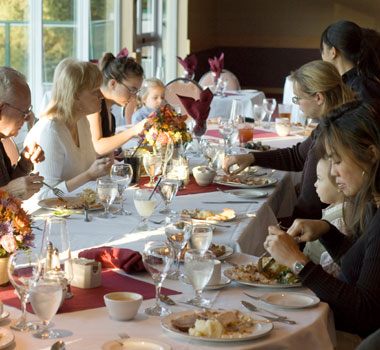 0034 |
他在写报告。 Anh ấy đang viết báo cáo. เขากำลังเขียนรายงาน Está escribiendo un informe. Il écrit un rapport. Sta scrivendo un rapporto. He is writing a report. Hij is een verslag aan het schrijven.  0035 |
歌迷在台下欢呼。 Các cổ động viên đang hò reo bên dưới sân khấu. แฟนๆ กองเชียร์อยู่ด้านล่างเวที Los fans están animando debajo del escenario. Les fans applaudissent sous la scène. I tifosi esultano sotto il palco. The fans are cheering below the stage. De fans juichen onder het podium.  0056 |
小狗趴在地上。 Con chó nhỏ đang nằm trên mặt đất. หมาน้อยนอนอยู่บนพื้น El perrito está tirado en el suelo. Le petit chien est couché sur le sol. Il cagnolino è steso a terra. The little dog is lying on the ground. Het hondje ligt op de grond.  0059 |
在中国,医生也叫大夫。 Ở Trung Quốc, bác sĩ còn được gọi là "daifu". ในประเทศจีน แพทย์จะเรียกว่า "daifu" En China, los médicos también se llaman "daifu". En Chine, les médecins sont aussi appelés "daifu". In Cina, i medici sono anche chiamati "daifu". In China, doctors are also called "daifu". In China worden dokters ook wel "daifu" genoemd.  0062 |
她在记事本上做记录,以便记忆。 Cô ghi chép vào vở để trẻ ghi nhớ. เธอจดบันทึกในสมุดบันทึกเพื่อช่วยให้เธอจำได้ Está tomando notas en su cuaderno para ayudarse a recordar. Elle prend des notes dans son carnet pour s'aider à se souvenir. Prende appunti sul suo taccuino per aiutarla a ricordare. She taking notes in her notebook to help her remember. Ze maakt aantekeningen in haar notitieboekje om haar te helpen herinneren.  0074 |
妳在干什么? Bạn đang làm gì đấy? คุณกำลังทำอะไรอยู่? ¿Qué estás haciendo? Qu'est-ce que tu fais ? Cosa stai facendo? What are you doing? Wat ben je aan het doen?  0080 |
老师站在他身后。 Cô giáo đang đứng sau lưng anh. ครูยืนอยู่ข้างหลังเขา El profesor está de pie detrás de él. Le professeur se tient derrière lui. L'insegnante è in piedi dietro di lui. The teacher is standing behind him. De leraar staat erachter.  0085 |
他们在图书馆里学习。 Họ đang học trong thư viện. พวกเขากำลังเรียนอยู่ในห้องสมุด Están estudiando en la biblioteca. Ils étudient à la bibliothèque. Stanno studiando in biblioteca. They are studying in the library. Ze studeren in de bibliotheek.  0088 |
外面在下雨。 Ngoài trời đang mưa. ข้างนอกฝนตก Fuera está lloviendo. Il pleut dehors. Fuori sta piovendo. It is raining outside. Het regent buiten.  0089 |
妈妈在医院工作。 Mẹ làm việc trong bệnh viện. แม่ทำงานในโรงพยาบาล Mamá trabaja en un hospital. Maman travaille dans un hôpital. La mamma lavora in un ospedale. Mom works in a hospital. Moeder werkt in een ziekenhuis.  0097 |
他们在读一本书。 Họ đang đọc một cuốn sách. พวกเขากำลังอ่านหนังสือ Están leyendo un libro. Ils lisent un livre. Stanno leggendo un libro. They are reading a book. Je leest een boek.  0117 |
现在是几点? Bây giờ là mấy giờ? ตอนนี้กี่โมงแล้ว? ¿Qué hora es ahora? Quelle heure est-il maintenant ? Che ore sono adesso? What time is it now? Hoe laat is het nu?  0123 |
太阳出现在地平线上。 Mặt trời ló dạng ở chân trời. ดวงตะวันปรากฏขึ้นที่ขอบฟ้า El sol apareció en el horizonte. Le soleil est apparu à l'horizon. Il sole apparve all'orizzonte. The sun appeared on the horizon. De zon verscheen aan de horizon.  0124 |
现在是九点。 Bây giờ là chín giờ. ตอนนี้เก้าโมงแล้ว Ya son las nueve. Il est déjà neuf heures. Sono le nove adesso. It is nine o'clock now. Nu is het negen.  0140 |
老爷爷在树林里散步。 Ông già đang đi dạo trong rừng. ชายชรากำลังเดินอยู่ในป่า El viejo está dando un paseo por el bosque. Le vieil homme se promène dans les bois. Il vecchio sta facendo una passeggiata nel bosco. The old man is taking a walk in the woods. De oude man gaat een wandeling maken in het bos.  0152 |
她在写作文。 Cô ấy đang viết một sáng tác. เธอกำลังเขียนเรียงความ Está escribiendo una composición. Elle écrit une composition. Sta scrivendo una composizione. She is writing a composition. Ze schrijft een compositie.  0158 |
我在看英文书。 Tôi đang đọc một cuốn sách tiếng Anh. ฉันกำลังอ่านหนังสือภาษาอังกฤษ Estoy leyendo un libro en inglés. Je lis un livre en anglais. Sto leggendo un libro inglese. I am reading an English book. Ik lees een Engels boek.  0159 |
他在修理机器。 Anh ấy đang sửa máy. เขากำลังซ่อมเครื่อง Está reparando la máquina. Il répare la machine. Sta riparando la macchina. He is repairing the machine. Hij repareert de auto. 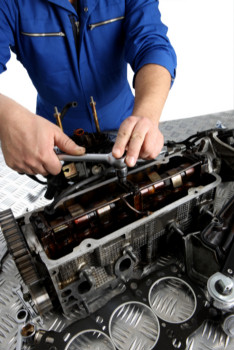 0161 |
现在是10点。 Bây giờ là mười giờ. ตอนนี้สิบโมงแล้ว Ya son las diez. Il est dix heures maintenant. Sono le dieci adesso. It is ten o'clock now. Het is nu tien uur.  0165 |
大家在等公车。 Mọi người đang đợi xe buýt. ผู้คนกำลังรอรถบัส La gente está esperando el autobús. Les gens attendent le bus. Le persone stanno aspettando l'autobus. People are waiting for the bus. Mensen wachten op de bus.  0170 |
他在看报纸的最新消息。 Anh ấy đang đọc tin tức mới nhất trên báo. เขากำลังอ่านข่าวล่าสุดในหนังสือพิมพ์ Está leyendo las últimas noticias del periódico. Il lit les dernières nouvelles dans le journal. Sta leggendo le ultime notizie sul giornale. He is reading the latest news in the paper. Hij leest het laatste nieuws in de krant.  0173 |
我在喝水。 Tôi đang uống nước. ฉันกำลังดื่มน้ำ Estoy bebiendo agua. Je bois de l'eau. Sto bevendo acqua. I am drinking water. Ik drink water.  0188 |
他在看报纸。 Anh ấy đang đọc báo. เขากำลังอ่านหนังสือพิมพ์ Está leyendo un periódico. Il lit un journal. Sta leggendo un giornale. He is reading a newspaper. Hij leest een krant.  0206 |
他在报道新闻。 Anh ấy đang báo cáo tin tức. เขากำลังรายงานข่าว Está informando de las noticias. Il rapporte les nouvelles. Sta riportando la notizia. He is reporting the news. Hij meldt het nieuws.  0207 |
我在电视台工作。 Tôi làm việc tại một đài truyền hình. ฉันทำงานที่สถานีโทรทัศน์ Trabajo en un canal de televisión. Je travaille dans une chaîne de télévision. Lavoro in una stazione televisiva. I work at a television station. Ik werk bij een televisiestation.  0210 |
他在讲台上发表演讲。 Anh ấy đang đứng ở sân khấu phát biểu. เขายืนอยู่ที่แท่นกล่าวสุนทรพจน์ Está de pie en el estrado pronunciando un discurso. Il est sur l'estrade et fait un discours. È in piedi sul palco e fa un discorso. He is standing at the dais making a speech. Hij staat op het podium een toespraak te houden.  0211 |
妈妈在和孩子道别。 Người mẹ đang từ biệt đứa con của mình. แม่กำลังบอกลาลูกของเธอ La madre se despide de su hijo. La mère dit au revoir à son enfant. La madre sta salutando suo figlio. The mother is saying goodbye to her child. De moeder neemt afscheid van haar kind. 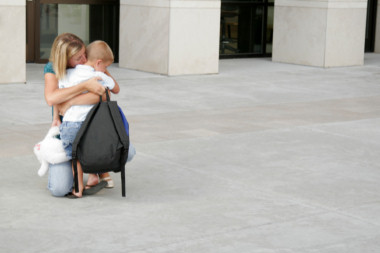 0213 |
她在给朋友写信。 Cô ấy đang viết thư cho bạn bè của cô ấy. เธอกำลังเขียนถึงเพื่อน ๆ ของเธอ Está escribiendo a sus amigos. Elle écrit à ses amis. Sta scrivendo ai suoi amici. She is writing to her friends. Ze schrijft naar haar vrienden. 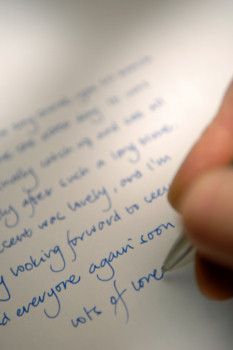 0217 |
她把文件放在桌上。 Cô ấy đặt tập tài liệu lên bàn. เธอวางแฟ้มไว้บนโต๊ะ Pone la carpeta en el escritorio. Elle pose le dossier sur le bureau. Mette la cartella sulla scrivania. She puts the file on the desk. Ze legt het dossier op het bureau.  0230 |
我在做作业。 Tôi đang làm bài tập về nhà của tôi. ฉันกำลังทำการบ้าน. Estoy haciendo los deberes. Je fais mes devoirs. Sto facendo i miei compiti. I am doing my homework. Ik doe mijn huiswerk.  0231 |
我住在美国西部。 Tôi đang sống ở phía Tây nước Mỹ. ฉันอาศัยอยู่ทางตะวันตกของอเมริกา Vivo en el oeste de Estados Unidos. Je vis dans l'ouest de l'Amérique. Vivo nella parte occidentale dell'America. I am living in the west part of America. Ik woon in het westen van Amerika.  0241 |
北方在下雪。 Có tuyết ở phía bắc หิมะกำลังตกในภาคเหนือ Está nevando en el norte. Il neige dans le nord. Nevica a nord. It is snowing in the north. Het sneeuwt in het noorden.  0242 |
我们住在郊外。 Chúng tôi sống ở ngoại ô. เราอาศัยอยู่ในเขตชานเมือง Vivimos en los suburbios. Nous vivons dans la banlieue. Viviamo in periferia. We live in the suburbs. We wonen aan de rand van de stad.  0261 |
她在吃早餐。 Cô ấy đang ăn sáng của mình. เธอกำลังกินข้าวเช้า Está desayunando. Elle prend son petit-déjeuner. Sta facendo colazione. She is eating her breakfast. Ze is aan het ontbijten.  0267 |
我们在吃晚餐。 Chúng tôi đang ăn tối. เรากำลังทานอาหารเย็น Estamos cenando. Nous sommes en train de dîner. Stiamo cenando. We are eating dinner. We zijn aan het eten. 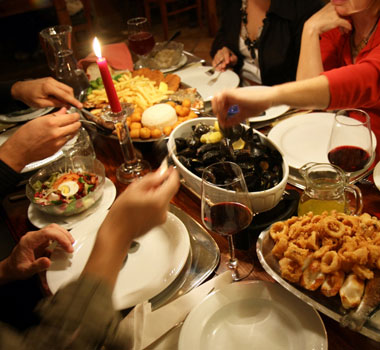 0270 |
他们在服兵役。 Họ phục vụ trong quân đội. พวกเขากำลังรับใช้ในกองทัพ Están sirviendo en el ejército. Ils servent dans l'armée. Stanno servendo nell'esercito. They are serving in the army. Ze dienen in het leger. 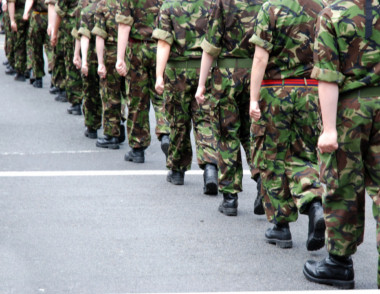 0275 |
农夫在给牛喂食。 Người nông dân đang cho bò ăn. ชาวนากำลังให้อาหารวัว El granjero está alimentando a las vacas. Le fermier donne à manger aux vaches. Il contadino sta dando da mangiare alle mucche. The farmer is feeding the cows. De boer is de koeien aan het voeren. 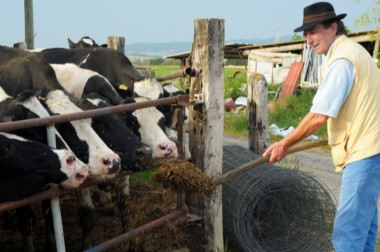 0284 |
她在看地毯的新样品。 Cô ấy đang xem các mẫu thảm mới. เธอกำลังดูตัวอย่างพรมใหม่ Está mirando las nuevas muestras de alfombras. Elle regarde les nouveaux échantillons de tapis. Sta guardando i nuovi campioni di tappeti. She is looking at the new carpet samples. Ze kijkt naar de nieuwe tapijt patronen.  0351 |
车站在正前方。 Bến xe buýt là thẳng phía trước. ป้ายรถเมล์อยู่ตรงข้างหน้า La parada de autobús está justo delante. L'arrêt de bus est juste devant. La fermata dell'autobus è davanti a voi. The bus stop is straight ahead. De bushalte is recht voor je.  0360 |
她在中间。 Cô ấy ở giữa. เธออยู่ตรงกลาง Está en el centro. Elle est au milieu. Lei è nel mezzo. She is in the middle. Het is in het midden.  0386 |
他们在打篮球。 Họ đang chơi bóng rổ. พวกเขากำลังเล่นบาสเก็ตบอล Están jugando al baloncesto. Ils jouent au basket. Stanno giocando a basket. They are playing basketball. Ze spelen basketbal.  0395 |
两个男孩在打架。 Hai cậu bé đang đánh nhau. เด็กชายทั้งสองกำลังต่อสู้ Los dos chicos se están peleando. Les deux garçons se battent. I due ragazzi stanno litigando. The two boys are fighting. De twee jongens vechten.  0396 |
他在给大象洗澡。 Anh ấy đang tắm cho con voi. เขากำลังอาบน้ำให้ช้าง Está bañando al elefante. Il donne un bain à l'éléphant. Sta facendo un bagno all'elefante. He is giving the elephant a bath. Hij wast de olifant.  0397 |
他在查找文件。 Anh ấy đang tìm một tập tin. เขากำลังมองหาไฟล์. Está buscando un archivo. Il cherche un dossier. Sta cercando un file. He is looking for a file. Hij is op zoek naar een dossier.  0407 |
他们在研究世界地图。 Họ đang nghiên cứu bản đồ thế giới. พวกเขากำลังศึกษาแผนที่โลก Están estudiando el mapa del mundo. Ils étudient la carte du monde. Stanno studiando la mappa del mondo. They are studying the world map. Ze bestuderen de kaart van de wereld.  0411 |
她在记单词。 Cô ấy đang ghi nhớ các từ vựng. เธอกำลังท่องคำศัพท์ Está memorizando palabras de vocabulario. Elle mémorise des mots de vocabulaire. Sta memorizzando le parole del vocabolario. She is memorizing vocabulary words. Ze onthoudt de woordenschat.  0434 |
她正在听音乐。 Cô ấy đang nghe nhạc. เธอกำลังฟังเพลง Está escuchando música. Elle écoute de la musique. Lei sta ascoltando della musica. She is listening to music. Ze luistert naar muziek.  0450 |
医生在治疗她的牙病。 Bác sĩ đang điều trị vấn đề răng miệng cho cô ấy. แพทย์กำลังรักษาปัญหาทางทันตกรรมของเธอ El médico está tratando su problema dental. Le docteur traite son problème dentaire. Il dottore sta curando il suo problema ai denti. The doctor is treating her dental problem. De dokter behandelt uw tandprobleem.  0455 |
她正在思考问题。 Cô ấy đang nghĩ. เธอกำลังคิด Está pensando. Elle réfléchit. Sta pensando. She is thinking. Ze denkt na.  0458 |
他正在检查电脑的服务系统。 Anh ta đang kiểm tra hệ thống dịch vụ của máy tính. เขากำลังตรวจสอบระบบบริการของคอมพิวเตอร์ Está comprobando el sistema de servicio del ordenador. Il vérifie le système de maintenance de l'ordinateur. Sta controllando il sistema di servizio del computer. He is checking the computer's service system. Hij controleert het service systeem van de computer.  0459 |
我在这里办公。 Tôi đang lam việc ở đây. ฉันทำงานที่นี่ Estoy trabajando aquí. Je travaille ici. Sto lavorando qui. I am working here. Ik werk hier.  0465 |
大家在月台上等候上车。 Mọi người đang đợi trên sân ga để lên tàu. ทุกคนกำลังรออยู่บนชานชาลาเพื่อขึ้นรถไฟ Todos están esperando en el andén para subir al tren. Tout le monde attend sur le quai pour monter dans le train. Tutti stanno aspettando sul binario per salire sul treno. Everyone is waiting on the platform to board the train. Iedereen wacht op het perron om in de trein te stappen. 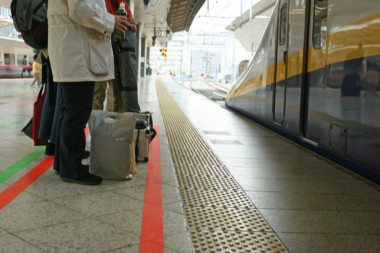 0468 |
她在会上发言。 Cô ấy đã có một bài phát biểu tại cuộc họp. เธอกล่าวสุนทรพจน์ในที่ประชุม Ha pronunciado un discurso en la reunión. Elle a prononcé un discours lors de la réunion. Ha pronunciato un discorso alla riunione. She delivered a speech at the meeting. Ze gaf een toespraak op de conventie.  0469 |
他们在传接力棒。 Họ đang chuyền dùi cui tiếp sức. พวกเขากำลังส่งกระบองรีเลย์ Se están pasando el testigo de los relevos. Ils se passent le relais. Stanno passando il testimone della staffetta. They are passing the relay baton. Je geeft het stokje door. 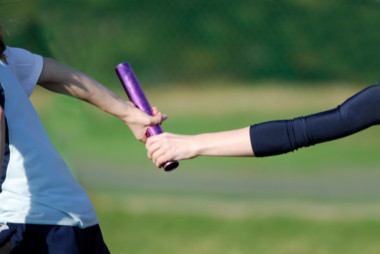 0476 |
他在算数学。 Anh ấy đang làm toán. เขากำลังทำคณิตศาสตร์ Está haciendo matemáticas. Il fait des maths. Sta facendo matematica. He is doing math. Hij doet wiskunde.  0500 |
他们在商量新工作。 Họ đang thảo luận về công việc mới. พวกเขากำลังคุยกันเรื่องงานใหม่ Están discutiendo el nuevo trabajo. Ils discutent du nouveau travail. Stanno discutendo del nuovo lavoro. They are discussing the new job. Ze bespreken de nieuwe taak.  0505 |
他们在谈什么? Bọn họ đang nói gì thế? พวกเขากำลังพูดเกี่ยวกับอะไร? ¿De qué están hablando? De quoi parlent-ils ? Di cosa stanno parlando? What are they talking about? Waar hebben ze het over?  0512 |
他在看名单。 Anh ấy đang xem qua danh sách tên. เขากำลังดูรายชื่อ Está mirando la lista de nombres. Il regarde la liste des noms. Sta guardando l'elenco dei nomi. He is looking through the name list. Hij kijkt naar de lijst met namen.  0513 |
阳光照在树叶上。 Nắng chói chang trên lá cây. พระอาทิตย์กำลังส่องแสงอยู่บนใบไม้ El sol brilla sobre las hojas de los árboles. Le soleil brille sur les feuilles des arbres. Il sole splende sulle foglie degli alberi. The sun is shining on the tree leaves. De zon schijnt op de bladeren van de bomen.  0518 |
朋友们在一起照相。 Những người bạn đang chụp ảnh cùng nhau. เพื่อนๆกำลังถ่ายรูปกันอยู่ Los amigos se están haciendo una foto juntos. Les amis prennent une photo ensemble. Gli amici stanno scattando una foto insieme. The friends are taking a picture together. De vrienden nemen samen een foto.  0519 |
北极熊生活在北极。 Gấu Bắc Cực sống ở Bắc Cực. หมีขั้วโลกอาศัยอยู่ที่ขั้วโลกเหนือ Los osos polares viven en el Polo Norte. Les ours polaires vivent au pôle Nord. Gli orsi polari vivono al Polo Nord. Polar bears live at the North Pole. IJsberen leven op de Noordpool.  0521 |
我们在打包东西。 Chúng tôi đang đóng gói đồ đạc của chúng tôi. เรากำลังแพ็คของ Estamos recogiendo nuestras cosas. Nous emballons nos affaires. Stiamo imballando la nostra roba. We are packing our stuff. We pakken onze spullen.  0529 |
妈妈在包装圣诞礼物。 Mẹ đang gói quà Giáng sinh. แม่กำลังบรรจุของขวัญคริสต์มาส Mamá está empaquetando los regalos de Navidad. Maman emballe les cadeaux de Noël. La mamma sta preparando i regali di Natale. Mom is packing the Christmas presents. Mama is kerstcadeautjes aan het inpakken.  0530 |
士兵们正在操练。 Các binh sĩ đang thực hiện một cuộc diễn tập. ทหารกำลังฝึกซ้อม Los soldados están realizando un simulacro. Les soldats font un exercice. I soldati stanno eseguendo un'esercitazione. The soldiers are performing a drill. De soldaten voeren een oefening uit.  0534 |
他们在嘲笑她。 Họ đang cười nhạo cô ấy. พวกเขากำลังหัวเราะเยาะเธอ Se están riendo de ella. Ils se moquent d'elle. Stanno ridendo di lei. They are laughing at her. Ze lachen hen uit.  0538 |
他在这所学校读书。 Anh ấy học trường này. เขาเข้าเรียนในโรงเรียนนี้ Va a esta escuela. Il fréquente cette école. Frequenta questa scuola. He attends this school. Hij gaat naar deze school.  0554 |
他在画图。 Anh ấy đang vẽ một bức tranh. เขากำลังวาดภาพ Está haciendo un dibujo. Il est en train de faire un dessin. Sta disegnando un'immagine. He is drawing a picture. Hij is een tekening aan het maken. 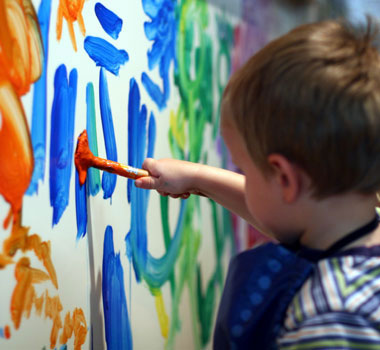 0561 |
她在挑选李子。 Cô ấy đang chọn mận. เธอกำลังเลือกลูกพลัม Está eligiendo ciruelas. Elle choisit des prunes. Sta scegliendo le prugne. She is choosing plums. Ze is pruimen aan het plukken.  0562 |
孩子们在公园里玩得很高兴。 Những đứa trẻ đang chơi vui vẻ trong công viên. เด็ก ๆ กำลังเล่นอย่างมีความสุขในสวนสาธารณะ Los niños están jugando alegremente en el parque. Les enfants jouent joyeusement dans le parc. I bambini giocano allegramente nel parco. The children are playing happily in the park. De kinderen spelen vrolijk in het park.  0565 |
他们一个在做,另一个在看。 Một trong số họ đang làm và người kia đang xem. คนหนึ่งกำลังทำ อีกคนกำลังดูอยู่ Uno de ellos está haciendo y el otro está mirando. L'un d'eux fait et l'autre regarde. Uno di loro sta facendo e l'altro sta guardando. One of them is doing and the other is watching. Een van hen doet het, de ander kijkt toe.  0566 |
他正在接待客户。 Anh ấy đang tiếp khách hàng. เขากำลังรับลูกค้า Está recibiendo clientes. Il reçoit des clients. Riceve clienti. He is receiving clients. Hij ontvangt klanten.  0575 |
他在给汽车加油。 Anh ta đang đổ đầy xăng vào bình. เขากำลังเติมน้ำมันเต็มถัง Está llenando el depósito de gasolina. Il fait le plein d'essence. Sta riempiendo il serbatoio di gas. He is filling the tank with gas. Hij vult de benzinetank.  0578 |
鸽子在空中飞。 Con chim bồ câu đang bay trên bầu trời. นกพิราบกำลังบินอยู่บนท้องฟ้า La paloma está volando en el cielo. La colombe vole dans le ciel. La colomba sta volando nel cielo. The dove is flying in the sky. De duif vliegt in de lucht. 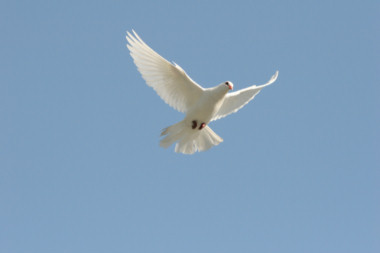 0580 |
出口在左边。 Lối ra ở bên trái. ทางออกอยู่ซ้ายมือ La salida está a la izquierda. La sortie est à gauche. L'uscita è a sinistra. The exit is on the left. De afslag is aan de linkerkant.  0596 |
她在练习弹钢琴。 Cô ấy đang tập đàn. เธอกำลังฝึกเปียโน Está practicando con el piano. Elle s'exerce au piano. Si sta esercitando con il pianoforte. She is practicing the piano. Ze oefent op de piano.  0601 |
他们在考试。 Họ đang tham gia một kỳ thi. พวกเขากำลังสอบ Están haciendo un examen. Ils passent un examen. Stanno sostenendo un esame. They are taking an exam. Je hebt een test.  0614 |
她的车停在路边。 Xe của cô ấy đang đậu bên đường. รถของเธอจอดอยู่ริมถนน Su coche está aparcado junto a la carretera. Sa voiture est garée au bord de la route. La sua macchina è parcheggiata lungo la strada. Her car is parked by the road. Zijn auto staat langs de weg geparkeerd.  0617 |
她在按门铃。 Cô ấy đang bấm chuông cửa. เธอกำลังกดกริ่งประตู Está tocando el timbre. Elle appuie sur la sonnette. Sta premendo il campanello. She is pressing the doorbell. Ze drukt op de belknop.  0621 |
现在是九点一刻。 Bây giờ là chín giờ mười lăm. เก้าโมงกว่าแล้ว Son las nueve y cuarto. Il est neuf heures et quart. Sono le nove e un quarto. It is a quarter past nine. Het is kwart over negen.  0626 |
他们在唱歌。 Họ đang hát. พวกเขากำลังร้องเพลง. Están cantando. Ils chantent. Stanno cantando. They are singing. Ze zingen.  0637 |
这家商店在打折。 Cửa hàng này đang giảm giá. ร้านนี้ลดราคา Esta tienda hace descuentos. Ce magasin fait des remises. Questo negozio offre sconti. This shop is giving discounts. Deze winkel biedt kortingen.  0639 |
她在书店里看书。 Cô ấy đang đọc sách trong một cửa hàng sách. เธอกำลังอ่านหนังสือในร้านหนังสือ Está leyendo un libro en una librería. Elle lit un livre dans une librairie. Sta leggendo un libro in una libreria. She is reading a book in a book shop. Ze leest een boek in een boekwinkel.  0640 |
他把头靠在女朋友的肩上。 Anh ấy đang dựa đầu vào vai bạn gái của mình. เขาเอนศีรษะของเขาบนไหล่ของแฟนสาว Apoya su cabeza en el hombro de su novia. Il appuie sa tête sur l'épaule de sa petite amie. Appoggia la testa sulla spalla della sua ragazza. He is leaning his head on his girlfriend is shoulder. Hij legt zijn hoofd op de schouder van zijn vriendin.  0645 |
医生在给我打预防针。 Bác sĩ đang cho tôi tiêm vaccine. คุณหมอกำลังฉีดวัคซีนให้ฉัน El médico me está vacunando. Le docteur me fait un vaccin. Il dottore mi sta vaccinando. The doctor is giving me a vaccination. De dokter is me aan het inenten.  0646 |
人类在陆地上生活。 Con người sống trên cạn. มนุษย์อาศัยอยู่บนบก Los humanos viven en la tierra. Les humains vivent sur la terre ferme. Gli esseri umani vivono sulla terra. Humans live on land. Mensen leven op het land.  0649 |
我住在二楼。 Tôi sống trên tầng hai. ฉันอาศัยอยู่บนชั้นสอง Vivo en el segundo piso. J'habite au deuxième étage. Abito al secondo piano. I live on the second floor. Ik woon op de tweede verdieping.  0653 |
孩子们在玩玩具。 Những đứa trẻ đang chơi với đồ chơi của chúng. เด็ก ๆ กำลังเล่นกับของเล่นของพวกเขา Los niños están jugando con sus juguetes. Les enfants jouent avec leurs jouets. I bambini stanno giocando con i loro giocattoli. The children are playing with their toys. De kinderen spelen met hun speelgoed.  0659 |
她在练毛笔字。 Cô ấy đang thực hành thư pháp bút lông của Trung Quốc. เธอกำลังฝึกเขียนพู่กันจีน Está practicando caligrafía china con pincel. Elle s'exerce à la calligraphie chinoise au pinceau. Pratica la calligrafia cinese a pennello. She is practicing Chinese brush calligraphy. Ze oefent Chinese kalligrafie met een penseel.  0662 |
大家坐在桌子旁边。 Mọi người đang ngồi vào bàn. ทุกคนนั่งที่โต๊ะ Todos están sentados en la mesa. Tout le monde est assis à la table. Tutti sono seduti a tavola. Everyone is sitting at the table. Iedereen zit aan tafel.  0671 |
我在这所小学任教。 Tôi dạy ở trường tiểu học này. ฉันสอนที่โรงเรียนประถมแห่งนี้ Doy clases en esta escuela primaria. J'enseigne dans cette école primaire. Insegno in questa scuola elementare. I teach at this primary school. Ik geef les op deze basisschool.  0688 |
他在修理空调机。 Anh ấy đang sửa máy lạnh. เขากำลังซ่อมเครื่องปรับอากาศ Está reparando el aire acondicionado. Il répare le climatiseur. Sta riparando il condizionatore d'aria. He is repairing the air-conditioner. Hij is de airconditioner aan het repareren.  0700 |
建筑工人正在修路。 Các công nhân đang xây dựng một con đường. คนงานก่อสร้างกำลังสร้างถนน Los trabajadores de la construcción están construyendo una carretera. Les ouvriers construisent une route. Gli operai stanno costruendo una strada. The construction workers are building a road. De arbeiders bouwen een weg.  0701 |
手机在充电。 Điện thoại di động đang được sạc. กำลังชาร์จโทรศัพท์มือถือ El teléfono móvil se está cargando. Le téléphone portable est en cours de chargement. Il telefono cellulare è in carica. The mobile phone is being charged. De mobiele telefoon wordt op dit moment opgeladen.  0715 |
他在切水果。 Anh ấy đang cắt trái cây. เขากำลังตัดผลไม้ Está cortando la fruta. Il coupe les fruits. Sta tagliando il frutto. He is cutting the fruit. Hij snijdt het fruit.  0724 |
他们在田里辛勤地劳动。 Họ đang làm việc chăm chỉ trên đồng ruộng. พวกเขาทำงานหนักในสนาม Están trabajando duro en el campo. Ils travaillent dur dans les champs. Stanno lavorando duramente sul campo. They are working hard in the field. Ze werken hard in het veld.  0735 |
她在沙滩上留下了一串脚印。 Cô đã để lại dấu chân trên bãi biển. เธอทิ้งรอยเท้าไว้บนชายหาด Ha dejado un rastro de huellas en la playa. Elle a laissé une trace de pas sur la plage. Ha lasciato una scia di impronte sulla spiaggia. She left a trail of footprints on the beach. Ze liet een spoor van voetafdrukken achter op het strand.  0737 |
他在维修机器。 Anh ấy đang sửa máy. เขากำลังซ่อมเครื่อง Está reparando la máquina. Il est en train de réparer la machine. Sta riparando la macchina. He is repairing the machine. Hij repareert de machine.  0751 |
小朋友围在一起种树。 Các em nhỏ xúm quanh trồng cây. เด็กน้อยรวมตัวกันปลูกต้นไม้ Los niños se reunieron para plantar el árbol. Les petits enfants se sont rassemblés pour planter l'arbre. I bambini piccoli si radunarono per piantare l'albero. The little children gathered round to plant the tree. De kinderen komen samen en planten bomen.  0754 |
她们在花园里玩。 Họ đang chơi trong vườn. พวกเขากำลังเล่นอยู่ในสวน Están jugando en el jardín. Ils jouent dans le jardin. Stanno giocando in giardino. They are playing in the garden. Ze spelen in de tuin. 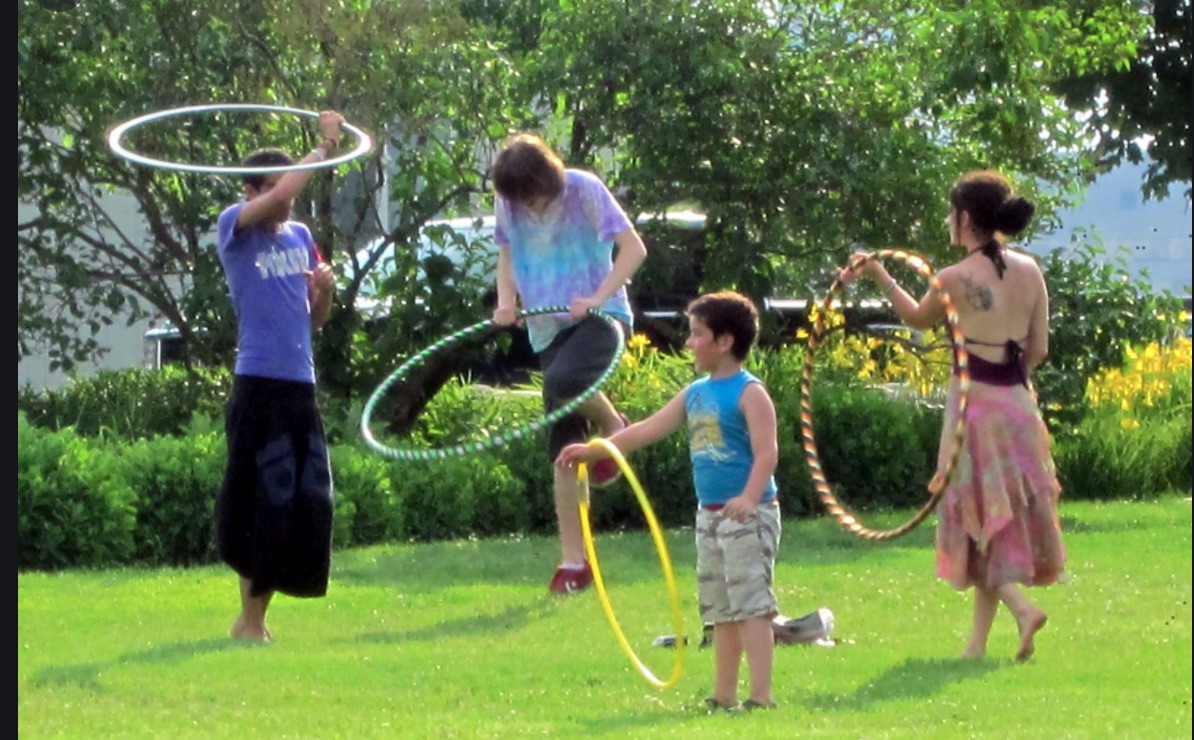 0756 |
他的钱包遗失在板凳上。 Anh ta để quên chiếc ví của mình trên băng ghế. เขาทิ้งกระเป๋าเงินไว้บนม้านั่ง Se ha dejado la cartera en el banco. Il a laissé son portefeuille sur le banc. Ha lasciato il portafoglio in panchina. He left his wallet on the bench. Hij liet zijn portemonnee op de bank liggen. 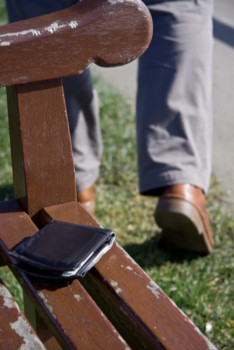 0766 |
它们之间存在明显的差别。 Có một sự khác biệt rõ ràng giữa chúng. มีความแตกต่างที่ชัดเจนระหว่างพวกเขา Hay una diferencia evidente entre ellos. Il y a une différence évidente entre eux. C'è un'ovvia differenza tra loro. There is an obvious difference between them. Er is een duidelijk verschil tussen hen. 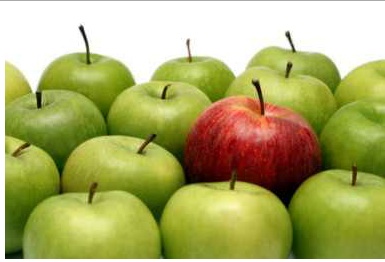 0769 |
她在害怕什么? Cô ấy sợ điều gì? เธอกลัวอะไร? ¿De qué tiene miedo? De quoi a-t-elle peur ? Di cosa ha paura? What is she afraid of? Waar is ze bang voor?  0773 |
她在观察昆虫。 Cô ấy đang quan sát những con côn trùng. เธอกำลังสังเกตแมลง Está observando a los insectos. Elle observe les insectes. Sta osservando gli insetti. She is observing the insects. Ze kijkt naar insecten.  0775 |
导游在前面带路。 Người dẫn đường ở phía trước dẫn đường cho chúng ta. มัคคุเทศก์อยู่ข้างหน้าเราเป็นผู้นำทาง El guía está delante de nosotros dirigiendo el camino. Le guide est devant nous et nous montre le chemin. La guida è di fronte a noi e ci fa strada. The guide is in front of us leading the way. De gids staat voor ons en wijst ons de weg.  0779 |
他在外贸局工作。 Anh ấy đang làm việc trong văn phòng ngoại thương. เขาทำงานในสำนักงานการค้าต่างประเทศ Trabaja en la oficina de comercio exterior. Il travaille au bureau du commerce extérieur. Lavora nell'ufficio del commercio estero. He is working in the foreign trade office. Hij werkt op het kantoor van buitenlandse handel.  0781 |
我居住在纽约。 Tôi sống ở New York. ฉันอาศัยอยู่ในนิวยอร์ก Vivo en Nueva York. J'habite à New York. Vivo a New York. I live in New York. Ik woon in New York.  0782 |
爬山虎巴在墙上。 Cây thường xuân bám trên tường. ไม้เลื้อยเกาะติดกับผนัง La hiedra se aferra a la pared. Le lierre s'accroche au mur. L'edera è aggrappata al muro. The ivy is clinging to the wall. De klimop kleeft aan de muur.  0784 |
他在测量木板的长度。 Anh ta đang đo chiều dài của tấm gỗ. เขากำลังวัดความยาวของกระดานไม้ Está midiendo la longitud de la tabla de madera. Il mesure la longueur de la planche de bois. Sta misurando la lunghezza della tavola di legno. He is measuring the length of the wooden board. Het meet de lengte van de houten plank.  0788 |
他们正在建造房子。 Họ đang xây dựng một ngôi nhà. พวกเขากำลังสร้างบ้าน Están construyendo una casa. Ils construisent une maison. Stanno costruendo una casa. They are building a house. Ze bouwen een huis.  0793 |
那个小朋友在弄什么? Con nhỏ đó đang làm gì vậy? เด็กน้อยคนนั้นกำลังทำอะไร? ¿Qué está haciendo ese niño pequeño? Que fait ce petit enfant ? Cosa sta facendo quel bambino piccolo? What is that small child doing? Wat is de kleine jongen aan het doen?  0795 |
她的影子印在沙滩上。 Bóng của cô ấy trải đầy trên bãi biển เงาของเธอทอดยาวไปทั่วชายหาด Su sombra se extiende por la playa. Son ombre s'étendait sur la plage. La sua ombra si stendeva sulla spiaggia. Her shadow stretched out across the beach. Haar schaduw strekte zich uit over het strand.  0797 |
我在纽约待了半年。 Tôi đã sống ở New York được nửa năm. ฉันอาศัยอยู่ในนิวยอร์กมาครึ่งปีแล้ว He vivido en Nueva York durante medio año. J'ai vécu à New York pendant six mois. Vivo a New York da sei mesi. I have lived in New York for half a year. Ik woon al zes maanden in New York.  0799 |
她在等朋友的答复。 Cô ấy đang đợi câu trả lời của bạn mình. เธอกำลังรอคำตอบจากเพื่อนของเธอ Está esperando la respuesta de su amigo. Elle attend la réponse de son ami. Sta aspettando la risposta della sua amica. She is waiting for her friend's reply. Ze wacht op het antwoord van haar vriend.  0801 |
他在报告上做批示。 Anh ấy đang viết bình luận và hướng dẫn trên báo cáo. เขากำลังเขียนความคิดเห็นและคำแนะนำในรายงาน Está escribiendo comentarios e instrucciones en el informe. Il écrit des commentaires et des instructions sur le rapport. Sta scrivendo commenti e istruzioni sul rapporto. He is writing comments and instructions on the report. Hij schrijft commentaar en instructies op het rapport.  0816 |
他在投票。 Anh ấy đang bỏ phiếu. เขากำลังลงคะแนนเสียง Está votando. Il est en train de voter. Sta votando. He is casting a ballot. Hij stemt.  0819 |
包括我在内,我们组有五个人。 Có năm người trong nhóm của chúng tôi bao gồm cả tôi. มีห้าคนในทีมของเรารวมทั้งฉันด้วย Hay cinco personas en nuestro equipo, incluyéndome a mí. Notre équipe compte cinq personnes, dont moi. Ci sono cinque persone nel nostro team, me compreso. There are five people in our team including me. Ons team bestaat uit vijf mensen, inclusief mijzelf.  0820 |
他在推车。 Anh ấy đang đẩy xe. เขากำลังผลักรถ Está empujando el coche. Il pousse la voiture. Sta spingendo la macchina. He is pushing the car. Hij duwt de auto.  0826 |
他在向我们推销保险。 Anh ấy đang bán bảo hiểm cho chúng tôi. เขาขายประกันให้เรา Nos está vendiendo un seguro. Il nous vend des assurances. Ci vende un'assicurazione. He is selling insurance to us. Hij verkoopt ons verzekeringen.  0827 |
现在是六点整。 Bây giờ là đúng sáu giờ. ตรงเวลาหกโมงเย็น Son exactamente las seis. Il est exactement six heures. Sono esattamente le sei. It is exactly six o'clock. Het is nu precies 6:00.  0836 |
法官在断案。 Thẩm phán đang quyết định một vụ án. ผู้พิพากษากำลังตัดสินคดี El juez está decidiendo un caso. Le juge est en train de statuer sur une affaire. Il giudice sta decidendo un caso. The judge is deciding a case. De rechter beslist over een zaak.  0840 |
他们在网上查资料。 Họ đang tìm kiếm một số thông tin trên Internet. พวกเขากำลังมองหาข้อมูลบางอย่างบนอินเทอร์เน็ต Están buscando información en Internet. Ils cherchent des informations sur Internet. Stanno cercando alcune informazioni su Internet. They are looking for some information on the Internet. Je zoekt wat informatie op het internet.  0851 |
他们在讨论这个案子。 Họ đang thảo luận về vụ việc. พวกเขากำลังหารือเกี่ยวกับกรณีนี้ Están discutiendo el caso. Ils discutent de l'affaire. Stanno discutendo il caso. They are discussing the case. Ze bespreken de zaak.  0854 |
她在街边派发资料。 Cô ấy đang ở vỉa hè phân phát tài liệu. เธออยู่บนทางเท้าแจกจ่ายวัสดุ Ella está en la acera distribuyendo materiales. Elle est sur le trottoir et distribue des documents. È sul marciapiede a distribuire materiali. She is on the sidewalk distributing materials. Ze verspreidt info op de stoep.  0870 |
太阳消失在云层后面。 Mặt trời khuất sau những đám mây. พระอาทิตย์กำลังลับหายไปหลังก้อนเมฆ El sol está desapareciendo detrás de las nubes. Le soleil disparaît derrière les nuages. Il sole sta scomparendo dietro le nuvole. The sun is disappearing behind the clouds. De zon verdwijnt achter de wolken.  0872 |
她在家看书消磨时间。 Cô ấy đang đọc sách ở nhà để giết thời gian. เธอกำลังอ่านหนังสือที่บ้านเพื่อฆ่าเวลา Está leyendo en casa para pasar el tiempo. Elle lit à la maison pour passer le temps. Sta leggendo a casa per passare il tempo. She is reading at home to pass the time. Ze is thuis aan het lezen om de tijd te doden.  0873 |
她在温习功课。 Cô ấy đang xem lại bài học của mình. เธอกำลังทบทวนบทเรียนของเธอ Está repasando sus lecciones. Elle révise ses leçons. Sta rivedendo le sue lezioni. She is reviewing her lessons. Ze herhaalt haar les teksten.  0878 |
地球在不断地演变。 Trái đất không ngừng phát triển. โลกกำลังพัฒนา La tierra está en constante evolución. La terre est en constante évolution. La terra è in continua evoluzione. The earth is constantly evolving. De aarde is voortdurend in ontwikkeling.  0880 |
他们在争吵。 Họ đang tranh luận. พวกเขากำลังโต้เถียง Están discutiendo. Ils se disputent. Stanno discutendo. They are arguing. Ze maken ruzie.  0886 |
儿子独自一人在玩。 Con trai tôi đang chơi một mình. ลูกชายของฉันเล่นคนเดียว Mi hijo está jugando solo. Mon fils joue tout seul. Mio figlio sta giocando da solo. My son is playing by himself. Mijn zoon speelt alleen.  0890 |
他们在踢足球。 Họ đang chơi bóng đá. พวกเขากำลังเล่นฟุตบอล. Están jugando al fútbol. Ils jouent au football. Loro stanno giocando a calcio. They are playing soccer. Ze spelen voetbal.  0892 |
妈妈在整理房间。 Mẹ tôi đang thu dọn phòng. แม่กำลังทำความสะอาดห้อง Mi madre está ordenando la habitación. Ma mère est en train de ranger la chambre. Mia madre sta riordinando la stanza. My mom is tidying the room. Mijn moeder is de kamer aan het schoonmaken.  0894 |
小朋友在画画。 Những đứa trẻ đang vẽ. เด็กน้อยกำลังวาดรูป Los niños pequeños están dibujando. Les petits enfants dessinent. I bambini piccoli stanno disegnando. The little kids are drawing. De kleine kinderen zijn aan het schilderen.  0898 |
我在削苹果皮。 Tôi đang gọt một quả táo. ฉันกำลังปอกแอปเปิ้ล Estoy pelando una manzana. Je suis en train de peler une pomme. Sto sbucciando una mela. I am peeling an apple. Ik schil een appel. 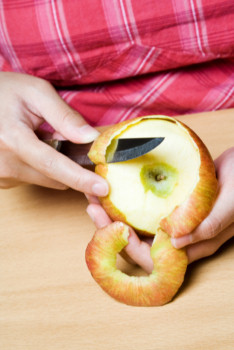 0902 |
她在称体重。 Cô ấy đang cân nhắc chính mình. เธอกำลังชั่งน้ำหนักตัวเอง Se está pesando. Elle se pèse. Si sta pesando. She is weighing herself. Ze weegt zichzelf.  0913 |
她在做化学研究。 Cô ấy đang tiến hành nghiên cứu hóa học. เธอกำลังทำการวิจัยทางเคมี Está llevando a cabo una investigación química. Elle fait des recherches en chimie. Sta conducendo ricerche chimiche. She is conducting chemical research. Ze doet chemisch onderzoek.  0914 |
我在看这本书的第一章。 Tôi đang đọc chương đầu tiên của cuốn sách này. ฉันกำลังอ่านบทแรกของหนังสือเล่มนี้ Estoy leyendo el primer capítulo de este libro. Je lis le premier chapitre de ce livre. Sto leggendo il primo capitolo di questo libro. I am reading the first chapter of this book. Ik ben het eerste hoofdstuk van dit boek aan het lezen.  0917 |
他们在研究新的计策。 Họ đang đề ra một kế hoạch / chiến lược mới. พวกเขากำลังพัฒนาแผน/กลยุทธ์ใหม่ Están diseñando un nuevo plan/estrategia. Ils élaborent un nouveau plan/stratégie. Stanno elaborando un nuovo piano / strategia. They are devising a new plan/strategy. Zij ontwikkelen een nieuw plan / een nieuwe strategie.  0919 |
他在检查电脑系统。 Anh ta đang kiểm tra hệ thống máy tính. เขากำลังตรวจสอบระบบคอมพิวเตอร์ Está comprobando el sistema informático. Il vérifie le système informatique. Sta controllando il sistema informatico. He is checking the computer system. Hij controleert het computersysteem.  0921 |
我和朋友约在这里见面。 Tôi và bạn tôi đã đồng ý gặp nhau ở đây. ฉันกับเพื่อนตกลงที่จะพบกันที่นี่ Mi amigo y yo hemos quedado aquí. Mon ami et moi avons convenu de nous rencontrer ici. Io e il mio amico abbiamo deciso di incontrarci qui. My friend and I have agreed to meet here. Mijn vriend en ik spraken af hier af te spreken. 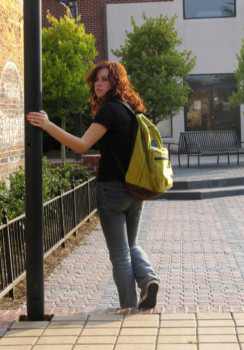 0926 |
我在超级市场。 Tôi đang ở trong siêu thị. ฉันอยู่ในซูเปอร์มาร์เก็ต Estoy en el supermercado. Je suis au supermarché. Sono al supermercato. I am in the supermarket. Ik ben in de supermarkt.  0927 |
医生在研究人的大脑。 Bác sĩ đang nghiên cứu não người. แพทย์กำลังศึกษาสมองของมนุษย์ El doctor está estudiando el cerebro humano. Le docteur étudie le cerveau humain. Il dottore sta studiando il cervello umano. The doctor is studying the human brain. De dokter bestudeert het menselijk brein. 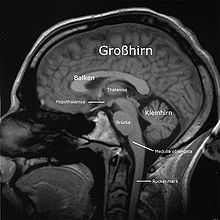 0946 |
他在电脑上安装什么? Anh ta đang cài cái gì trên máy tính vậy? เขาติดตั้งอะไรในคอมพิวเตอร์ ¿Qué está instalando en el ordenador? Qu'est-ce qu'il installe sur l'ordinateur ? Cosa sta installando sul computer? What is he installing on the computer? Wat installeert hij op de computer?  0958 |
他在制造面包。 Anh ấy đang sản xuất ổ bánh mì. เขากำลังผลิตขนมปังก้อน Está fabricando barras de pan. Il fabrique des miches de pain. Produce pagnotte di pane. He is manufacturing bread loaves. Hij maakt brood. 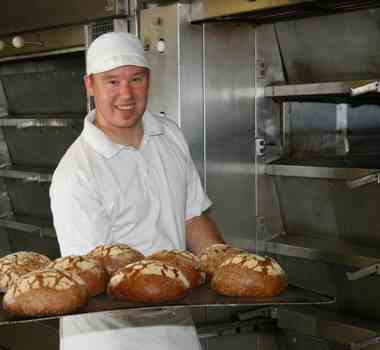 0960 |
他在进行视力测验。 Anh ấy đang kiểm tra thị lực. เขากำลังทดสอบการมองเห็น Está tomando una prueba de la vista. Il passe un test de vision. Sta facendo un test della vista. He is taking a vision test. Hij doet een oogtest.  0965 |
小男孩趴在地上观察昆虫。 Cậu bé đang nằm trên mặt đất quan sát một con côn trùng. เด็กน้อยนอนดูแมลงอยู่บนพื้น El niño está tumbado en el suelo observando un insecto. Le petit garçon est allongé sur le sol et observe un insecte. Il bambino è sdraiato a terra e osserva un insetto. The little boy is lying on the ground observing an insect. De kleine jongen ligt op de grond en kijkt naar een insect.  0966 |
我在网上订了一张机票。 Tôi đã đặt vé máy bay trên mạng. ฉันจองตั๋วเครื่องบินทางอินเทอร์เน็ต He reservado un billete de avión por Internet. J'ai réservé un billet d'avion sur Internet. Ho prenotato un biglietto aereo su Internet. I have booked a plane ticket on the internet. Ik heb een vliegticket geboekt op het internet.  0972 |
他在计算费用。 Anh ta đang tính toán các khoản chi tiêu của mình. เขากำลังคำนวณค่าใช้จ่ายของเขา Está calculando sus gastos. Il calcule ses dépenses. Sta calcolando le sue spese. He is calculating his expenses. Hij berekent zijn uitgaven.  0973 |
他在批评员工。 Anh ấy đang chỉ trích nhân viên của mình. เขากำลังวิพากษ์วิจารณ์พนักงานของเขา Está criticando a su personal. Il critique son personnel. Critica il suo staff. He is criticizing his staff. Hij bekritiseert zijn personeel.  0975 |
同事们在讨论方案。 Các đồng nghiệp đang thảo luận về một dự án. เพื่อนร่วมงานกำลังหารือเกี่ยวกับโครงการ Los compañeros están discutiendo un proyecto. Les collègues discutent d'un projet. I colleghi stanno discutendo un progetto. The colleagues are discussing a project. Collega's zijn een project aan het bespreken.  0979 |
他在说明自己的理论。 Anh ấy đang giải thích lý thuyết của mình. เขากำลังอธิบายทฤษฎีของเขา Está explicando su teoría. Il explique sa théorie. Sta spiegando la sua teoria. He is explaining his theory. Hij legt zijn theorie uit.  0980 |
我在读书。 Tôi đang đọc. ฉันกำลังอ่าน. Estoy leyendo. Je suis en train de lire. Sto leggendo. I am reading. Ik ben aan het lezen.  0987 |
她在挑选番茄。 Cô ấy đang chọn cà chua. เธอกำลังเลือกมะเขือเทศ Está eligiendo tomates. Elle choisit des tomates. Sta scegliendo i pomodori. She is choosing tomatoes. Ze kiest tomaten uit. 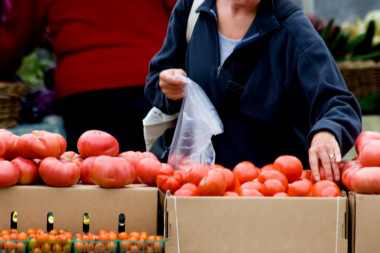 1010 |
他正在除雪。 Anh ấy đang gỡ tuyết. เขากำลังเอาหิมะออก Está quitando la nieve. Il enlève la neige. Sta togliendo la neve. He is removing the snow. Hij is sneeuw aan het scheppen.  1015 |
妈妈正在除草。 Mẹ tôi đang làm cỏ. แม่ของฉันกำลังกำจัดวัชพืช Mi madre está desbrozando. Ma mère désherbe. Mia madre sta diserbando. My mom is weeding. Mijn moeder is aan het wieden. 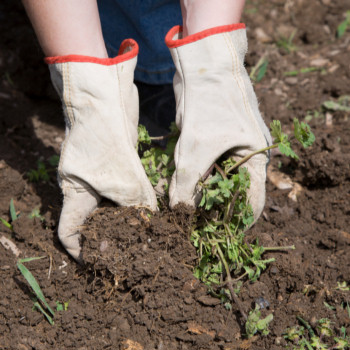 1016 |
我在排队买票。 Tôi đang xếp hàng để mua vé. ฉันกำลังต่อคิวซื้อตั๋ว Estoy en la cola para comprar una entrada. Je fais la queue pour acheter un billet. Sono in fila per acquistare un biglietto. I am in line to buy a ticket. Ik ga in de rij staan om een kaartje te kopen. 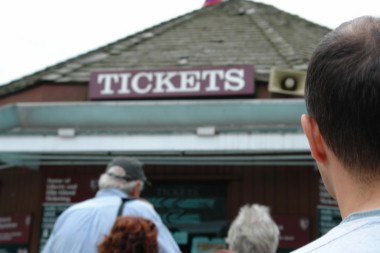 1020 |
大家聚集在一起。 Mọi người tập trung đông đủ. ทุกคนรวมตัวกัน Todos se han reunido. Tout le monde s'est rassemblé. Tutti si sono riuniti. Everyone gathered together. Iedereen komt samen.  1025 |
他们在讨论一个项目。 Họ đang thảo luận về một dự án. พวกเขากำลังหารือเกี่ยวกับโครงการ Están discutiendo un proyecto. Ils discutent d'un projet. Stanno discutendo un progetto. They are discussing a project. Ze bespreken een project. 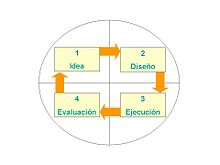 1037 |
士兵在执行一项任务。 Những người lính đang làm nhiệm vụ. ทหารอยู่ในภารกิจ Los soldados están en una misión. Les soldats sont en mission. I soldati sono in missione. The soldiers are on a mission. De soldaten zijn op een missie.  1038 |
她正在做实验。 Cô ấy đang tiến hành một cuộc thử nghiệm. เธอกำลังทำการทดลอง Está realizando un experimento. Elle mène une expérience. Sta conducendo un esperimento. She is conducting an experiment. Ze voert een experiment uit. 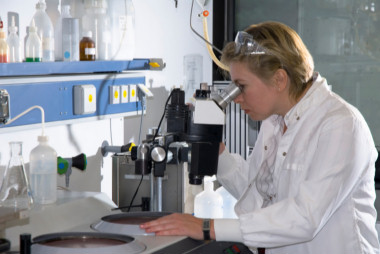 1044 |
她在用毛线织围巾。 Cô ấy đang đan một chiếc khăn từ sợi. เธอกำลังถักผ้าพันคอจากเส้นด้าย Está tejiendo una bufanda de hilo. Elle tricote une écharpe avec de la laine. Sta lavorando a maglia una sciarpa di filo. She is knitting a scarf out of yarn. Ze breit een sjaal van garen. 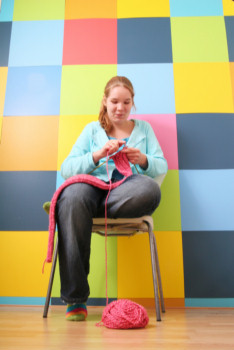 1060 |
他在调节音频设备。 Anh ấy đang điều chỉnh thiết bị âm thanh. เขากำลังปรับแต่งเครื่องเสียง Está ajustando el equipo de audio. Il règle l'équipement audio. Sta aggiustando l'attrezzatura audio. He is adjusting the audio equipment. Hij is de geluidsinstallatie aan het afstellen.  1061 |
现在时兴染发。 Tóc nhuộm đã trở thành mốt bây giờ. ผมที่กำลังจะตายกลายเป็นแฟชั่นไปแล้ว El pelo teñido se ha puesto de moda. Se teindre les cheveux est devenu à la mode maintenant. La morte dei capelli è diventata di moda ora. Dying hair has become fashionable now. Haar verven is nu in de mode.  1067 |
明星在人群中很显眼。 Một ngôi sao nổi bật trong đám đông. ดวงดาวโดดเด่นท่ามกลางฝูงชน Una estrella destaca entre la multitud. Une étoile se détache dans la foule. Una stella spicca tra la folla. A star stands out in the crowd. Een ster valt op in de menigte.  1078 |
士兵在列队操练。 Các chiến sĩ đang luyện tập theo đội hình. ทหารกำลังฝึกในรูปแบบ Los soldados se están entrenando en formación. Les soldats s'entraînent en formation. I soldati si stanno addestrando in formazione. The soldiers are training in formation. De soldaten trainen in rangen.  1083 |
他在耐心地等待。 Anh ấy đang kiên nhẫn chờ đợi. เขากำลังรออย่างอดทน Está esperando pacientemente. Il attend patiemment. Sta aspettando pazientemente. He is waiting patiently. Hij wacht geduldig.  1086 |
我在院子里种了一棵树。 Tôi đã trồng một cái cây trong sân nhà. ฉันปลูกต้นไม้ในบ้านของฉัน He plantado un árbol en mi jardín. J'ai planté un arbre dans mon jardin. Ho piantato un albero nel mio cortile. I have planted a tree in my yard. Ik heb een boom in mijn tuin geplant. 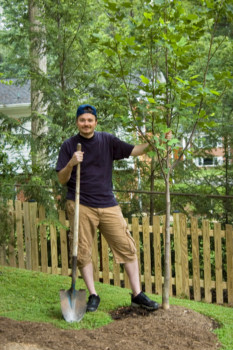 1089 |
她在做深呼吸。 Cô ấy đang thở sâu. เธอกำลังหายใจเข้าลึกๆ Está haciendo respiraciones profundas. Elle respire profondément. Sta facendo respiri profondi. She is doing deep breathing. Ze haalt diep adem.  1097 |
临终前,儿女都不在他身边。 Trước khi chết, các con của ông không ở bên cạnh ông. ลูก ๆ ของเขาไม่ได้อยู่กับเขาที่เตียงมรณะของเขา Sus hijos no estaban con él en su lecho de muerte. Ses enfants n'étaient pas avec lui sur son lit de mort. I suoi figli non erano con lui sul letto di morte. His children were not with him at his deathbed. Zijn kinderen waren niet bij hem op zijn sterfbed. 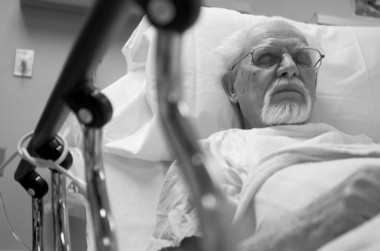 1104 |
这家商店正在营业中。 Cửa hàng này hiện đã mở cửa. ร้านนี้เปิดทำการแล้ว Esta tienda ya está abierta al público. Ce magasin est maintenant ouvert. Questo negozio è ora aperto per affari. This shop is now open for business. Deze winkel is nu open.  1115 |
他在央求妻子的原谅。 Anh ta đang cầu xin vợ tha thứ. เขากำลังขอการให้อภัยจากภรรยาของเขา Le está pidiendo perdón a su esposa. Il demande pardon à sa femme. Sta chiedendo perdono a sua moglie. He is begging his wife for forgiveness. Hij vraagt zijn vrouw om hem te vergeven.  1121 |
他在给顾客介绍新车。 Anh ta đang cho khách hàng xem một chiếc xe hơi mới. เขากำลังแสดงรถใหม่ให้กับลูกค้าของเขา Está enseñando un coche nuevo a su cliente. Il montre une nouvelle voiture à son client. Sta mostrando una nuova macchina al suo cliente. He is showing a new car to his client. Hij laat zijn klant een nieuwe auto zien.  1123 |
他坐在台阶上看书。 Anh ấy đang ngồi trên bậc thềm, đọc sách. เขานั่งอ่านอยู่บนบันได Está sentado en la escalera, leyendo. Il est assis sur les marches, il lit. È seduto sui gradini e legge. He is sitting on the steps, reading. Hij zit op de trap en leest.  1124 |
他在编篮子。 Anh ấy đang đan rổ. เขากำลังทอตะกร้า Está tejiendo una cesta. Il tresse un panier. Sta tessendo un cestino. He is weaving a basket. Hij is een mand aan het weven.  1125 |
她工作之余顺便在巴黎游玩。 Cô ấy đi du lịch đến Paris trong thời gian rảnh rỗi. เธอเดินทางไปปารีสเมื่อมีเวลาว่างจากการทำงาน Viaja a París cuando tiene tiempo libre en el trabajo. Elle voyage à Paris quand elle a du temps libre. Si reca a Parigi quando ottiene una pausa dal lavoro. She travels to Paris when she gets time off from work. Ze reist naar Parijs als ze vrij heeft.  1128 |
他在练习射击。 Anh ấy đang tập bắn súng. เขากำลังฝึกยิง Está practicando el tiro. Il s'entraîne au tir. Si sta esercitando a sparare. He is practicing shooting. Hij is aan het oefenen met schieten. 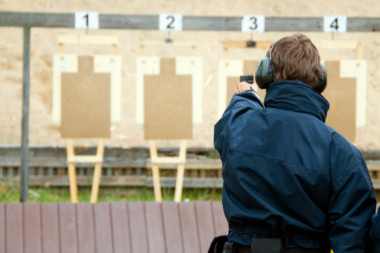 1150 |
孩子们在草地上玩。 Những đứa trẻ đang chơi trên bãi cỏ. เด็กๆ กำลังเล่นอยู่บนพื้นหญ้า Los niños están jugando en la hierba. Les enfants jouent sur l'herbe. I bambini giocano sull'erba. The children are playing on the grass. De kinderen spelen in de wei.  1162 |
她在录音。 Cô ấy đang ghi âm. เธอกำลังบันทึก Está grabando. Elle enregistre. Sta registrando. She is recording. Ze neemt op.  1167 |
她在封纸箱。 Cô ấy đang niêm phong hộp các tông. เธอกำลังปิดผนึกกล่องกระดาษแข็ง Ella está sellando la caja de cartón. Elle scelle la boîte en carton. Sta sigillando la scatola di cartone. She is sealing the cardboard box. Ze sluit de doos.  1179 |
他们在看电视剧。 Họ đang xem một bộ phim truyền hình. พวกเขากำลังดูละครโทรทัศน์ Están viendo una serie de televisión. Ils regardent un feuilleton télévisé. Stanno guardando un dramma televisivo. They are watching a TV drama. Ze kijken naar een tv-film.  1181 |
他们在礼堂开会。 Họ đang có một cuộc họp trong khán phòng. พวกเขากำลังประชุมกันที่หอประชุม Tienen una reunión en el auditorio. Ils ont une réunion dans l'auditorium. Hanno una riunione nell'auditorium. They are having a meeting in the auditorium. Ze hebben een vergadering in de collegezaal.  1186 |
正在下着雪。 Tuyết đang rơi. หิมะกำลังตก. Está nevando. Il neige. Sta nevicando. It is snowing. Het sneeuwt.  1189 |
他在制作飞机模型。 Anh ấy đang làm một chiếc máy bay mô hình. เขากำลังทำเครื่องบินจำลอง Está haciendo una maqueta de avión. Il fabrique une maquette d'avion. Sta realizzando un modellino di aeroplano. He is making a model plane. Hij maakt een modelvliegtuig.  1193 |
他们在研究目前的状况。 Họ đang nghiên cứu tình hình hiện tại. พวกเขากำลังศึกษาสถานการณ์ปัจจุบัน Están estudiando la situación actual. Ils étudient la situation actuelle. Stanno studiando la situazione attuale. They are studying the present situation. Zij onderzoeken de huidige situatie.  1195 |
她把弟弟搂在怀里。 Cô ấy đang ôm em trai của mình trong vòng tay của mình. เธอกำลังอุ้มน้องชายของเธอไว้ในอ้อมแขนของเธอ Tiene a su hermano pequeño en brazos. Elle tient son petit frère dans ses bras. Tiene il fratello minore tra le braccia. She is holding her younger brother in her arms. Ze houdt haar jongere broer in haar armen.  1203 |
她把礼物置在头顶。 Cô ấy đội món quà lên đầu. เธอวางของขวัญไว้บนหัวของเธอ Se puso el regalo en la cabeza. Elle a mis le cadeau sur sa tête. Si è messa il regalo in testa. She put the gift on her head. Ze zette het cadeau op haar hoofd.  1214 |
警方在街上设置了路障。 Cảnh sát đã dựng rào chắn trên đường phố. ตำรวจได้ตั้งเครื่องกีดขวางบนถนน La policía ha colocado barricadas en la calle. La police a installé des barricades dans la rue. La polizia ha allestito barricate in strada. The police have set up barricades in the street. De politie heeft barricades opgeworpen in de straat.  1215 |
他们在讨论问题。 Họ đang thảo luận về một số câu hỏi. พวกเขากำลังหารือเกี่ยวกับคำถามบางอย่าง Están discutiendo algunas cuestiones. Ils discutent de certaines questions. Stanno discutendo alcune domande. They are discussing some questions. Ze bespreken enkele vragen.  1229 |
她在抽烟。 Cô ấy đang hút thuốc. เธอกำลังสูบบุหรี่ Ella está fumando. Elle fume. Sta fumando. She is smoking. Ze is aan het roken.  1231 |
她在工作中犯错了。 Cô ấy đã mắc sai lầm trong công việc. เธอทำผิดพลาดในที่ทำงาน Ella cometió un error en el trabajo. Elle a fait une erreur au travail. Ha commesso un errore sul lavoro. She made a mistake at work. Ze heeft een fout gemaakt in haar werk.  1241 |
我被困在路上了。 Tôi đang bị mắc kẹt trên đường. ฉันติดอยู่บนถนน Me he quedado tirado en la carretera. Je suis bloqué sur la route. Sono bloccato sulla strada. I am stranded on the road. Ik zit vast op straat.  1244 |
她们在玩纸牌。 Họ đang chơi bài. พวกเขากำลังเล่นไพ่ Están jugando a las cartas. Ils jouent aux cartes. Stanno giocando a carte. They are playing cards. Het zijn speelkaarten.  1245 |
树叶掉在地上。 Cây lá đã rụng xuống đất. ใบไม้ร่วงหล่นลงพื้น Las hojas del árbol han caído al suelo. Les feuilles de l'arbre sont tombées sur le sol. Le foglie degli alberi sono cadute a terra. The tree leaves have fallen to the ground. De bladeren zijn op de grond gevallen.  1249 |
她在对我招手。 Cô ấy đang vẫy tay với tôi. เธอกำลังโบกมือให้ฉัน Ella me saluda. Elle me fait signe. Mi sta salutando. She is waving to me. Ze wenkt me.  1252 |
他在朝阳时分出发。 Anh lên đường với ánh nắng sớm mai. เขาออกเดินทางพร้อมกับแสงแดดยามเช้า Sale con el sol de la mañana. Il se met en route avec le soleil matinal. Si mette in viaggio con il sole del primo mattino. He sets out with the early morning sun. Hij vertrekt met de vroege ochtendzon.  1257 |
她在清扫电灯。 Cô ấy đang lau đèn. เธอทำความสะอาดโคมไฟ Limpia las lámparas. Elle nettoie les lampes. Pulisce le lampade. She is cleaning the lights. Ze maakt de lampen schoon.  1269 |
电影正在放映中。 Bộ phim đang chạy ngay bây giờ. ภาพยนตร์เรื่องนี้กำลังดำเนินการอยู่ La película está en marcha ahora mismo. Le film est en cours. Il film è in onda proprio ora. The film is running right now. De film draait op dit moment.  1285 |
双方在会议厅签约。 Cả hai bên đang ký một thỏa thuận trong hội trường. ทั้งสองฝ่ายกำลังลงนามในข้อตกลงในห้องประชุม Ambas partes están firmando un acuerdo en la sala de reuniones. Les deux parties signent un accord dans la salle de réunion. Entrambe le parti stanno firmando un accordo nella sala riunioni. Both sides are signing an agreement in the meeting hall. Beide partijen tekenen een overeenkomst in de rechtszaal.  1293 |
我在洗盘子。 Tôi đang rửa đĩa. ฉันกำลังล้างจาน Estoy lavando los platos. Je lave les assiettes. Sto lavando i piatti. I am washing the plates. Ik zal de borden afwassen. 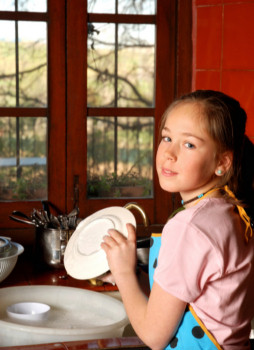 1306 |
孩子们在草地上互相追逐。 Những đứa trẻ đang rượt đuổi nhau trên đồng cỏ. เด็ก ๆ กำลังไล่ตามกันในทุ่งหญ้า Los niños se persiguen en el prado. Les enfants se poursuivent dans la prairie. I bambini si rincorrono nel prato. The children are chasing each other in the meadow. De kinderen achtervolgen elkaar in de wei.  1307 |
学生们在课堂上戏弄老师。 Các học sinh đã chơi một trò lừa giáo viên của họ trong giờ học. นักเรียนเล่นกลกับครูของพวกเขาระหว่างเรียน Los alumnos le han gastado una broma a su profesor durante la clase. Les élèves ont joué un tour à leur professeur pendant le cours. Gli studenti hanno giocato uno scherzo al loro insegnante durante le lezioni. The students play a trick on their teacher during class. De leerlingen halen een grap uit met hun leraar tijdens de les.  1312 |
他们坐在屋子前面。 Họ đang ngồi trước cửa nhà. พวกเขากำลังนั่งอยู่หน้าบ้าน Están sentados frente a la casa. Ils sont assis devant la maison. Sono seduti davanti alla casa. They are sitting in front of the house. Ze zitten voor het huis.  1315 |
阳光透过大树照在地上。 Mặt trời chiếu xuống mặt đất qua tán lá của cây đại thụ. ดวงตะวันฉายแสงส่องผ่านใบของต้นไม้ใหญ่ El sol brilla en el suelo a través de las hojas del gran árbol. Le soleil brille sur le sol à travers les feuilles du grand arbre. Il sole splende a terra attraverso le foglie del grande albero. The sun is shining on the ground through the leaves of the big tree. De zon schijnt door de bladeren van de grote boom op de grond.  1324 |
地球环境在不断地恶化。 Môi trường của Trái đất đang tiếp tục xấu đi. สิ่งแวดล้อมของโลกเสื่อมโทรมลงเรื่อยๆ El medio ambiente de la Tierra se deteriora continuamente. L'environnement de la Terre se détériore continuellement. L'ambiente della Terra è in continuo deterioramento. The Earth's environment is continually deteriorating. Het milieu op aarde verslechtert voortdurend.  1326 |
士兵在坚守阵地。 Những người lính đang giữ vững lập trường của họ. ทหารกำลังยึดพื้นที่ของพวกเขา Los soldados se mantienen firmes. Les soldats tiennent bon. I soldati tengono la loro posizione. The soldiers are holding their ground. De soldaten houden het fort.  1327 |
他在给她们拍照。 Anh ấy đang chụp ảnh cho họ. เขากำลังถ่ายรูปให้พวกเขา Está haciendo fotos para ellos. Il prend des photos pour eux. Sta scattando delle foto per loro. He is taking photos for them. Hij maakt foto's voor hen.  1330 |
他在追赶他们。 Anh ta đang đuổi theo họ. เขากำลังไล่ตามพวกเขา Los está persiguiendo. Il leur court après. Li insegue. He is chasing after them. Hij zit ze achterna.  1335 |
她正在脱外套。 Cô ấy đang cởi áo khoác. เธอกำลังถอดเสื้อคลุมของเธอ Se está quitando el abrigo. Elle enlève son manteau. Si sta togliendo il cappotto. She is taking off her coat. Ze trekt haar jas uit.  1348 |
古代的皇帝曾经住在这里。 Các hoàng đế cổ đại đã sống ở đây. จักรพรรดิโบราณอาศัยอยู่ที่นี่ Los antiguos emperadores vivían aquí. Les anciens empereurs vivaient ici. Gli antichi imperatori vivevano qui. The ancient emperors lived here. Dit is waar de oude keizers woonden.  1350 |
她在给小狗抓痒。 Cô ấy đang cào con chó nhỏ. เธอกำลังเกาสุนัขตัวน้อย Está arañando al perrito. Elle gratte le petit chien. Sta graffiando il cagnolino. She is scratching the little dog. Ze krabt de kleine hond.  1358 |
我站在悬崖上感到很恐慌。 Đứng trên vách đá, tôi trở nên rất sợ hãi. ยืนอยู่บนหน้าผา ฉันรู้สึกกลัวมาก De pie en el acantilado, me asusté mucho. Debout sur la falaise, j'ai eu très peur. In piedi sulla scogliera, mi sono spaventato molto. Standing on the cliff, I become very frightened. Als ik op de klif sta, word ik erg bang.  1369 |
他在田里播种。 Anh ấy đang gieo hạt trên cánh đồng. เขากำลังหว่านในทุ่งนา Está sembrando los campos. Il sème les champs. Sta seminando i campi. He is sowing the fields. Hij zaait de velden.  1375 |
她正在播节目。 Cô ấy đang phát sóng một chương trình. เธอกำลังออกอากาศรายการ Está emitiendo un programa. Elle diffuse un programme. Sta trasmettendo un programma. She is broadcasting a program. Ze zendt een programma uit.  1376 |
我正在回家的途中。 Tôi đang trên đường trở về nhà. ฉันกำลังเดินทางกลับบ้าน Estoy volviendo a casa. Je suis sur le chemin du retour. Sto tornando a casa. I am on my way back home. Ik ben op weg naar huis.  1385 |
他们躺在草地上休息。 Họ đang nằm trên bãi cỏ, nghỉ ngơi. พวกเขากำลังนอนอยู่บนพื้นหญ้าพักผ่อน Están tumbados en la hierba, descansando. Ils sont allongés sur l'herbe, ils se reposent. Sono sdraiati sull'erba, riposando. They are lying on the grass, resting. Ze liggen op het gras en rusten uit.  1387 |
他在审稿。 Anh ấy đang xem lại bản nháp. เขากำลังตรวจสอบร่าง Está revisando el borrador. Il révise le projet. Sta esaminando la bozza. He is reviewing the draft. Hij onderzoekt het ontwerp.  1390 |
法官在审案。 Thẩm phán đang xét xử một vụ án. ผู้พิพากษากำลังพิจารณาคดี El juez está juzgando un caso. Le juge juge une affaire. Il giudice sta processando un caso. The judge is trying a case. De rechter behandelt een zaak.  1391 |
您的房间在另一端。 Phòng của bạn ở đầu bên kia. ห้องของคุณอยู่อีกด้านหนึ่ง Su habitación está en el otro extremo. Votre chambre est à l'autre bout. La tua stanza è dall'altra parte. Your room is on the other end. Haar kamer is aan de andere kant. 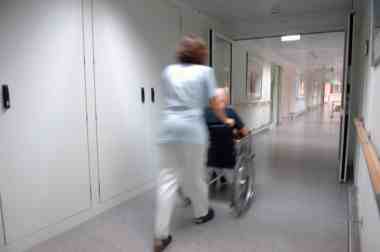 1392 |
她们在干什么? Họ đang làm gì? พวกเขากำลังทำอะไร? ¿Qué están haciendo? Que font-ils ? Cosa stanno facendo? What are they doing? Wat zijn ze aan het doen?  1406 |
两条小河在这里汇合。 Hai con sông nhỏ hội tụ về đây. แม่น้ำสายเล็กสองสายมาบรรจบกันที่นี่ Los dos pequeños ríos convergen aquí. Les deux petites rivières convergent ici. I due piccoli fiumi convergono qui. The two small rivers converge here. Twee kleine rivieren komen hier samen.  1407 |
她正在倒车。 Cô ấy đang lùi xe. เธอกำลังสำรองรถ Está dando marcha atrás al coche. Elle fait reculer la voiture. Sta facendo retromarcia con la macchina. She is backing the car up. Ze rijdt de auto achteruit. 1419 |
宝宝在睡觉。 Em bé đang ngủ. ทารกกำลังนอนหลับ El bebé está durmiendo. Le bébé dort. Il bambino sta dormendo. The baby is sleeping. De baby slaapt.  1421 |
他在帮我量腰围。 Anh ấy đang đo vòng eo của tôi. เขากำลังวัดเอวของฉัน Me está midiendo la cintura. Il mesure ma taille. Mi sta misurando la vita. He is measuring my waist. Hij meet mijn taille.  1422 |
她在冲洗头发。 Cô ấy đang gội đầu. เธอกำลังสระผม Se está lavando el pelo. Elle se lave les cheveux. Si sta lavando i capelli. She is washing her hair. Ze wast haar haar.  1429 |
他在观察微生物。 Anh ta đang quan sát vi sinh vật. เขากำลังสังเกตจุลินทรีย์ Está observando los microorganismos. Il observe les micro-organismes. Sta osservando i microrganismi. He is observing microorganisms. Hij kijkt naar micro-organismen.  1445 |
她在黑板上写字。 Cô ấy đang viết trên bảng phấn. เธอกำลังเขียนบนกระดานดำ Ella está escribiendo en la pizarra. Elle écrit sur le tableau. Sta scrivendo alla lavagna. She is writing on the chalkboard. Ze schrijft op het schoolbord.  1448 |
他在写诗。 Anh ấy đang sáng tác một bài thơ. เขากำลังแต่งบทกวี Está componiendo un poema. Il compose un poème. Sta componendo una poesia. He is composing a poem. Hij is een gedicht aan het schrijven.  1451 |
她在补衣服。 Cô ấy đang vá quần áo. เธอกำลังซ่อมเสื้อผ้า Está remendando la prenda. Elle répare le vêtement. Sta rammendando l'indumento. She is mending the garment. Ze is het kledingstuk aan het verstellen.  1476 |
船停在岸边。 Con tàu được thả neo vào bờ. เรือจอดอยู่ที่ฝั่ง El barco está amarrado en la orilla. Le bateau est amarré au rivage. La nave è ormeggiata a riva. The ship is moored at the shore. Het schip ligt voor anker aan de kust. 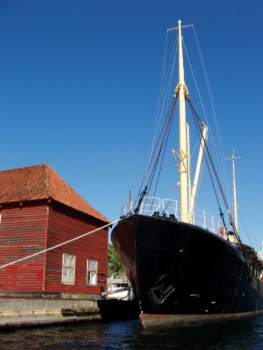 1480 |
伊人在花丛中笑。 Cô ấy nở nụ cười giữa những bông hoa. เธอยิ้มท่ามกลางดอกไม้ Ella sonríe entre las flores. Elle sourit parmi les fleurs. Sorride tra i fiori. She smiles in the middle of the flowers. Ze glimlacht te midden van de bloemen.  1483 |
她在弹奏新曲子。 Cô ấy đang chơi một giai điệu / bản nhạc mới. เธอกำลังเล่นเพลงใหม่ Está tocando una nueva melodía/pieza. Elle joue un nouvel air/un nouveau morceau. Sta suonando una nuova melodia / pezzo. She is playing a new tune/piece. Ze speelt een nieuw deuntje. 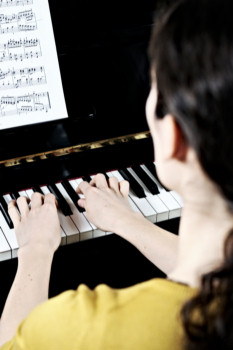 1484 |
他在笑,她亦笑。 Anh ấy đang cười, và cô ấy cũng đang cười. เขากำลังหัวเราะ และเธอก็หัวเราะด้วย Él se ríe y ella también. Il rit, et elle rit aussi. Sta ridendo, e ride anche lei. He is laughing, and she is laughing too. Hij lacht en zij lacht ook. 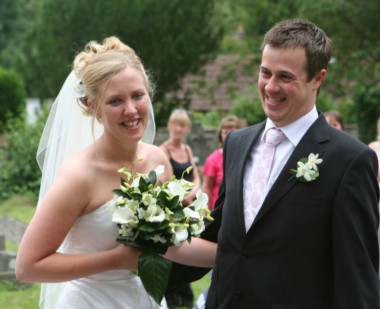 1489 |
孩子们在玩儿童玩具。 Những đứa trẻ đang chơi với đồ chơi trẻ em. เด็กๆเล่นของเล่นกัน. Los niños juegan con los juguetes de los niños . Les enfants jouent avec des jouets pour enfants. I bambini stanno giocando con i giocattoli dei bambini. The kids are playing with children's toys. De kinderen spelen met kinderspeelgoed.  1498 |
她在拔牙。 Cô ấy đang bị nhổ một chiếc răng. ฟันของเธอกำลังถูกถอนออก Le sacan un diente. On lui arrache une dent. Le viene estratto un dente. She's having a tooth pulled out. Ze heeft een tand laten trekken.  1504 |
他躺在床上睡着了。 Anh ngủ quên trên giường của mình. เขาผล็อยหลับไปบนเตียงของเขา Se quedó dormido en su cama. Il s'est endormi dans son lit. Si è addormentato nel suo letto. He fell asleep in his bed. Hij viel in slaap in zijn bed.  1516 |
她藏在树后。 Cô ấy đang trốn sau một cái cây. เธอซ่อนตัวอยู่หลังต้นไม้ Se esconde detrás de un árbol. Elle se cache derrière un arbre. Si nasconde dietro un albero. She is hiding behind a tree. Ze verstopt zich achter een boom.  1520 |
她正在喝茶。 Cô ấy đang uống trà. เธอกำลังดื่มชา Está bebiendo té. Elle boit du thé. Sta bevendo il tè. She is drinking tea. Ze drinkt thee.  1522 |
警察在搜索逃犯。 Cảnh sát đang truy lùng tên tội phạm bỏ trốn. ตำรวจกำลังค้นหาอาชญากรที่หลบหนี La policía busca a un delincuente fugado. La police est à la recherche d'un criminel en fuite. La polizia sta cercando un criminale evaso. The police are searching for an escaped criminal. De politie is op zoek naar een voortvluchtige.  1536 |
她在查看邮箱的附件。 Cô ấy đang kiểm tra tệp đính kèm trong e-mail của mình. เธอกำลังตรวจสอบสิ่งที่แนบมาในอีเมลของเธอ Está revisando un archivo adjunto en su correo electrónico. Elle vérifie une pièce jointe dans son courrier électronique. Sta controllando un allegato nella sua posta elettronica. She is checking an attachment in her e-mail. Ze controleert een bijlage in haar e-mail.  1539 |
妈妈在帮我洗头。 Mẹ đang giúp tôi gội đầu. แม่กำลังช่วยฉันสระผม Mamá me está ayudando a lavarme el pelo. Maman m'aide à me laver les cheveux. La mamma mi sta aiutando a lavarmi i capelli. Mother is helping me wash my hair. Moeder helpt me mijn haar te wassen.  1541 |
书摆在桌子上。 Những cuốn sách đã được đặt trên bàn làm việc. หนังสือถูกวางไว้บนโต๊ะ Los libros están colocados en el escritorio. Les livres ont été placés sur le bureau. I libri sono stati posti sulla scrivania. The books are on the desk. De boeken liggen op het bureau.  1542 |
花在风中摇摆。 Đóa hoa chao liệng trong gió. ดอกไม้พลิ้วไหวตามสายลม Las flores se mecen con el viento. Les fleurs se balancent au vent. Il fiore sta ondeggiando nel vento. The flowers sway in the wind. Bloemen wuiven in de wind.  1543 |
小孩把冰淇淋含在嘴里。 Đứa trẻ cho kem vào miệng. เด็กเอาไอศกรีมเข้าปาก El niño se lleva helado a la boca. L'enfant met de la crème glacée dans sa bouche. Il bambino mette il gelato in bocca. The child puts ice cream in his mouth. Het kind stopt ijs in zijn mond.  1547 |
他在寻找参考书。 Anh ấy đang tìm một cuốn sách tham khảo. เขากำลังมองหาหนังสืออ้างอิง Está buscando un libro de referencia. Il cherche un livre de référence. Sta cercando un libro di consultazione. He is looking for a reference book. Hij is op zoek naar een naslagwerk.  1548 |
他们在庆祝什么? Họ đang ăn mừng gì thế? พวกเขากำลังฉลองอะไร ¿Qué están celebrando? Que célèbrent-ils ? Cosa stanno festeggiando? What are they celebrating? Wat zijn ze aan het vieren?  1551 |
医生在给我检查耳朵。 Bác sĩ đang kiểm tra tai của tôi. แพทย์กำลังตรวจหูของฉัน El médico me está revisando el oído. Le docteur vérifie mon oreille. Il dottore mi sta controllando l'orecchio. The doctor is checking my ear. De dokter onderzoekt mijn oren.  1554 |
他们在盖房子。 Họ đang xây dựng một ngôi nhà. พวกเขากำลังสร้างบ้าน Están construyendo una casa. Ils sont en train de construire une maison. Stanno costruendo una casa. They are building a house. Ze bouwen een huis.  1562 |
园丁正在浇花。 Người làm vườn đang tưới hoa. ชาวสวนกำลังรดน้ำดอกไม้ El jardinero está regando las flores. Le jardinier arrose les fleurs. Il giardiniere sta annaffiando i fiori. The gardener is watering the flowers. De tuinman geeft de bloemen water. 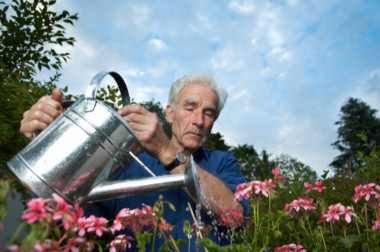 1565 |
他们紧紧地抱在一起。 Họ ôm nhau thật chặt. พวกเขากอดกันแน่น Se abrazan con fuerza. Ils se serrent fort l'un contre l'autre. Si abbracciano strettamente. They hug each other tightly. Ze omhelzen elkaar stevig.  1566 |
鸡蛋和面粉混在一起。 Trứng và bột mì trộn đều với nhau. ผสมไข่และแป้งเข้าด้วยกัน Los huevos y la harina se mezclan. Les oeufs et la farine sont mélangés ensemble. Le uova e la farina vengono mescolate insieme. Eggs and flour are mixed together. Eieren en bloem worden gemengd.  1569 |
她在喝果汁。 Cô ấy đang uống nước trái cây. เธอกำลังดื่มน้ำผลไม้ Está bebiendo zumo. Elle boit du jus de fruit. Sta bevendo del succo. She is drinking juice. Ze drinkt sap.  1573 |
她在沙滩上画圆圈。 Cô ấy đang vẽ một vòng tròn trên bãi biển. เธอกำลังวาดวงกลมบนชายหาด Está dibujando un círculo en la playa. Elle dessine un cercle sur la plage. Sta disegnando un cerchio sulla spiaggia. She is drawing a circle on the beach. Ze tekent een cirkel op het strand. 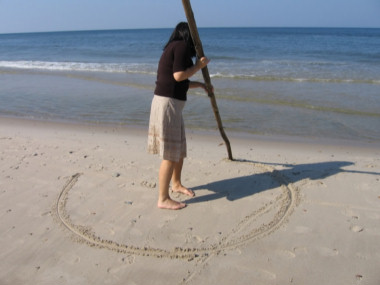 1576 |
士兵们正在进行军事训练。 Các binh sĩ đang trong quá trình tập trận. ทหารอยู่ในท่ามกลางการฝึกซ้อมทางทหาร Los soldados están en medio de ejercicios militares. Les soldats sont au milieu d'exercices militaires. I soldati sono nel bel mezzo delle esercitazioni militari. The soldiers are in the midst of military drills. De soldaten zijn in militaire training. 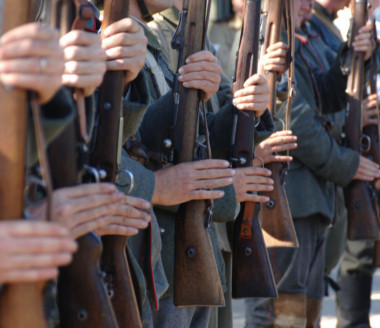 1592 |
她在享受自然的空气。 Cô ấy đang tận hưởng bầu không khí trong lành. เธอกำลังเพลิดเพลินกับอากาศบริสุทธิ์ Está disfrutando del aire fresco. Elle profite de l'air frais. Si sta godendo l'aria fresca. She is enjoying the fresh air. Ze geniet van de frisse lucht.  1594 |
煤炭在燃烧着。 Than đang cháy. ถ่านหินกำลังลุกไหม้ El carbón está ardiendo. Le charbon brûle. Il carbone sta bruciando. The coal is burning. De kolen branden.  1603 |
在会议上大家都畅所欲言。 Mọi người đều phát biểu ý kiến tự do tại cuộc họp. ทุกคนพูดอย่างอิสระในที่ประชุม Todos hablaron libremente en la reunión. Tout le monde s'est exprimé librement lors de la réunion. Tutti hanno parlato liberamente durante la riunione. Everybody spoke out freely at the meeting. Iedereen sprak vrijuit tijdens de vergadering.  1615 |
他正在监视系统的状态。 Anh ta đang theo dõi tình trạng của hệ thống. เขากำลังตรวจสอบสภาพของระบบ Está controlando el estado del sistema. Il surveille l'état du système. Sta monitorando le condizioni del sistema. He is monitoring the condition of the system. Hij controleert de conditie van het systeem.  1621 |
他在观察敌人的活动。 Anh ta đang quan sát các hoạt động của đối phương. เขากำลังสังเกตกิจกรรมของศัตรู Está observando las actividades del enemigo. Il observe les activités de l'ennemi. Sta osservando le attività del nemico. He is observing the activities of the enemy. Hij observeert de activiteiten van de vijand. 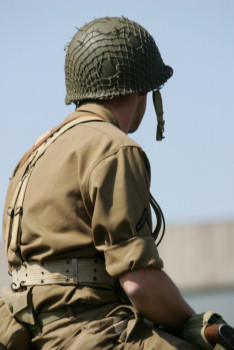 1626 |
双方在谋求合作。 Cả hai bên đang nỗ lực để hợp tác. ทั้งสองฝ่ายพยายามให้ความร่วมมือ Ambas partes se esfuerzan por cooperar. Les deux parties s'efforcent de coopérer. Entrambe le parti si sforzano di cooperare. Both sides are striving to cooperate. Beide partijen proberen samen te werken.  1627 |
她在测血压。 Cô ấy đang được đo huyết áp. เธอกำลังได้รับความดันโลหิตของเธอ Le están tomando la tensión. Elle fait prendre sa tension artérielle. Le viene misurata la pressione sanguigna. She is having her blood pressure taken. Haar bloeddruk wordt gemeten.  1628 |
他在累计选票。 Anh ấy đang đếm các lá phiếu. เขากำลังนับบัตรลงคะแนน Está contando los votos. Il compte les bulletins de vote. Conta le schede. He is counting the ballots. Hij telt de stembiljetten. 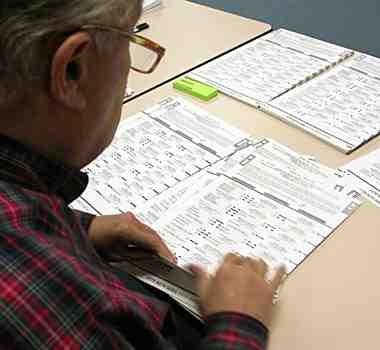 1629 |
她趴在课桌上睡着了。 Cô gục mặt xuống bàn ngủ thiếp đi. เธอผล็อยหลับไปโดยคว่ำหน้าลงกับโต๊ะ Se quedó dormida en la mesa. Elle s'est endormie à table. Si è addormentata a tavola. She fell asleep at the table. Ze viel aan tafel in slaap.  1632 |
他把自己隐藏在箱子里。 Anh ta giấu mình trong vali. เขาซ่อนตัวอยู่ในกระเป๋าเดินทาง Se esconde en la maleta. Il se cache dans la valise. Si nasconde nella valigia. He hides himself in the suitcase. Hij verstopt zich in de koffer.  1635 |
朋友们聚在一起。 Bạn bè tập hợp lại với nhau. เพื่อนๆมารวมตัวกัน Los amigos se han reunido. Les amis se sont réunis. Gli amici si sono riuniti. Friends have gathered together. Vrienden ontmoeten elkaar.  1647 |
小男孩在吹气球。 Cậu bé đang thổi một quả bóng bay. เด็กน้อยกำลังเป่าลูกโป่ง El niño está inflando un globo. Le petit garçon est en train de gonfler un ballon. Il ragazzino sta facendo esplodere un palloncino. The little boy is blowing up a balloon. De kleine jongen blaast een ballon op....  1650 |
她住在隔壁。 Cô ấy sống bên cạnh. เธออาศัยอยู่ประตูถัดไป Ella vive al lado. Elle habite à côté. Vive nella porta accanto. She lives next door. Ze woont hiernaast.  1657 |
她在努力地学习。 Cô ấy đang học chăm chỉ. เธอกำลังเรียนอย่างหนัก Está estudiando mucho. Elle étudie beaucoup. Sta studiando duramente. She is studying hard. Ze studeert hard.  1659 |
医生在给他打针。 Bác sĩ đang tiêm cho anh ấy. หมอจะฉีดยาให้ El médico le está poniendo una inyección. Le docteur lui fait une injection. Il dottore gli sta facendo un'iniezione. The doctor is giving him an injection. De dokter geeft hem een spuit.  1667 |
她在照镜子。 Cô ấy đang nhìn vào gương. เธอกำลังมองเข้าไปในกระจก Se está mirando en el espejo. Elle se regarde dans le miroir. Sta guardando nello specchio. She is looking into the mirror. Ze kijkt in de spiegel.  1668 |
我在吃早餐。 Tôi đang ăn sáng . ฉันกำลังกินข้าวเช้า Estoy desayunando. Je prends mon petit-déjeuner. Sto facendo colazione. I am eating my breakfast. Ik eet mijn ontbijt.  1674 |
她在做梦。 Cô ấy đang mơ. เธอกำลังฝัน Está soñando. Elle est en train de rêver. Sta sognando. She is dreaming. Ze is aan het dromen.  1682 |
妈妈在给宝宝餵奶。 Người mẹ đang cho con bú. แม่กำลังให้นมลูกของเธอ La madre está amamantando a su bebé. La mère allaite son bébé. La madre sta allattando il suo bambino. The mother is breastfeeding her baby. De moeder geeft haar baby borstvoeding.  1688 |
老师在授课。 Cô giáo đang dạy một lớp học. ครูกำลังสอนชั้นเรียน El profesor está dando una clase. Le professeur enseigne à une classe. L'insegnante sta insegnando a una classe. The teacher is teaching a class. De leraar geeft les aan een klas.  1694 |
他在偷钱包。 Anh ta đang ăn trộm một chiếc ví. เขากำลังขโมยกระเป๋าสตางค์ Está robando una cartera. Il a volé un portefeuille. Sta rubando un portafoglio. He is stealing a wallet. Hij steelt een portefeuille.  1697 |
他在给姐姐丈量身高。 Anh ấy đang đo chiều cao của chị gái mình. เขากำลังวัดส่วนสูงของพี่สาว Mide la altura de su hermana mayor. Il mesure la taille de sa sœur aînée. Sta misurando l'altezza della sorella maggiore. He is measuring the height of his older sister. Hij meet de lengte van zijn oudere zus. 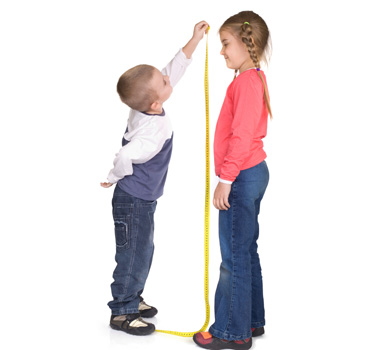 1708 |
她在画一幅画。 Cô ấy đang vẽ một bức tranh. เธอกำลังวาดภาพ Está haciendo un dibujo. Elle fait un dessin. Sta disegnando un'immagine. She is drawing a picture. Ze tekent een tekening. 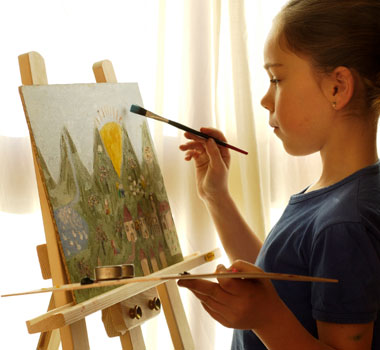 1711 |
渔民在收渔网。 Ngư dân đang thu lưới đánh cá. ชาวประมงกำลังดึงอวนจับปลา El pescador está dibujando en la red de pesca. Le pêcheur tire dans le filet de pêche. Il pescatore estrae la rete da pesca. The fisherman is drawing in the fishing net. De visser trekt het visnet binnen. 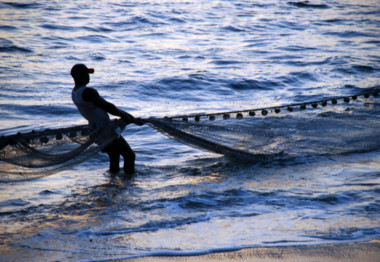 1720 |
他在培植树苗。 Anh ấy đang trồng cây con. เขากำลังปลูกต้นกล้า Está plantando plantas de semillero. Il plante des semis. Sta piantando piantine. He is planting seedlings. Hij plant een kleine boom.  1723 |
小偷在抢夺她的包。 Kẻ trộm đang lấy trộm túi xách của cô ấy. โจรกำลังขโมยกระเป๋าของเธอ El ladrón está robando su bolso. Le voleur a volé son sac. Il ladro le sta rubando la borsa. The thief is stealing her bag. De dief steelt haar tas.  1727 |
她在乘公共汽车。 Cô ấy đang đi xe buýt. เธอกำลังขึ้นรถบัส Ella está cogiendo un autobús. Elle prend le bus. Sta prendendo un autobus. She is taking a bus. Ze neemt een bus.  1729 |
消防员在灭火。 Lực lượng cứu hỏa đang chữa cháy. นักผจญเพลิงกำลังดับไฟ Los bomberos están luchando contra un incendio. Les pompiers combattent un incendie. I vigili del fuoco stanno combattendo un incendio. The firefighters are fighting a fire. De brandweer is een brand aan het blussen.  1731 |
他在喊“救命”。 Anh ấy đang kêu "cầu cứu". เขากำลังร้องไห้ "ช่วย" Él está gritando "ayuda". Il crie "au secours". Sta gridando "aiuto". He is crying "help". Hij schreeuwt "help".  1733 |
她在挑选水果。 Cô ấy đang chọn hoa quả. เธอกำลังเลือกผลไม้ Ella está eligiendo frutas. Elle choisit des fruits. Sta scegliendo i frutti. She is choosing fruits. Ze kiest fruit.  1734 |
他在欣赏这幅作品。 Anh ấy rất ngưỡng mộ tác phẩm này. เขาชื่นชมผลงานชิ้นนี้ Admira esta obra. Il admire cette oeuvre. Ammira quest'opera. He admires this work. Hij bewondert dit werk.  1739 |
现在的通讯工具很发达。 Ngày nay các công cụ giao tiếp rất tiên tiến. ปัจจุบันเป็นเครื่องมือสื่อสารที่ล้ำหน้ามาก Hoy en día las herramientas de comunicación son muy avanzadas. Les outils de communication d'aujourd'hui sont très avancés. Oggi gli strumenti di comunicazione sono molto avanzati. Today is communication tools are very advanced. De communicatiemiddelen zijn nu goed ontwikkeld.  1741 |
法官在审讯犯人。 Thẩm phán đang thẩm vấn tên tội phạm. ผู้พิพากษากำลังสอบปากคำผู้กระทำความผิด El juez está interrogando al criminal. Le juge interroge le criminel. Il giudice sta interrogando il criminale. The judge interrogates the accused. De rechter ondervraagt de verdachte.  1742 |
他们在操练。 Họ đang tập trận. พวกเขากำลังฝึกซ้อม Están realizando un ejercicio. Ils exécutent un exercice. Stanno eseguendo un'esercitazione. They are are performing a drill Ze doen een oefening.  1749 |
他正在操作电脑。 Anh ta đang vận hành máy tính. เขากำลังใช้งานคอมพิวเตอร์ Está manejando el ordenador. Il utilise l'ordinateur. Sta utilizzando il computer. He is operating the computer. Hij bedient de computer.  1750 |
他们在街上游荡。 Họ đang quanh quẩn trên đường phố. พวกเขาแขวนอยู่บนถนน Andan por la calle. Ils traînent dans la rue. Sono in giro per strada. They are hanging around in the street. Ze hangen rond op straat.  1763 |
她在染头发。 Cô ấy đang nhuộm tóc. เธอกำลังย้อมผม Se está tiñendo el pelo. Elle se fait teindre les cheveux. Si sta tingendo i capelli. She is getting her hair dyed. Ze laat haar haar verven.  1768 |
他们在威胁我。 Họ đang đe dọa tôi. พวกเขากำลังคุกคามฉัน Me están amenazando. Ils me menacent. Mi stanno minacciando. They are threatening me. Ze bedreigen me. 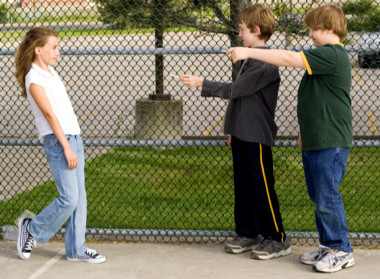 1771 |
河边有很多小贩在卖菜。 Có nhiều gánh hàng rong bán rau ven sông. ริมฝั่งแม่น้ำมีพ่อค้าเร่ขายผักมากมาย Hay muchos vendedores ambulantes de verduras en la orilla del río. Il y a beaucoup de colporteurs qui vendent des légumes au bord de la rivière. Ci sono molti venditori ambulanti che vendono verdura in riva al fiume. There are many peddlers selling vegetables by the riverside. Er zijn veel marskramers die groenten verkopen bij de rivier.  1775 |
她的家人葬在这个坟墓里。 Các thành viên trong gia đình cô được chôn cất trong ngôi mộ này. สมาชิกในครอบครัวของเธอถูกฝังอยู่ในหลุมฝังศพนี้ Sus familiares están enterrados en esta tumba. Les membres de sa famille sont enterrés dans cette tombe. I membri della sua famiglia sono sepolti in questa tomba. Her family members are buried in this tomb. Haar familie ligt in dit graf begraven. 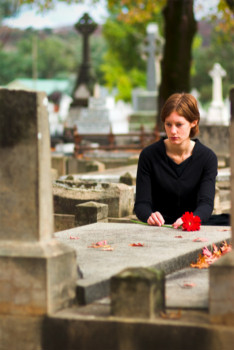 1793 |
她跪在雪地上。 Cô quỳ trên mặt đất phủ đầy tuyết. เธอคุกเข่าบนพื้นที่มีหิมะปกคลุม Se arrodilla en el suelo cubierto de nieve. Elle s'agenouille sur le sol recouvert de neige. Si inginocchia sul terreno innevato. She kneels on the snow-covered ground. Ze zat op haar knieën in de sneeuw. 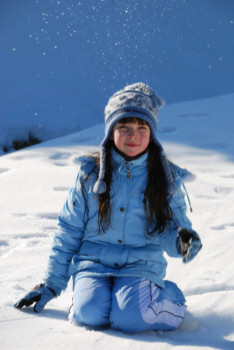 1795 |
他在检查硅片。 Anh ta đang kiểm tra con chip silicon. เขากำลังตรวจสอบชิปซิลิกอน Está examinando el chip de silicona. Il examine la puce de silicium. Sta esaminando il chip di silicio. He is examining the silicon chip. Hij onderzoekt de silicium chip.  1796 |
烈士葬在这块墓地里。 Các liệt sĩ được an táng tại nghĩa trang này. ผู้พลีชีพถูกฝังอยู่ในสุสานแห่งนี้ Los mártires están enterrados en este cementerio. Les martyrs sont enterrés dans ce cimetière. I martiri sono sepolti in questo cimitero. The martyrs are buried in this cemetery. De martelaren liggen op dit kerkhof begraven.  1802 |
她坐在凉棚下面。 Cô ấy đang ngồi dưới mái hiên. เธอนั่งอยู่ใต้กันสาด Ella está sentada bajo el toldo. Elle est assise sous l'auvent. È seduta sotto il tendone. She is sitting under the awning. Ze zit onder de luifel. 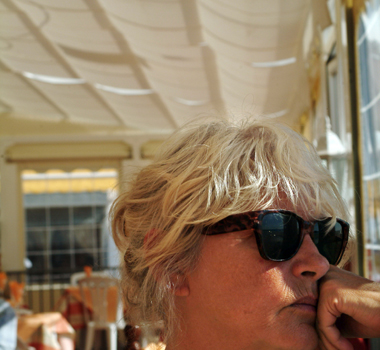 1806 |
爷爷在陪孙女玩。 Người ông đang chơi với cháu gái của mình. ปู่กำลังเล่นกับหลานสาวของเขา El abuelo está jugando con su nieta. Le grand-père joue avec sa petite-fille. Il nonno sta giocando con sua nipote. The grandfather is playing with his granddaughter. De grootvader speelt met zijn kleindochter.  1819 |
她在弹琴。 Cô ấy đang chơi piano. เธอกำลังเล่นเปียโน Ella está tocando el piano. Elle joue du piano. Suona il pianoforte. She is playing the piano. Ze speelt piano.  1820 |
她坐在窗边。 Cô ấy đang ngồi bên cửa sổ. เธอนั่งริมหน้าต่าง Está sentada junto a la ventana. Elle est assise à côté de la fenêtre. È seduta accanto alla finestra. She is sitting beside the window. Ze zit naast het raam. 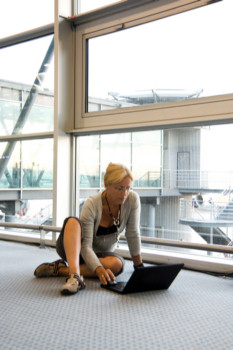 1821 |
他正在墻上打孔。 Anh ta đang khoan một lỗ trên tường. เขากำลังเจาะรูในกำแพง Está haciendo un agujero en la pared. Il perce un trou dans le mur. Sta facendo un buco nel muro. He is drilling a hole in the wall. Hij boort een gat in de muur.  1830 |
纺纱机在纺线。 Máy kéo sợi đang tạo sợi. เครื่องปั่นด้ายทำด้าย La máquina de hilar está haciendo hilo. La machine à filer fabrique du fil. Il filatoio sta facendo il filo. The spinning machine is making thread. De spinmachine spint garens .  1833 |
他在贴瓷砖。 Anh ấy đang ốp gạch. เขากำลังปูกระเบื้อง Está poniendo azulejos. Il est en train de carreler des carreaux. Sta piastrellando le piastrelle. He is tiling tiles. Hij is tegels aan het betegelen.  1839 |
马在奔跑。 Những con ngựa đang chạy. ม้ากำลังวิ่ง Los caballos están corriendo. Les chevaux courent. I cavalli stanno correndo. The horses are running. De paarden galopperen.  1843 |
蒙古在中国的北方。 Mông Cổ nằm ở phía bắc của Trung Quốc. มองโกเลียอยู่ทางเหนือของจีน Mongolia está al norte de China. La Mongolie est au nord de la Chine. La Mongolia si trova a nord della Cina. Mongolia is north of China. Mongolië ligt ten noorden van China.  1845 |
老鹰在天空中盘旋。 Con đại bàng đang bay lượn trên bầu trời. นกอินทรีกำลังบินวนอยู่บนท้องฟ้า El águila está dando vueltas en el cielo. L'aigle tourne dans le ciel. L'aquila sta volteggiando nel cielo. The eagle is circling in the sky. De adelaar cirkelt in de lucht.  1847 |
他们在餐厅吃饭。 Họ đang ăn trong một nhà hàng. พวกเขากำลังรับประทานอาหารในร้านอาหาร Están comiendo en un restaurante. Ils mangent dans un restaurant. Stanno mangiando in un ristorante. They are eating in a restaurant. Ze zijn aan het eten in een restaurant.  1850 |
2008年的奥运会在北京举行。 Thế vận hội Olympic 2008 được tổ chức tại Bắc Kinh. การแข่งขันกีฬาโอลิมปิก 2008 จัดขึ้นที่ปักกิ่ง Los Juegos Olímpicos de 2008 se celebraron en Pekín. Les Jeux olympiques de 2008 ont eu lieu à Pékin. I Giochi Olimpici del 2008 si sono svolti a Pechino. The 2008 Olympic Games were held in Beijing. De Olympische Spelen van 2008 werden gehouden in Beijing.  1852 |
她在玩滑梯。 Cô ấy đang chơi trên cầu trượt. เธอกำลังเล่นบนสไลด์ Está jugando en el tobogán. Elle joue sur le toboggan. Sta giocando sulla diapositiva. She is playing on the slide. Ze speelt op de glijbaan.  1858 |
这里在进行自行车竞赛。 Một cuộc đua xe đạp đang được tổ chức ở đây. มีการจัดการแข่งขันจักรยานที่นี่ Aquí se celebra una carrera de bicicletas. Une course de vélo a lieu ici. Qui si tiene una gara ciclistica. A bicycle race is being held here. Er is hier een wielerwedstrijd.  1870 |
他的手放在裤子口袋里。 Anh ta đút tay vào túi. เขามีมือของเขาในกระเป๋าของเขา Tiene la mano en el bolsillo. Il a la main dans sa poche. Ha la mano in tasca. He has his hand in his pocket. Hij heeft zijn hand in zijn zak.  1874 |
他们在分析实验的结果。 Họ đang phân tích kết quả của thí nghiệm. พวกเขากำลังวิเคราะห์ผลการทดลอง Están analizando el resultado del experimento. Ils analysent le résultat de l'expérience. Stanno analizzando il risultato dell'esperimento. They are analyzing the result of the experiment. Ze zijn het resultaat van het experiment aan het analyseren.  1875 |
烟囱正在冒烟。 Ống khói đang tỏa khói. ปล่องไฟกำลังปล่อยควัน La chimenea echa humo. La cheminée dégage de la fumée. Il camino emette fumo. The chimney is giving off smoke. De schoorsteen geeft rook af.  1877 |
男厕所在左侧。 Phòng nam nằm bên trái. ห้องชายอยู่ซ้ายมือ El baño de hombres está a la izquierda. La salle des hommes est sur la gauche. Il bagno degli uomini è sulla sinistra. The men’s toilet is on the left. Het herenhuis is aan de linkerkant.  1879 |
她们在进行彻底的大扫除。 Họ đang làm sạch kỹ lưỡng. พวกเขากำลังทำความสะอาดอย่างละเอียด Están haciendo una limpieza a fondo. Ils font un nettoyage en profondeur. Stanno facendo una pulizia accurata. They are doing a thorough cleaning. Je maakt grondig schoon.  1897 |
他在女朋友面前感到心虚。 Anh ấy cảm thấy có lỗi trước mặt bạn gái của mình. เขารู้สึกผิดต่อหน้าแฟนสาว Se siente culpable delante de su novia. Il se sent coupable devant sa petite amie. Si sente in colpa davanti alla sua ragazza. He feels guilty in front of his girlfriend. Hij voelt zich machteloos tegenover zijn vriendin. 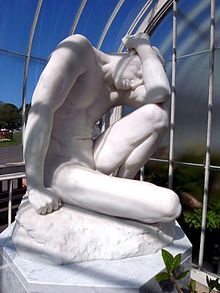 1899 |
他们亲密的拥抱在一起。 Họ ôm nhau tình tứ. พวกเขาโอบกอดกันด้วยความรัก Se abrazan con cariño. Ils se sont embrassés avec amour. Si abbracciarono amorevolmente. They embraced each other lovingly. Ze omhelsden elkaar liefdevol. 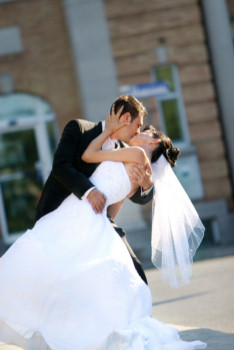 1906 |
小孩子在扮鬼。 Đứa trẻ được hóa trang thành một con ma. เด็กแต่งตัวเป็นผี El niño se ha disfrazado de fantasma. L'enfant est déguisé en fantôme. Il bambino è vestito da fantasma. The child is dressed up as a ghost. Het kind is verkleed als een spook.  1915 |
他们的结婚仪式在户外举行。 Lễ cưới của họ được tổ chức ngoài trời. พิธีแต่งงานของพวกเขาจัดขึ้นที่กลางแจ้ง La ceremonia de su boda se celebró al aire libre. Leur cérémonie de mariage a eu lieu en plein air. La loro cerimonia di matrimonio si è svolta all'aperto. Their wedding ceremony was held outdoors. Haar huwelijksceremonie vond buiten plaats.  1917 |
她正在用仪器做实验。 Cô ấy đang làm một cuộc thử nghiệm với nhạc cụ. เธอกำลังทำการทดลองกับครื่องมือ Está haciendo un experimento con el instrumento. Elle fait une expérience avec l'instrument. Sta facendo un esperimento con lo strumento. She is doing an experiment with the instrument. Ze doet een experiment met het instrument.  1918 |
她在用力地拖绳子。 Cô ấy đang kéo mạnh sợi dây. เธอกำลังดึงเชือกอย่างแรง Está tirando de la cuerda con fuerza. Elle tire fortement sur la corde. Sta tirando forte la corda. She is dragging the rope vigorously. Ze trekt aan het touw met al haar kracht.  1929 |
孩子们在进行启蒙教育。 Những đứa trẻ đang được giáo dục hình thành. เด็ก ๆ ได้รับการศึกษาอย่างเป็นทางการ Los niños están recibiendo su educación formativa. Les enfants reçoivent leur éducation formative. I bambini stanno ricevendo la loro educazione formativa. The children are receiving their formative education. De kinderen krijgen hun opleiding.  1936 |
我一个人呆在家里。 Tôi ở nhà một mình. ฉันอยู่บ้านคนเดียว Estoy solo en casa. Je suis seule à la maison. Sono a casa da solo. I am at home alone. Ik ben alleen thuis  1937 |
她在发呆。 Cô ấy đang nhìn vô hồn. เธอกำลังจ้องมองอย่างว่างเปล่า Tiene la mirada perdida. Elle a le regard vide. Sta fissando con aria assente. She is staring blankly. Ze staart onbegrijpend voor zich uit.  1938 |
在孩子面前争吵是不明智的。 Tranh luận trước mặt bọn trẻ là không khôn ngoan. เป็นการไม่ฉลาดที่จะโต้เถียงกันต่อหน้าลูกๆ No es conveniente discutir delante de los niños. Il est imprudent de se disputer devant les enfants. Non è saggio litigare davanti ai bambini. It is unwise to argue in front of the children. Het is niet verstandig om ruzie te maken in het bijzijn van de kinderen.  1941 |
医生在给他进行腿部治疗。 Bác sĩ đang điều trị chân cho anh ta. แพทย์กำลังรักษาขาของเขา El médico le está tratando las piernas. Le médecin soigne ses jambes. Il dottore si sta curando le gambe. The doctor is treating his legs. De dokter behandelt zijn benen.  1946 |
他在扣纽扣。 Anh ấy đang đóng cúc áo. เขาปิดปุ่มต่างๆ Cierra los botones. Il ferme les boutons. Chiude i bottoni. He's buttoning up. Hij is aan het dichtknopen.  1963 |
他坐在悬崖的边缘。 Anh ấy đang ngồi ở rìa vách đá. เขานั่งอยู่ที่ขอบหน้าผา Él está sentado al borde del acantilado. Il est assis au bord de la falaise. È seduto sul bordo della scogliera. He is sitting at the edge of the cliff. Hij zit op de rand van de klif.  1970 |
他们在争辩什么? Họ đang tranh cãi về điều gì? พวกเขากำลังเถียงกันเรื่องอะไร? ¿Por qué discuten? Pourquoi se disputent-ils ? Di cosa stanno discutendo? What are they arguing about? Waar hebben ze ruzie over?  1971 |
请在咖啡里加点糖。 Hãy cho một ít đường vào cà phê. กรุณาใส่น้ำตาลในกาแฟ Por favor, pon un poco de azúcar en el café. S'il te plaît, mets du sucre dans le café. Per favore, metti un po 'di zucchero nel caffè. Please put some sugar in the coffee. Doe alsjeblieft wat suiker in de koffie.  1986 |
他在翻地址簿。 Anh ấy đang xem qua sổ địa chỉ. เขากำลังดูสมุดที่อยู่ Está mirando la agenda. Il regarde dans le carnet d'adresses. Sta guardando la rubrica. He is looking through the address book. Hij bladert door het adresboek. 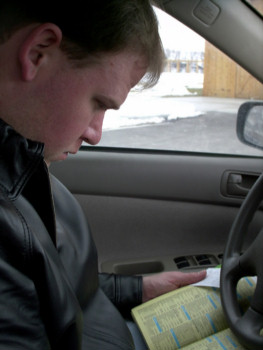 1991 |
警察在询问他。 Viên cảnh sát đang thẩm vấn anh ta. ตำรวจกำลังสอบปากคำเขา El policía le está interrogando. Le policier l'interroge. Il poliziotto lo sta interrogando. The policeman is questioning him. De politieman ondervraagt hem.  1995 |
自由女神像挺立在港口。 Tượng Nữ thần Tự do sừng sững giữa bến cảng. เทพีเสรีภาพตั้งตระหง่านอยู่ในท่าเรือ La Estatua de la Libertad se alza en el puerto. La statue de la Liberté se dresse dans le port. La Statua della Libertà si erge nel porto. The Statue of Liberty stands tall in the harbor. Het Vrijheidsbeeld staat in de haven.  2004 |
她在打扫房间。 Cô ấy đang thu dọn các phòng. เธอกำลังทำความสะอาดห้อง Está ordenando las habitaciones. Elle est en train de ranger les chambres. Sta riordinando le stanze. She is tidying the rooms. Ze maakt de kamer schoon.  2009 |
他在拼图。 Anh ấy đang chơi trò chơi ghép hình. เขากำลังทำตัวต่อจิ๊กซอว์ Está haciendo un rompecabezas. Il est en train de faire un puzzle. Sta facendo un puzzle. He is doing a jigsaw puzzle. Hij is bezig met een legpuzzel.  2018 |
我在街上碰到了老同学。 Tôi tình cờ gặp một người bạn học cũ trên phố. ฉันเจอเพื่อนร่วมชั้นเก่าบนถนน Me encontré con un antiguo compañero de clase en la calle. J'ai croisé un ancien camarade de classe dans la rue. Ho incontrato un vecchio compagno di classe per strada. I ran into an old classmate on the street. Ik ontmoette een oude klasgenoot op straat.  2023 |
她在描图。 Cô ấy đang vẽ những bức tranh เธอกำลังวาดภาพ Ella está haciendo dibujos. Elle dessine des images. Sta disegnando immagini. She traces something. Het spoort iets op.  2025 |
他们在公园里植树。 Họ đang trồng cây trong công viên. พวกเขากำลังปลูกต้นไม้ในสวนสาธารณะ Están plantando árboles en el parque. Ils plantent des arbres dans le parc. Stanno piantando alberi nel parco. They are planting trees in the park. Ze planten bomen in het park.  2030 |
大家躺在地上仰望天空。 Tất cả mọi người đang nằm trên mặt đất và nhìn lên bầu trời. ทุกคนนอนอยู่บนพื้นและมองขึ้นไปบนฟ้า Todos están tumbados en el suelo y mirando al cielo. Tout le monde est allongé sur le sol et regarde le ciel. Tutti sono sdraiati a terra e guardano il cielo. Everyone is lying on the ground and looking up at the sky. Iedereen ligt op de grond en kijkt omhoog naar de hemel.  2042 |
仪仗队正在接受检阅。 Người bảo vệ danh dự tiến hành một cuộc diễu hành. กองเกียรติยศจัดขบวนพาเหรด La guardia de honor conduce un desfile. La garde d'honneur organise un défilé. La guardia d'onore conduce una parata. The guard of honor conducts a parade. De erewacht houdt een parade. 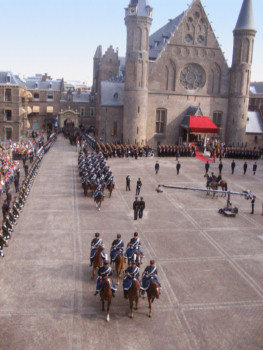 2051 |
她在责骂儿子。 Cô ấy đang mắng con trai mình. เธอกำลังดุลูกชายของเธอ Está regañando a su hijo. Elle gronde son fils. Sta rimproverando suo figlio. She is scolding her son. Ze scheldt haar zoon uit.  2054 |
她在酒店住宿。 Cô ấy đang ở trong một khách sạn. เธอพักอยู่ในโรงแรม Se aloja en un hotel. Elle séjourne dans un hôtel. Sta alloggiando in un albergo. She is staying in a hotel. Ze verblijft in een hotel.  2077 |
她在餐厅兼职。 Cô ấy có một công việc bán thời gian trong một nhà hàng. เธอมีงานพาร์ทไทม์ในร้านอาหาร Tiene un trabajo de media jornada en un restaurante. Elle a un emploi à temps partiel dans un restaurant. Ha un lavoro part-time in un ristorante. She has a part-time job in a restaurant. Ze heeft een parttime baan in een restaurant.  2078 |
他在换电视频道。 Anh ấy đang thay đổi kênh truyền hình. เขากำลังเปลี่ยนช่องทีวี Está cambiando el canal de televisión. Il change de chaîne de télévision. Sta cambiando canale TV. He is changing the TV channel. Hij verandert van televisiekanaal.  2088 |
他在拨一个电话号码。 Anh ấy đang gọi một số điện thoại. เขากำลังกดหมายเลขโทรศัพท์ Está marcando un número de teléfono. Il compose un numéro de téléphone. Compone un numero di telefono. He is dialing a telephone number. Hij draait een telefoonnummer.  2095 |
他在草原上撞见一头大象。 Anh ta bắt gặp một con voi trên thảo nguyên. เขาเจอช้างตัวหนึ่งบนทุ่งหญ้าสะวันนา Se encontró con un elefante en la sabana. Il a croisé un éléphant dans la savane. Si è imbattuto in un elefante nella savana. He came across an elephant on the savannah. Hij kwam een olifant tegen op de savanne.  2108 |
他们正在渡河。 Họ đang vượt sông. พวกเขากำลังข้ามแม่น้ำ Están cruzando el río. Ils traversent la rivière. Stanno attraversando il fiume. They are crossing the river. Ze steken de rivier over.  2109 |
我在帮妈妈搬东西。 Tôi đang giúp mẹ tôi xách đồ. ฉันช่วยแม่ขนของ Estoy ayudando a mi madre a llevar las cosas. J'aide ma mère à porter ses affaires. Sto aiutando mia madre a portare le cose. I am helping my mom carry things. Ik help mijn moeder dingen te dragen.  2110 |
他们在旅途中短暂的休息。 Họ đang nghỉ ngơi ngắn ngủi ở giữa hành trình của họ. พวกเขากำลังพักผ่อนช่วงสั้นๆ ระหว่างการเดินทาง Se están tomando un breve descanso en medio de su viaje. Ils font une courte pause au milieu de leur voyage. Stanno prendendo una breve pausa nel mezzo del loro viaggio. They are taking a brief rest in the middle of their journey. Ze nemen een korte pauze tijdens de rit.  2112 |
他们正在搬迁。 Họ đang di chuyển. พวกเขากำลังย้ายที่อยู่ Se están mudando. Ils déménagent. Si stanno trasferendo. They are moving. Ze zijn in beweging.  2119 |
她在扮医生。 Cô ấy đang đóng vai bác sĩ. เธอเล่นเป็นหมอ Ella está jugando a los médicos. Elle joue au docteur. Gioca al dottore. She is playing doctor. Ze speelt doktertje.  2120 |
大家在模仿老师的动作。 Mọi người đều bắt chước hành động của cô giáo. ทุกคนเลียนแบบการกระทำของครู Todos imitan las acciones del maestro. Tout le monde imite les actions de l'enseignant. Tutti imitano le azioni dell'insegnante. Everyone imitates the movements of the teacher. Iedereen imiteert de bewegingen van de leraar.  2131 |
我在滴眼药水。 Tôi đang bôi thuốc nhỏ mắt. ฉันกำลังใช้ยาหยอดตา Me estoy aplicando gotas para los ojos. Je mets des gouttes pour les yeux. Sto applicando dei colliri. I am applying eye drops. Ik neem oogdruppels.  2145 |
他们要在这儿逗留几天。 Họ sẽ ở lại đây trong vài ngày. พวกเขาจะอยู่ที่นี่สองสามวัน Van a quedarse aquí unos días. Ils vont rester ici pendant quelques jours. Resteranno qui per alcuni giorni. They are going to stay here for a few days. Ze zullen hier een paar dagen blijven. 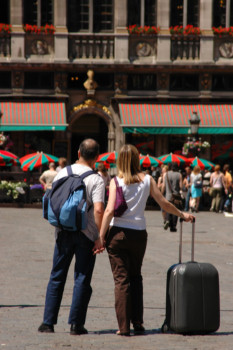 2148 |
她在拉弓。 Cô ấy đang kéo cung. เธอกำลังดึงธนู Está tensando el arco. Elle tire l'arc. Sta tirando l'arco. She is drawing the bow. Het spant een boog. 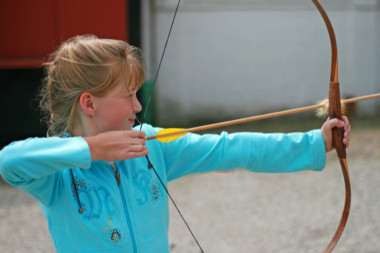 2150 |
我喜欢在面包上抹黄油。 Tôi thích bánh mì phết bơ. ฉันชอบขนมปังทาเนย Me gusta el pan untado con mantequilla. J'aime le pain tartiné de beurre. Mi piace il pane spalmato con il burro. I like bread spread with butter. Ik hou van brood met boter.  2155 |
她在抹眼泪。 Cô ấy đang lau nước mắt. เธอกำลังเช็ดน้ำตาของเธอ Se está limpiando las lágrimas. Elle essuie ses larmes. Si sta asciugando le lacrime. She is wiping her tears. Ze veegt haar tranen af. 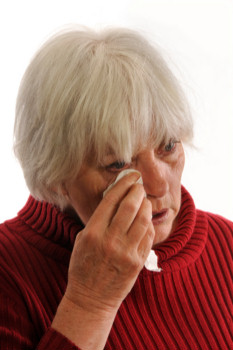 2156 |
我在帮爸爸看管行李。 Tôi đang bảo vệ hành lý của cha tôi. ฉันกำลังดูกระเป๋าเดินทางสำหรับพ่อของฉัน Estoy cuidando el equipaje de mi padre. Je surveille les bagages pour mon père. Sto controllando i bagagli per mio padre. I am watching the luggage for my father. Ik let op de bagage voor mijn vader.  2173 |
我在挤牙膏准备刷牙。 Tôi đang bóp kem đánh răng để chuẩn bị đánh răng. ฉันกำลังบีบยาสีฟันเพื่อเตรียมแปรงฟัน Estoy exprimiendo la pasta de dientes para prepararme para cepillarme los dientes. Je presse le dentifrice pour me préparer à me brosser les dents. Sto spremendo il dentifricio per prepararmi a lavarmi i denti. I am squeezing toothpaste in preparation to brush my teeth. Ik knijp tandpasta uit om mijn tanden te poetsen.  2182 |
小孩靠在栏杆上。 Đứa trẻ dựa vào lan can. ((Đứa trẻ dựa vào lan can.)) เด็กพิงราวบันได ((เด็กเอนกายบนราง)) El niño se apoya en la barandilla. ((El niño se apoya en la barandilla.)) L'enfant s'appuie sur la balustrade. ((L'enfant s'appuie sur la balustrade.)) Il bambino si appoggia alla ringhiera. The child leans against the railing. ((The child leans on the railing.)) Het kind leunt tegen de reling. ((Het kind leunt op de reling.)) 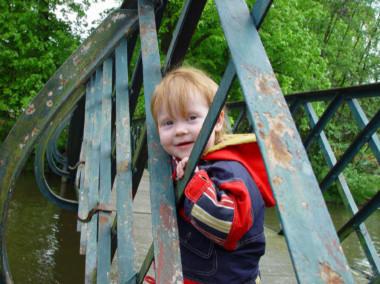 2187 |
宝宝在吃稀饭。 Em bé đang ăn cháo. ลูกกำลังกินข้าวต้ม El bebé está comiendo la papilla de arroz. Le bébé mange la bouillie de riz. Il bambino sta mangiando il porridge di riso. The baby is eating the rice porridge. De baby eet de rijstepap.  2194 |
小女孩在吹泡泡。 Cô bé đang thổi bong bóng. สาวน้อยกำลังเป่าฟองสบู่ La niña está haciendo burbujas. La petite fille fait des bulles. La bambina sta soffiando bolle. The little girl is blowing bubbles. Het kleine meisje blaast bellen.  2195 |
小男孩浮在水面上。 Cậu bé đang nổi trên mặt nước. เด็กน้อยลอยอยู่บนผิวน้ำ El niño está flotando en la superficie del agua. Le petit garçon flotte à la surface de l'eau. Il ragazzino galleggia sulla superficie dell'acqua. The little boy is floating on the surface of water. De kleine jongen drijft op het water.  2202 |
妈妈在安慰孩子。 Người mẹ đang an ủi đứa trẻ. แม่กำลังปลอบใจลูก La madre está consolando al niño. La mère console l'enfant. La madre consola il bambino. The mother is consoling the child. De moeder troost het kind.  2207 |
他在恐吓人。 Anh ta đang đe dọa ai đó. เขากำลังคุกคามใครบางคน Está amenazando a alguien. Il menace quelqu'un. Sta minacciando qualcuno. He threatened people. Hij bedreigde de mensen.  2215 |
他在列提纲。 Anh ấy đang lập dàn ý. เขาเขียนร่าง Está haciendo un borrador. Il fait un brouillon. Sta facendo uno schema. He is making an outline. Hij is een schets aan het maken.  2220 |
士兵驻守在边境。 Những người lính đang đóng quân ở biên giới. ทหารประจำการอยู่ที่ชายแดน Los soldados están apostados en la frontera. Les soldats sont stationnés à la frontière. I soldati sono di stanza alla frontiera. The soldiers are stationed at the frontier. De soldaten zijn gestationeerd aan de grens.  2222 |
我们正在为灾区筹款。 Chúng tôi đang cố gắng gây quỹ cho vùng thiên tai. เรากำลังพยายามระดมทุนสำหรับพื้นที่ภัยพิบัติ Estamos intentando recaudar fondos para la zona del desastre. Nous essayons de collecter des fonds pour la zone sinistrée. Stiamo cercando di raccogliere fondi per l'area del disastro. We are trying to raise funds for the disaster area. We zamelen geld in voor het rampgebied.  2233 |
他在搭帐篷。 Anh ấy đang dựng lều. เขากำลังกางเต็นท์ Está montando una tienda de campaña. Il monte une tente. Sta montando una tenda. He is putting up a tent. Hij is een tent aan het opzetten.  2239 |
收割机在田里割小麦。 Máy gặt đang gặt lúa mì trên cánh đồng. เครื่องเก็บเกี่ยวกำลังเกี่ยวข้าวสาลีในทุ่ง La cosechadora está segando el trigo en el campo. La moissonneuse est en train de récolter le blé dans le champ. Il mietitore sta raccogliendo il grano nel campo. The harvester is reaping the wheat in the field. De maaidorser oogst het graan op het veld.  2249 |
她躲在门后。 Cô ấy đang trốn sau cánh cửa. เธอซ่อนตัวอยู่หลังประตู Se esconde detrás de la puerta. Elle se cache derrière la porte. Si nasconde dietro la porta. She is hiding behind the door. Ze verstopt zich achter de deur.  2251 |
小孩儿在钻水泥管子。 Đứa trẻ đang đi qua đường ống bê tông. เด็กกำลังเดินผ่านท่อคอนกรีต El niño se está abriendo paso a través de la tubería de hormigón. L'enfant se fraye un chemin dans le tuyau en béton. Il bambino si sta facendo strada attraverso il tubo di cemento. The child is making his way through the concrete pipe. Het kind kruipt door de betonnen pijp.  2255 |
他们在钻研一个问题。 Họ đang đào sâu vào một vấn đề. (hoặc Họ đang nghiên cứu một vấn đề một cách siêng nă พวกเขากำลังเจาะลึกเข้าไปในปัญหา (หรือกำลังศึกษาปัญหาอย่างขยันขันแข็ง) Están profundizando en un problema. (o Están estudiando un problema con diligencia). Ils se plongent dans un problème. (ou Ils étudient un problème avec diligence). Stanno approfondendo un problema. (o Stanno studiando diligentemente un problema.) They are delving deep into a problem. (or They are studying a problem diligently.) Ze gaan op in een probleem.  2256 |
他在扣西装的扣子。 Anh ấy đang cài cúc áo vest. เขากำลังติดกระดุมสูทของเขา Se está abrochando el traje. Il est en train de boutonner son costume. Si sta abbottonando il vestito. He is buttoning his suit. Hij knoopt zijn pak dicht.  2266 |
现在买衣服有折扣。 Quần áo đang được bán ngay bây giờ. เสื้อผ้ามีการขายในขณะนี้ La ropa está de rebajas. Les vêtements sont en solde maintenant. Gli abiti sono in saldo adesso. The clothes are on sale now. Er zijn nu kortingen op kleren.  2267 |
他在敲打键盘。 Anh ấy đang gõ bàn phím. เขากำลังพิมพ์บนแป้นพิมพ์ Está escribiendo en el teclado. Il est en train de taper sur le clavier. Sta scrivendo sulla tastiera. He is typing on the keyboard. Hij typt op het toetsenbord.  2268 |
一只小鸟停在树枝上。 Một con chim đậu trên cành. นกบินอยู่บนกิ่งไม้ Un pájaro se posó en la rama. Un oiseau s'est posé sur la branche. Un uccello si posò sul ramo. A bird alighted on the branch. Een kleine vogel rust uit op een tak.  2273 |
他在摘葡萄。 Anh ấy đang hái nho. เขากำลังเก็บองุ่น Está recogiendo uvas. Il cueille des raisins. Raccoglie l'uva. He is picking grapes. Hij plukt druiven.  2276 |
他在涂油漆。 Anh ấy đang vẽ. เขากำลังวาดภาพ Está pintando. Il est en train de peindre. Sta dipingendo. He is painting. Hij is aan het schilderen. 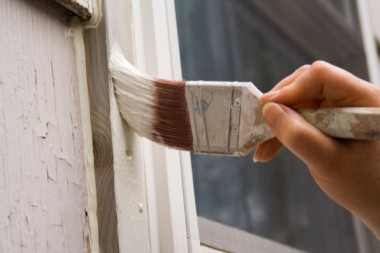 2290 |
她在制作陶器。 Cô ấy đang làm đồ gốm. เธอกำลังทำเครื่องปั้นดินเผา Está haciendo cerámica. Elle fait de la poterie. Sta producendo ceramiche. She is making pottery. Ze is aan het pottenbakken.  2295 |
他在记帐。 Anh ấy đang làm các tài khoản. เขากำลังทำบัญชี Está haciendo las cuentas. Il s'occupe des comptes. Sta facendo i conti. He is doing the accounts. Hij houdt de boeken bij.  2299 |
笔夹在记事本里。 Cây bút nằm giữa các trang của cuốn sổ. ปากกาอยู่ระหว่างหน้าของสมุดบันทึก El bolígrafo está entre las páginas del cuaderno. Le stylo est entre les pages du cahier. La penna è tra le pagine del taccuino. The pen is between the pages of the notebook. De pen ligt tussen de bladzijden van het notitieboekje.  2303 |
他们在此相逢。 Đây là nơi họ đã gặp nhau. นี่คือที่ที่พวกเขาได้พบกัน Aquí es donde se conocieron. C'est ici qu'ils se sont rencontrés. Qui è dove si sono incontrati. This is where they met each other. Dit is waar ze elkaar ontmoeten.  2310 |
他在敲门。 Anh ấy đang gõ cửa. เขากำลังเคาะประตู Está llamando a la puerta. Il frappe à la porte. Bussa alla porta. He is knocking at the door. Hij klopt op de deur.  2314 |
他在敲钉子。 Anh ta đang đóng một cái đinh. เขากำลังตอกตะปู Está clavando un clavo. Il enfonce un clou. Sta piantando un chiodo. He is hammering a nail. Hij hamert er een spijker in. 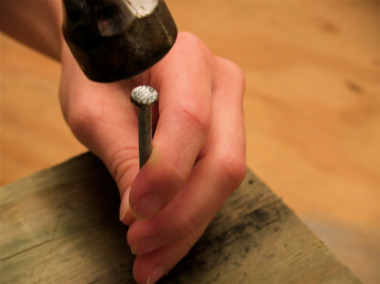 2315 |
他在这里撒网打鱼。 Anh ta quăng lưới và đánh cá ở đây. เขากำลังทอดแหเพื่อตกปลา Está echando la red para pescar. Il jette son filet ici pour pêcher. Sta gettando la sua rete qui per pescare. He is casting his net here to fish. Hij werpt zijn net hier uit om te vissen. 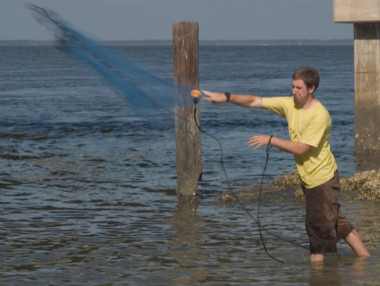 2321 |
他在撒谎。 Anh ta đang nói dối. เขากำลังโกหก. Está mintiendo. Il ment. Lui sta mentendo. He is lying. Hij liegt.  2322 |
我躺在草地上。 Tôi đang nằm trên bãi cỏ. ฉันกำลังนอนอยู่บนพื้นหญ้า Estoy tumbado en la hierba. Je suis allongée sur l'herbe. Sono sdraiato sull'erba. I am lying on the grass. Ik lig in het gras.  2326 |
他在下棋。 Anh ấy đang chơi cờ. เขากำลังเล่นหมากรุก Está jugando al ajedrez. Il joue aux échecs. Gioca a scacchi. He is playing chess. Hij speelt schaak.  2329 |
帆船在茫茫大海中航行。 Con thuyền đang ra khơi trên đại dương vô biên. เรือกำลังแล่นอยู่ในมหาสมุทรที่ไร้ขอบเขต El barco navega por el océano sin límites. Le bateau navigue sur l'océan sans limites. La barca sta navigando sull'oceano sconfinato. The boat is sailing on the boundless ocean. De boot vaart op de wijde zee.  2335 |
她在粉刷墙壁。 Cô ấy đang sơn tường. เธอกำลังทาสีผนัง Está pintando la pared. Elle est en train de peindre le mur. Sta dipingendo il muro. She is painting the wall. Ze is de muur aan het schilderen.  2343 |
两条绳子纠缠在一起。 Hai sợi dây được xoắn vào nhau. เชือกสองเส้นบิดเข้าหากัน Las dos cuerdas están retorcidas. Les deux cordes sont torsadées ensemble. Le due funi sono intrecciate insieme. The two ropes are twisted together. De twee touwen zijn in elkaar gedraaid.  2350 |
他这是在耗费时间。 Anh ấy đang lãng phí thời gian. เขากำลังเสียเวลา Está perdiendo el tiempo. Il perd du temps. Sta perdendo tempo. He is wasting time. Hij verspilt tijd.  2354 |
羊在草地上吃草。 Những con cừu đang gặm cỏ trên đồng cỏ. แกะกำลังเล็มหญ้าอยู่ในทุ่งหญ้า Las ovejas están pastando en el prado. Les moutons paissent dans le pré. Le pecore pascolano nel prato. The sheep are grazing in the meadow. De schapen grazen in de wei. 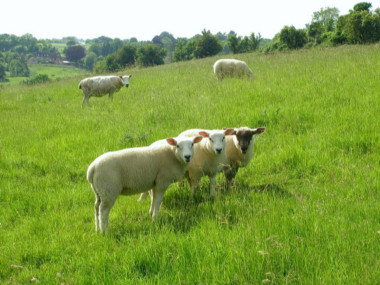 2371 |
他们在桌子上摊开地图。 Họ trải bản đồ ra trên bàn. พวกเขากางแผนที่ออกบนโต๊ะ Extienden el mapa sobre la mesa. Ils étalent la carte sur la table. Stendono la mappa sul tavolo. They spread the map out on the table. Ze hebben de kaart uitgespreid op de tafel.  2379 |
她在填考试的答案。 Cô ấy đang điền các câu trả lời vào đề thi. เธอกำลังกรอกคำตอบในข้อสอบ Está rellenando las respuestas del examen. Elle remplit les réponses de l'examen. Sta compilando le risposte dell'esame. She is filling in the answers on the exam. Ze vult de antwoorden in voor het examen.  2384 |
她正在吃饼干。 Cô ấy đang ăn bánh quy. เธอกำลังกินคุกกี้ Está comiendo galletas. Elle mange des biscuits. Sta mangiando i biscotti. She is eating cookies. Ze eet koekjes.  2386 |
她在擦口红。 Cô ấy đang tô son. เธอกำลังทาลิปสติก Se está pintando los labios. Elle se met du rouge à lèvres. Sta mettendo il rossetto. She is putting on lipstick. Ze doet lippenstift op.  2387 |
我被埋在沙子里了。 Tôi bị chôn vùi trong cát. ฉันถูกฝังอยู่ในทราย Estoy enterrado en la arena. Je suis enterrée dans le sable. Sono sepolto nella sabbia. I am buried in the sand. Ik ben begraven in het zand.  2389 |
小猫一直在叫唤。 Con mèo nhỏ lúc nào cũng kêu meo meo. แมวน้อยส่งเสียงร้องตลอดเวลา El gato pequeño no para de maullar. Le petit chat n'arrête pas de miauler. Il piccolo gatto miagola tutto il tempo. The little cat is meowing all the time. De kleine kat miauwt de hele tijd.  2393 |
他们在教堂里办丧事。 Họ đang tổ chức lễ an táng trong nhà thờ. พวกเขากำลังจัดพิธีศพในโบสถ์ Están celebrando la ceremonia fúnebre en la iglesia. La cérémonie funéraire a lieu à l'église. Stanno tenendo la cerimonia funebre in chiesa. They are holding the funeral ceremony in the church. Ze houden de uitvaartdienst in de kerk. 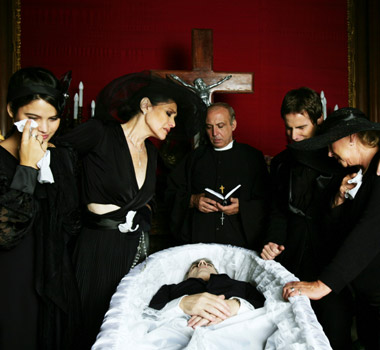 2395 |
我正在炒菜。 Tôi đang xào một món ăn. ฉันกำลังผัดกับข้าวอยู่ Estoy salteando un plato. Je fais sauter un plat. Sto friggendo un piatto. I am stir-frying a dish. Ik ben een schotel aan het bakken.  2396 |
小女孩在和鸭子玩。 Cô bé đang chơi với con vịt. สาวน้อยกำลังเล่นกับเป็ด La niña está jugando con el pato. La petite fille joue avec le canard. La bambina sta giocando con l'anatra. The little girl is playing with the duck. Het kleine meisje speelt met de eend. 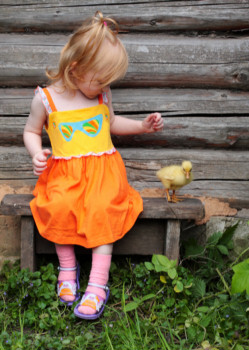 2411 |
他们在会上签署了协定。 Họ đã ký một thỏa thuận tại cuộc họp. พวกเขาลงนามในข้อตกลงในที่ประชุม Han firmado un acuerdo en la reunión. Ils ont signé un accord lors de la réunion. Hanno firmato un accordo durante la riunione. They signed an agreement at the meeting. Zij ondertekenden een overeenkomst tijdens de bijeenkomst.  2413 |
血液在体内循环。 Máu lưu thông khắp cơ thể. เลือดไหลเวียนทั่วร่างกาย La sangre circula por el cuerpo. Le sang circule dans le corps. Il sangue circola nel corpo. Blood circulates through the body. Bloed circuleert door het lichaam. 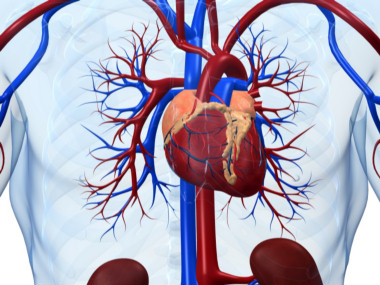 2419 |
她陶醉在音乐中。 Cô ấy đã bị mê hoặc với âm nhạc. เธอหลงใหลในเสียงเพลง Estaba embelesada con la música. Elle était envoûtée par la musique. Era estasiata dalla musica. She was entranced with the music. Ze was gefascineerd door muziek.  2421 |
他们在聊天。 Họ đang trò chuyện. พวกเขากำลังคุยกัน Están charlando. Ils discutent. Stanno chattando. They are chatting. Ze zijn aan het praten.  2427 |
警察在附近巡逻。 Cảnh sát đang tuần tra khu vực lân cận. ตำรวจกำลังลาดตระเวนพื้นที่ใกล้เคียง La policía está patrullando el barrio. La police patrouille dans le quartier. La polizia sta pattugliando il quartiere. The police are patrolling the neighborhood. De politie patrouilleert in de buurt. 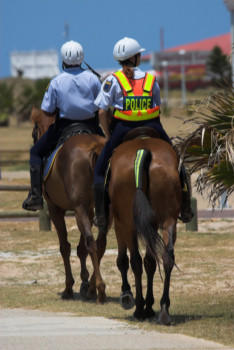 2432 |
我不相信,他在骗我。 Tôi không tin điều đó ไม่เชื่อ No me lo creo Je n'y crois pas. Non ci credo I don't believe it, he's lying to me. Ik geloof het niet, hij liegt tegen me.  2438 |
孟先生在修电脑。 Ông Meng đang sửa máy tính. นาย. Meng กำลังซ่อมคอมพิวเตอร์ El Sr. Meng está reparando el ordenador. M. Meng répare l'ordinateur. Il signor Meng sta riparando il computer. Mr. Meng is repairing the computer. Mr Meng repareert de computer.  2445 |
他在盗取别人的隐私。 Anh ấy đang ăn cắp thông tin cá nhân của người khác. เขากำลังขโมยข้อมูลส่วนบุคคลของผู้อื่น Está robando información personal de otras personas. Il vole les informations personnelles d'autres personnes. Sta rubando le informazioni personali di altre persone. He is stealing other people's personal information. Hij steelt de persoonlijke informatie van andere mensen.  2455 |
他们在拆信。 Họ đang mở thư. พวกเขากำลังเปิดจดหมาย Están abriendo cartas. Ils ouvrent des lettres. Stanno lettere di apertura. They are opening letters. Ze openen brieven.  2467 |
他们在开拓新土地。 Họ đang mở ra vùng đất mới. พวกเขากำลังเปิดดินแดนใหม่ Están abriendo nuevos terrenos. Ils ouvrent de nouvelles terres. Stanno aprendo nuove terre. They are opening up new land. Ze ontsluiten nieuw land.  2472 |
他在懊恼自己愚蠢的行为。 Anh ấy tức giận với chính mình vì hành vi ngu ngốc của mình. เขาโกรธตัวเองสำหรับพฤติกรรมโง่ ๆ ของเขา Está enfadado consigo mismo por su estúpido comportamiento. Il est en colère contre lui-même pour son comportement stupide. È arrabbiato con se stesso per il suo comportamento stupido. He is angry with himself for his stupid behavior. Hij is boos op zichzelf voor zijn domme gedrag.  2480 |
他是不是在愚弄我? Anh ấy đang lừa tôi sao? เขากำลังหลอกฉันเหรอ? ¿Me está engañando? Est-ce qu'il se moque de moi ? Mi sta prendendo in giro? Is he fooling me? Houdt hij me voor de gek?  2481 |
机器正在掘土。 Máy đang đào đất. เครื่องกำลังขุดดิน La máquina está cavando la tierra. La machine creuse le sol. La macchina sta scavando il terreno. The machine is digging the soil. De machine is de aarde aan het uitgraven.  2486 |
他们正在互相讽刺。 Họ đang chế giễu lẫn nhau. พวกเขากำลังเยาะเย้ยซึ่งกันและกัน Se están burlando el uno del otro. Ils se moquent les uns des autres. Si stanno prendendo in giro a vicenda. They are mocking each other. Ze zijn sarcastisch tegen elkaar.  2487 |
绳子绑在柱子上。 Sợi dây buộc vào cột nhà. เชือกผูกติดกับเสา La cuerda está atada al pilar. La corde est attachée au pilier. La corda è legata al pilastro. The rope is tied to the pillar. Het touw is aan de paal bevestigd.  2490 |
她在擦窗上的玻璃。 Cô ấy đang lau cửa sổ. เธอกำลังทำความสะอาดหน้าต่าง Está limpiando la ventana. Elle nettoie la fenêtre. Sta pulendo la finestra. She is cleaning the window. Ze maakt het raam schoon.  2499 |
他在书上做批注。 Anh ấy đang chú thích cho cuốn sách. เขากำลังใส่คำอธิบายประกอบหนังสือ Está anotando el libro. Il annote le livre. Sta annotando il libro. He is annotating the book. Hij maakt aantekeningen in het boek.  2505 |
他在查字典上的注解。 Anh ấy đang tra cứu những lời giải thích trong từ điển. เขากำลังค้นหาคำอธิบายในพจนานุกรม Está buscando las explicaciones en el diccionario. Il cherche les explications dans le dictionnaire. Cerca le spiegazioni nel dizionario. He is looking up the explanations in the dictionary. Hij zoekt de verklaringen in het woordenboek.  2506 |
宝宝踩在梯子上。 Em bé đang đứng trên một cái thang. ทารกยืนอยู่บนบันได El bebé está de pie en una escalera. Le bébé est debout sur une échelle. Il bambino è in piedi su una scala. The baby is standing on a ladder. De baby staat op een ladder. 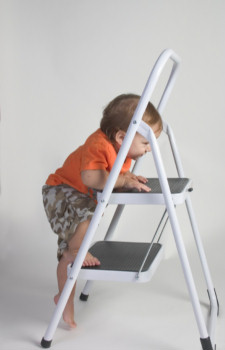 2509 |
他们在相互切磋球艺。 Họ đang so sánh các ghi chú về kỹ thuật chơi gôn (lit., "kỹ thuật chơi bóng"). พวกเขากำลังเปรียบเทียบบันทึกเกี่ยวกับเทคนิคการเล่นกอล์ฟ (มาจากคำว่า "เทคนิคการเล่นบอล") Están comparando notas sobre la técnica del golf (lit., "técnicas de juego de la pelota"). Ils comparent leurs notes sur la technique de golf (lit., "techniques de jeu de balle"). Stanno confrontando le note sulla tecnica del golf (lett. "Tecniche di gioco con la palla"). They are comparing notes on golf technique (lit., "ball playing techniques"). Ze wisselen golfbaltechnieken met elkaar uit.  2514 |
她在给宝宝换尿片。 Cô ấy đang thay tã cho em bé. เธอกำลังเปลี่ยนผ้าอ้อมของทารก Cambia el pañal del bebé. Elle change la couche du bébé. Cambia il pannolino al bambino. She changes the baby's diaper. Ze verschoont de baby's luier.  2523 |
小女孩在拾玩具。 Cô bé nhặt đồ chơi lên. สาวน้อยกำลังหยิบของเล่นขึ้นมา La niña está recogiendo los juguetes. La petite fille ramasse les jouets. La bambina sta raccogliendo i giocattoli. The little girl is picking up the toys. Het kleine meisje raapt het speelgoed op.  2526 |
她在收拾餐具。 Cô ấy đang cất bộ đồ ăn. เธอกำลังเก็บภาชนะใส่อาหาร Está guardando la vajilla. Elle range la vaisselle. Sta mettendo via le stoviglie. She is putting away the dinnerware. Ze zet de vaat weg.  2527 |
他们在回忆过去的美好时光。 Họ đang nhớ lại những khoảng thời gian hạnh phúc trong quá khứ của họ. พวกเขาจำช่วงเวลาที่มีความสุขในอดีตของพวกเขา Están recordando tiempos felices de su pasado. Ils se souviennent de moments heureux de leur passé. Ricordano i momenti felici del loro passato. They are remembering happy times in their past. Ze herinneren zich gelukkige tijden in hun verleden.  2530 |
我在磨咖啡豆。 Tôi đang xay hạt cà phê. ฉันกำลังบดเมล็ดกาแฟ Estoy moliendo granos de café. Je suis en train de moudre des grains de café. Sto macinando i chicchi di caffè. I am grinding coffee beans. Ik maal koffiebonen.  2540 |
机器正在浇灌农田。 Máy đang tưới ruộng. เครื่องกำลังรดน้ำทุ่งนา La máquina está regando los campos. La machine arrose les champs. La macchina sta irrigando i campi. The machine is watering the fields. De machine bevloeit de velden.  2551 |
她们正在灌唱片。 Họ đang thu âm một album mới. พวกเขากำลังบันทึกอัลบั้มใหม่ Están grabando un nuevo disco. Ils enregistrent un nouvel album. Stanno registrando un nuovo album. They are recording a new album. Ze zijn een nieuw album aan het opnemen.  2552 |
我在抄笔记。 Tôi đang (lại) sao chép một số ghi chú. ฉันกำลังคัดลอกบันทึกบางส่วน Estoy (re)copiando unas notas. Je (re)copie quelques notes. Sto (ri) copiando alcune note. I am (re)copying some notes. Ik kopieer de notities.  2569 |
他站在梯子上。 Anh ấy đang đứng trên bậc thang. เขายืนอยู่บนบันได Está de pie en la escalera. Il est debout sur l'échelle. È in piedi sulla scala. He is standing on the ladder. Hij staat op de ladder.  2575 |
研究员在研究细菌。 Nhà nghiên cứu đang nghiên cứu vi khuẩn. ผู้วิจัยกำลังสอบถามแบคทีเรีย El investigador está investigando las bacterias. Le chercheur fait des recherches sur les bactéries. Il ricercatore sta ricercando batteri. The researcher is researching bacteria. De onderzoeker bestudeert bacteriën.  2585 |
他们在一起叙家常。 Họ đang cùng nhau trò chuyện về cuộc sống gia đình. พวกเขากำลังพูดคุยเกี่ยวกับชีวิตครอบครัวด้วยกัน Están charlando sobre la vida familiar juntos. Ils bavardent de la vie de famille ensemble. Stanno chiacchierando della vita familiare insieme. They are chatting about family life together. Ze wisselen van gedachten over familiezaken.  2591 |
在中国,除夕会放烟火。 Ở Trung Quốc, pháo hoa sẽ được bắn vào đêm giao thừa จะมีการจุดพลุในวันส่งท้ายปีเก่าของจีน ในประเทศจีน ดอกไม้ไฟจะถูกจุดขึ้นในวันส่งท้ายปีเก่า En Chine, des feux d'artifice seront tirés le soir du Nouvel An. In Cina, i fuochi d'artificio si accenderanno a Capodanno. In China, fireworks will be set off on New Year's Eve. In China wordt vuurwerk afgestoken op oudejaarsavond.  2595 |
他在绘制图纸。 Anh ấy đang vẽ một bản thiết kế. เขากำลังวาดภาพพิมพ์เขียว Está dibujando un plano. Il dessine un plan. Sta disegnando un progetto. He is drawing a blueprint. Hij tekent een ontwerp.  2597 |
他们在院子里挖土。 Họ đang đào bới trong sân. พวกเขากำลังขุดอยู่ในสนาม Están cavando en el patio. Ils creusent dans la cour. Stanno scavando nel cortile. They are digging in the yard. Ze zijn in de tuin aan het graven.  2599 |
她躺在椅子上晒日光浴。 Cô ấy đang nằm trên ghế, tắm nắng. เธอกำลังนอนอยู่บนเก้าอี้อาบแดด Está tumbada en la silla, tomando el sol. Elle est allongée sur la chaise, prenant un bain de soleil. È sdraiata sulla sedia e prende il sole. She is lying in the chair, sunbathing. Ze gaat op de stoel liggen en neemt een zonnebad.  2601 |
她们正在种水稻。 Họ đang trồng lúa. พวกเขากำลังปลูกข้าว Están plantando arroz. Ils plantent du riz. Piantano riso. They are planting rice. Ze planten rijst.  2603 |
她在玩娃娃。 Cô ấy đang chơi với những con búp bê của mình. เธอกำลังเล่นกับตุ๊กตาของเธอ Está jugando con sus muñecas. Elle joue avec ses poupées. Sta giocando con le sue bambole. She is playing with her dolls. Ze speelt met haar poppen.  2604 |
警察在搜查罪犯。 Cảnh sát đang tiến hành truy tìm kẻ gây án. ตำรวจกำลังดำเนินการค้นหาอาชญากร La policía está buscando al criminal. La police est à la recherche du criminel. La polizia sta conducendo una ricerca per il criminale. The police are conducting a search for the criminal. De politie is op zoek naar de criminelen. 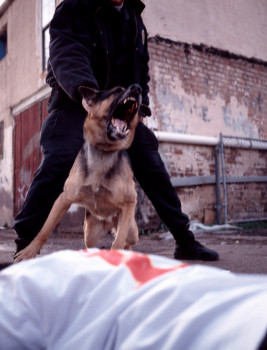 2611 |
政府在改选内阁。 Chính phủ đang lựa chọn một nội các mới. รัฐบาลกำลังเลือกคณะรัฐมนตรีชุดใหม่ El gobierno está seleccionando un nuevo gabinete. Le gouvernement est en train de choisir un nouveau cabinet. Il governo sta selezionando un nuovo gabinetto. The government is selecting a new cabinet. De regering kiest een nieuw kabinet.  2617 |
我家的客厅在阁楼。 Phòng khách của nhà tôi ở trên gác xép. ห้องนั่งเล่นในบ้านของฉันอยู่ในห้องใต้หลังคา El salón de mi casa está en el ático. Le salon de ma maison est dans le grenier. Il soggiorno di casa mia è in soffitta. The living room of my home is in the attic. De woonkamer van mijn huis is op zolder.  2618 |
弟弟站在花盆里。 Em trai đang đứng trong lọ hoa. น้องชายยืนอยู่ในกระถางดอกไม้ El hermano menor está parado en la maceta. Le jeune frère est debout dans le pot de fleurs. Il fratello minore è in piedi nel vaso di fiori. Younger brother is standing in the flowerpot. De jongere broer staat in de bloempot.  2628 |
边境正在打仗。 Có một cuộc chiến tranh trên biên giới. มีสงครามที่ชายแดน Hay una guerra en la frontera. Il y a une guerre à la frontière. C'è una guerra al confine. There is a war on the border. Er is een oorlog aan de grens. 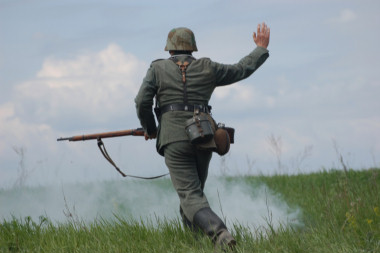 2635 |
他在牧场里养马。 Anh ấy đang chăn ngựa trên đồng cỏ. เขากำลังเลี้ยงม้าในทุ่งหญ้า Está criando caballos en los pastos. Il élève des chevaux dans le pâturage. Sta allevando cavalli al pascolo. He is raising horses in the pasture. Hij fokt paarden in de wei. 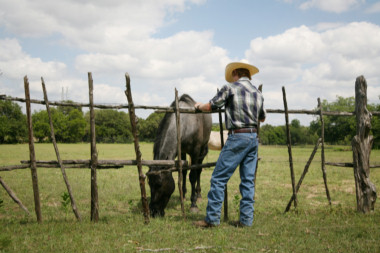 2640 |
警方在现场展开了侦查。 Cảnh sát đã mở một cuộc điều tra tại hiện trường. ตำรวจเปิดการสอบสวนในที่เกิดเหตุ La policía inició una investigación en el lugar de los hechos. La police a ouvert une enquête sur les lieux. La polizia ha avviato un'indagine sulla scena. The police launched an investigation at the scene. De politie heeft ter plaatse een onderzoek ingesteld.  2644 |
他在品尝酒的滋味。 Anh ấy đang nếm rượu / thưởng thức hương vị của rượu. เขากำลังชิมไวน์ / ลิ้มรสไวน์ Está probando el vino/saboreando el sabor del vino. Il goûte le vin/savoure le goût du vin. Sta degustando il vino / assaporando il gusto del vino. He tastes the wine. Hij proeft de wijn.  2647 |
肠在胃的下面。 Ruột nằm dưới dạ dày. ลำไส้อยู่ด้านล่างท้อง Los intestinos están debajo del estómago. Les intestins sont sous l'estomac. Gli intestini sono sotto lo stomaco. The intestines are below the stomach. De darm ligt onder de maag. 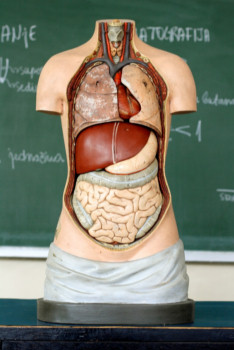 2651 |
工人在挖水渠。 Các công nhân đang đào một con mương. คนงานกำลังขุดคูน้ำ Los obreros están cavando una zanja. Les ouvriers creusent un fossé. Gli operai stanno scavando un fosso. The workers are digging a ditch. De arbeiders graven een geul.  2652 |
老鼠在偷吃面包。 Con chuột đang ăn trộm bánh mì. หนูกำลังขโมยขนมปัง El ratón está robando el pan. La souris vole le pain. Il topo sta rubando il pane. The mouse is stealing the bread. De muis steelt het brood.  2659 |
我们在跟踪那条狗。 Chúng tôi đang theo dõi con chó đó. เรากำลังติดตามสุนัขตัวนั้น Estamos siguiendo a ese perro. Nous suivons ce chien. Stiamo seguendo quel cane. We are following that dog. We volgen deze hond.  2670 |
我们在草地上踢球。 Chúng tôi chơi bóng trên đồng cỏ. เราเล่นฟุตบอลบนทุ่งหญ้า Jugamos al fútbol en el prado. Nous jouons au football dans le pré. Giochiamo a calcio sul prato. We play football on the meadow. We spelen voetbal op het grasveld. 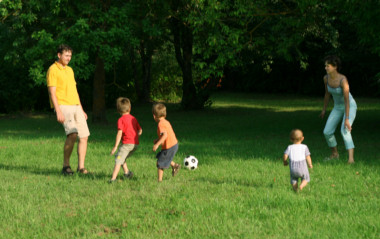 2694 |
他们在砖墙上画画。 Họ đang vẽ trên bức tường gạch. พวกเขากำลังวาดบนกำแพงอิฐ Están dibujando en la pared de ladrillos. Ils dessinent sur le mur de briques. Stanno disegnando sul muro di mattoni. They are drawing on the brick wall. Ze tekenen op de muur.  2695 |
他正在雕刻一件作品。 Anh ấy đang khắc một tác phẩm. เขากำลังแกะสลักชิ้นงาน Está tallando una obra. Il est en train de sculpter une pièce. Sta scolpendo un pezzo di lavoro. He is carving a piece of work. Hij is aan het snijden aan een werkstuk.  2697 |
橡皮筏在河里颠簸着。 Chiếc bè cao su tung tăng trên sông. แพยางล่องลอยไปตามแม่น้ำ La balsa de caucho se agitó en el río. Le radeau en caoutchouc a été ballotté sur la rivière. La zattera di gomma si agitava sul fiume. The rubber raft tossed about on the river. De rubberboot schommelt heen en weer in de rivier.  2703 |
她和小姨在看书。 Cô ấy đang đọc sách với dì út của mình. เธอกำลังอ่านหนังสือกับป้าที่อายุน้อยที่สุดของเธอ Está leyendo con su tía más joven. Elle lit avec sa plus jeune tante. Sta leggendo con la zia più giovane. She is reading with her youngest aunt. Ze leest met haar jongste tante.  2709 |
他们在拟一个计画草案。 Họ đang soạn thảo một kế hoạch. พวกเขากำลังร่างแผน Ellos están redactando un plan. Ils préparent un plan. Stanno preparando un piano. They are currently working on a draft project. Zij werken momenteel aan een projectontwerp.  2712 |
小孩在学溜冰。 Đứa trẻ đang học cách trượt băng. เด็กกำลังเรียนรู้วิธีการเล่นสเก็ตน้ำแข็ง El niño está aprendiendo a patinar sobre hielo. L'enfant apprend à faire du patin à glace. Il bambino sta imparando a pattinare sul ghiaccio. The child is learning how to ice skate. Het kind leert schaatsen. 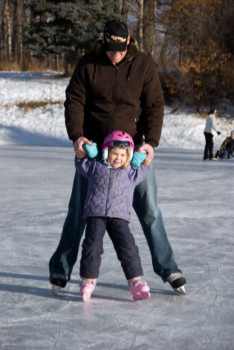 2713 |
医生在对病情做诊断。 Bác sĩ đang chẩn đoán bệnh cho bệnh nhân. แพทย์กำลังวินิจฉัยความเจ็บป่วยของผู้ป่วย El médico está diagnosticando una enfermedad al paciente. Le médecin est en train de diagnostiquer la maladie d'un patient. Il dottore sta diagnosticando una malattia a un paziente. The doctor is diagnosing a patient's illness. De dokter stelt vast dat een patiënt ziek is.  2723 |
她们在扯家常。 Họ đang trò chuyện. พวกเขากำลังคุยกัน Están charlando. Ils discutent. Stanno chattando. They are chatting. Ze zijn aan het praten.  2725 |
他们在海边晒太阳。 Họ đang phơi nắng trên bờ biển. พวกเขากำลังอาบแดดอยู่ที่ชายทะเล Están tomando el sol en la orilla del mar. Ils prennent le soleil au bord de la mer. Stanno prendendo il sole in riva al mare. They sunbathe by the sea. Ze zijn aan het zonnebaden bij de zee.  2736 |
他们在刷一堵墙。 Họ đang sơn tường. พวกเขากำลังทาสีผนัง พวกเขากำลังทาสีผนัง Ils peignent le mur. Stanno dipingendo il muro. They are painting the wall. Ze zijn de muur aan het schilderen.  2745 |
我在准备煮晚餐。 Tôi đang chuẩn bị bữa tối. ฉันกำลังเตรียมอาหารเย็น Estoy preparando la cena. Je prépare le dîner. Sto preparando la cena. I'm preparing dinner. Ik ben het eten aan het klaarmaken.  2749 |
水汽不停地在蒸发。 Hơi nước bốc hơi liên tục. ไอน้ำระเหยอย่างต่อเนื่อง El vapor se evapora constantemente. La vapeur s'évapore constamment. Il vapore evapora costantemente. The steam is constantly evaporating. De stoom is constant aan het verdampen.  2761 |
他正在蒸饭。 Anh ấy đang nấu cơm. เขากำลังหุงข้าว Está cocinando arroz. Il fait cuire du riz. Sta cucinando il riso. He is steaming rice. Hij kookt rijst. 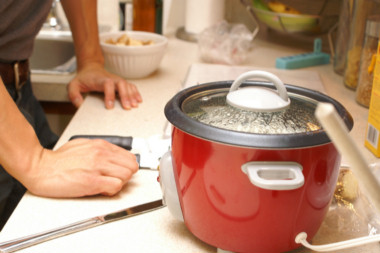 2762 |
请在表格上打勾。 Vui lòng đánh dấu vào các ô trên biểu mẫu. กรุณาทำเครื่องหมายในช่องในแบบฟอร์ม Por favor, marque las casillas del formulario. Veuillez cocher les cases du formulaire. Si prega di selezionare le caselle del modulo. Please check the boxes on the form. Gelieve de vakjes in het formulier aan te kruisen.  2763 |
车在前方拐弯。 Xe máy phía trước cắt ngang đường của chúng tôi. มอเตอร์ไซค์ข้างหน้าตัดทางเรา La motocicleta de delante nos corta el camino. La moto qui nous précède coupe notre chemin. La moto davanti ci taglia la strada. The motorcycle ahead cuts our way. De motor voor ons snijdt onze weg af.  2777 |
孩子们在公园里玩耍。 Những đứa trẻ đang chơi trong công viên. เด็ก ๆ กำลังเล่นอยู่ในสวนสาธารณะ Los niños están jugando en el parque. Les enfants jouent dans le parc. I bambini stanno giocando nel parco. The children are playing in the park. De kinderen spelen in het park.  2782 |
现在是一月上旬。 Bây giờ là đầu tháng Giêng. ตอนนี้เป็นช่วงต้นเดือนมกราคม Es la primera parte de enero. Nous sommes au début du mois de janvier. È la prima parte di gennaio adesso. It is the early part of January right now. Het is nog maar het begin van januari.  2783 |
她在吃苹果。 Cô ấy đang ăn một quả táo. เธอกำลังกินแอปเปิ้ล Ella está comiendo una manzana. Elle mange une pomme. Sta mangiando una mela. She is eating an apple. Ze eet een appel.  2791 |
在有些国家乌鸦是不详的象征。 Quạ là một biểu tượng đáng ngại ở một số quốc gia. กาเป็นสัญลักษณ์ที่เป็นลางไม่ดีในบางประเทศ Los cuervos son un símbolo siniestro en algunos países. Les corbeaux sont un symbole de mauvais augure dans certains pays. I corvi sono un simbolo minaccioso in alcuni paesi. In some countries, the crow is a symbol of uncertainty. In sommige landen is de kraai een symbool van onzekerheid.  2794 |
她在烹调食物。 Cô ấy đang nấu đồ ăn. เธอกำลังทำอาหาร Está cocinando la comida. Elle prépare le repas. Sta cucinando il cibo. She is cooking food. Ze is eten aan het koken.  2802 |
她正在纽约出差。 Cô ấy đang ở New York đi công tác. เธออยู่ในนิวยอร์กเพื่อทำธุรกิจ Está en Nueva York por negocios. Elle est à New York pour affaires. È a New York per affari. She is in New York on business. Ze is in New York voor zaken.  2813 |
他在练习新曲子。 Anh ấy đang tập một giai điệu mới. เขากำลังฝึกท่วงทำนองใหม่ Está practicando una nueva melodía. Il répète un nouvel air. Si sta esercitando con una nuova melodia. He is practicing a new tune. Hij oefent een nieuw deuntje. 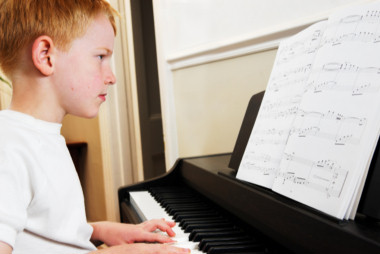 2830 |
官员下榻在这家酒店。 Các quan chức đang ở tại khách sạn này. เจ้าหน้าที่พักอยู่ที่โรงแรมนี้ El funcionario se aloja en este hotel. Le fonctionnaire séjourne dans cet hôtel. Il funzionario soggiorna in questo hotel. The official is staying at this hotel. De officier verblijft in dit hotel.  2833 |
他在对女朋友发洩怒火。 Anh ấy đang trút giận vào bạn gái của mình. เขากำลังระบายความโกรธของเขาที่แฟนสาวของเขา Se está desahogando con su novia. Il évacue sa colère contre sa petite amie. Sta sfogando la sua rabbia contro la sua ragazza. He is venting his anger at his girlfriend. Hij reageert zijn woede af op zijn vriendin.  2834 |
公司在甄选面试人员。 Công ty đang sàng lọc những người được phỏng vấn. บริษัทกำลังคัดกรองผู้ให้สัมภาษณ์ La empresa está seleccionando a los entrevistados. L'entreprise sélectionne les personnes interrogées. L'azienda sta esaminando gli intervistati. The company is screening the interviewees. Het bedrijf selecteert uit de sollicitanten.  2840 |
燕子在屋簷下筑巢。 Chim én đã về xây tổ dưới mái hiên. นกนางแอ่นได้สร้างรังอยู่ใต้ชายคา Las golondrinas han construido un nido bajo el alero. Les hirondelles ont construit un nid sous l'avant-toit. Le rondini hanno costruito un nido sotto la grondaia. The swallows have built a nest under the eaves. De zwaluwen hebben een nest gebouwd onder de dakrand.  2844 |
他们在野外撑起了帐篷。 Họ dựng lều ở nơi hoang dã. พวกเขาตั้งเต็นท์ในป่า Han montado una tienda de campaña en la naturaleza. Ils ont monté une tente dans la nature. Hanno montato una tenda in natura. They set up a tent in the wild. Ze zetten een tent op in het wild. 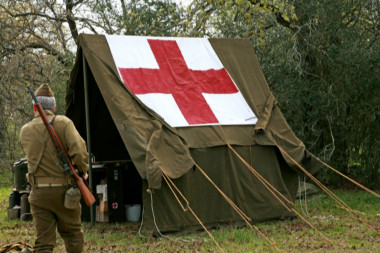 2849 |
孩子们凑在一起玩耍。 Bọn trẻ rủ nhau đi chơi. เด็ก ๆ ได้รวมตัวกันเพื่อเล่น Los niños se reunieron para jugar. Les enfants se sont réunis pour jouer. I bambini si sono riuniti per giocare. The children get together to play. De kinderen komen samen om te spelen.  2852 |
父子俩在河堤上休息。 Hai bố con nằm nghỉ bên bờ sông. พ่อและลูกชายกำลังพักผ่อนอยู่ริมฝั่งแม่น้ำ El padre y su hijo están descansando en la orilla del río. Le père et son fils se reposent au bord de la rivière. Il padre e suo figlio stanno riposando sulla riva del fiume. The father and his son are resting on the river bank. Vader en zoon rusten uit op de oever van de rivier.  2853 |
妈妈在哄孩子。 Người mẹ cố gắng an ủi đứa trẻ. แม่พยายามปลอบลูก La madre intenta consolar al bebé. La mère essaie de réconforter le bébé. La madre cerca di confortare il bambino. The mother tries to comfort the baby. De moeder probeert de baby te troosten.  2857 |
我在剪纸。 Tôi đang cắt giấy. ฉันกำลังตัดกระดาษ Estoy cortando papel. Je découpe du papier. Sto tagliando la carta. I am cutting paper. Ik ben papier aan het snijden.  2858 |
母鸡在孵卵。 Cô gà mái đang ngồi trên những quả trứng của mình. ไก่กำลังนั่งอยู่บนไข่ของเธอ La gallina está sentada sobre sus huevos. La poule est assise sur ses œufs. La gallina è seduta sulle sue uova. The hen incubates her eggs. De hen is haar eieren aan het uitbroeden. 2861 |
小鸟在树枝上鸣叫。 Chú chim nhỏ đang ríu rít trên cành. นกน้อยร้องเจี๊ยก ๆ บนกิ่งไม้ El pajarito está piando en la rama. Le petit oiseau gazouille sur la branche. L'uccellino sta cinguettando sul ramo. The little bird is chirping on the branch. Het vogeltje tjilpt op de tak.  2862 |
他在给草坪洒水。 Anh ấy đang rắc cỏ. เขากำลังหมุนสนามหญ้า Está regando el césped. Il arrose la pelouse. Sta spruzzando il prato. He is sprinkling the lawn. Hij besproeit het gazon.  2864 |
妈妈坐在摇椅上。 Mẹ tôi đang ngồi trên ghế xích đu. แม่ของฉันกำลังนั่งอยู่บนเก้าอี้โยก Mi madre está sentada en la mecedora. Ma mère est assise dans le fauteuil à bascule. Mia madre è seduta sulla sedia a dondolo. My mom is sitting in the rocking chair. Mijn moeder zit in de schommelstoel. 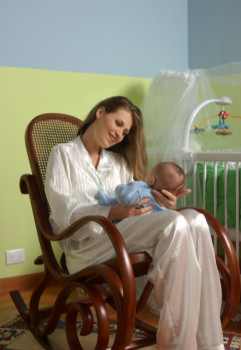 2880 |
现在我们来谈问题的症结所在。 Bây giờ chúng ta hãy nói về mấu chốt của vấn đề. ทีนี้มาพูดถึงประเด็นสำคัญของปัญหากัน Ahora hablemos del quid de la cuestión. Maintenant, parlons du cœur du problème. Ora parliamo del nocciolo della questione. Now let's talk about the crux of the issue. Laten we het nu eens hebben over de kern van het probleem.  2887 |
她在涂抹胭脂。 Cô ấy đang thoa phấn và son môi. เธอกำลังทาแป้งทาหน้าและลิปสติก Se está poniendo polvos para la cara y lápiz de labios. Elle met de la poudre pour le visage et du rouge à lèvres. Mette cipria e rossetto. She is putting on face powder and lipstick. Ze brengt gezichtspoeder en lippenstift aan.  2895 |
船停泊在港口。 Con tàu đang neo đậu trong cảng. เรือจอดทอดสมออยู่ในท่าเรือ El barco está anclado en el puerto. Le navire est ancré dans le port. La nave è ancorata nel porto. The ship is anchored in the port. Het schip ligt voor anker in de haven.  2897 |
他在这个地区名声显赫。 Anh ấy khá nổi tiếng trong lĩnh vực này. เขาเป็นที่รู้จักกันดีในด้านนี้ Es bastante conocido en esta zona. Il est assez connu dans cette région. È abbastanza noto in questo settore. He is quite well-known in this area. Hij is vrij goed bekend in dit gebied.  2901 |
我和奶奶卧在床上看书。 Tôi và bà của tôi đang nằm trên giường đọc sách. ฉันกับยายนอนอ่านหนังสือ Mi abuela y yo estamos tumbados en la cama leyendo. Ma grand-mère et moi sommes allongées dans le lit en train de lire. Mia nonna ed io siamo sdraiati a letto a leggere. My grandma and I are lying in bed reading. Mijn oma en ik liggen in bed te lezen.  2903 |
他正在刮胡子。 Anh ấy đang cạo râu. เขากำลังโกนหนวด Se está afeitando. Il se rase. Si sta radendo. He is shaving. Hij is zich aan het scheren.  2906 |
士兵在巡逻。 Những người lính đang tuần tra. ทหารอยู่ในการลาดตระเวน Los soldados están de patrulla. Les soldats sont en patrouille. I soldati sono di pattuglia. The soldiers are on patrol. De soldaten zijn aan het patrouilleren.  2931 |
她在吃葡萄。 Cô ấy đang ăn nho. เธอกำลังกินองุ่น Está comiendo uvas. Elle mange du raisin. Sta mangiando l'uva. She is eating grapes. Ze eet druiven.  2935 |
她在检查肺部。 Cô ấy đang được kiểm tra phổi. เธอกำลังตรวจสมองของเธอ Le están revisando los pulmones. Elle se fait examiner les poumons. Le stanno controllando i polmoni. She is getting her lungs checked. Ze laat haar longen onderzoeken.  2951 |
警察在现场维护秩序。 Cảnh sát đang duy trì trật tự tại hiện trường. ตำรวจรักษาความสงบเรียบร้อยในที่เกิดเหตุ La policía mantiene el orden en el lugar. La police maintient l'ordre sur les lieux. La polizia sta mantenendo l'ordine sulla scena. The police are maintaining order on the scene. De politie handhaaft de orde ter plaatse.  2953 |
在古代中国,皇帝的命令就是旨令。 Ở Trung Quốc cổ đại, mệnh lệnh của hoàng đế là một sắc lệnh ในประเทศจีนโบราณ คำสั่งของจักรพรรดิเป็นพระราชกฤษฎีกา En la antigua China, la orden del emperador era un decreto. Dans la Chine ancienne, l'ordre de l'empereur était un décret Nell'antica Cina, l'ordine dell'imperatore era un decreto. In ancient China, the emperor's order was a decree. In het oude China was het bevel van de keizer een decreet.  2956 |
他在盗窃国家机密。 Anh ta đang đánh cắp bí mật quốc gia. เขากำลังขโมยความลับของชาติ Está robando secretos nacionales. Il vole des secrets nationaux. Sta rubando segreti nazionali. He is stealing national secrets. Hij steelt staatsgeheimen.  2966 |
地球上的资源正在慢慢枯竭。 Các nguồn tài nguyên trên trái đất đang dần bị cạn kiệt. ทรัพยากรของโลกค่อยๆหมดลง Los recursos de la tierra se están agotando lentamente. Les ressources de la terre s'épuisent lentement. Le risorse della terra si stanno lentamente esaurendo. The earth's resources are slowly depleting. De hulpbronnen van de aarde raken op.  2967 |
现在是旅游旺季。 Bây giờ đang là mùa bận rộn cho du lịch. ช่วงนี้เป็นช่วงที่การท่องเที่ยวคึกคัก Ahora es la temporada alta del turismo. C'est la haute saison pour le tourisme maintenant. Adesso è la stagione più impegnativa per il turismo. It is the busy season for tourism now. Het is hoogseizoen voor het toerisme.  2968 |
他的妈妈葬在这里。 Mẹ anh ấy được chôn cất ở nơi này. แม่ของเขาถูกฝังอยู่ที่นี่ Su madre está enterrada en este lugar. Sa mère est enterrée à cet endroit. Sua madre è sepolta in questo luogo. His mother is buried here. Zijn moeder ligt hier begraven.  2973 |
他在射箭。 Anh ta đang bắn một mũi tên. เขากำลังยิงธนู Está disparando una flecha. Il tire une flèche. Sta scoccando una freccia. He is shooting an arrow. Hij schiet een pijl.  2977 |
他正在赌牌。 Anh ta đang đánh bạc. เขากำลังเล่นการพนัน Él juega. Il joue. Lui gioca d'azzardo. He plays cards. Hij speelt kaart.  2979 |
我在网上申请了一个新账号。 Tôi đã đăng ký trực tuyến cho một tài khoản mới. ฉันสมัครออนไลน์สำหรับบัญชีใหม่ He solicitado una cuenta nueva por Internet. J'ai fait une demande en ligne pour un nouveau compte. Ho richiesto online un nuovo account. I applied online for a new account. Ik heb online een nieuwe rekening aangevraagd.  3009 |
蜜蜂正在采花蜜。 Những con ong đang lấy mật từ những bông hoa. ผึ้งกำลังเก็บน้ำผึ้งจากดอกไม้ Las abejas están recogiendo miel de las flores. Les abeilles récoltent le miel des fleurs. Le api raccolgono il miele dai fiori. The bees are collecting honey from the flowers. De bijen verzamelen honing van de bloemen.  3013 |
他一直在瞎忙。 Anh ấy luôn bận rộn với nhiều việc vụn vặt mà không có kết quả. เขามักจะยุ่งอยู่กับเรื่องเล็กน้อยๆ มากมายโดยไม่ได้ผลมากนัก Siempre está ocupado con muchos asuntos insignificantes sin mucho resultado. Il est toujours occupé par de nombreuses petites affaires sans grand résultat. È sempre impegnato in molte questioni insignificanti senza molti risultati. He is always busy with many petty matters without much result. Hij is altijd bezig met veel kleine dingen zonder veel resultaat.  3023 |
他在数钞票。 Anh ta đang đếm tiền. เขากำลังนับเงินสด Está contando el dinero en efectivo. Il est en train de compter l'argent. Sta contando i soldi. He is counting the cash. Hij telt het geld.  3025 |
她们在栽树。 Họ đang trồng cây. พวกเขากำลังปลูกต้นไม้ Están plantando árboles. Ils plantent des arbres. Stanno piantando alberi. They are planting trees. Ze planten bomen.  3033 |
她们在犹豫买哪双鞋。 Họ đang đắn đo không biết nên mua đôi giày nào. พวกเขากำลังลังเลที่จะซื้อรองเท้า Está dudando sobre qué zapatos comprar. Ils hésitent sur le choix des chaussures à acheter. Stanno esitando su quali scarpe comprare. They are hesitating about which shoes to buy. Ze twijfelen over welke schoenen ze moeten kopen.  3040 |
医生在帮我按摩颈椎。 Bác sĩ đang xoa bóp đốt sống cổ cho tôi. หมอกำลังนวดกระดูกสันหลังส่วนคอของฉัน El médico me está masajeando las vértebras del cuello. Le docteur masse les vertèbres de mon cou. Il dottore mi massaggia le vertebre del collo. The doctor is massaging the vertebrae of my neck. De dokter masseert de wervels van mijn nek.  3042 |
它住在洞穴里。 Nó sống trong một cái hang. มันอาศัยอยู่ในโพรง Vive en una madriguera. Il vit dans un terrier. Vive in una tana. It lives in a burrow. Hij woont in een hol.  3061 |
牛在地里耕田。 Con trâu nước đang cày ruộng. ควายกำลังวางแผนแปลงนา El búfalo de agua está arando el campo. Le buffle d'eau laboure le champ. Il bufalo d'acqua sta arando il campo. The water buffalo is plowing the field. De waterbuffel ploegt het veld.  3065 |
药物装在胶囊里。 Thuốc nằm bên trong viên nang. ยาอยู่ในแคปซูล La medicina está dentro de las cápsulas. Le médicament est à l'intérieur des capsules. Il medicinale si trova all'interno delle capsule. The medicine is inside the capsules. Het medicijn zit in de capsules.  3066 |
她在抽泣。 Cô ấy bị co giật với những tiếng nức nở. เธอสะอื้นไห้สะอื้นไห้ Ella se convulsiona con los sollozos. Elle est secouée par des sanglots. È sconvolta dai singhiozzi. She is convulsed with sobs. Ze wordt door elkaar geschud door snikken.  3068 |
她在淘米。 Cô ấy đang vo gạo. เธอกำลังล้างข้าว Está lavando el arroz. Elle lave le riz. Sta lavando il riso. She is washing the rice. Ze wast de rijst.  3069 |
他在拍老板的马屁。 Anh ta đang tâng bốc sếp của mình. เขาประจบเจ้านายของเขา Está halagando a su jefe. Il flatte son patron. Sta lusingando il suo capo. He is flattering his boss. Hij is zijn baas aan het vleien.  3081 |
老鹰在空中飞翔。 Con đại bàng đang bay trên bầu trời. นกอินทรีกำลังบินอยู่บนท้องฟ้า El águila está volando en el cielo. L'aigle vole dans le ciel. L'aquila sta volando nel cielo. The eagle is flying in the sky. De adelaar vliegt in de lucht.  3088 |
他通宵都在工作。 Anh ấy đã làm việc suốt đêm. เขาทำงานตลอดทั้งคืน Ha trabajado toda la noche. Il a travaillé toute la nuit. Ha lavorato tutta la notte. He worked through the night. Hij werkte de hele nacht door.  3091 |
他在打乒乓球。 Anh ấy đang chơi bóng bàn. เขากำลังเล่นปิงปอง Está jugando al ping pong. Il joue au ping-pong. Sta giocando a ping pong. He is playing ping pong. Hij speelt tafeltennis. 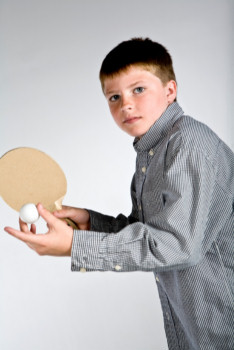 3093 |
他们在练习搏斗。 Họ đang học cách chiến đấu. พวกเขากำลังเรียนรู้วิธีต่อสู้ Están aprendiendo a luchar. Ils apprennent à se battre. Stanno imparando a combattere. They are learning how to fight. Ze leren te vechten.  3094 |
医生在为她打防疫针。 Bác sĩ đang cho cô ấy đi tiêm phòng. แพทย์กำลังให้วัคซีนแก่เธอ El médico la está vacunando. Le médecin lui fait un vaccin. Il dottore le sta vaccinando. The doctor is giving her a vaccination. De dokter geeft haar een vaccinatie.  3112 |
车轴在维修。 Trục xe đang được sửa chữa. เพลารถอยู่ในระหว่างการซ่อมแซม El eje del coche está en reparación. L'essieu de la voiture est en réparation. L'assale dell'auto è in riparazione. The car axle is under repair. De as van de auto wordt gerepareerd. 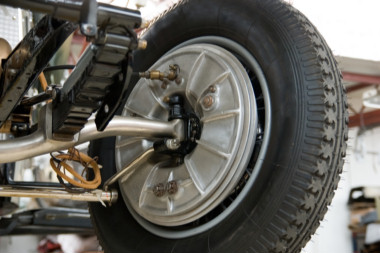 3113 |
邱吉尔在英国家喻户晓。 Churchill là một tên hộ gia đình ở Anh. Churchill เป็นชื่อครัวเรือนในสหราชอาณาจักร Churchill es un nombre muy conocido en el Reino Unido. Churchill est un nom connu au Royaume-Uni. Churchill è un nome familiare nel Regno Unito. Churchill is a household name in the UK. Churchill is een begrip in Groot-Brittannië.  3117 |
他在拷贝资料。 Anh ta đang sao chép một số tài liệu. เขากำลังคัดลอกเนื้อหาบางอย่าง Está copiando un material. Il copie du matériel. Sta copiando del materiale. He is copying some material. Hij kopieert materiaal.  3130 |
中国正在崛起。 Trung Quốc đang trỗi dậy. ประเทศจีนกำลังเพิ่มขึ้น China está creciendo. La Chine s'élève. La Cina sta crescendo. China is rising. China is in opkomst.  3142 |
在冬天大雁迁徙到南方。 Vào mùa đông, những con ngỗng hoang dã di cư về phía nam. ในฤดูหนาว ห่านป่าจะอพยพไปทางใต้ En invierno, los gansos salvajes emigran al sur. En hiver, les oies sauvages migrent vers le sud. In inverno, le oche selvatiche migrano verso sud. In winter, wild geese migrate to the south. Wilde ganzen trekken in de winter naar het zuiden.  3161 |
他坐在一块岩石上。 Anh ấy đang ngồi trên một tảng đá. เขากำลังนั่งอยู่บนก้อนหิน Está sentado en una roca. Il est assis sur un rocher. È seduto su una roccia. He is sitting on a rock. Hij zit op een rots.  3168 |
军舰在海上巡弋。 Các tàu chiến đang hành trình. เรือรบกำลังแล่น Los barcos de guerra están navegando. Les navires de guerre sont en croisière. Le navi da guerra stanno girando. The warships are cruising. De oorlogsschepen zijn op weg.  3172 |
船在汹湧的海浪中颠簸。 Con tàu đang bị lật tung trên biển động. เรือกำลังถูกเหวี่ยงขึ้นลงในทะเลที่ขรุขระ El barco se agita en el mar agitado. Le bateau est ballotté par la mer agitée. La nave viene sballottata su e giù nel mare agitato. The ship is being tossed up and down on the rough sea. Het schip wordt op en neer geslingerd op de woeste zee.  3174 |
大家在会上踊跃地举手发言。 Tại cuộc họp, mọi người đều nhiệt tình giơ tay phát biểu ý kiến. ในที่ประชุม ทุกคนยกมือขึ้นแสดงความเห็นอย่างกระตือรือร้น En la reunión, todos levantaron la mano con entusiasmo para hacer comentarios. Lors de la réunion, tout le monde a levé la main avec enthousiasme pour faire des commentaires. All'incontro tutti hanno alzato la mano con entusiasmo per commentare. At the meeting, everyone raised their hands enthusiastically to comment. Tijdens de vergadering stak iedereen enthousiast zijn hand op om opmerkingen te maken.  3176 |
农民在田里辛苦地耕耘。 Những người nông dân đang chăm chỉ làm việc trên cánh đồng. ชาวนากำลังทำงานอย่างหนักในทุ่งนา Los agricultores están trabajando duro en los campos. Les agriculteurs travaillent dur dans les champs. I contadini stanno lavorando duramente nei campi. The farmers are working hard in the fields. De boeren werken hard op het land.  3180 |
他们在野外紮营。 Họ đang cắm trại bên ngoài. พวกเขากำลังตั้งแคมป์อยู่ข้างนอก Están acampando fuera. Ils campent dehors. Si stanno accampando fuori. They are camping outside. Ze kamperen buiten. 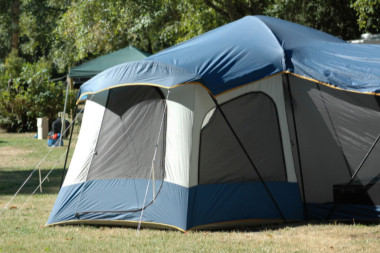 3181 |
农民正在收割甘蔗。 Những người nông dân đang thu hoạch mía. ชาวนากำลังเก็บเกี่ยวอ้อย Los agricultores están cosechando la caña de azúcar. Les fermiers sont en train de récolter la canne à sucre. I contadini stanno raccogliendo la canna da zucchero. The farmers are harvesting the sugar cane. De boeren oogsten het suikerriet.  3185 |
他们在谘询保险方面的问题。 Họ đang hỏi về bảo hiểm. พวกเขากำลังถามเกี่ยวกับประกัน Están preguntando por el seguro. Ils se renseignent sur l'assurance. Chiedono informazioni sull'assicurazione. They are inquiring about insurance. Ze informeren naar de verzekering.  3189 |
他在宣读政府咨文。 Ông đang giao cho giám đốc điều hành báo cáo về các công việc của nhà nước. เขากำลังส่งหัวหน้าผู้บริหารเป็นรายงานเกี่ยวกับกิจการของรัฐ Está entregando el jefe del ejecutivo es informe sobre los asuntos de estado. Il remet le rapport du chef de l'exécutif sur les affaires de l'État. Sta consegnando all'amministratore delegato un rapporto sugli affari di stato. He is delivering the chief executive is report on affairs of state. Hij brengt verslag uit over staatszaken aan de directeur-generaal.  3190 |
她在挑选瓷器。 Cô ấy đang chọn đồ sành. เธอกำลังเลือกเครื่องสังคโลก Ella está seleccionando la vajilla. Elle choisit de la porcelaine. Sta selezionando le porcellane. She is selecting chinaware. Ze kiest voor porselein.  3193 |
他在铺瓷砖。 Anh ấy đang lát gạch men. เขากำลังปูกระเบื้องเซรามิก Está colocando baldosas de cerámica. Il pose des carreaux de céramique. Sta posando piastrelle di ceramica. He is laying ceramic tiles. Hij legt keramische tegels.  3194 |
妈妈在切洋葱。 Mẹ tôi đang cắt hành. แม่ของฉันกำลังหั่นหัวหอม Mi madre está cortando las cebollas. Ma mère coupe les oignons. Mia madre sta tagliando le cipolle. My mom is cutting the onions. Mijn moeder snijdt de uien.  3195 |
她们在沙滩上捡东西。 Họ đang thu thập mọi thứ trên bãi biển. พวกเขากำลังรวบรวมสิ่งของบนชายหาด Están recogiendo cosas en la playa. Ils ramassent des choses sur la plage. Stanno raccogliendo cose sulla spiaggia. They are gathering things on the beach. Ze verzamelen dingen op het strand.  3199 |
他在用胶水粘纸。 Anh ấy đang dán giấy lại với nhau. เขากำลังติดกระดาษเข้าด้วยกัน Está pegando el papel. Il colle le papier ensemble. Incolla insieme la carta. He is gluing the paper together. Hij lijmt het papier aan elkaar.  3200 |
她在拉小提琴。 Cô ấy đang chơi vĩ cầm. เธอกำลังเล่นไวโอลิน Está tocando el violín. Elle joue du violon. Suona il violino. She is playing the violin. Ze speelt viool.  3205 |
妈妈在给孩子喂奶。 Người mẹ đang cho con bú. แม่กำลังให้นมลูกของเธอ La madre está amamantando a su hijo. La maman allaite son enfant. La mamma sta allattando suo figlio. The mom is breastfeeding her child. De moeder geeft haar kind borstvoeding.  3211 |
他在掷标枪。 Anh ta đang ném lao. เขากำลังขว้างหอก Está lanzando una jabalina. Il lance un javelot. Sta lanciando un giavellotto. He is throwing a javelin. Hij gooit een speer.  3217 |
他在吃粥。 Anh ấy đang ăn cháo [cháo gạo]. เขากำลังกินโจ๊ก [ข้าวต้ม] Está comiendo congee [gachas de arroz]. Il mange du congee [gruau de riz]. Sta mangiando congee [farina di riso]. He is eating congee [rice gruel]. Hij eet rijstepap.  3218 |
他在泥墙。 Anh ấy đang trát tường. เขากำลังฉาบผนัง Está enluciendo la pared. Il est en train de plâtrer le mur. Sta intonacando il muro. He is plastering the wall. Hij pleistert de muur.  3223 |
他在画一幅肖像画。 Anh ấy đang vẽ một bức chân dung. เขากำลังวาดภาพเหมือน Está dibujando un retrato. Il dessine un portrait. Sta disegnando un ritratto. He is drawing a portrait. Hij is een portret aan het tekenen.  3230 |
老师在发脾气。 Cô giáo đang lên cơn. อาจารย์กำลังฟิตพอดี El profesor tiene un ataque. Le professeur fait une crise. L'insegnante sta avendo un attacco. The teacher is having a fit. De leraar heeft een aanval.  3243 |
她在钩毛线。 Cô ấy đang đan len. เธอกำลังถัก Está haciendo ganchillo. Elle fait du crochet. Sta lavorando all'uncinetto. She is crocheting. Ze haakt.  3245 |
她在化妆。 Cô ấy đang trang điểm. เธอกำลังแต่งหน้า Se está maquillando. Elle se maquille. Si sta truccando. She is putting on make-up. Ze doet haar make-up op.  3248 |
她在卸妆。 Cô ấy đang tẩy trang. เธอกำลังถอดเครื่องสำอางออก Se está desmaquillando. Elle se démaquille. Si sta rimuovendo il trucco. She is removing her make-up. Ze doet haar make-up af.  3249 |
他在向上司求饶。 Anh ta đang cầu xin ông chủ của mình thương xót. เขากำลังอ้อนวอนเจ้านายของเขาเพื่อขอความเมตตา Está suplicando a su jefe que se apiade de él. Il implore la clémence de son patron. Sta chiedendo pietà al suo capo. He is pleading with his boss for mercy. Hij smeekt zijn baas om genade.  3257 |
他们在做餐前祈祷。 Họ đang cầu nguyện trước bữa tối. พวกเขากำลังสวดมนต์ก่อนอาหารเย็น Están rezando una oración antes de la cena. Ils font une prière avant le dîner. Dicono una preghiera prima di cena. They are saying a prayer before dinner. Ze zeggen een gebed voor het eten.  3259 |
她在烫衣服。 Cô ấy đang ủi quần áo. เธอกำลังรีดผ้า Está planchando la ropa. Elle repasse les vêtements. Sta stirando i vestiti. She is ironing the clothes. Ze strijkt de kleren.  3265 |
他在会上阐述了自己的观点。 Tại cuộc họp, ông giải thích quan điểm của mình. ในการประชุม เขาได้อธิบายมุมมองของเขา En la reunión, explicó su punto de vista. Lors de la réunion, il a expliqué son point de vue. Alla riunione, ha spiegato il suo punto di vista. At the meeting, he explained his view. Tijdens de vergadering lichtte hij zijn standpunt toe.  3273 |
他在拆卸手表。 Anh ta đang tháo rời chiếc đồng hồ. เขากำลังถอดประกอบนาฬิกา Está desmontando el reloj. Il est en train de démonter la montre. Sta smontando l'orologio. He is disassembling the watch. Hij haalt de klok uit elkaar.  3283 |
他在撰写文章。 Anh ấy đang viết một bài báo. เขากำลังเขียนบทความ Está escribiendo un artículo. Il est en train d'écrire un article. Sta scrivendo un articolo. He is writing an article. Hij is een artikel aan het schrijven.  3289 |
她把书搁在书架上。 Cô đặt cuốn sách trên giá sách. เธอวางหนังสือไว้บนชั้นหนังสือ Colocó el libro en la estantería. Elle a posé le livre sur l'étagère. Ha messo il libro sullo scaffale. She placed the book on the bookshelf. Ze zette het boek op de boekenplank.  3290 |
他在吃药丸。 Anh ấy đang uống thuốc. เขากำลังกินยา Está tomando pastillas. Il prend des pilules. Sta prendendo delle pillole. He is taking pills. Hij neemt pillen.  3294 |
她在挠痒痒。 Cô ấy đang gãi ngứa. เธอกำลังเกาคัน Se está rascando una picazón. Elle se gratte une démangeaison. Sta grattando un prurito. She is scratching an itch. Ze krabt aan haar jeuk.  3300 |
他在街边乞讨。 Anh ta đang ăn xin trên đường phố. เขากำลังขอทานอยู่บนถนน Está pidiendo limosna en la calle. Il mendie dans la rue. Chiede per strada. He is begging in the street. Hij bedelt op straat. 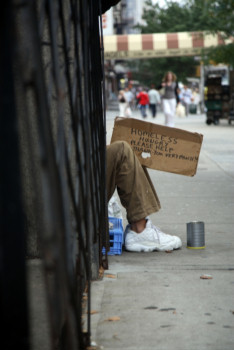 3317 |
他在木桩上劈柴。 Anh ta đang chặt củi ở gốc cây. เขากำลังสับฟืนบนตอไม้ Está cortando leña en el tocón de un árbol. Il coupe du bois de chauffage sur la souche d'arbre. Sta tagliando la legna da ardere sul ceppo di albero. He is chopping firewood on the tree stump. Hij hakt brandhout op de boomstronk.  3320 |
她在扮演一个小妖精。 Cô ấy đang giả vờ là một linh hồn xấu xa. เธอแสร้งทำเป็นวิญญาณชั่วร้าย Ella finge ser un espíritu maligno. Elle prétend être un mauvais esprit. Finge di essere uno spirito malvagio. She is pretending to be an evil spirit. Ze doet alsof ze een kwade geest is.  3347 |
警察在辖区里巡视。 Người cảnh sát đang tuần tra khu vực. ตำรวจกำลังลาดตระเวนพื้นที่ El policía patrulla la zona. Le policier patrouille dans le secteur. Il poliziotto sta pattugliando la zona. The policeman is patrolling the area. De politieagent patrouilleert in het gebied.  3355 |
他们在山里徘徊,欣赏风景。 Họ đang lang thang trên núi, đánh giá cao phong cảnh. พวกเขากำลังเดินอยู่บนภูเขาชื่นชมทัศนียภาพ Están deambulando por la montaña, apreciando el paisaje. Ils errent dans la montagne, appréciant le paysage. Stanno vagando per la montagna, apprezzando il paesaggio. They are wandering in the mountain, appreciating the scenery. Ze wandelen in de bergen en waarderen het landschap.  3364 |
父母把孩子揽在怀里。 Các bậc cha mẹ đang ôm con của họ trong vòng tay của họ. พ่อแม่อุ้มลูกไว้ในอ้อมแขน Los padres tienen a sus hijos en brazos. Les parents tiennent leurs enfants dans leurs bras. I genitori tengono i figli in braccio. The parents are holding their children in their arms. De ouders houden hun kinderen in hun armen.  3371 |
警官在训练警犬。 Anh cảnh sát đang huấn luyện chó cảnh sát. เจ้าหน้าที่ตำรวจกำลังฝึกสุนัขตำรวจ El oficial de policía está entrenando al perro policía. Le policier entraîne le chien policier. L'agente di polizia sta addestrando il cane poliziotto. The police officer is training the police dog. De politieagent traint de politiehond. 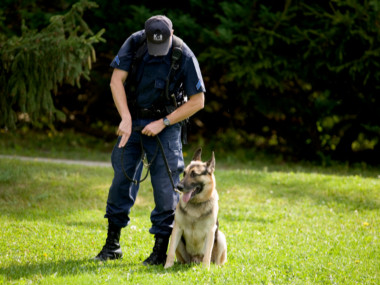 3382 |
短发现在风靡一时。 Tóc ngắn hiện đang là xu hướng thịnh hành. ผมสั้นที่กำลังมาแรงในตอนนี้ El pelo corto está de moda ahora. Les cheveux courts font fureur maintenant. I capelli corti sono di gran moda ora. Short hair is all the rage now. Kort haar is nu erg trendy.  3384 |
蜘蛛在树上结网。 Con nhện đang dệt mạng trên cây. แมงมุมกำลังทอใยบนต้นไม้ La araña está tejiendo una telaraña en el árbol. L'araignée tisse une toile dans l'arbre. Il ragno sta tessendo una ragnatela nell'albero. The spider is weaving a web in the tree. De spin weeft een web in de boom.  3398 |
小组成员正在斟酌案子。 Các thành viên trong nhóm đang cân nhắc vụ việc. สมาชิกในทีมกำลังพิจารณาคดี Los miembros del equipo están deliberando sobre el caso. Les membres de l'équipe délibèrent sur l'affaire. I membri del team stanno deliberando il caso. The team members are deliberating the case. De teamleden bespreken de zaak.  3400 |
她在收拾包袱。 Cô ấy đang đóng gói. เธอกำลังแพ็คของ Ella está empacando. Elle fait ses valises. Sta facendo i bagagli. She is packing. Ze is aan het inpakken.  3401 |
他在检查肾脏。 Anh ta đang kiểm tra một quả thận. เขากำลังตรวจไต Está examinando un riñón. Il examine un rein. Sta esaminando un rene. He is examining a kidney. Hij onderzoekt een nier.  3408 |
鸟栖息在树上。 Chim đậu trên cây. นกเกาะอยู่บนต้นไม้ Los pájaros se posan en los árboles. Les oiseaux se perchent sur les arbres. Gli uccelli si appollaiano sugli alberi. Birds perch on trees. Vogels zitten op bomen.  3415 |
士兵藏匿在树后面。 Những người lính đang nấp sau những tán cây. ทหารกำลังซ่อนตัวอยู่หลังต้นไม้ Los soldados se esconden detrás de los árboles. Les soldats se cachent derrière les arbres. I soldati si nascondono dietro gli alberi. The soldiers are hiding behind the trees. Soldaten verstoppen zich achter de bomen. 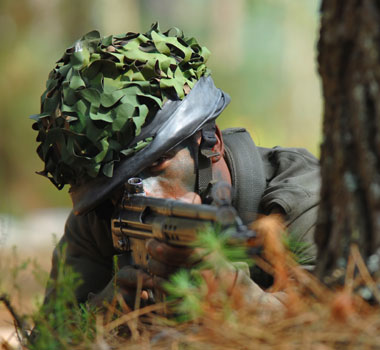 3416 |
他在剔牙。 Anh ấy đang nhổ răng. เขากำลังกัดฟัน Se está hurgando los dientes. Il se cure les dents. Sta raccogliendo i denti. He is picking his teeth. Hij knarst zijn tanden.  3419 |
她在看红酒的贮藏年份。 Cô ấy đang kiểm tra đồ cũ của rượu. เธอกำลังตรวจสอบเหล้าองุ่นของไวน์ Ella está comprobando la cosecha del vino. Elle vérifie le millésime du vin. Sta controllando l'annata del vino. She is checking the wine's vintage. Ze controleert het oogstjaar van de wijn.  3425 |
她在抨击时政。 Cô ấy đang tấn công vào tình hình chính trị hiện tại. เธอกำลังโจมตีสถานการณ์ทางการเมืองในปัจจุบัน Ataca la actual situación política. Elle attaque la situation politique actuelle. Sta attaccando l'attuale situazione politica. She is attacking the current political situation. Ze valt de huidige politieke situatie aan.  3426 |
他们在给狗洗澡。 Họ đang tắm cho con chó. พวกเขากำลังอาบน้ำให้สุนัข Están bañando al perro. Ils donnent un bain au chien. Stanno facendo il bagno al cane. They are giving the dog a bath. Ze doen de hond in bad.  3429 |
羊被关在栅栏里。 Những con cừu được giữ bên trong hàng rào. แกะถูกเก็บไว้ในรั้ว La oveja se mantiene dentro de la cerca. Les moutons sont gardés à l'intérieur de la clôture. La pecora è tenuta all'interno del recinto. The sheep is kept inside the fence. Het schaap wordt binnen de omheining gehouden. 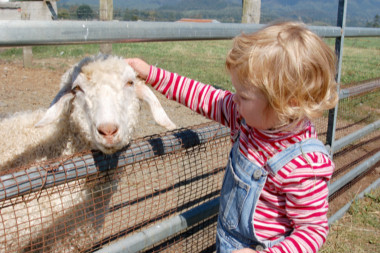 3436 |
暴风雨正在酝酿中。 Có một cơn bão đang ủ rượu. มีพายุเกิดขึ้น Se está gestando una tormenta. Il y a un orage qui se prépare. C'è una tempesta in arrivo. There is a storm brewing. Er is een storm op komst.  3455 |
机器在剷土。 Máy đang đào. เครื่องกำลังขุด La máquina está cavando. La machine creuse. La macchina sta scavando. The machine is digging. De machine is aan het graven.  3463 |
一只螳螂趴在树叶上。 Một con bọ ngựa đang cầu nguyện đang nằm trên chiếc lá. ตั๊กแตนตำข้าวกำลังนอนอยู่บนใบไม้ Una mantis religiosa está acostada sobre la hoja. Une mante religieuse est allongée sur la feuille. Una mantide religiosa è sdraiata sulla foglia. A praying mantis is lying on the leaf. Een bidsprinkhaan ligt op de pagina.  3470 |
她在看价目标籤。 Cô ấy đang nhìn vào thẻ giá. เธอกำลังดูป้ายราคา Ella está mirando la etiqueta de precio. Elle regarde le prix. Sta guardando il cartellino del prezzo. She is looking at the price tag. Ze kijkt naar het prijskaartje.  3475 |
帑在古语中是钱财的意思。 Nu có nghĩa là "tiền" trong tiếng Trung cổ. หนูหมายถึง "เงิน" ในภาษาจีนโบราณ Nu significaba "dinero" en chino antiguo. Nu signifiait « argent » en chinois ancien. Nu significava "denaro" in cinese antico. Nu meant "money" in ancient Chinese. Nu betekende "geld" in het oude Chinees.  3485 |
蛇在蜕皮。 Con rắn đang lột da. งูกำลังหลั่งผิวหนัง La serpiente está mudando de piel. Le serpent perd sa peau. Il serpente sta perdendo la pelle. The snake is shedding its skin. De slang werpt zijn huid af. 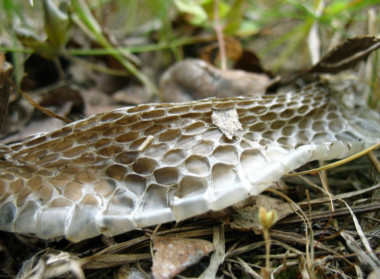 3488 |
犀牛生活在非洲。 Tê giác sống ở Châu Phi. แรดอาศัยอยู่ในแอฟริกา Los rinocerontes viven en África. Les rhinocéros vivent en Afrique. I rinoceronti vivono in Africa. Rhinoceroses live in Africa. Neushoorns leven in Afrika.  3494 |
大猩猩在吃树叶。 Con khỉ đột đang ăn lá cây. กอริลลากำลังกินใบต้นไม้ El gorila está comiendo hojas de árboles. Le gorille mange des feuilles d'arbres. Il gorilla sta mangiando le foglie degli alberi. The gorilla is eating tree leaves. De gorilla eet boombladeren. 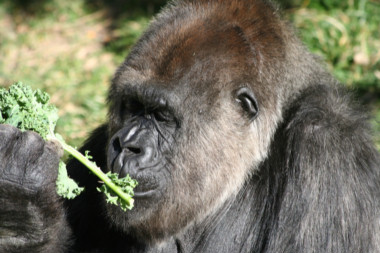 3501 |
他在刮胡须。 Anh ấy đang cạo râu. เขากำลังโกนหนวดเครา Se está afeitando la barba. Il se rase la barbe. Si sta radendo la barba. He is shaving his beard. Hij scheert zijn baard.  3503 |
一只鸟停在树丫上。 Con chim dừng lại trên một cành cây. นกหยุดอยู่บนกิ่งไม้ El pájaro se detuvo en una rama. L'oiseau s'est arrêté sur une branche. L'uccello si fermò su un ramo. The bird stopped on a branch. De vogel stopte op een tak.  3504 |
老师在为孩子讲谚语故事。 Cô giáo đang dạy bọn trẻ những câu chuyện đằng sau những câu tục ngữ. ครูกำลังสอนเด็กถึงเรื่องราวเบื้องหลังสุภาษิต El maestro les está enseñando a los niños las historias detrás de los proverbios. L'enseignant enseigne aux enfants les histoires derrière les proverbes. L'insegnante sta insegnando ai bambini le storie dietro i proverbi. The teacher is teaching the children the stories behind proverbs. De leraar leert de kinderen de verhalen achter de spreekwoorden.  3506 |
摩托车在汽车中迂回前进。 Những chiếc xe máy lạng lách giữa dòng ô tô. รถจักรยานยนต์ซิกแซกระหว่างรถ Las motos zigzaguean entre los coches. Les motos zigzaguent entre les voitures. Le motociclette zigzagano tra le macchine. The motorcycles zigzag between the cars. De motoren zigzaggen tussen de auto's door.  3511 |
她在清理灶台。 Cô ấy đang làm sạch đầu dãy. เธอกำลังทำความสะอาดชั้นบนสุด Ella está limpiando la encimera. Elle nettoie le haut de gamme. Sta pulendo il top di gamma. She is cleaning the range top. Ze maakt het fornuis schoon.  3515 |
柳树枝垂在水面上。 Những cành liễu rủ trên mặt nước. กิ่งวิลโลว์ห้อยอยู่เหนือน้ำ Las ramas de sauce cuelgan sobre el agua. Les branches de saule sont suspendues au-dessus de l'eau. I rami di salice sono sospesi sopra l'acqua. The willow branches are hanging above the water. De wilgentakken hangen over het water.  3523 |
她趴在草丛中。 Cô ấy đang thu mình trong cỏ. เธอหมอบอยู่ในหญ้า Ella está agachada en la hierba. Elle est accroupie dans l'herbe. È accovacciata nell'erba. She is crouching in the grass. Ze hurkt in het gras.  3525 |
她正在搓洗衣服。 Cô ấy đang giặt quần áo. เธอกำลังซักผ้า Ella está lavando la ropa. Elle lave les vêtements. Sta lavando i vestiti. She is washing the clothes. Ze wast kleren.  3526 |
母女俩在挑拣水果。 Hai mẹ con đang chọn hoa quả. แม่และลูกสาวกำลังเลือกผลไม้ La madre y su hija están seleccionando frutas. La mère et sa fille sélectionnent des fruits. La madre e la figlia stanno selezionando i frutti. The mother and her daughter are selecting fruits. De moeder en haar dochter plukken fruit.  3529 |
妈妈在煎鱼。 Mẹ tôi đang rán cá. แม่ฉันกำลังทอดปลา Mi mamá está friendo pescado. Ma mère fait frire du poisson. Mia madre sta friggendo il pesce. My mom is frying fish. Mijn moeder is vis aan het bakken.  3531 |
猪养在猪圈里。 Những con lợn được nhốt trong chuồng lợn. หมูจะถูกเก็บไว้ในเล้าหมู Los cerdos se mantienen en la pocilga. Les porcs sont gardés dans la porcherie. I maiali vengono tenuti nel porcile. The pigs are kept in the pigsty. De varkens worden in de varkensstal gehouden.  3534 |
小狗在地上拉屎。 Con chó đang ị trên mặt đất. สุนัขกำลังเซ่ออยู่บนพื้น El perro hace caca en el suelo. Le chien fait caca par terre. Il cane sta facendo la cacca a terra. The dog is pooping on the ground. De hond poept op de vloer.  3537 |
 [EN]
[EN]  [DE]
[DE]  [NL]
[NL]  [ES]
[ES]  [FR]
[FR]  [IT]
[IT]  [TH]
[TH]  [VI]
[VI]  [ZH]
[ZH]